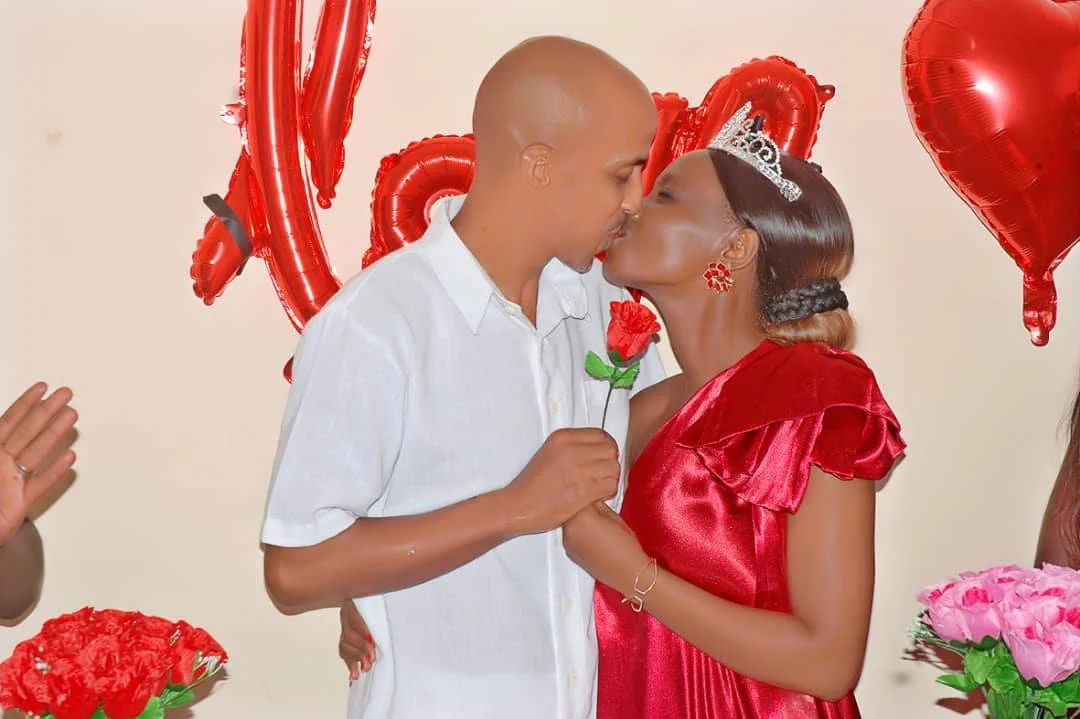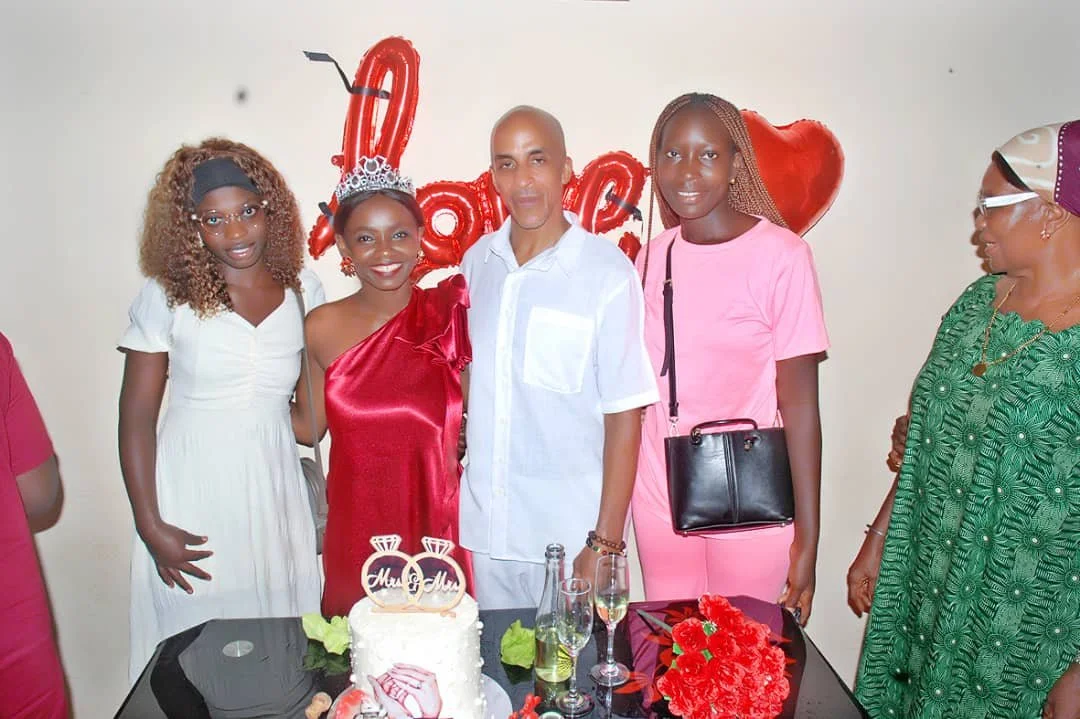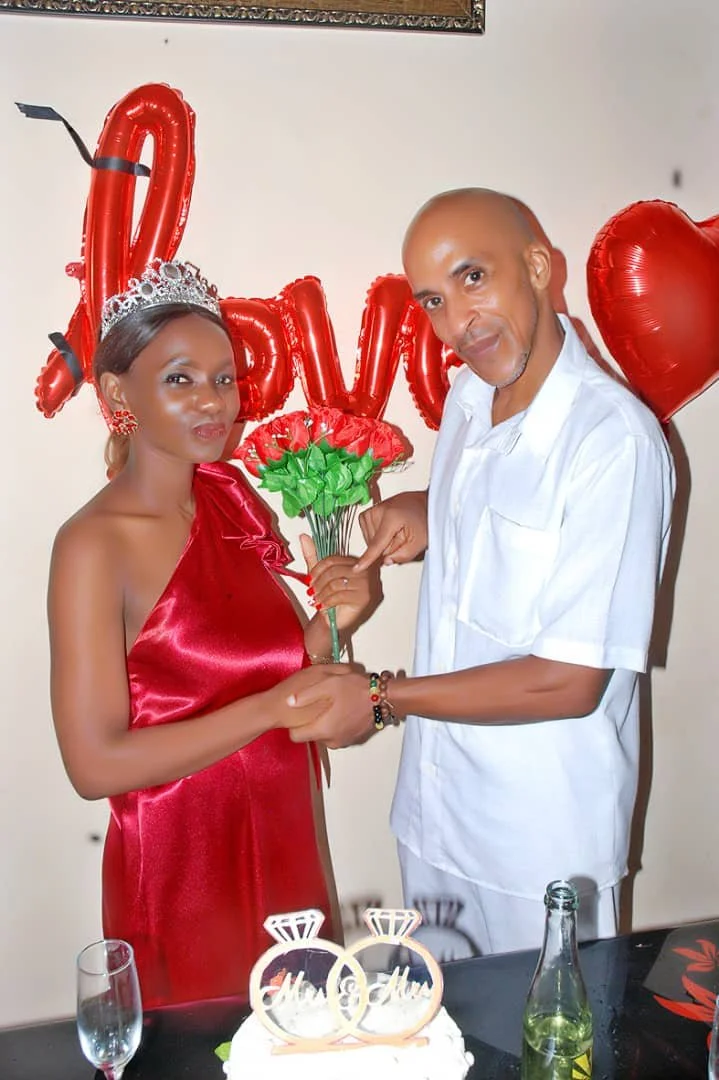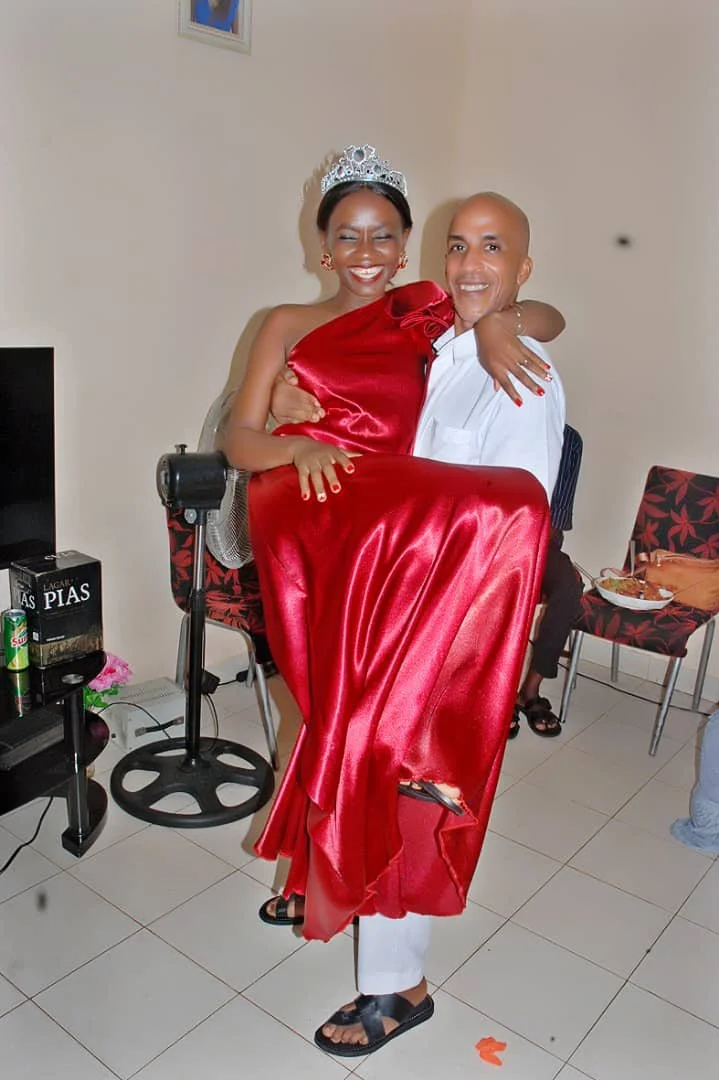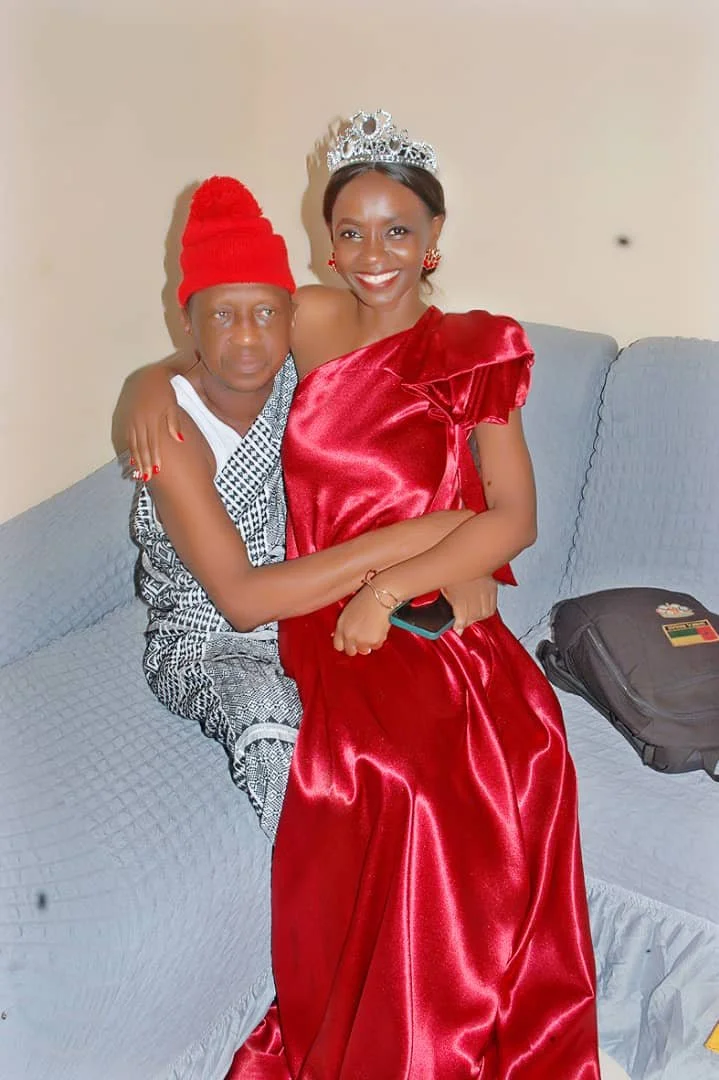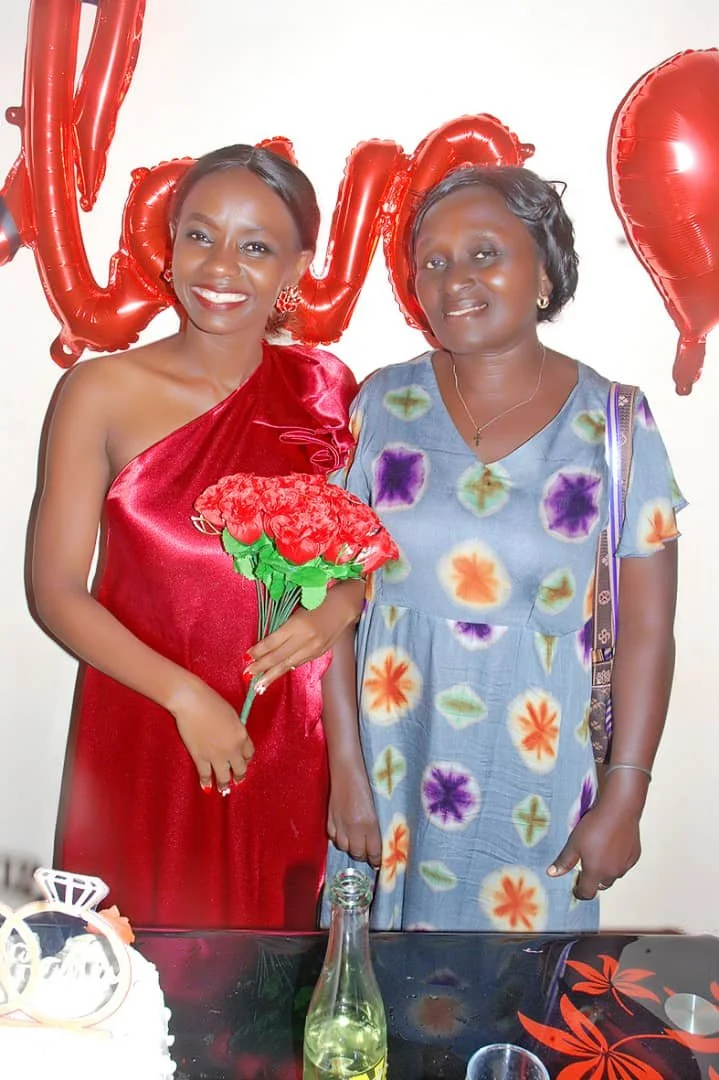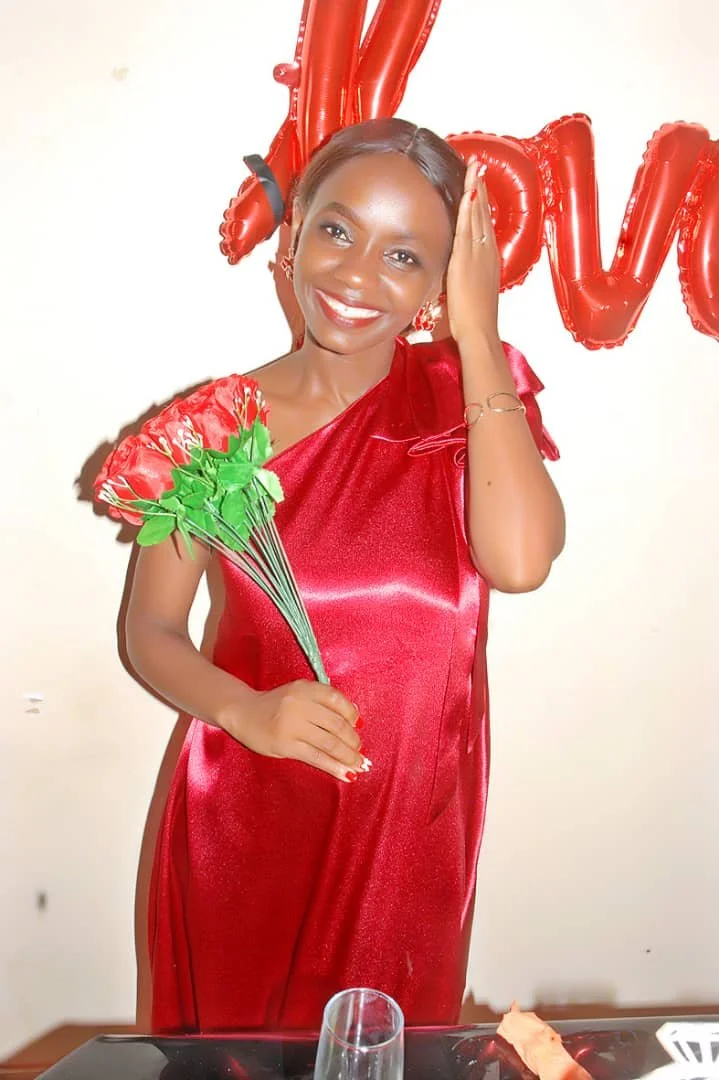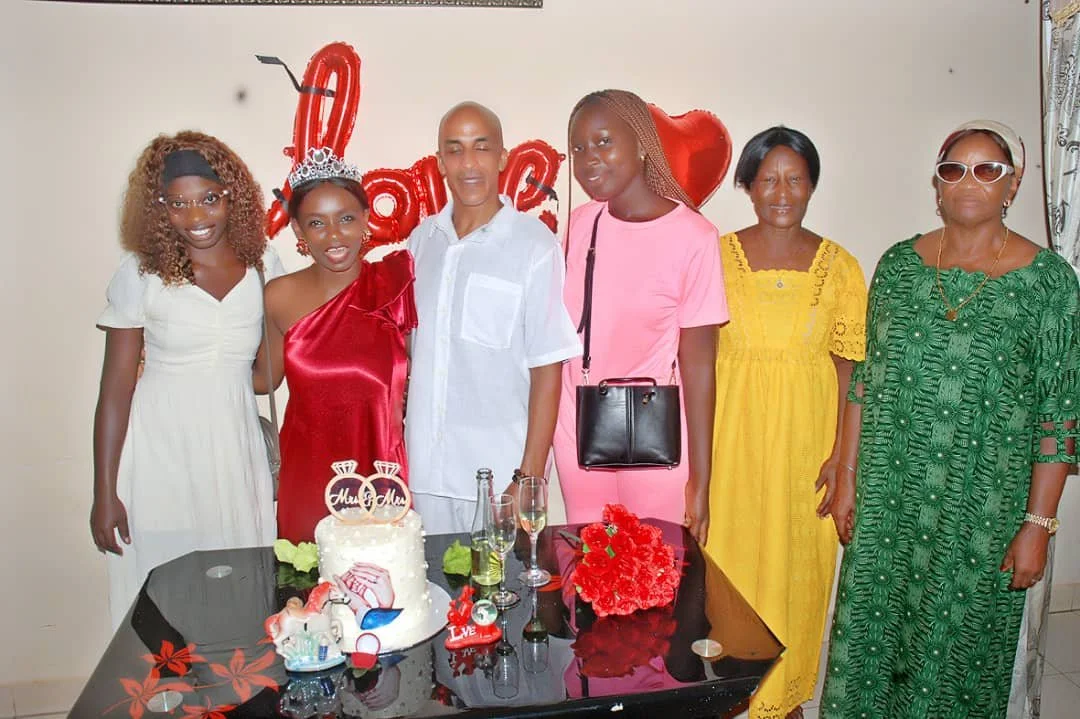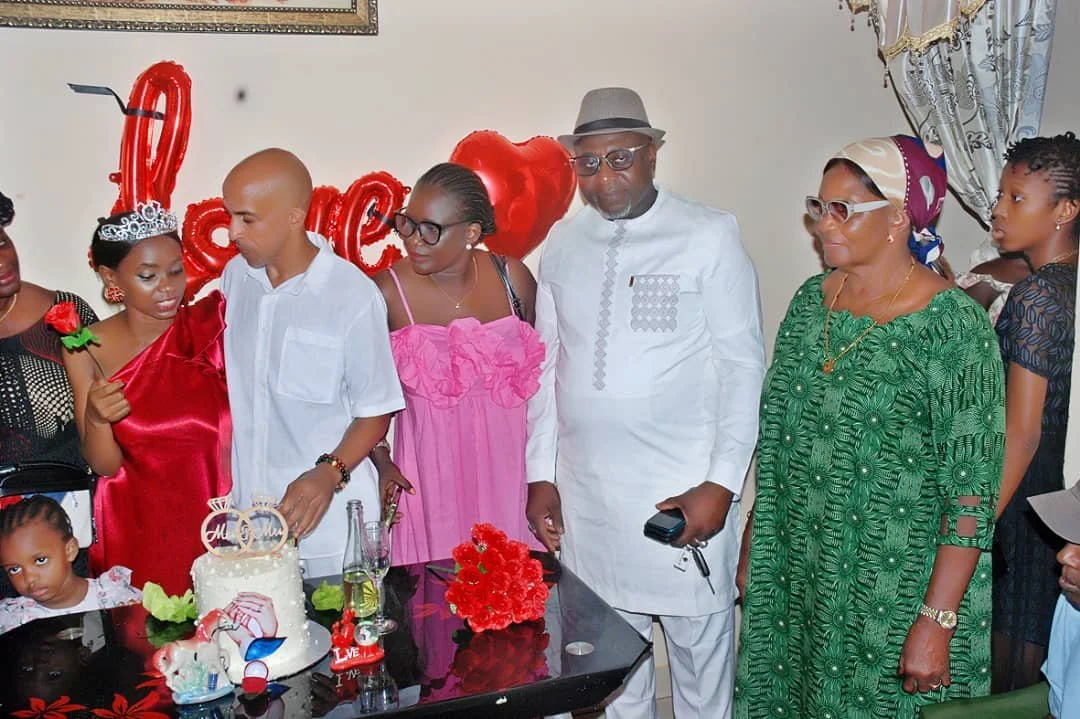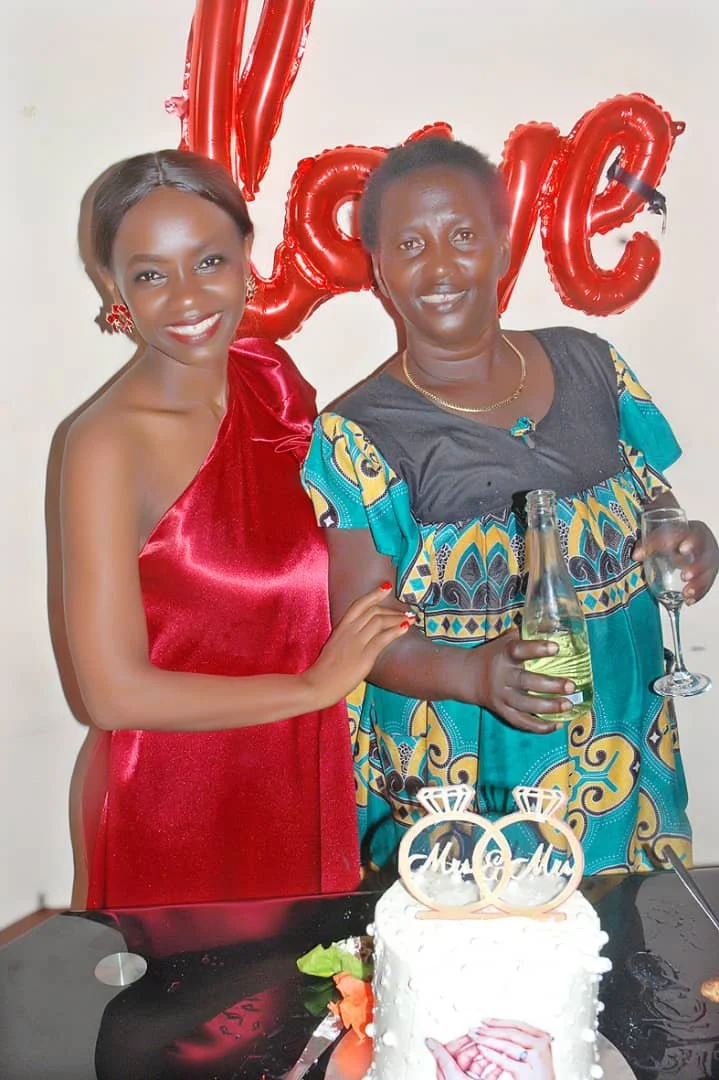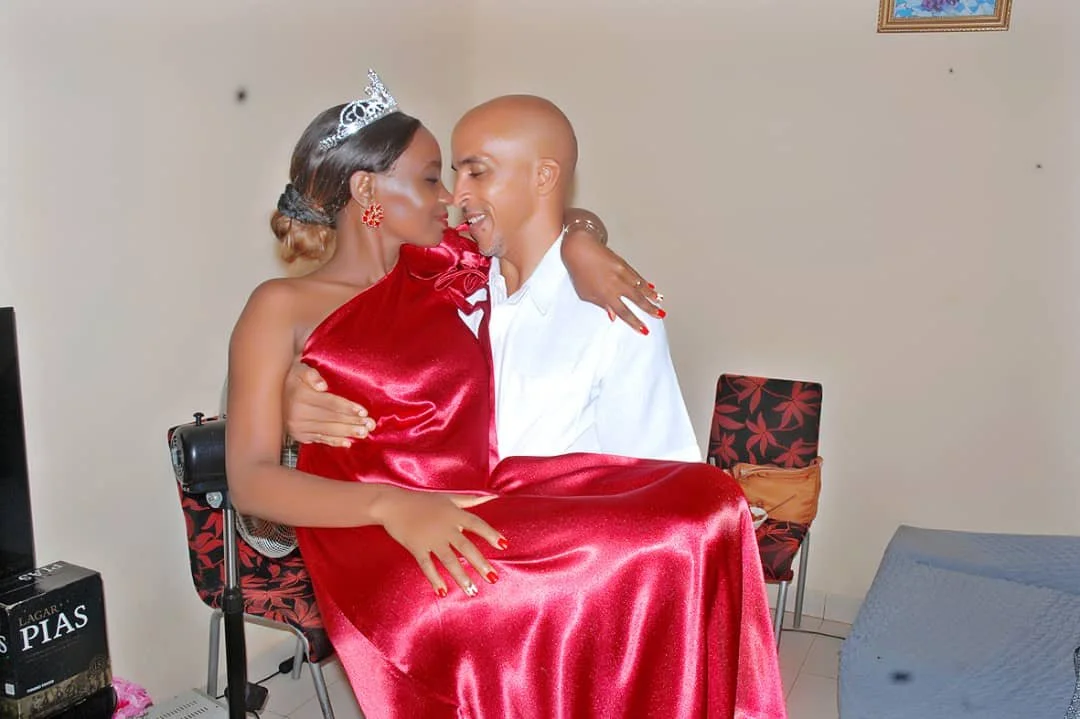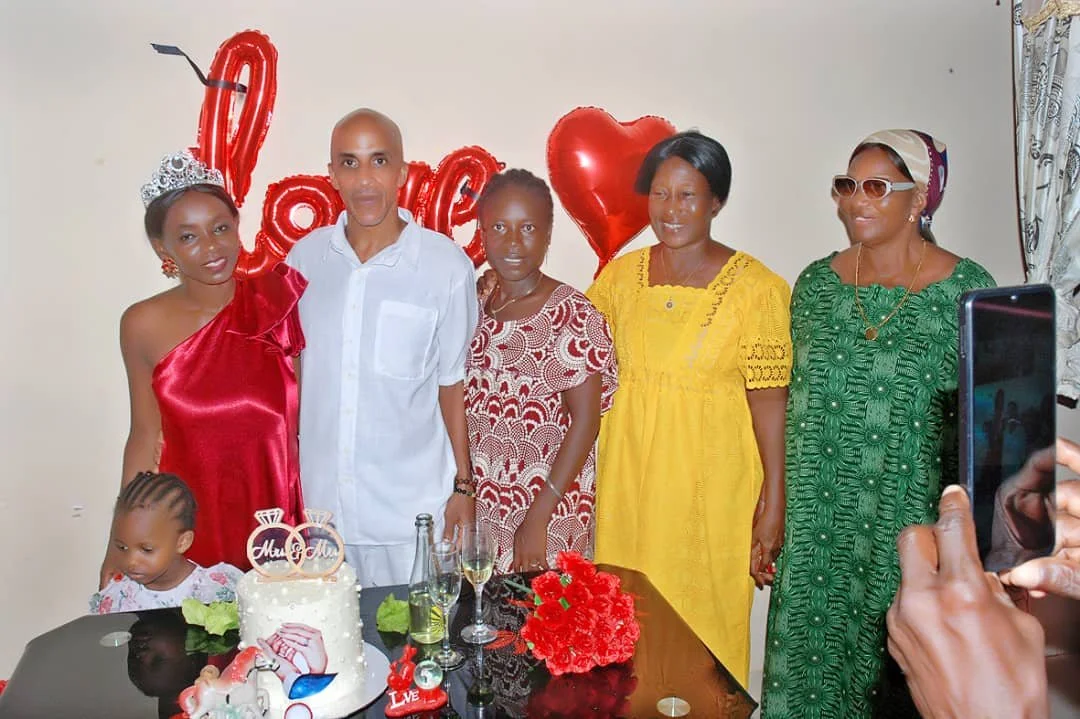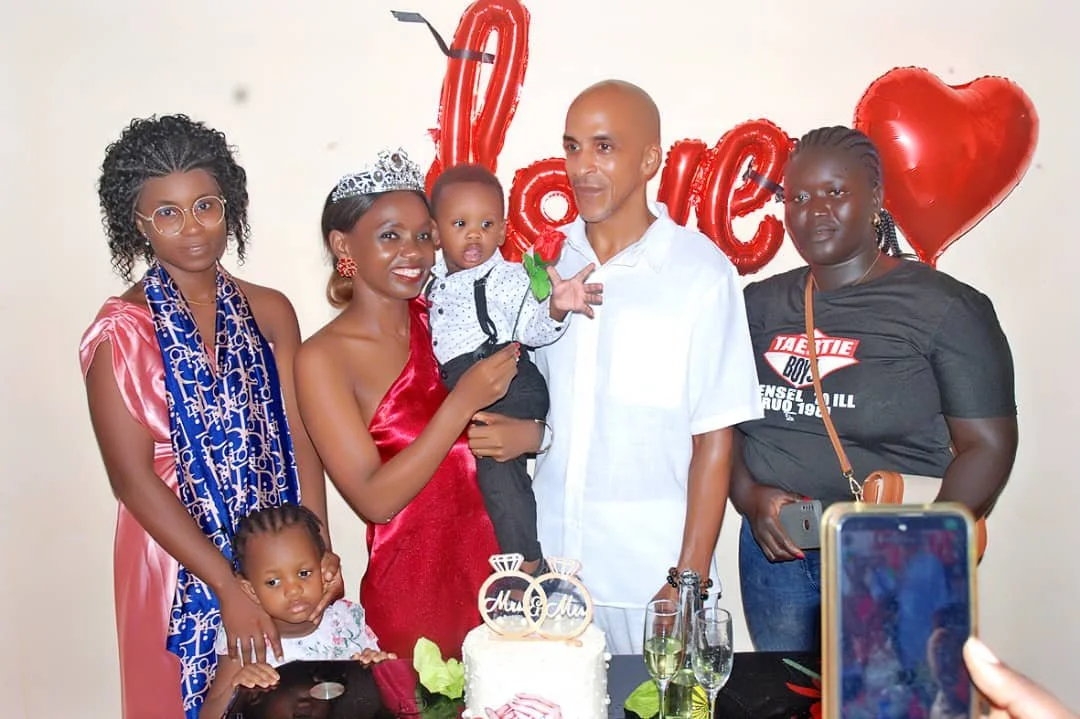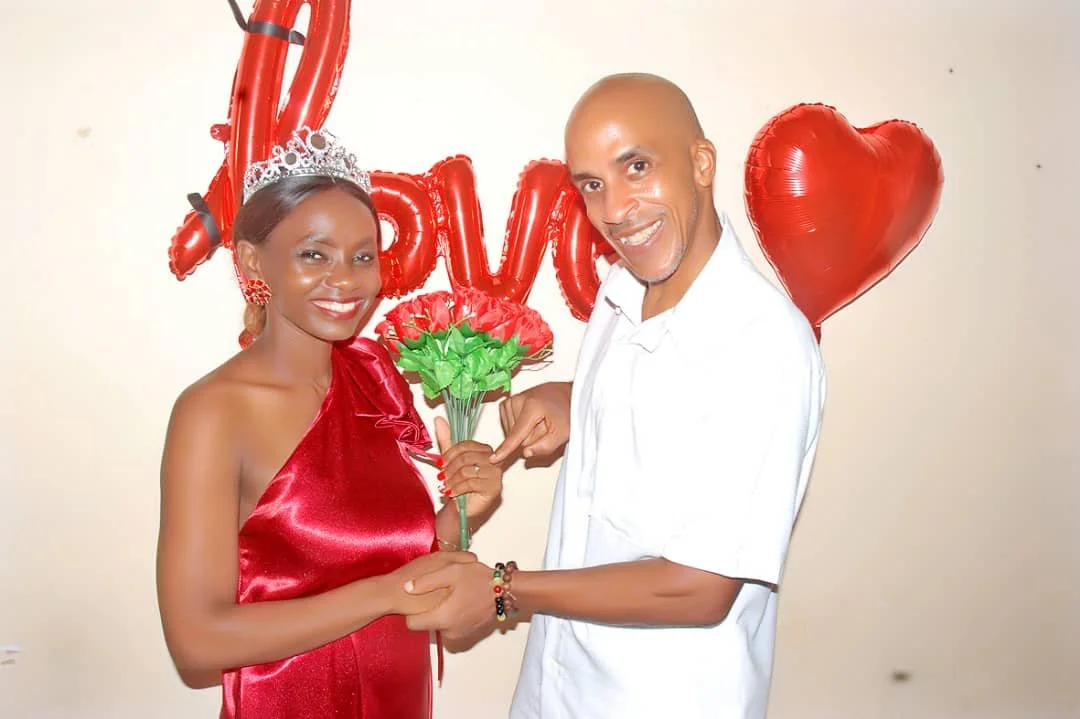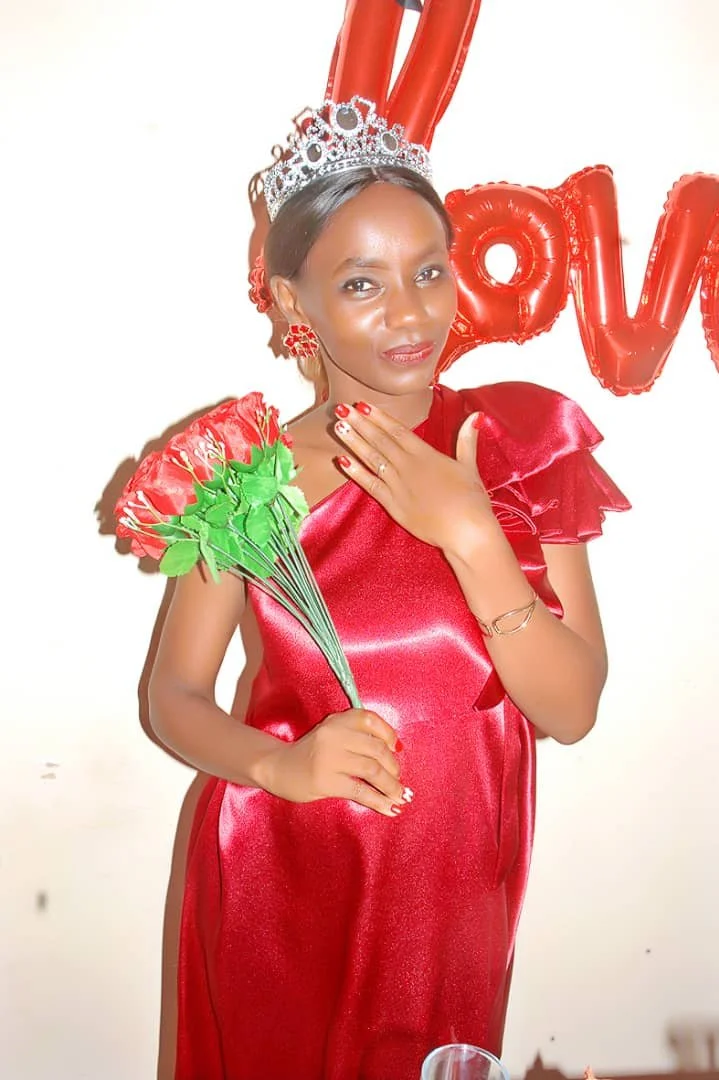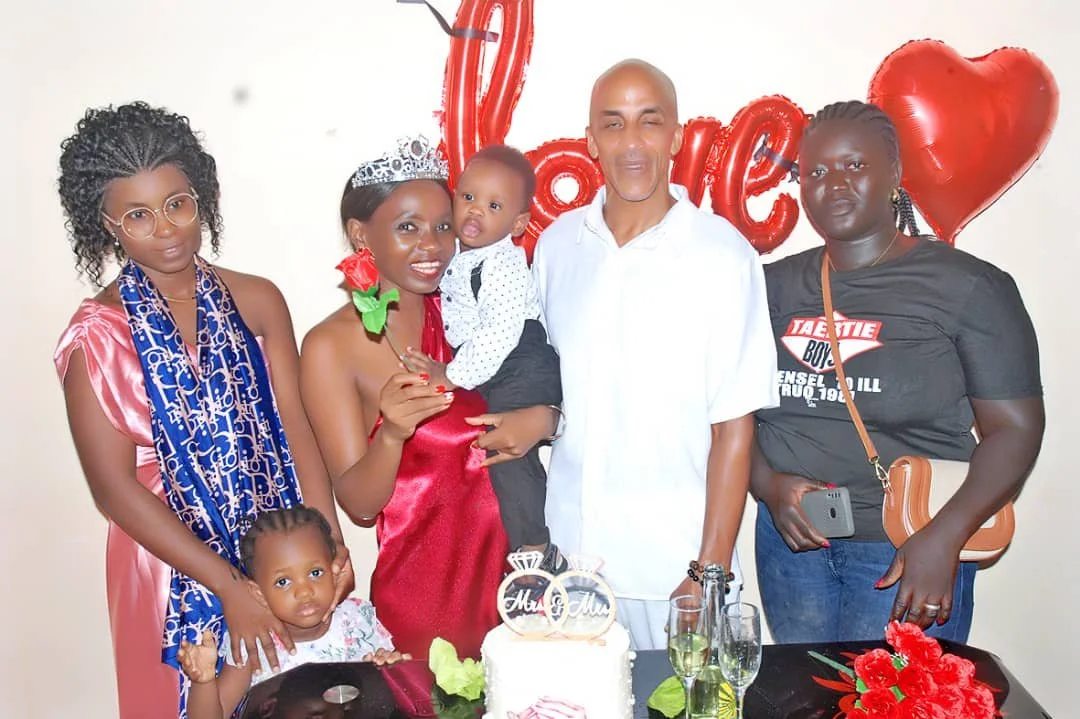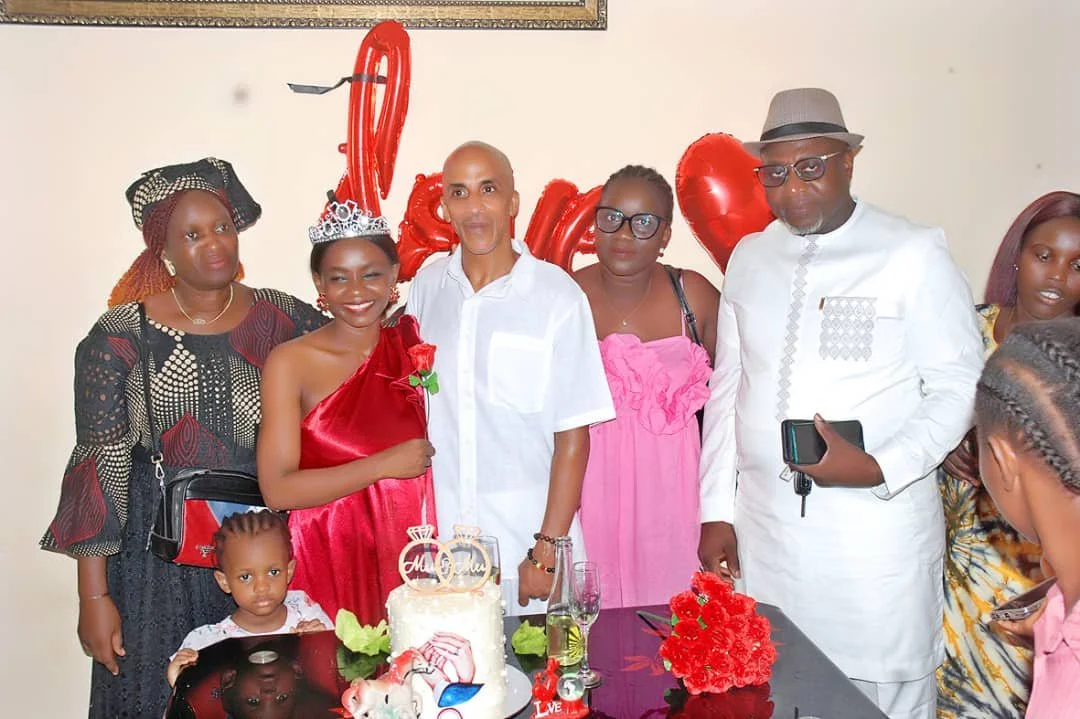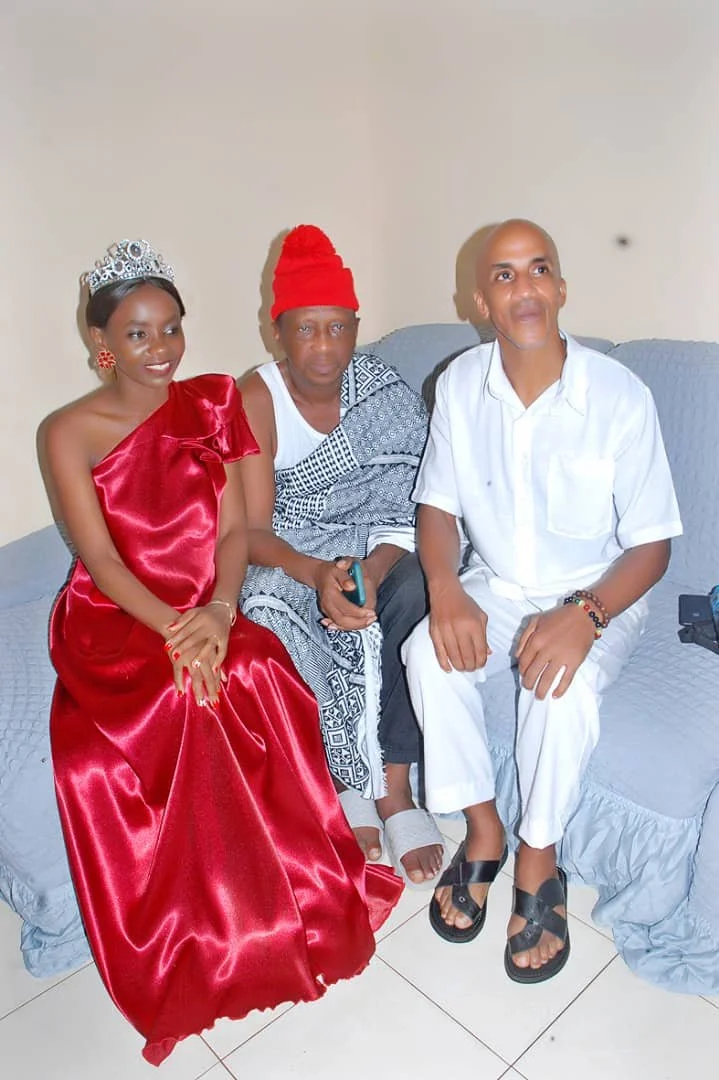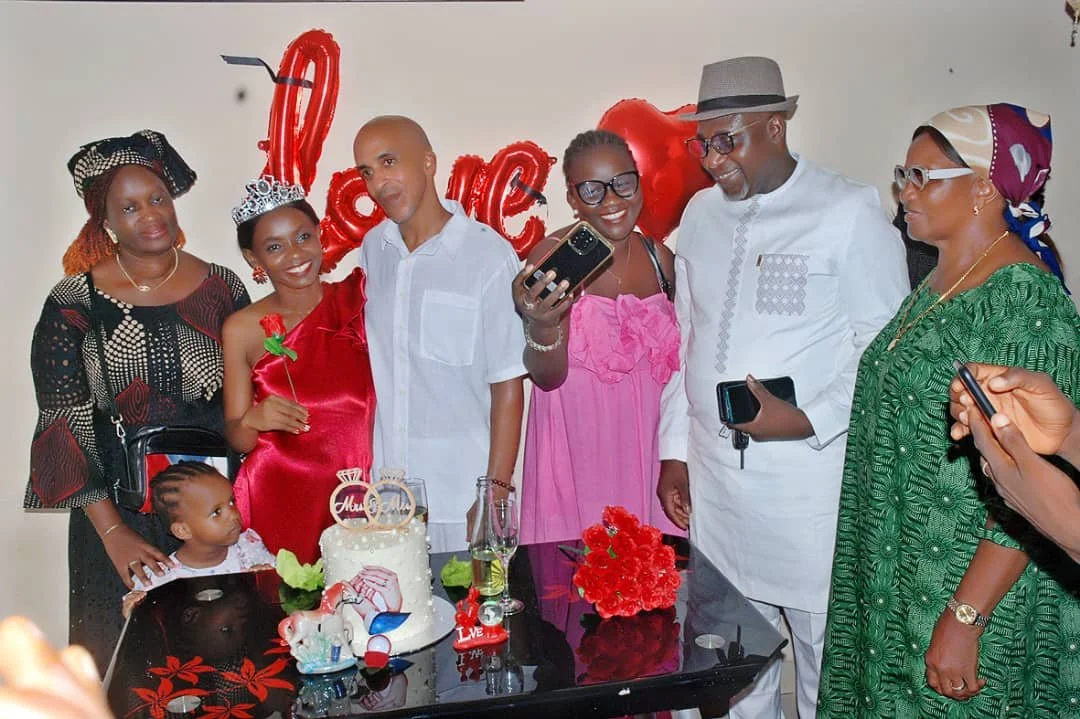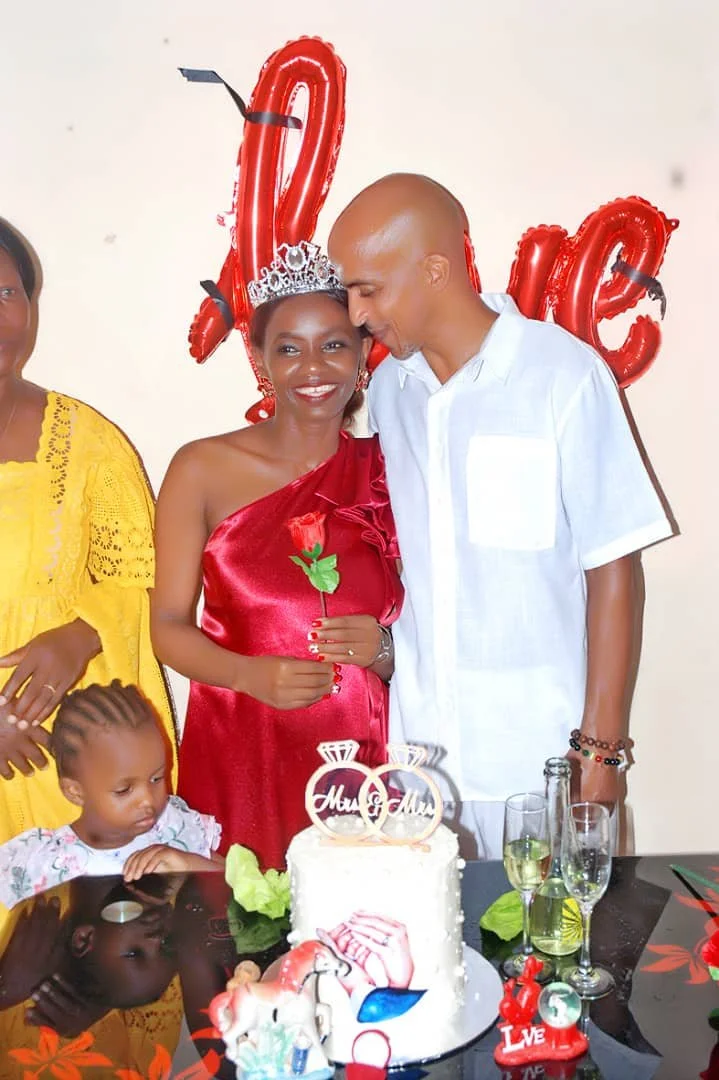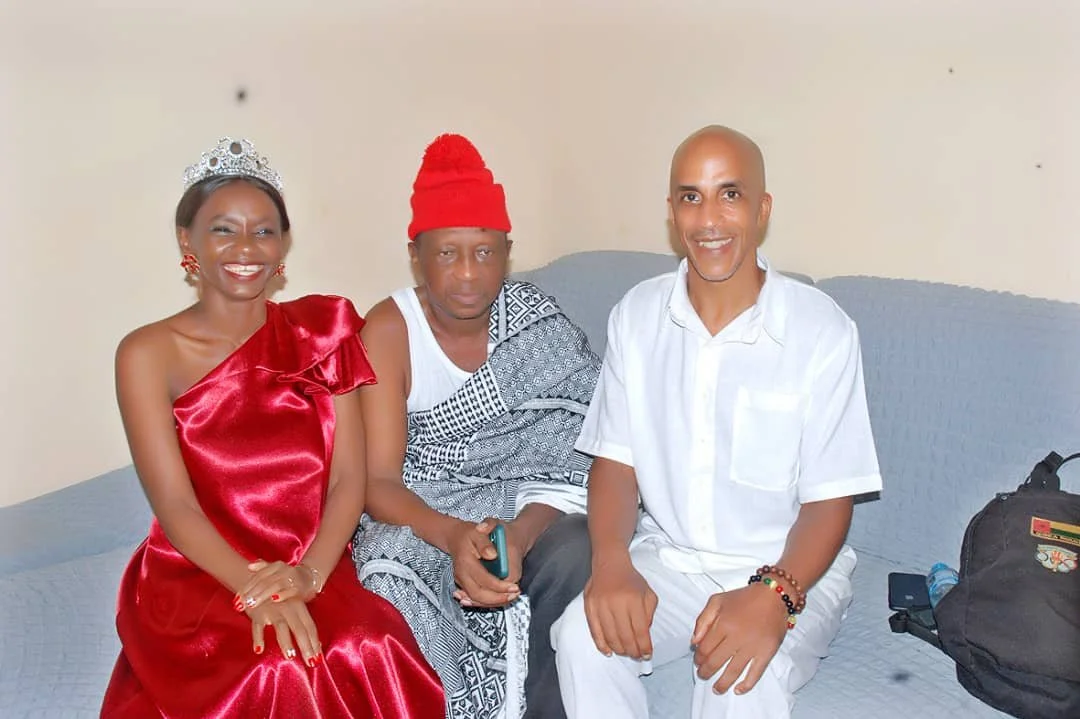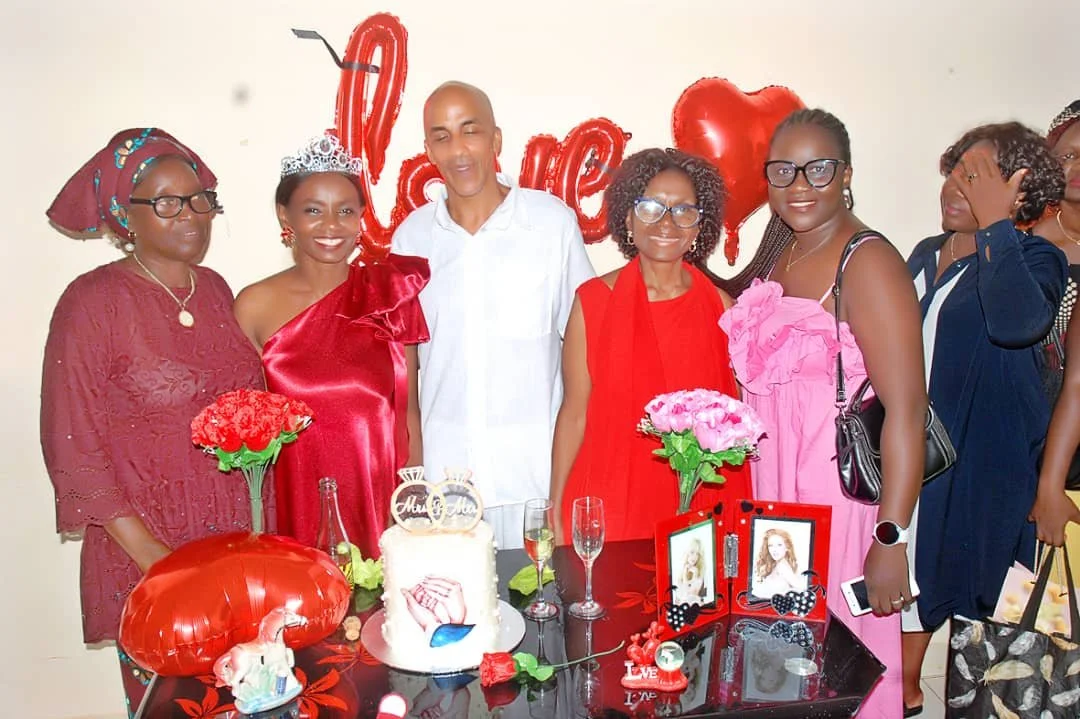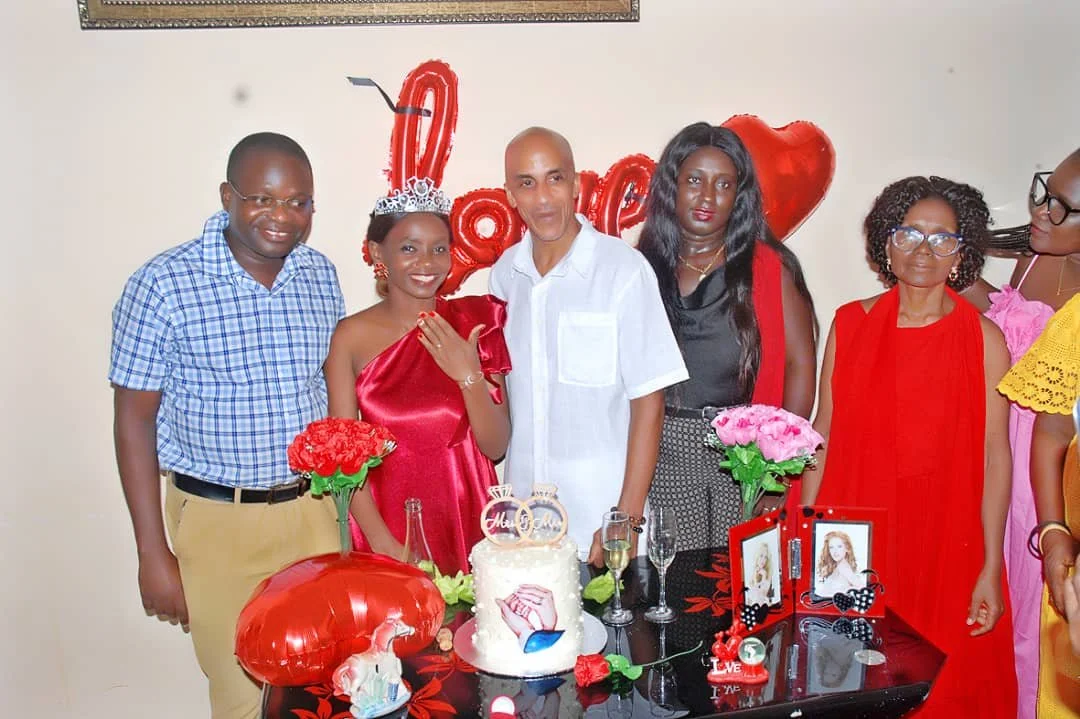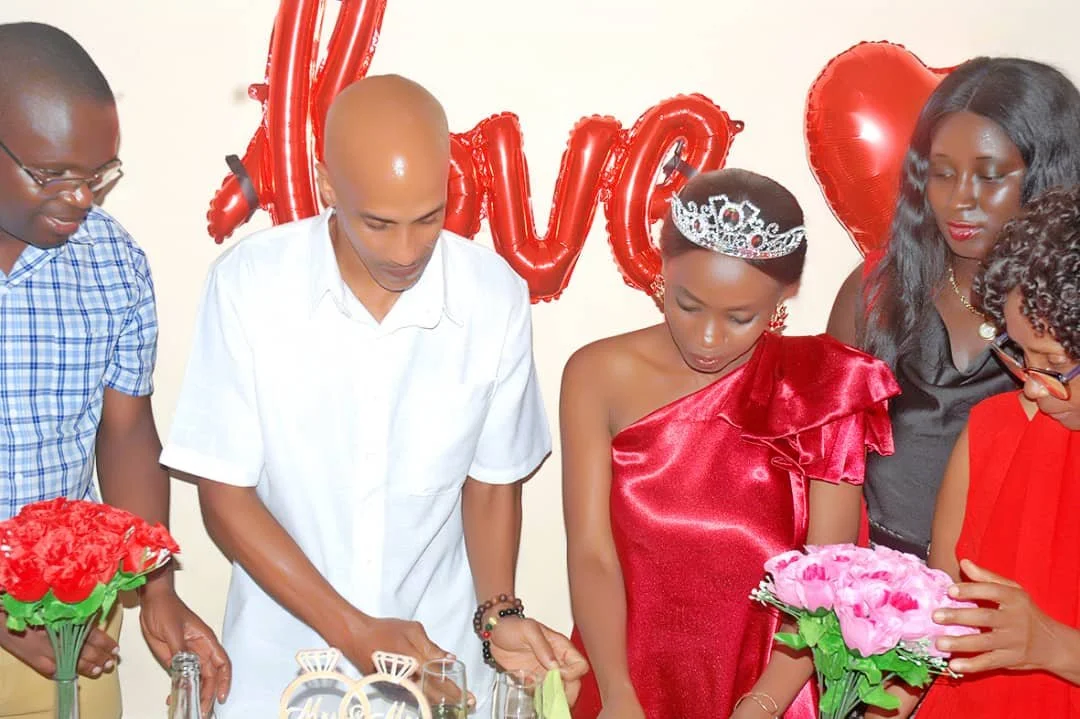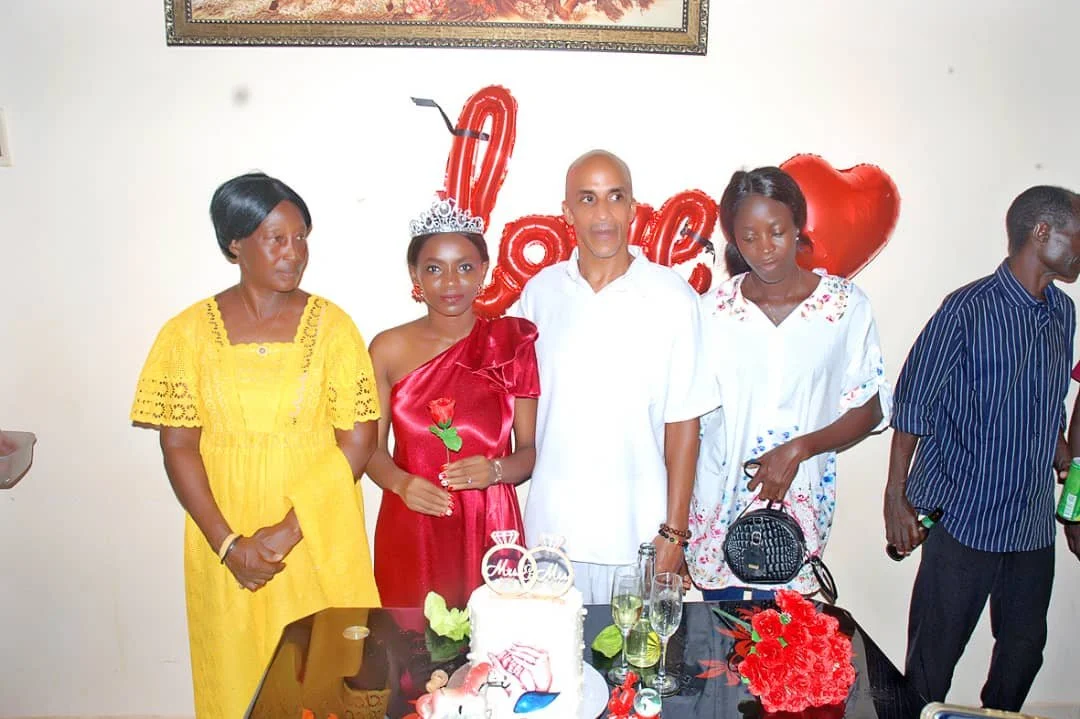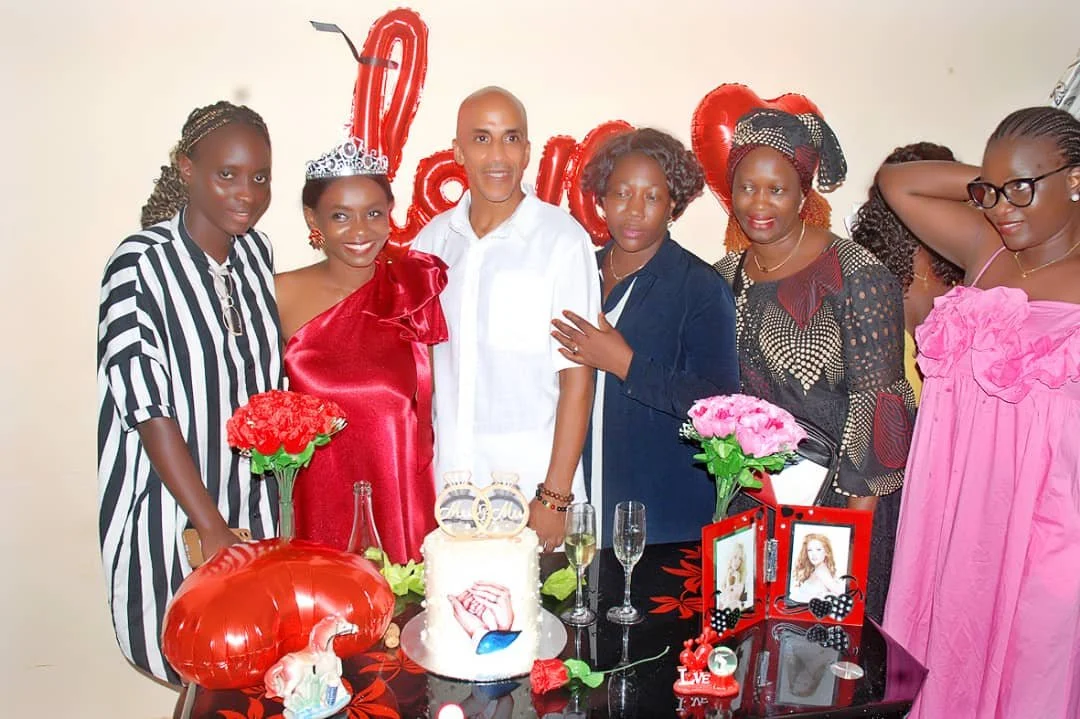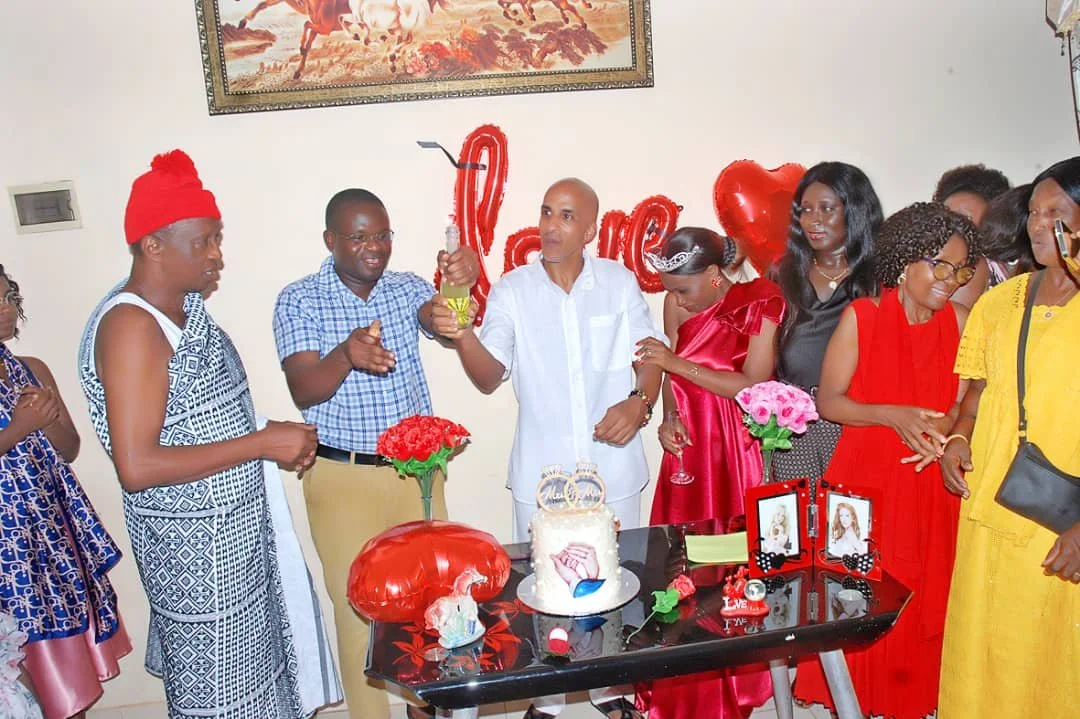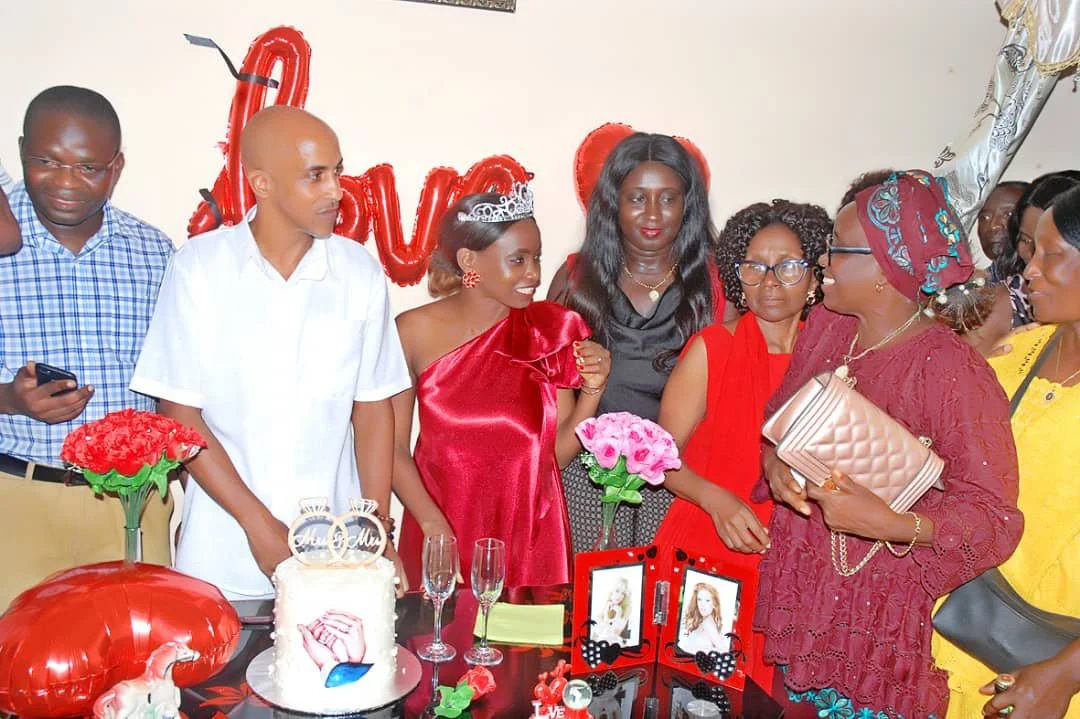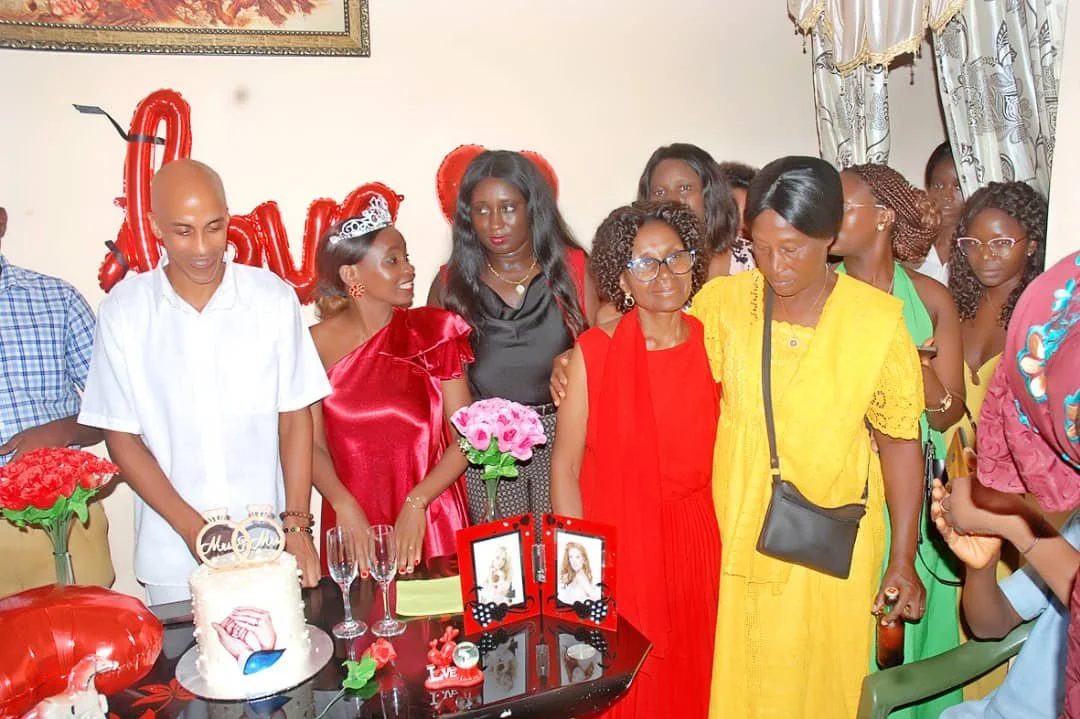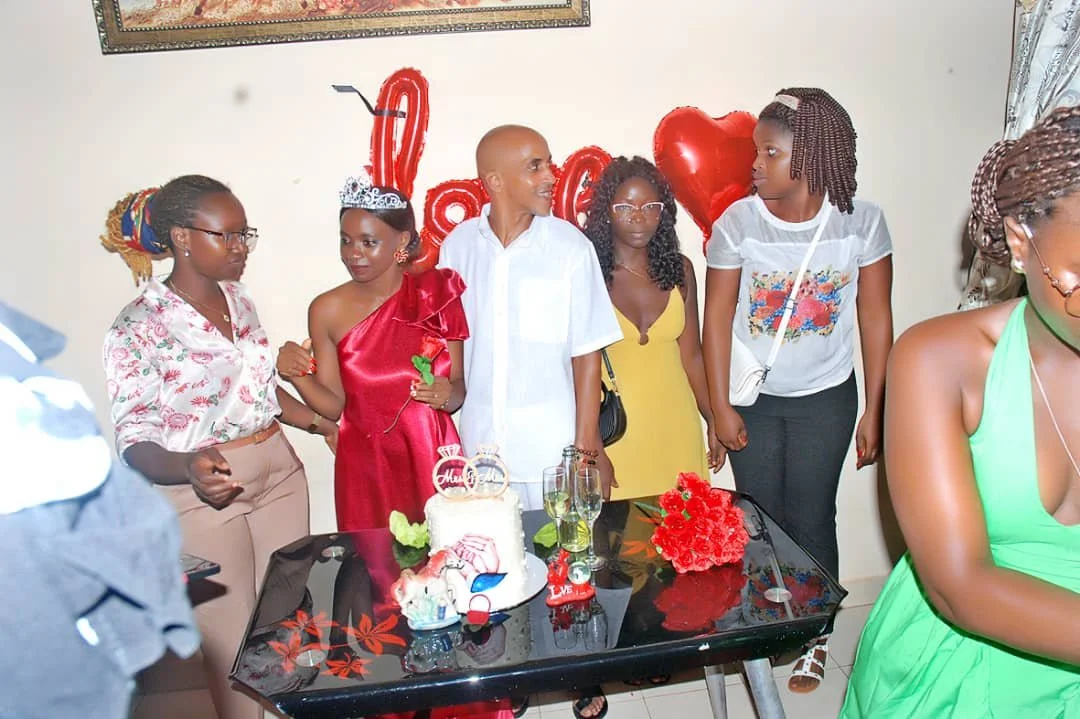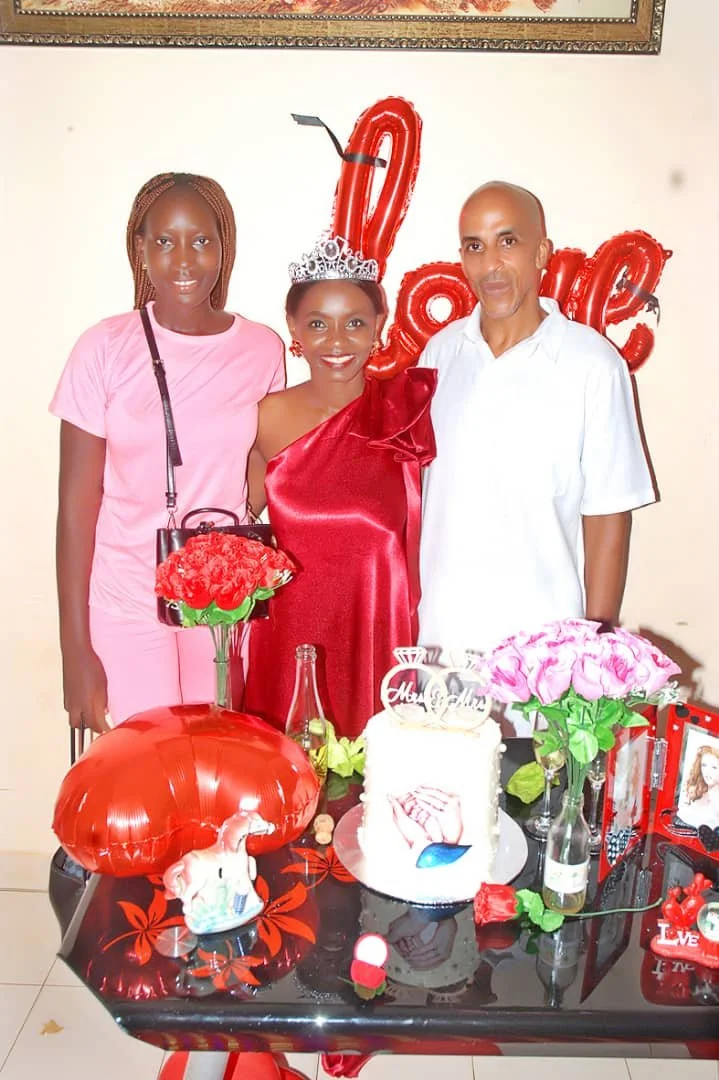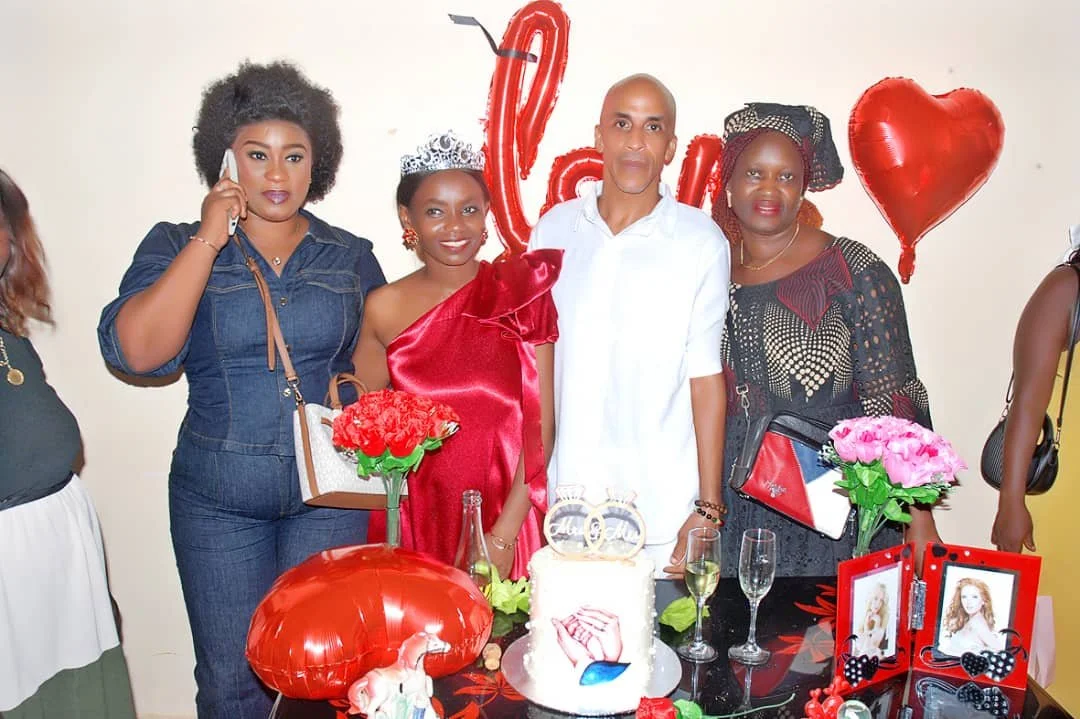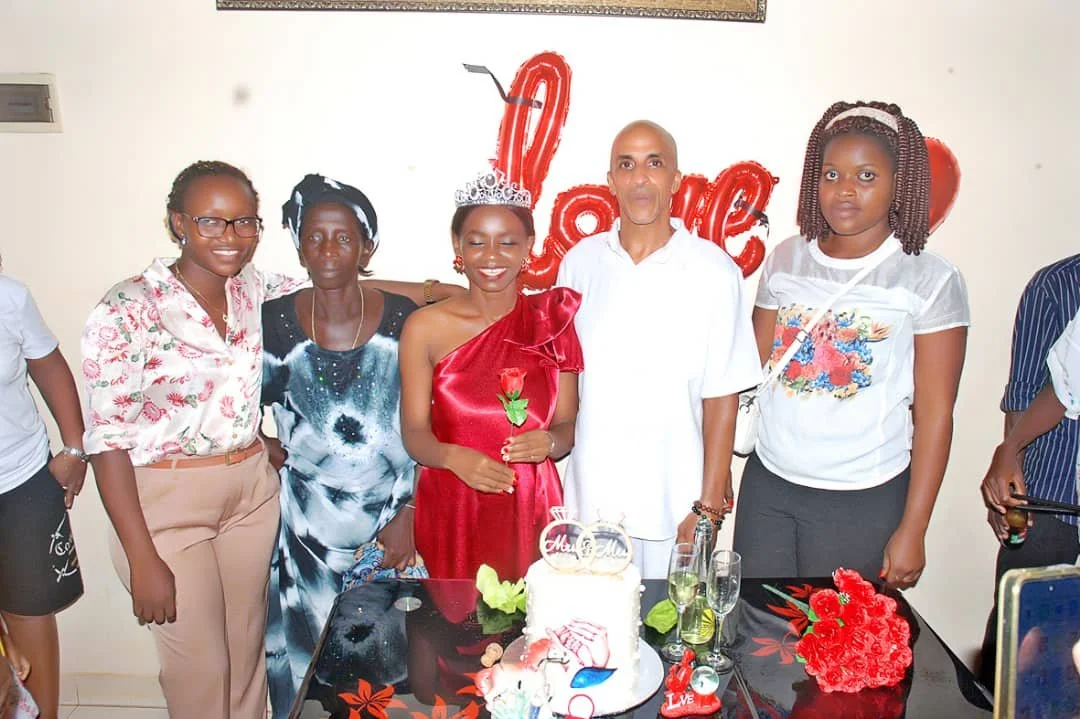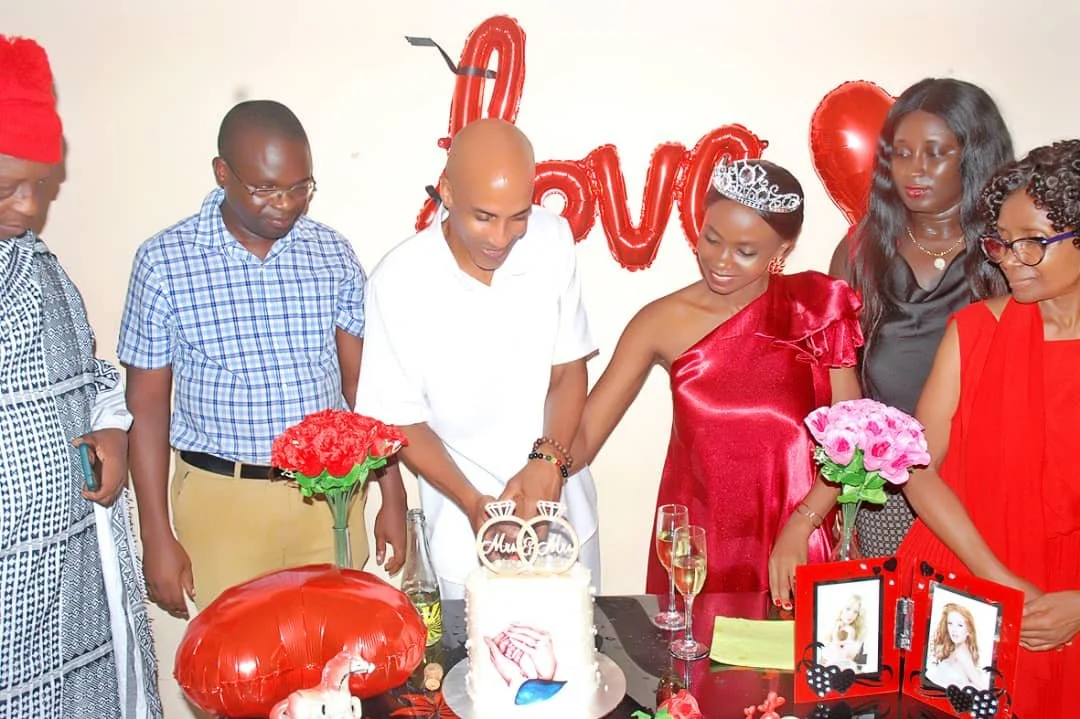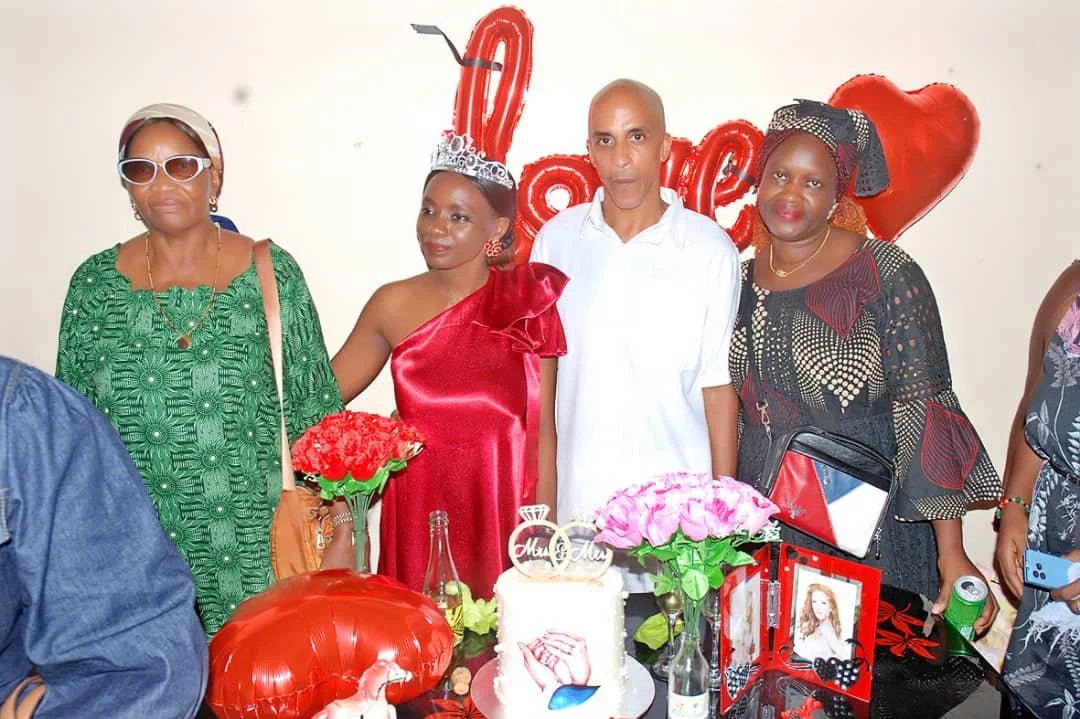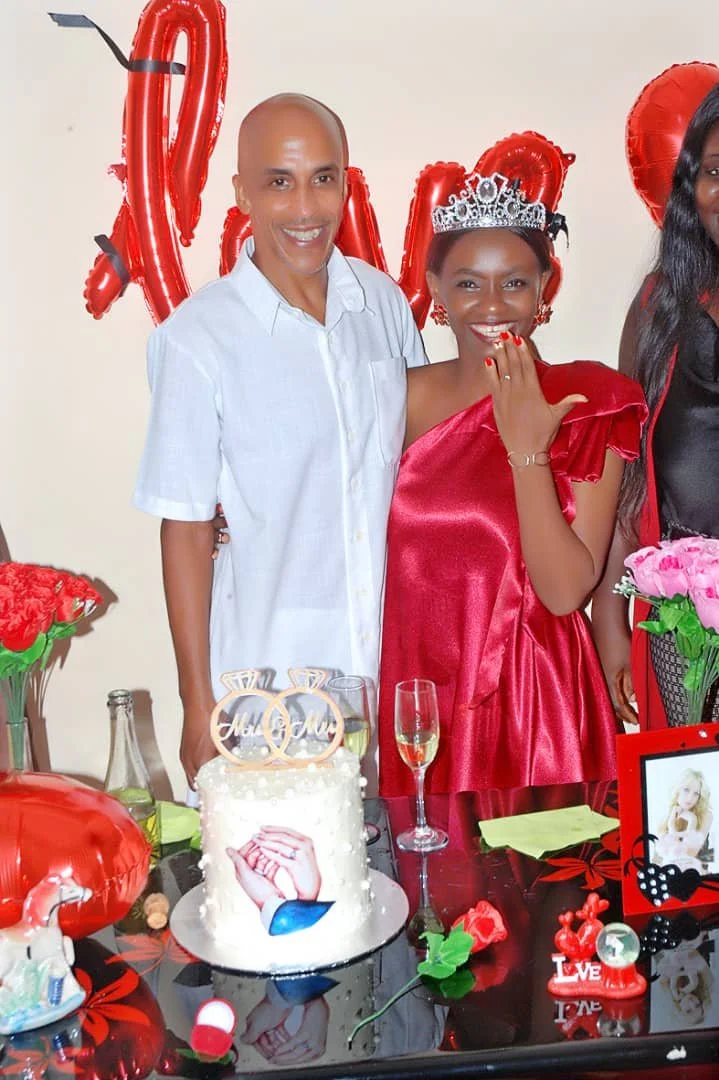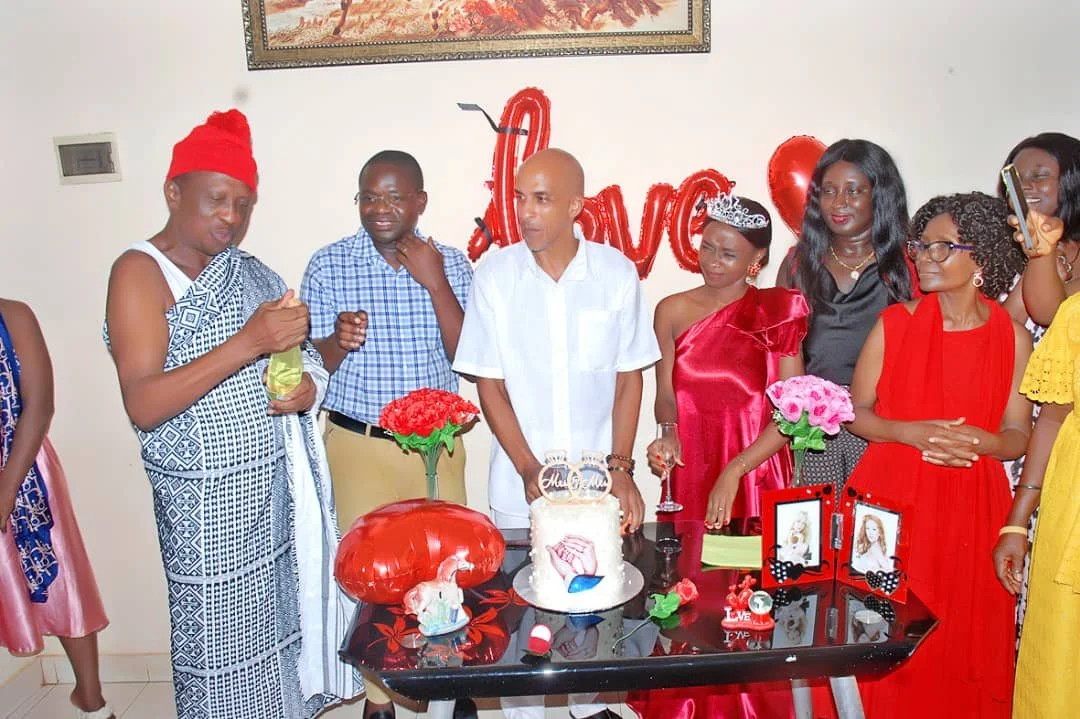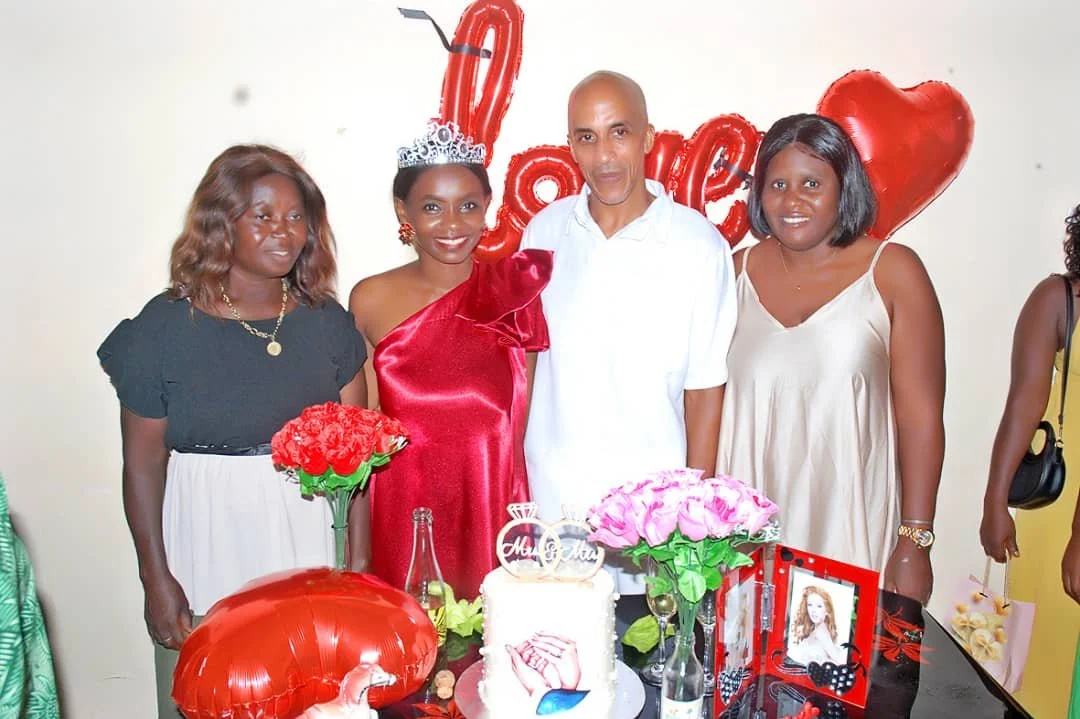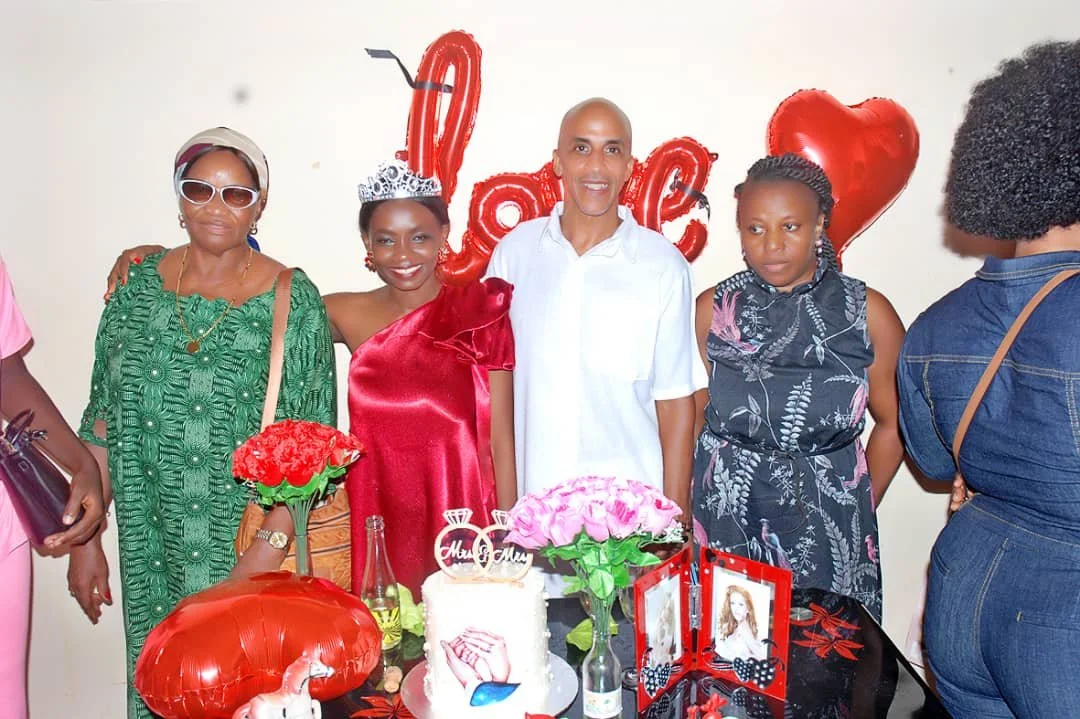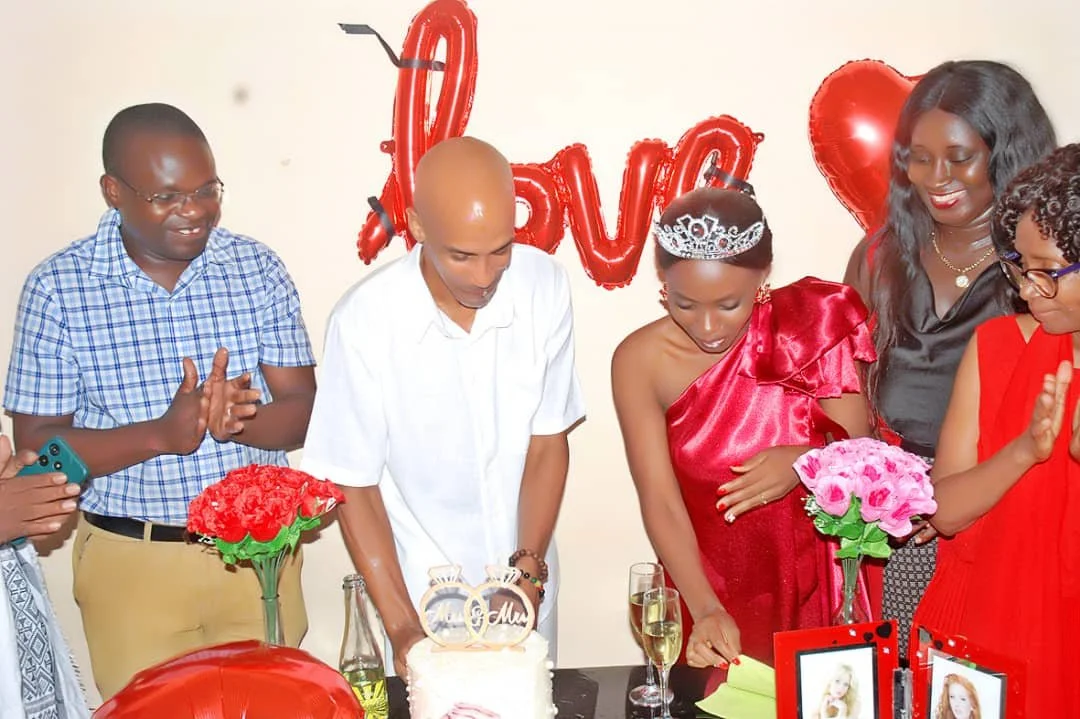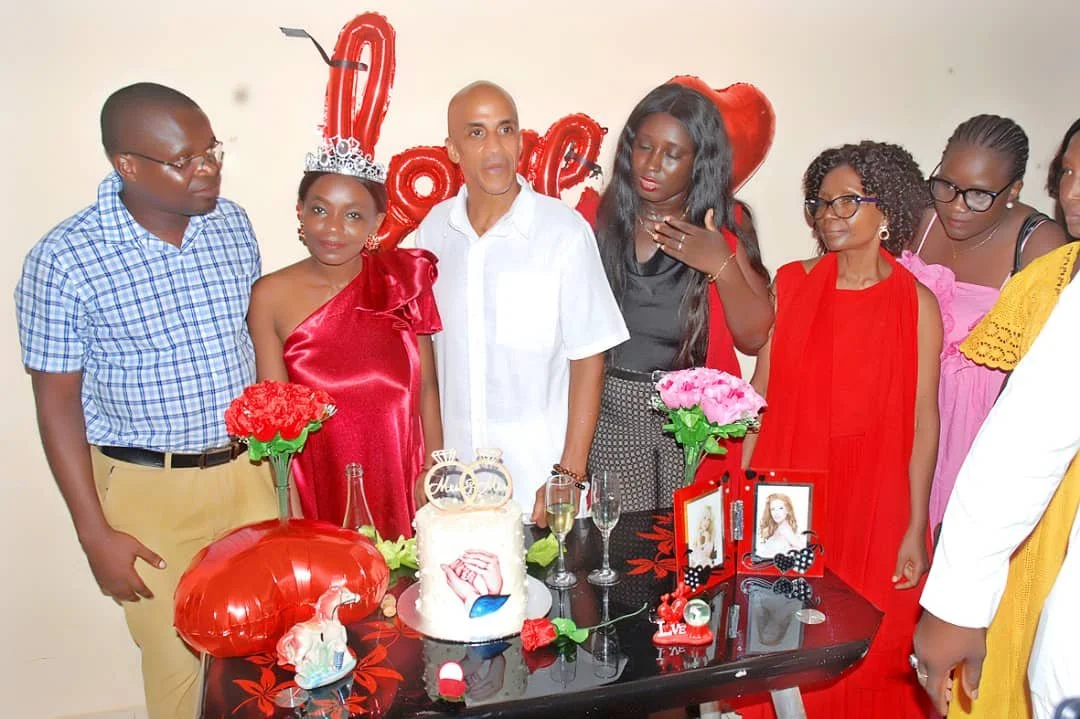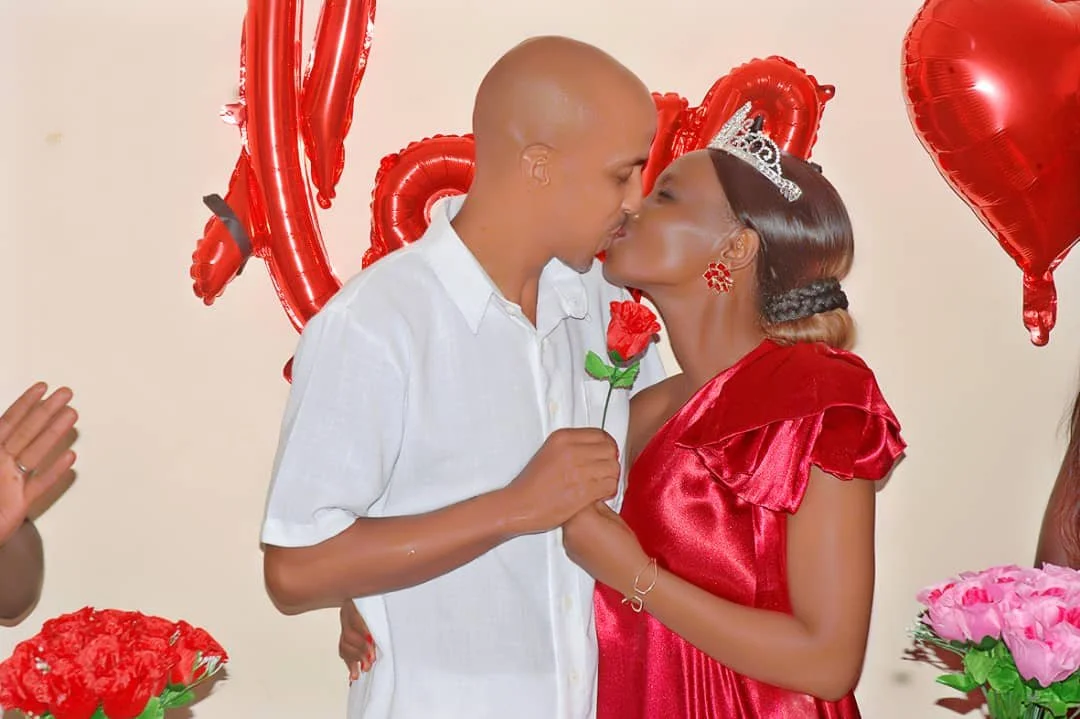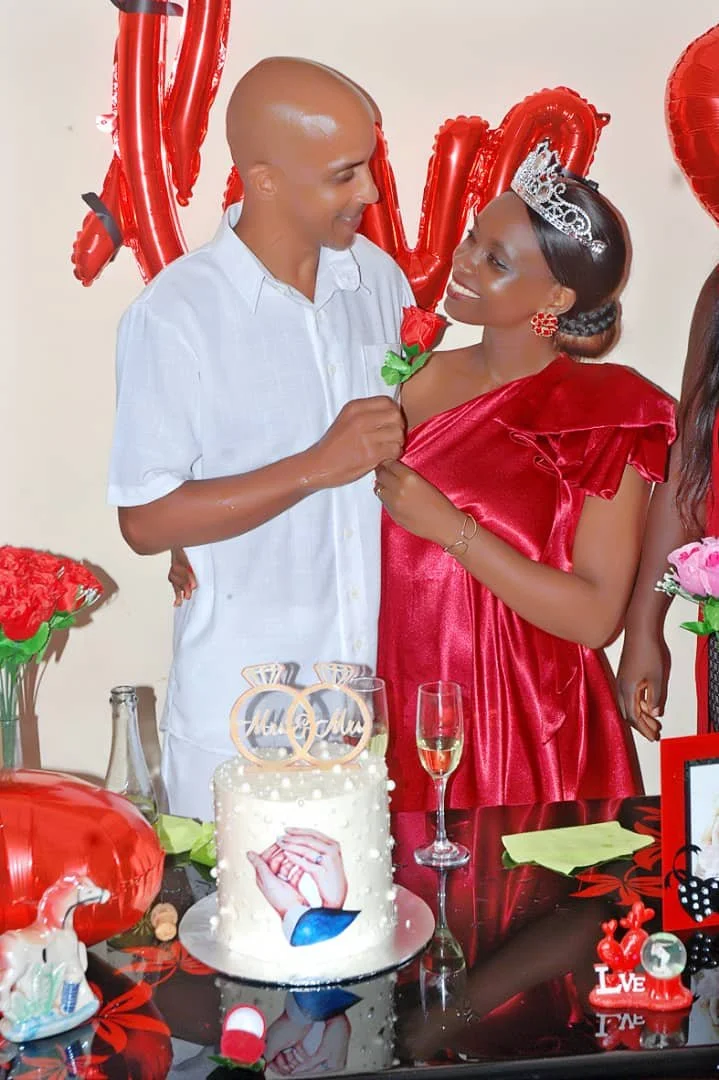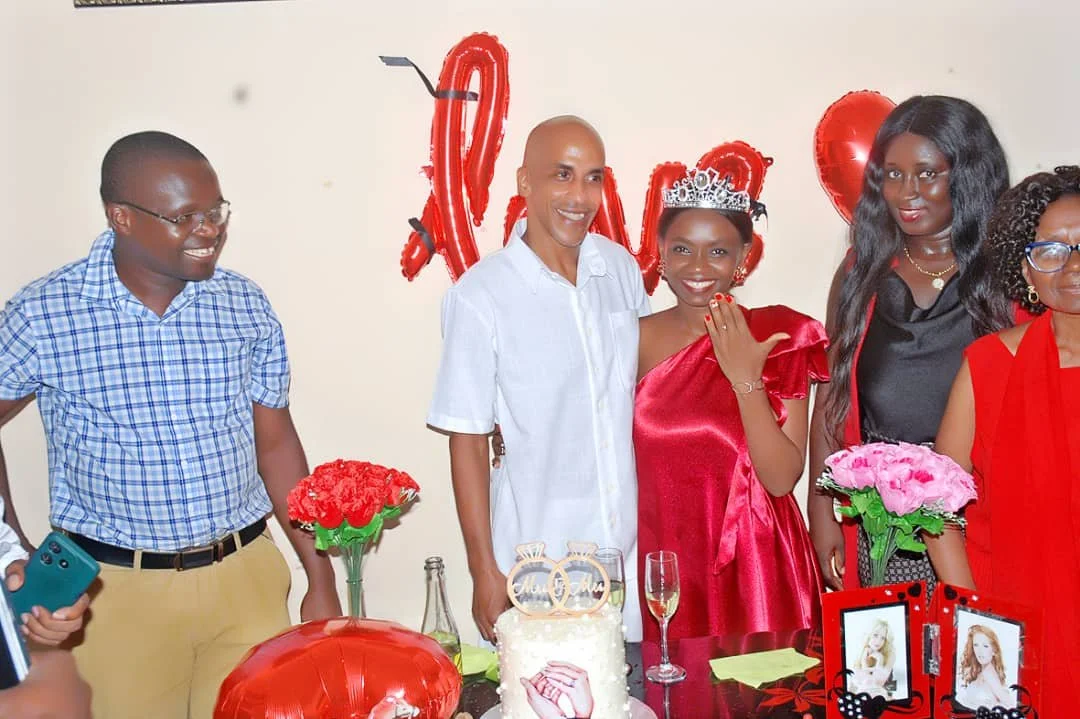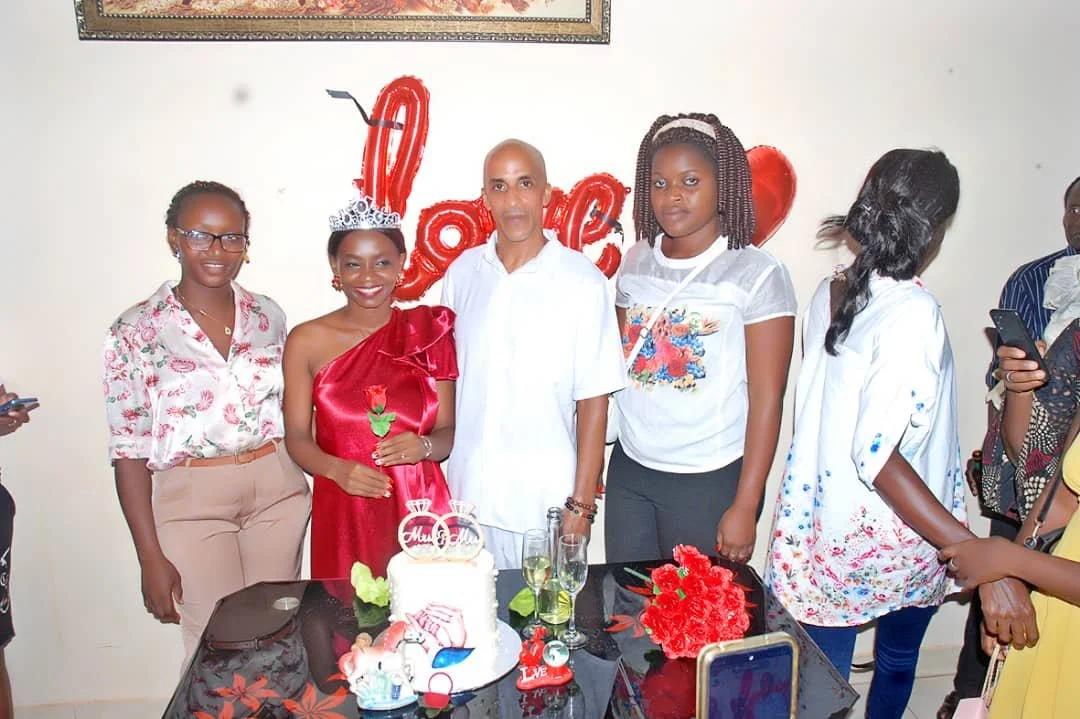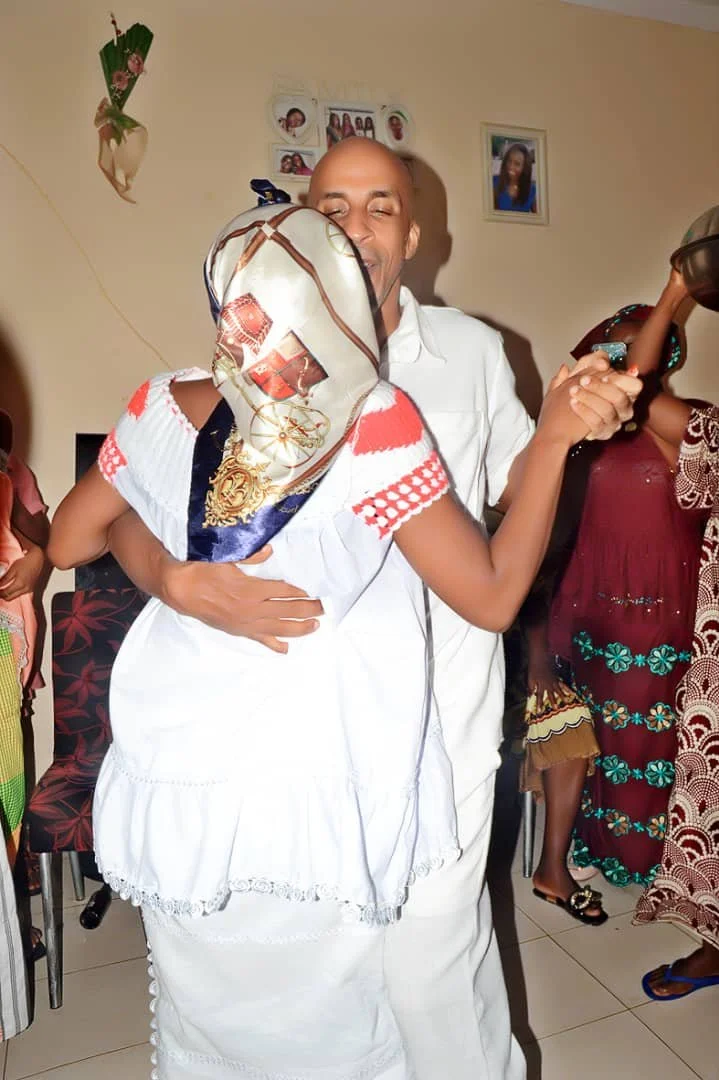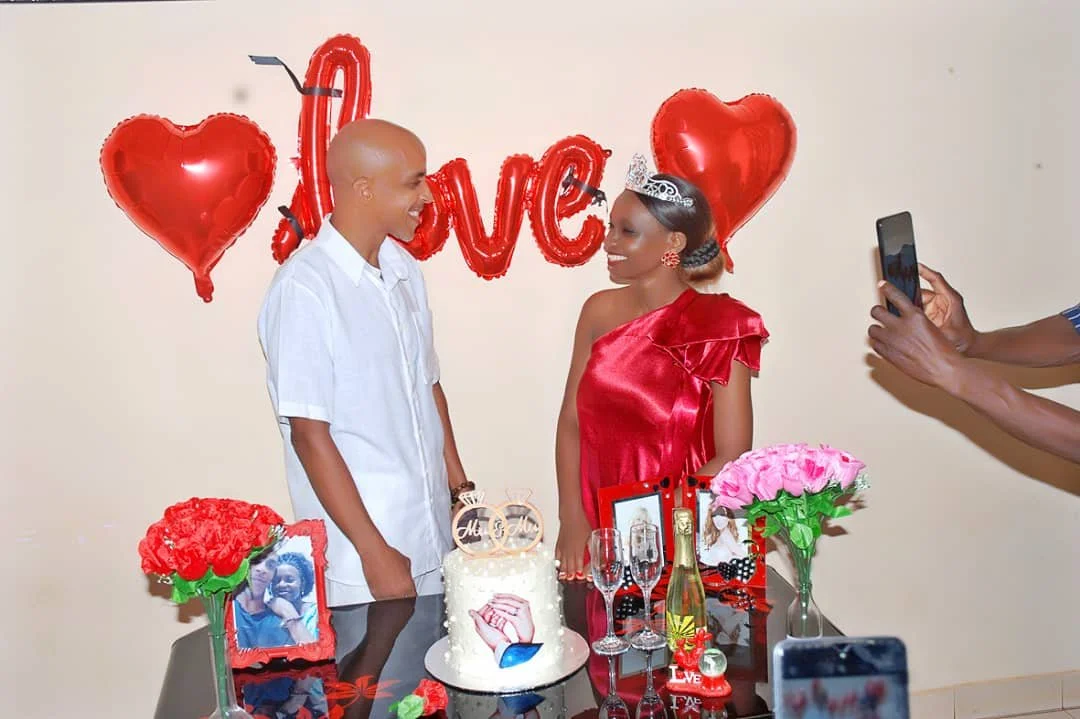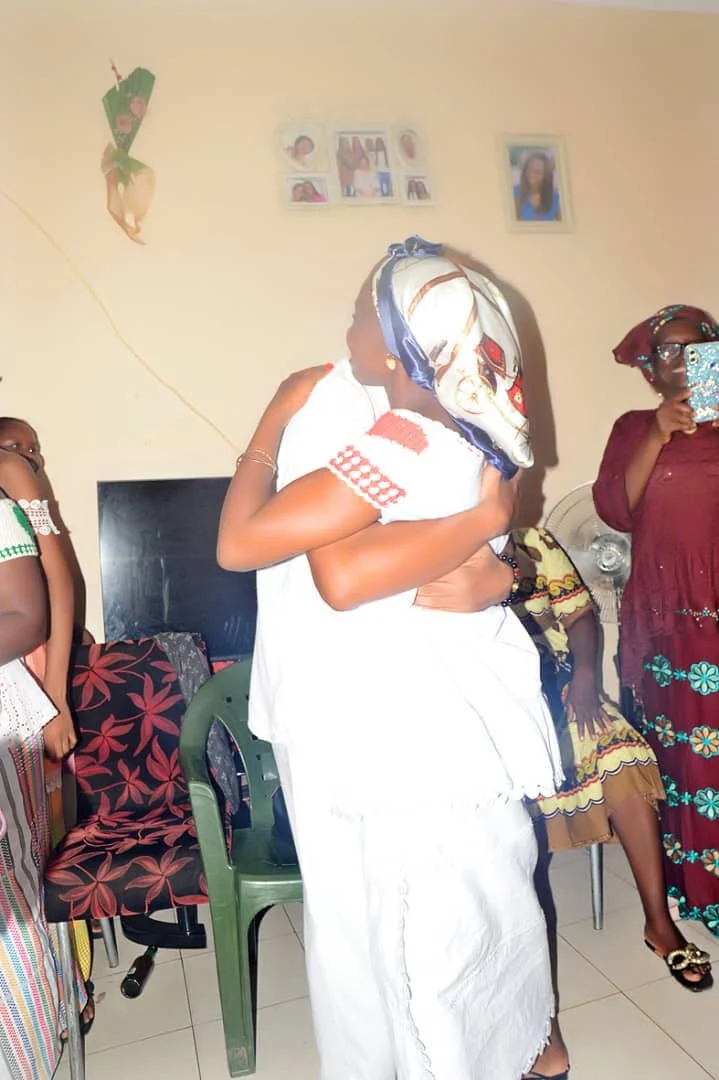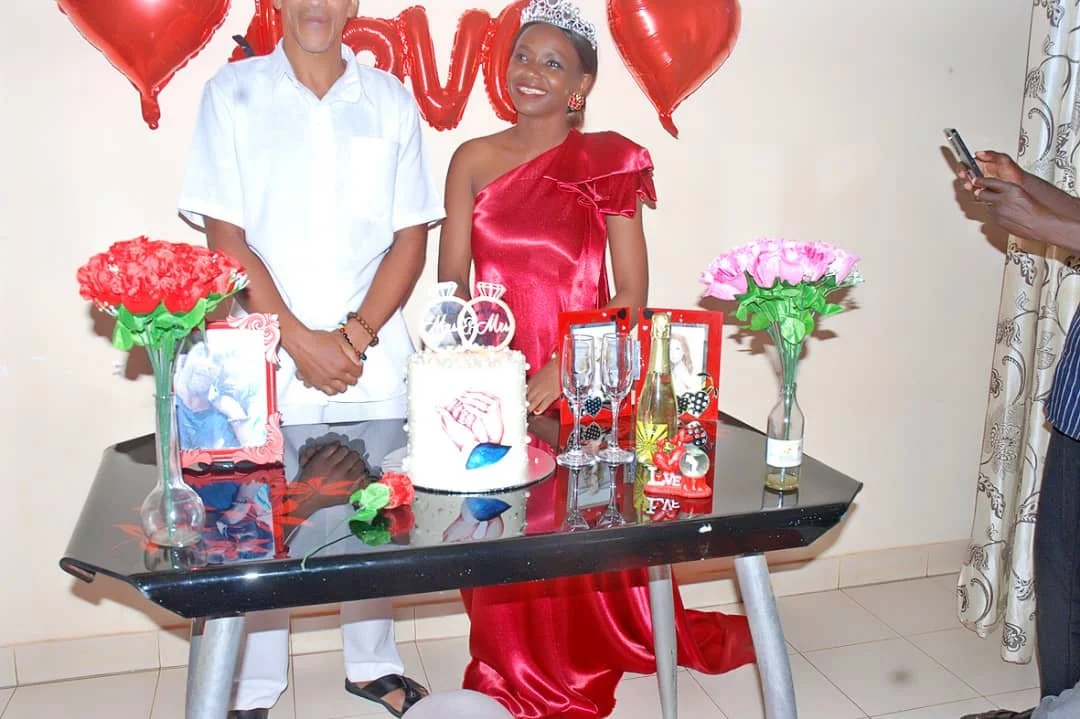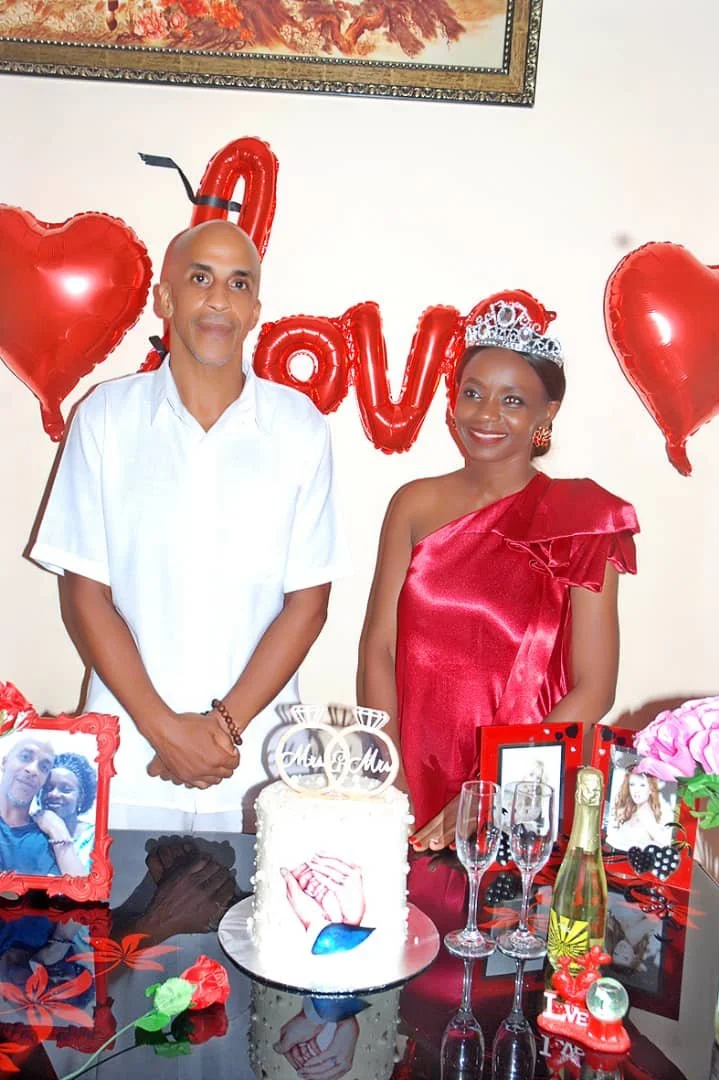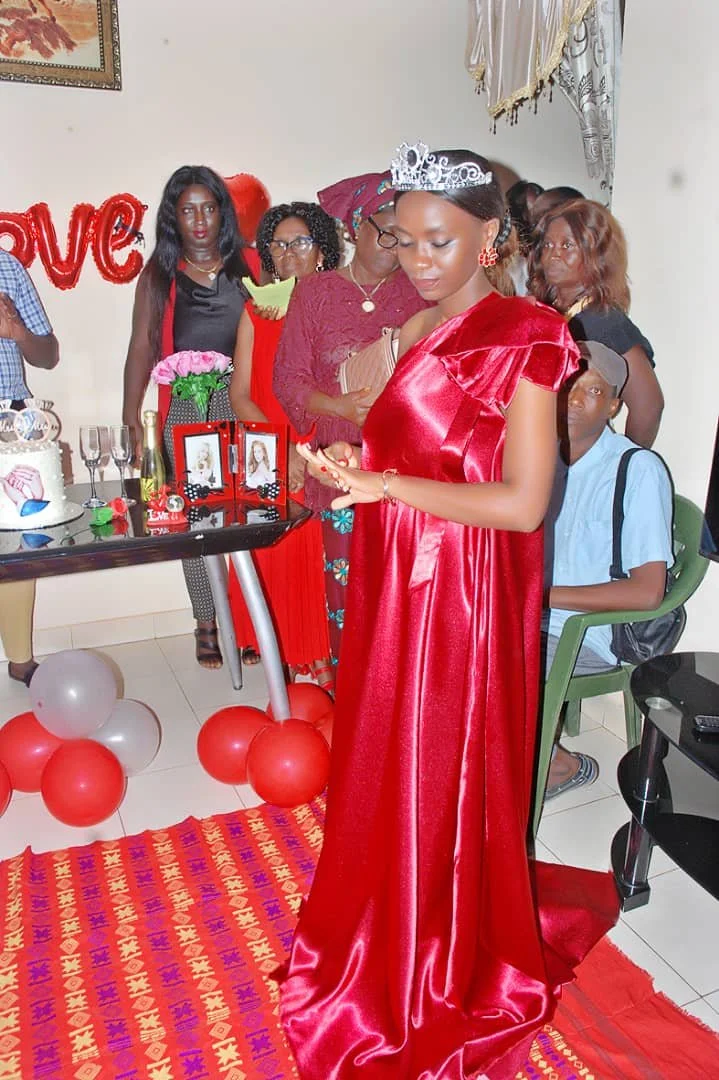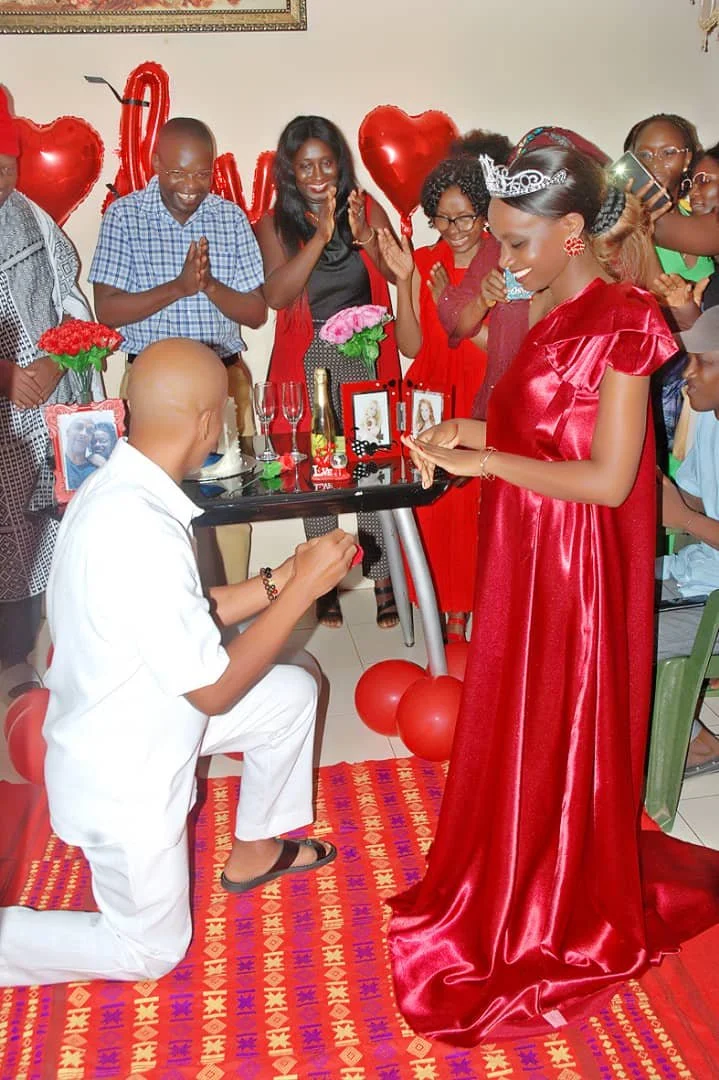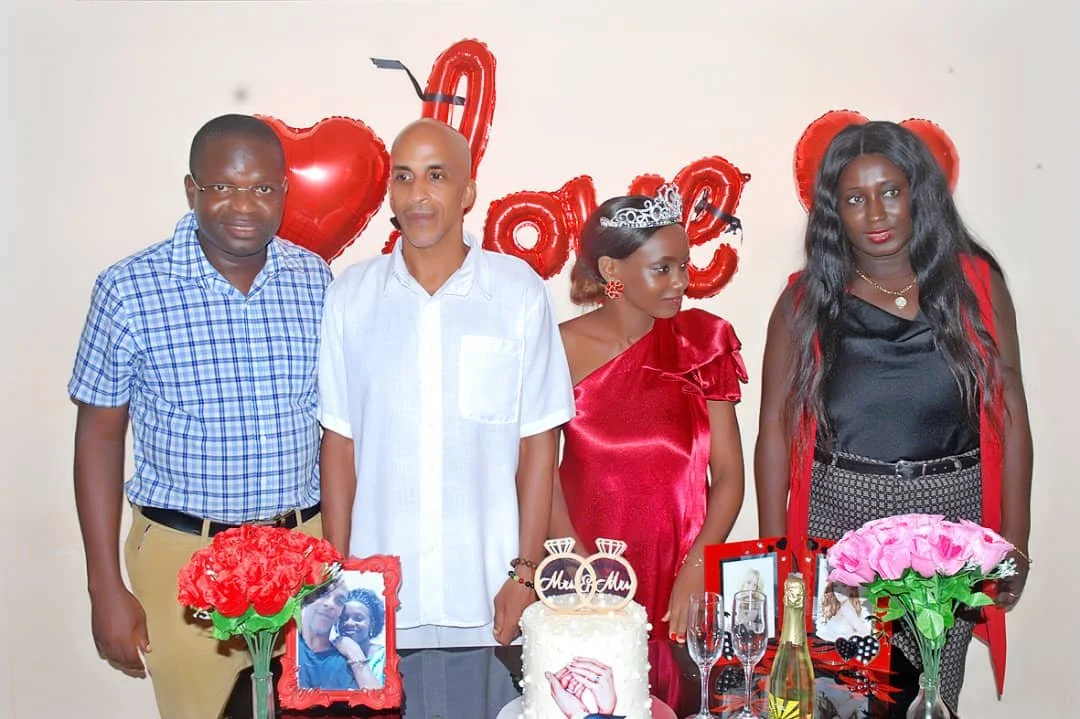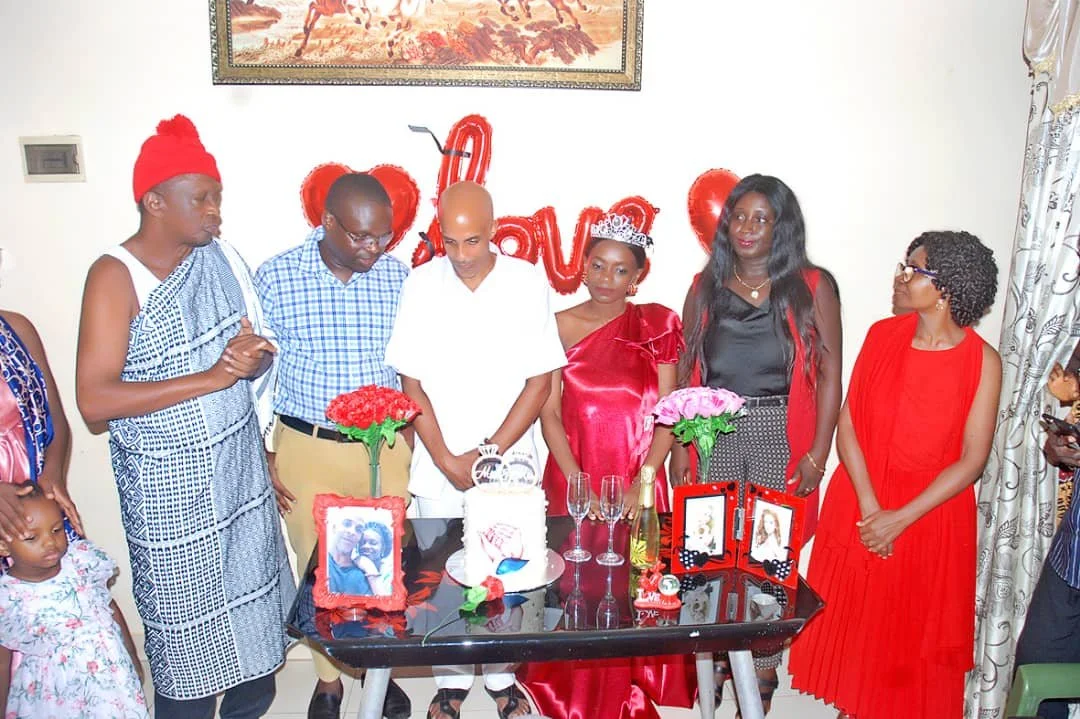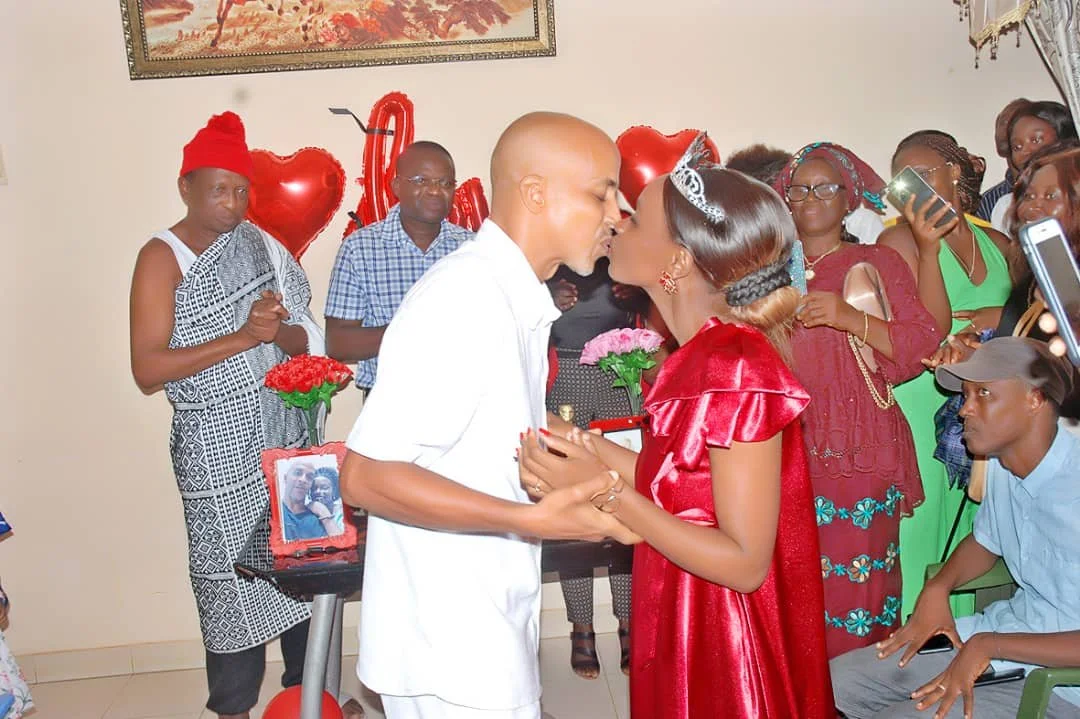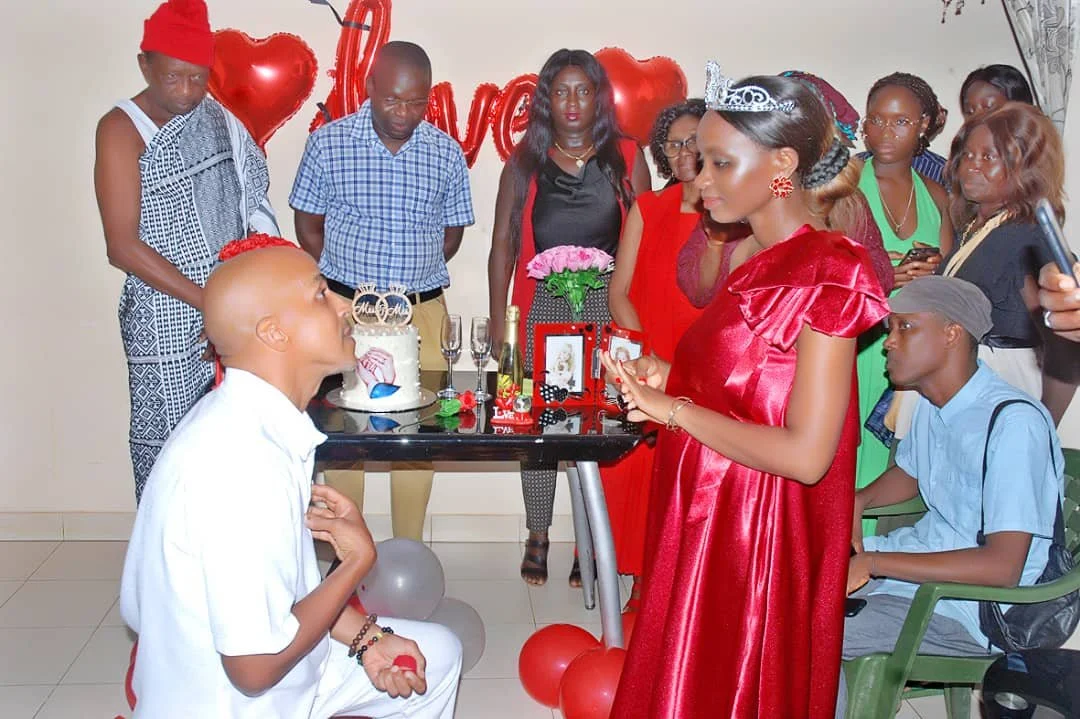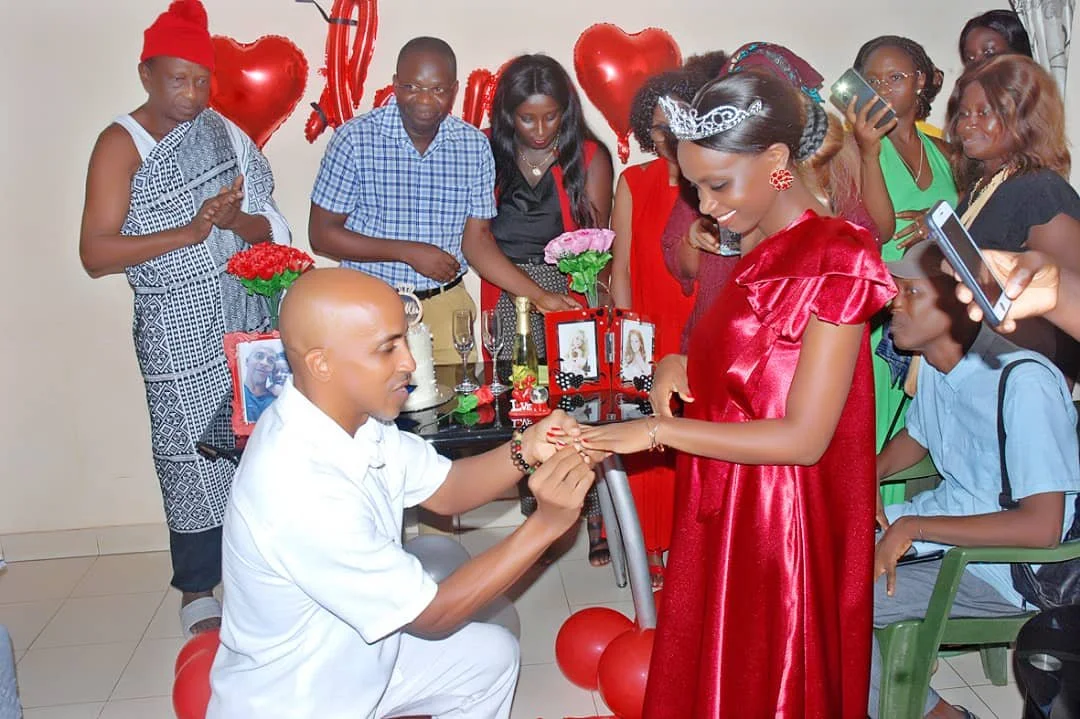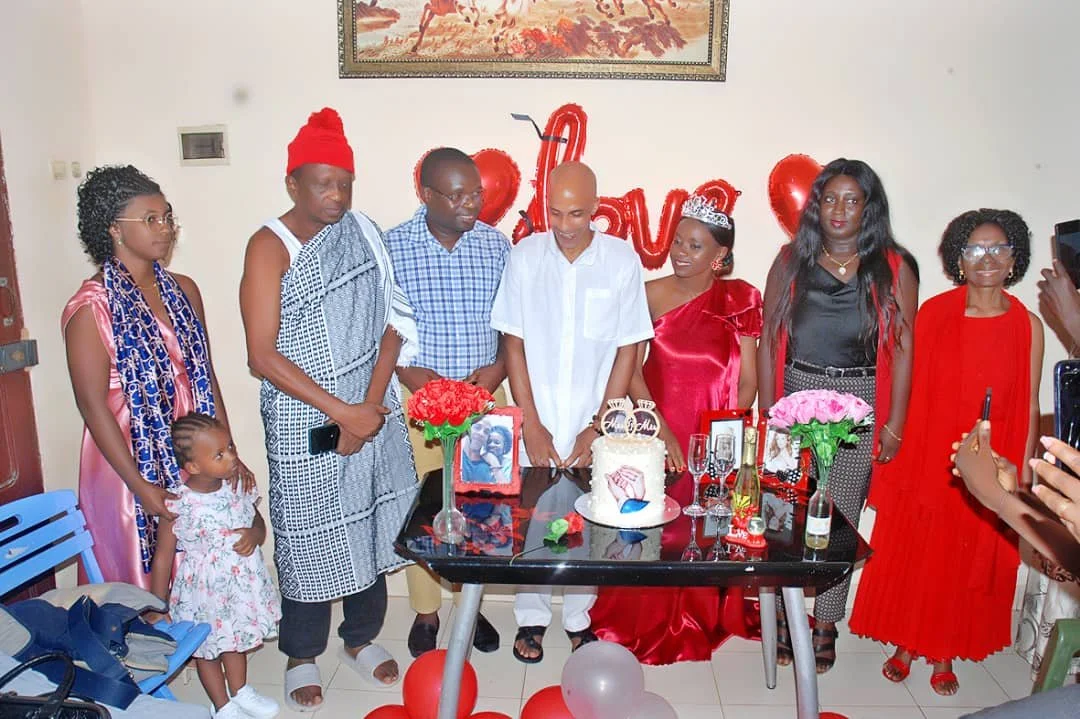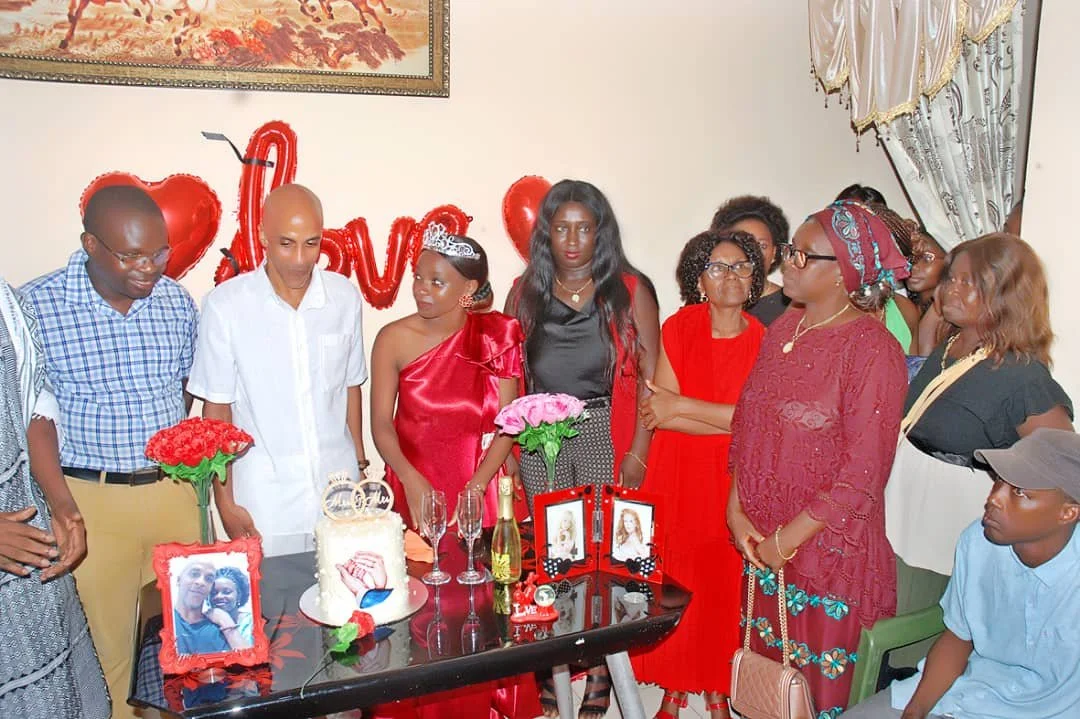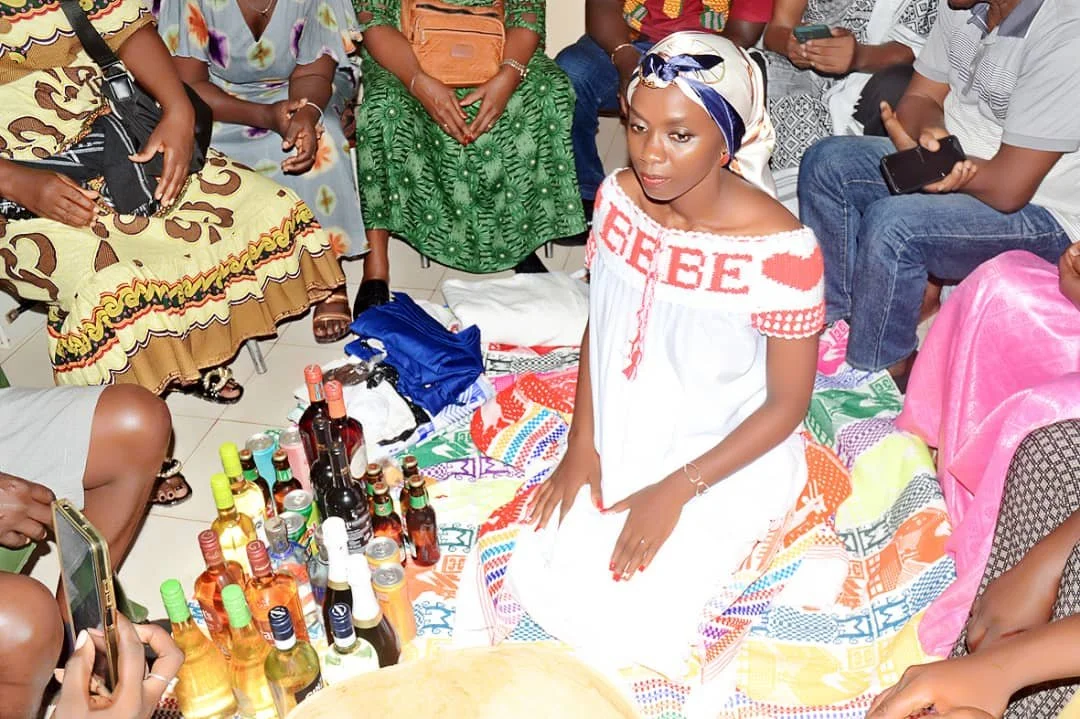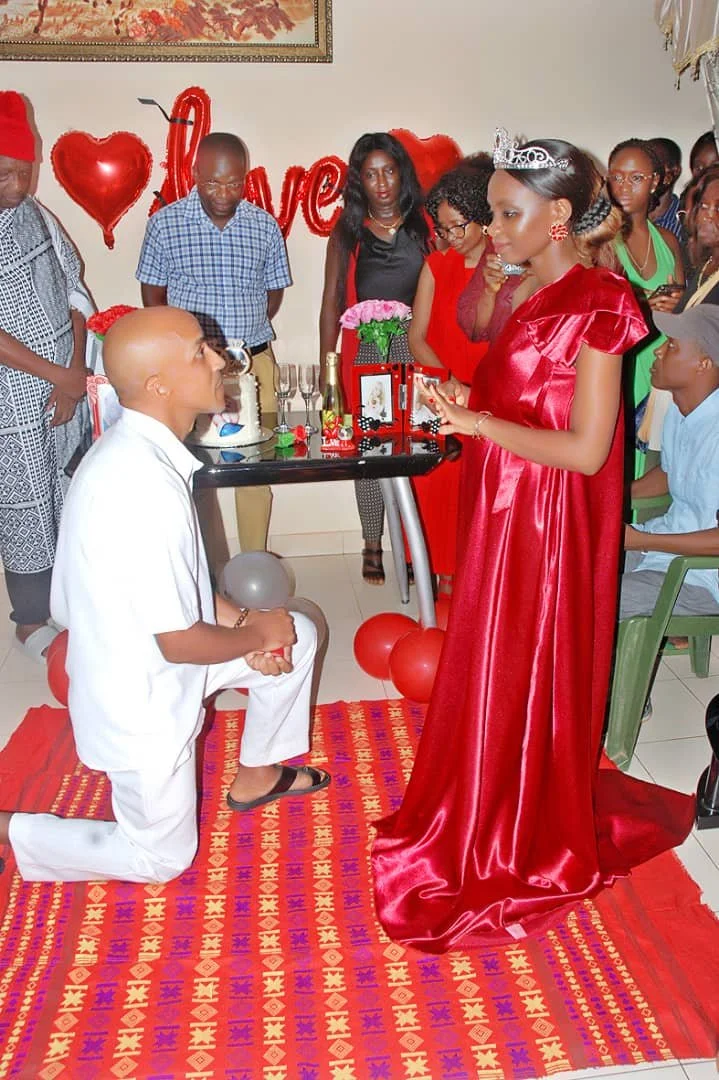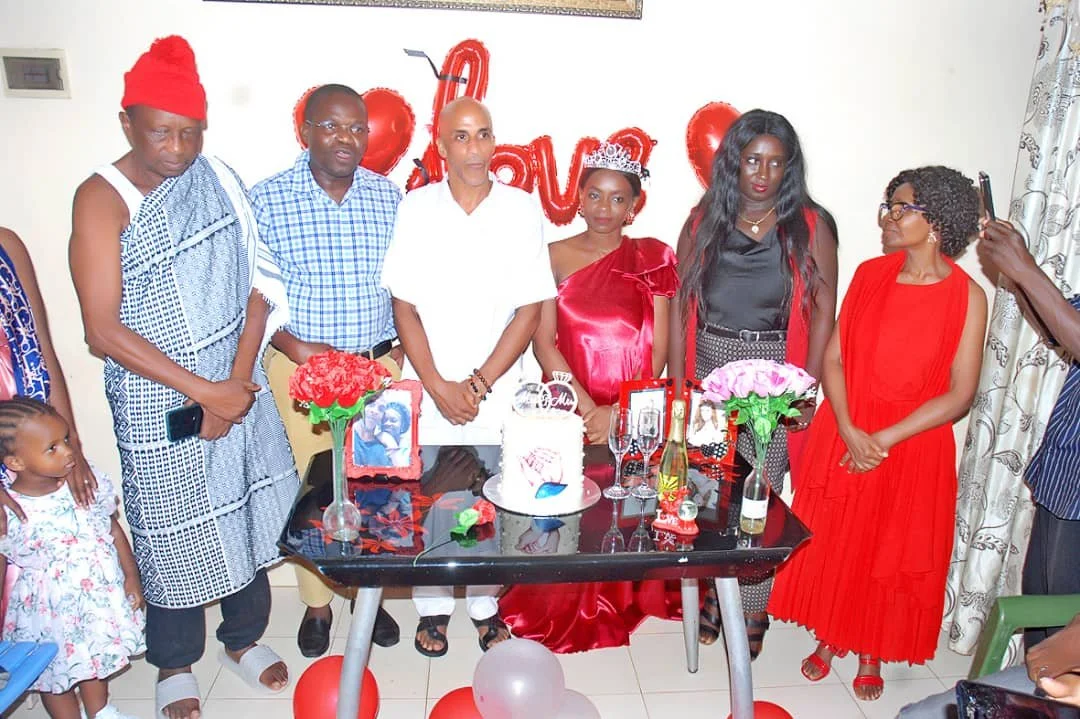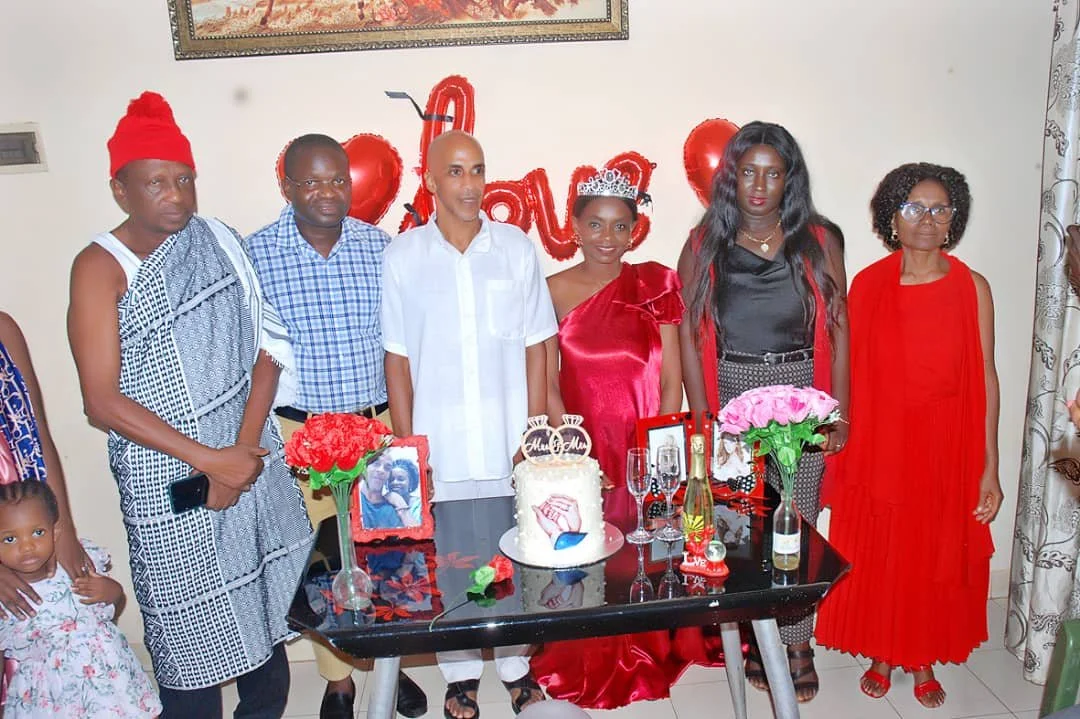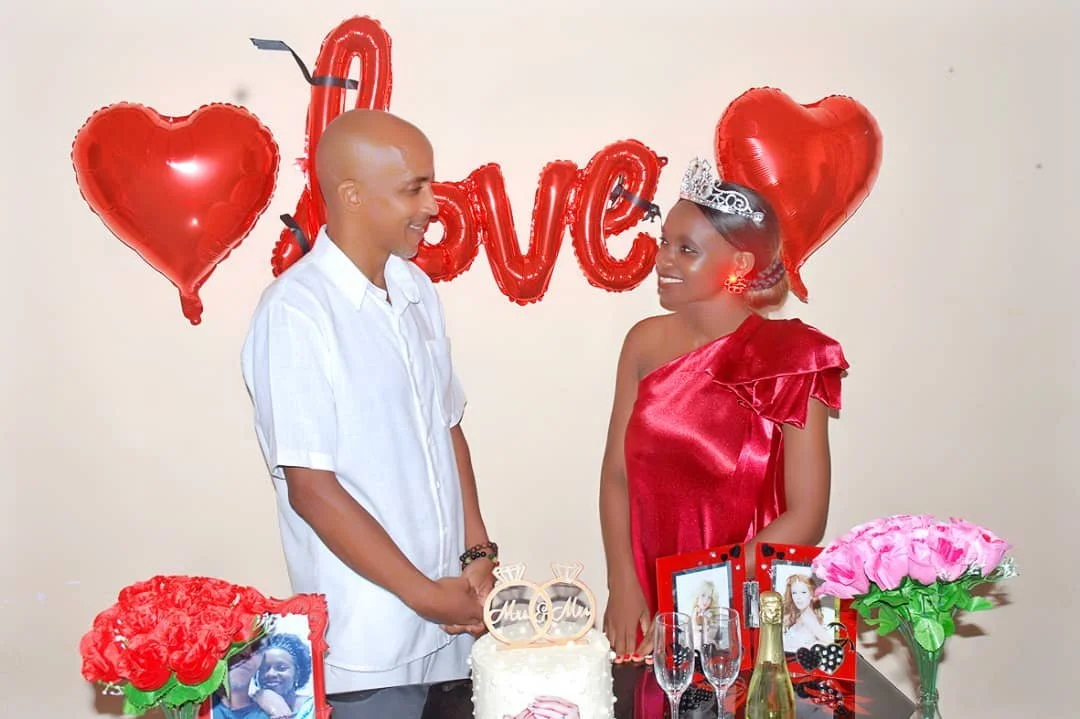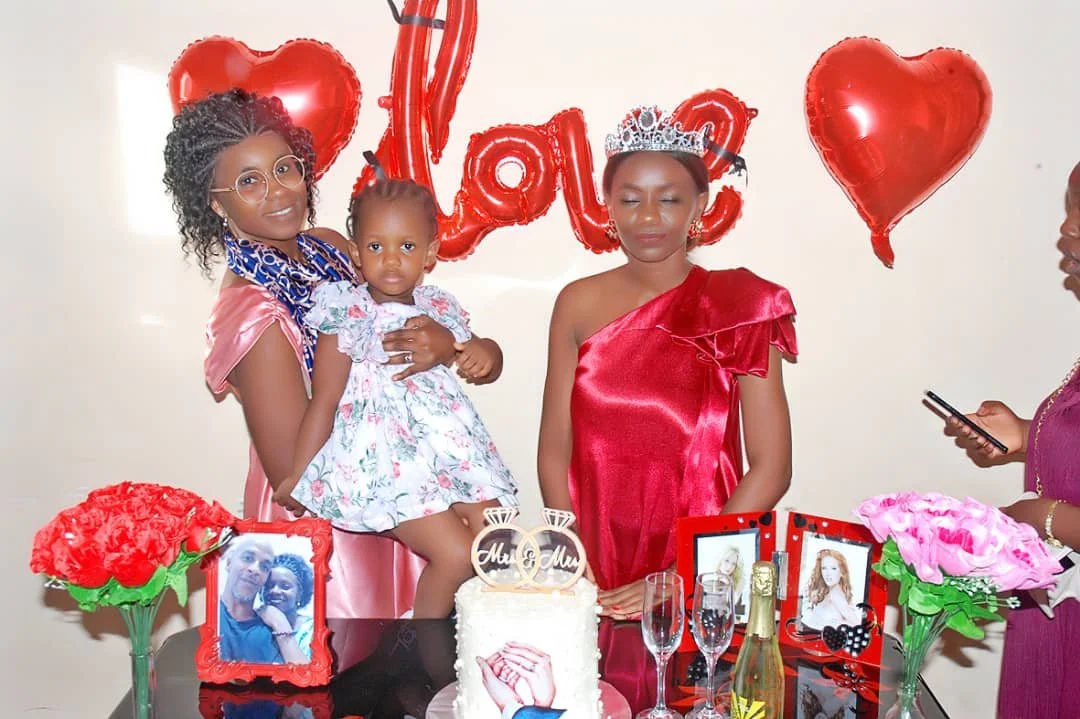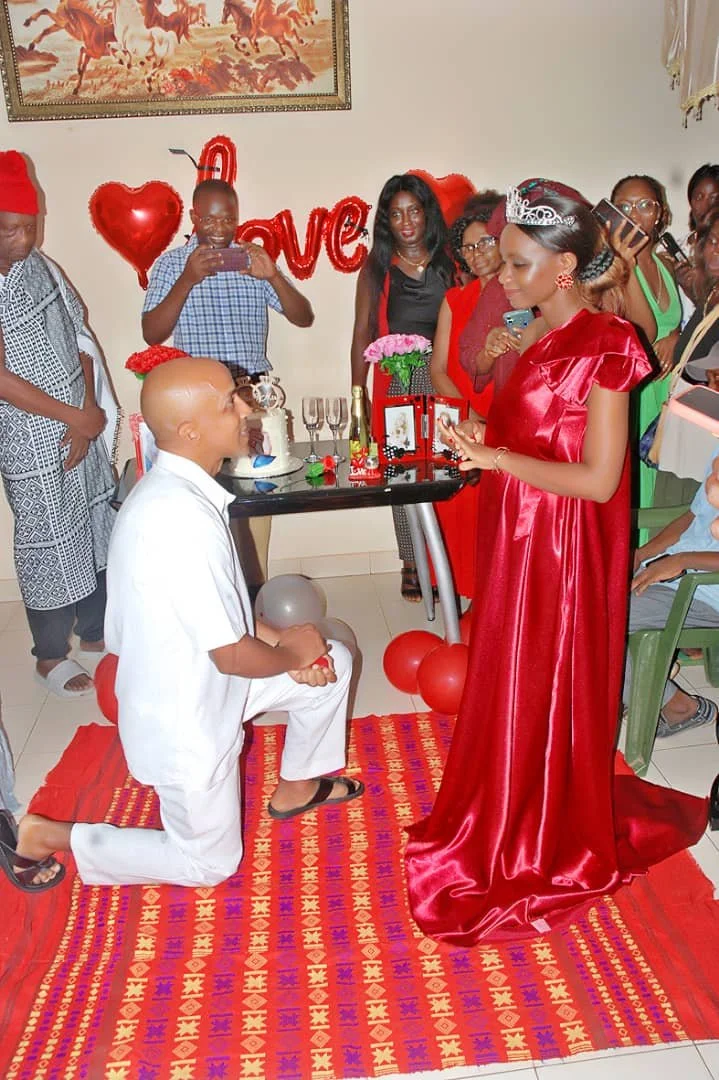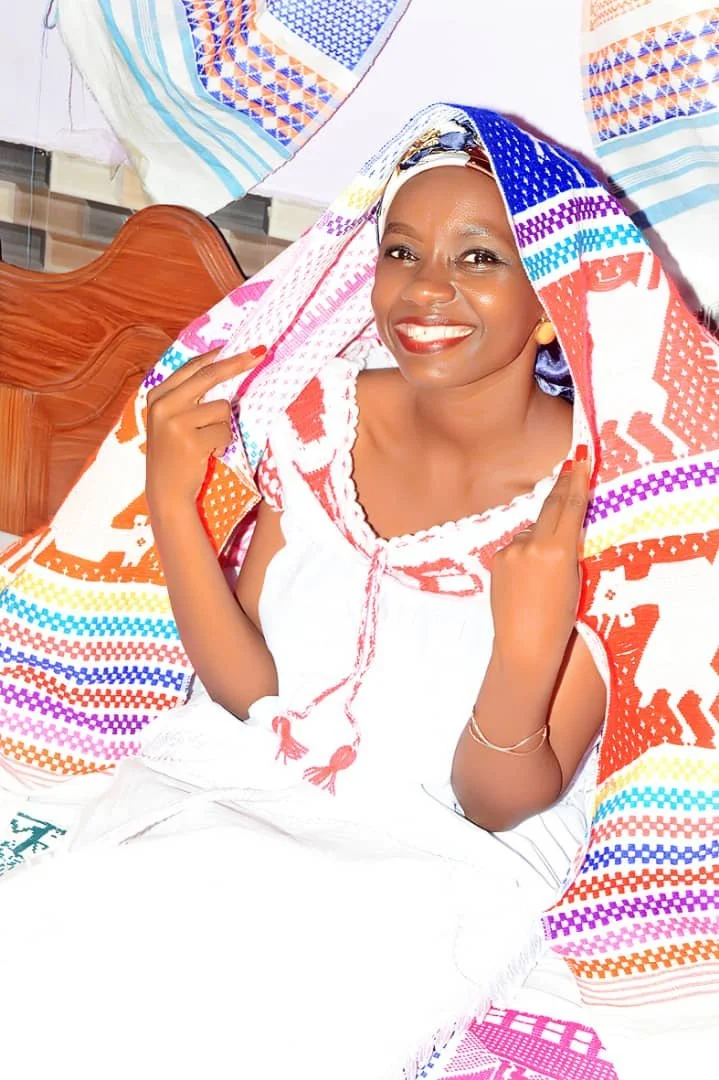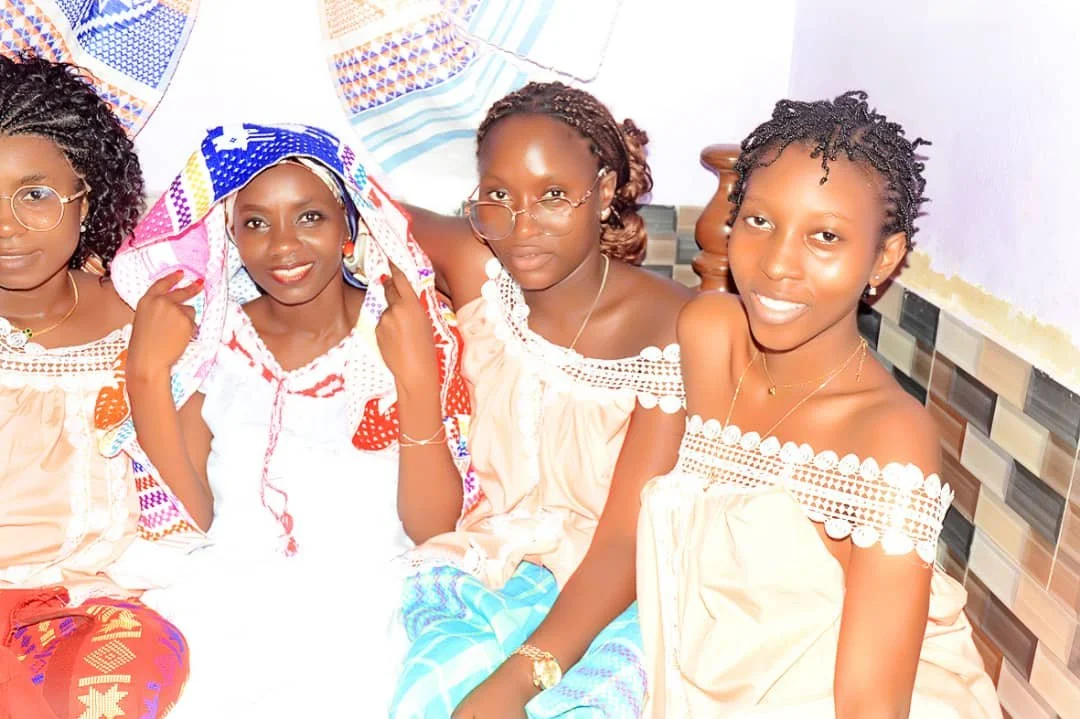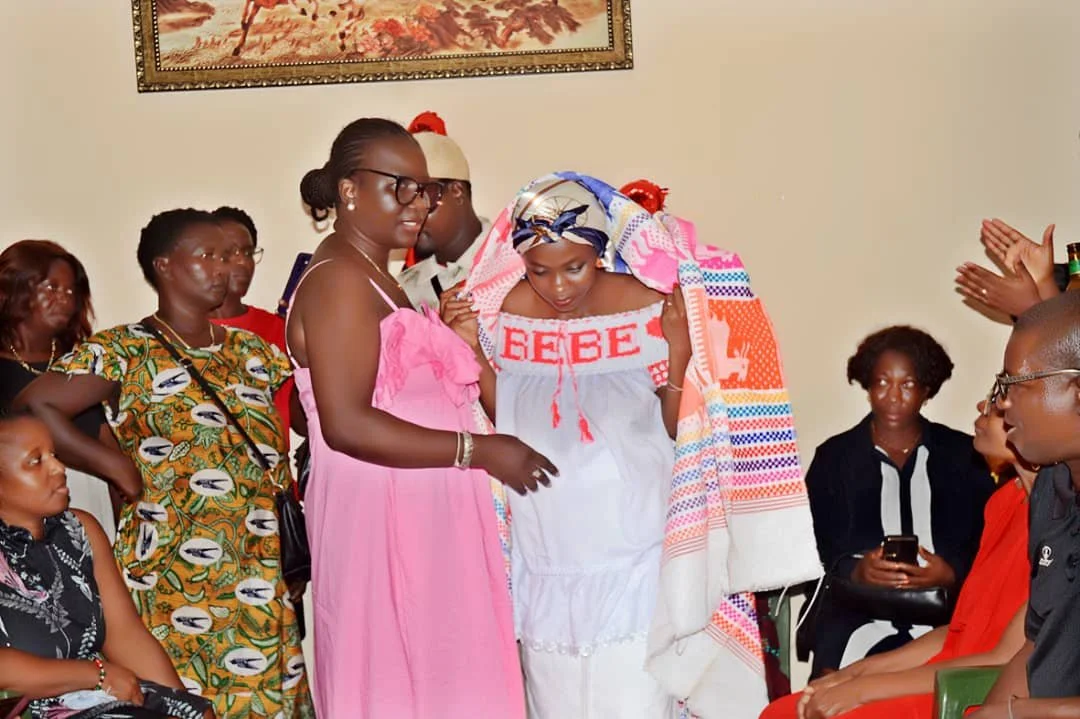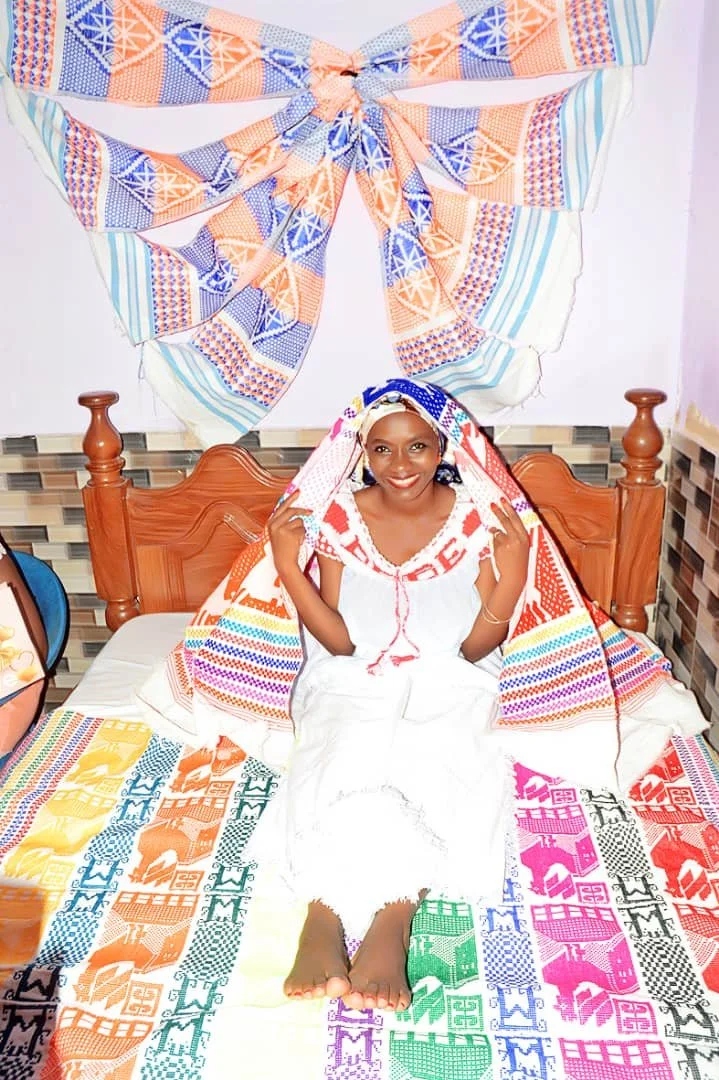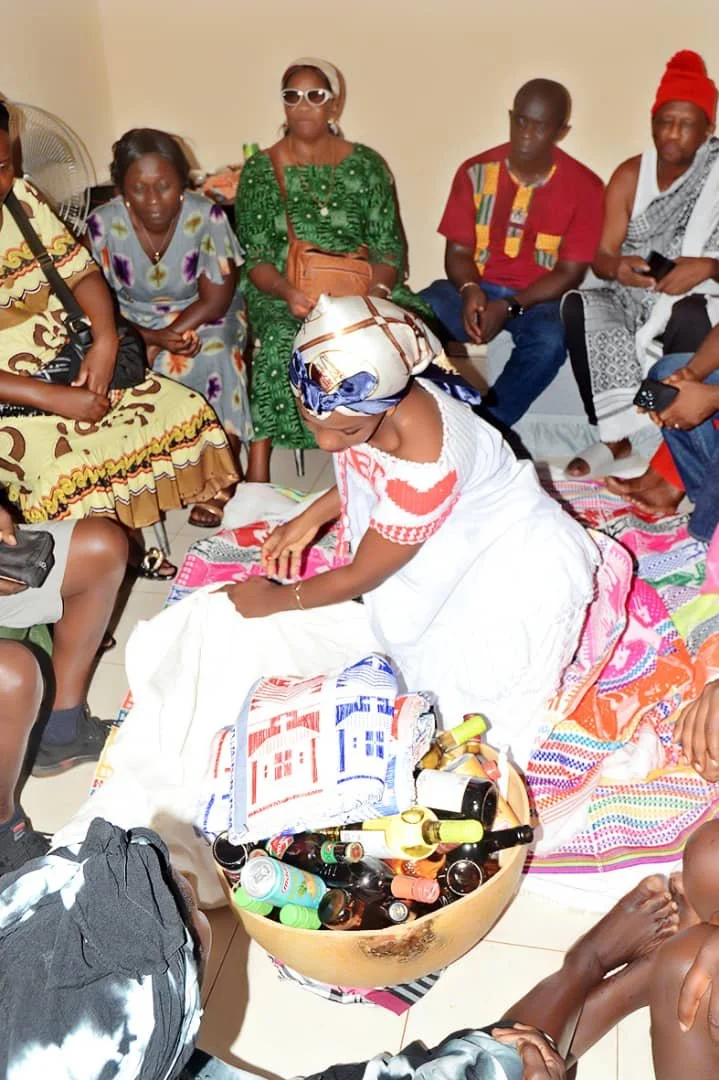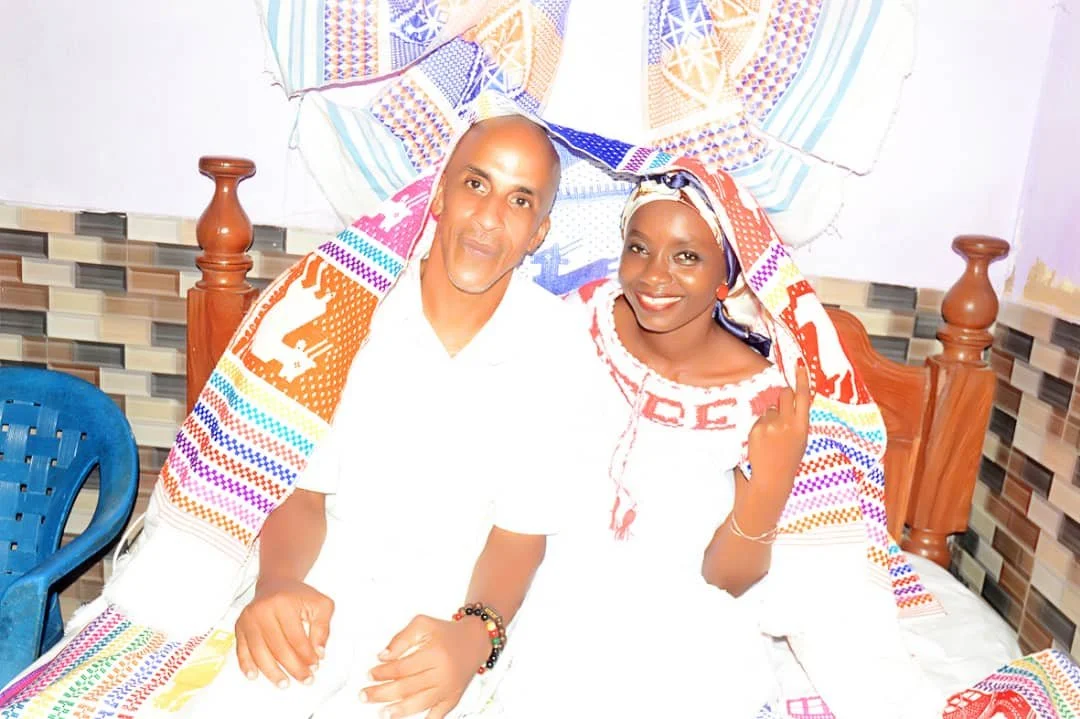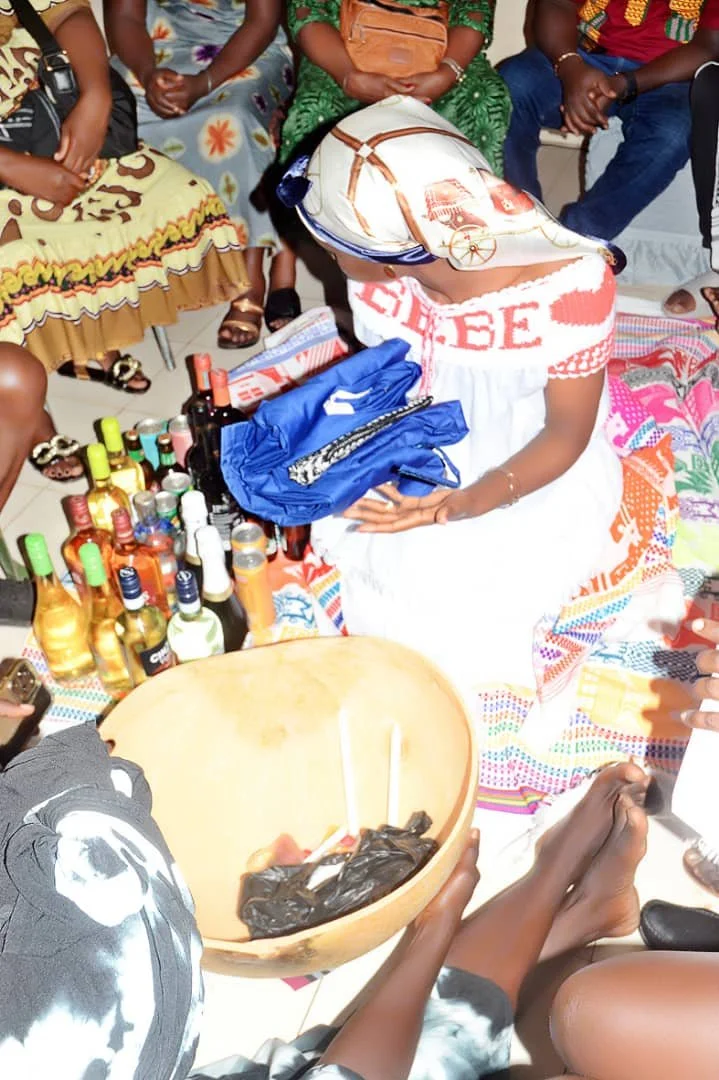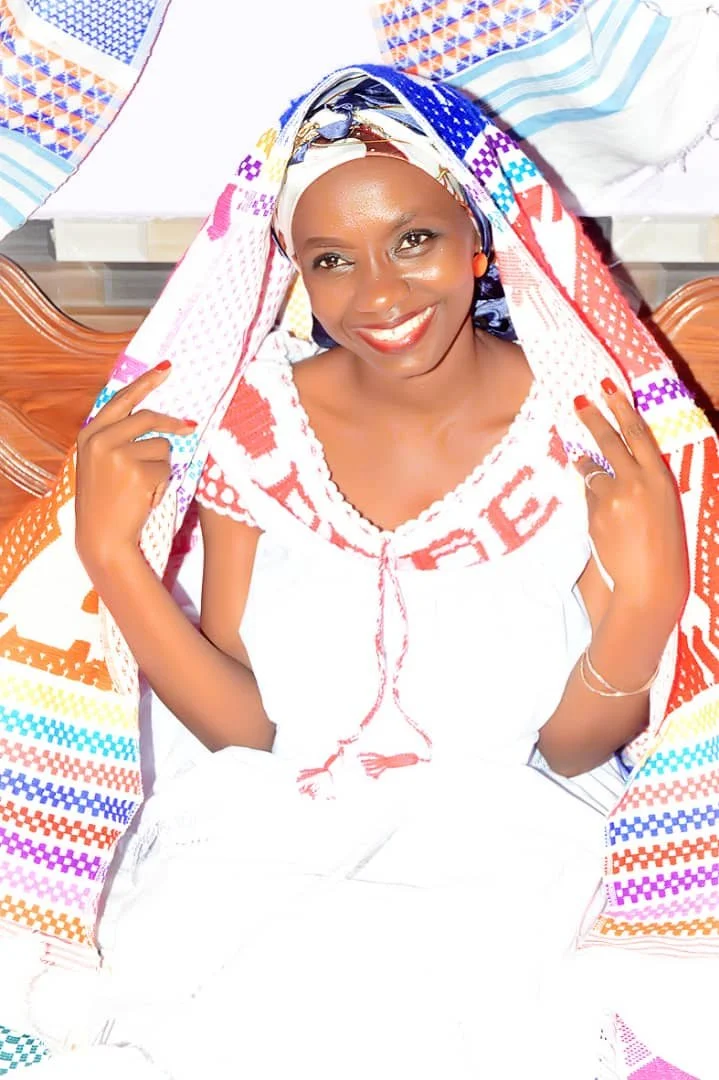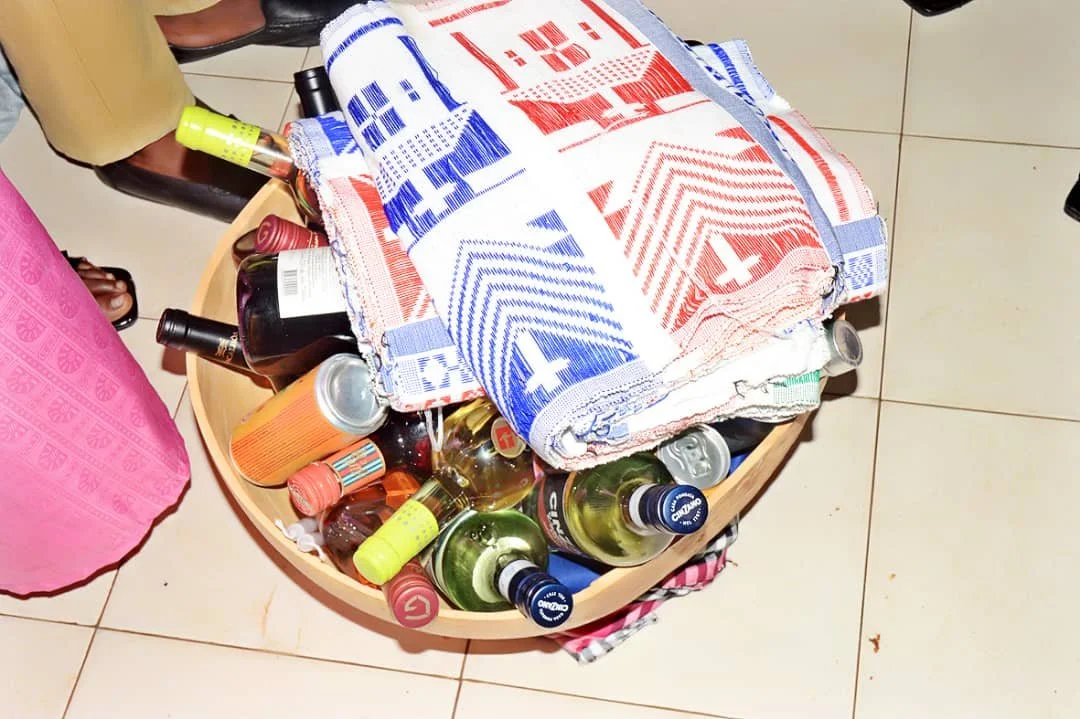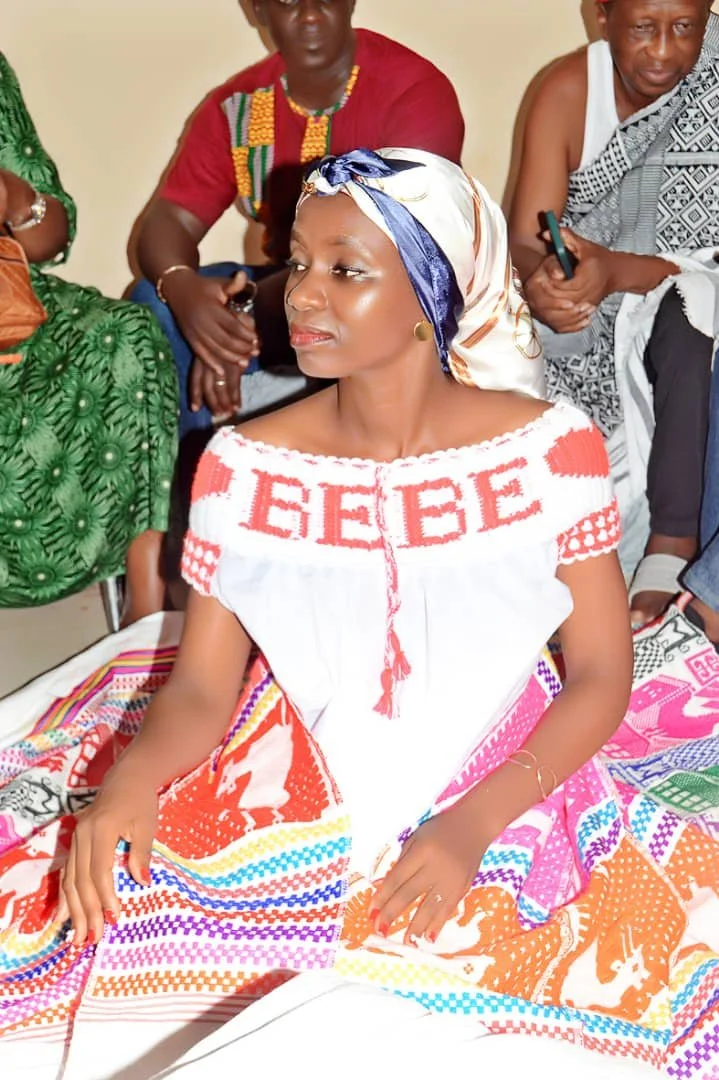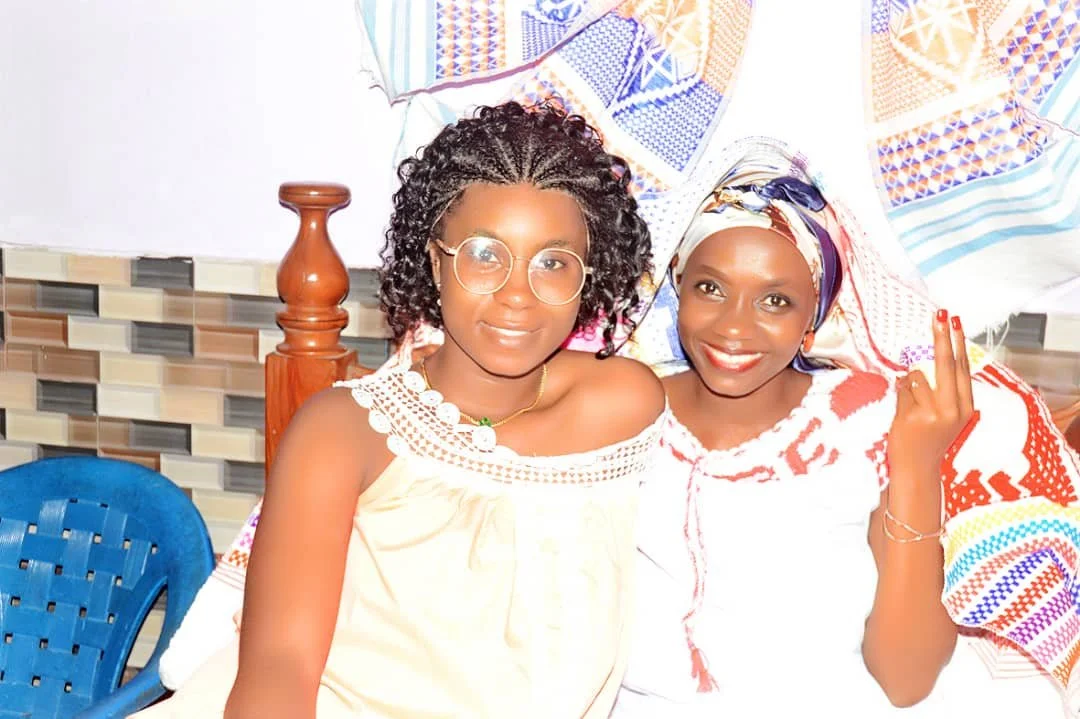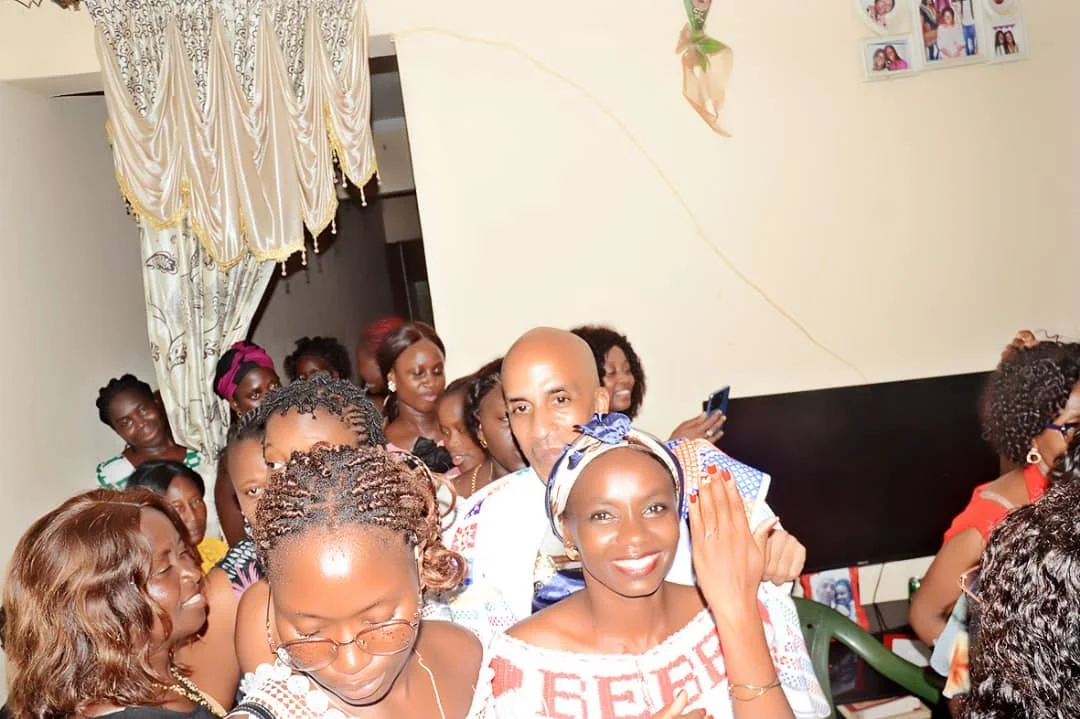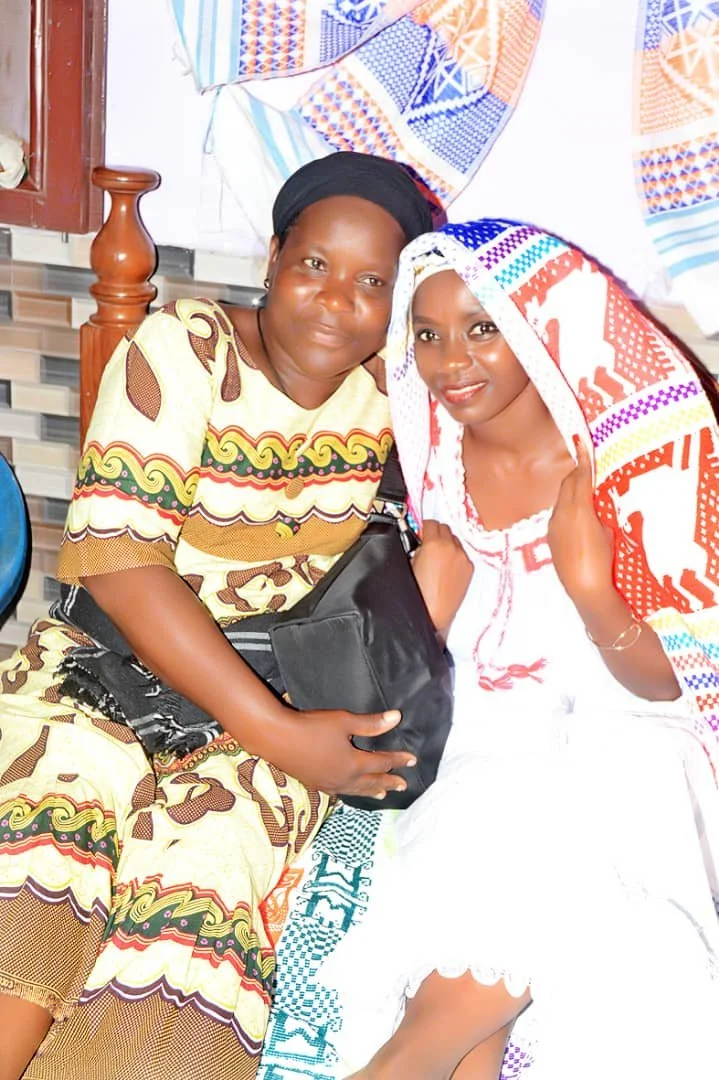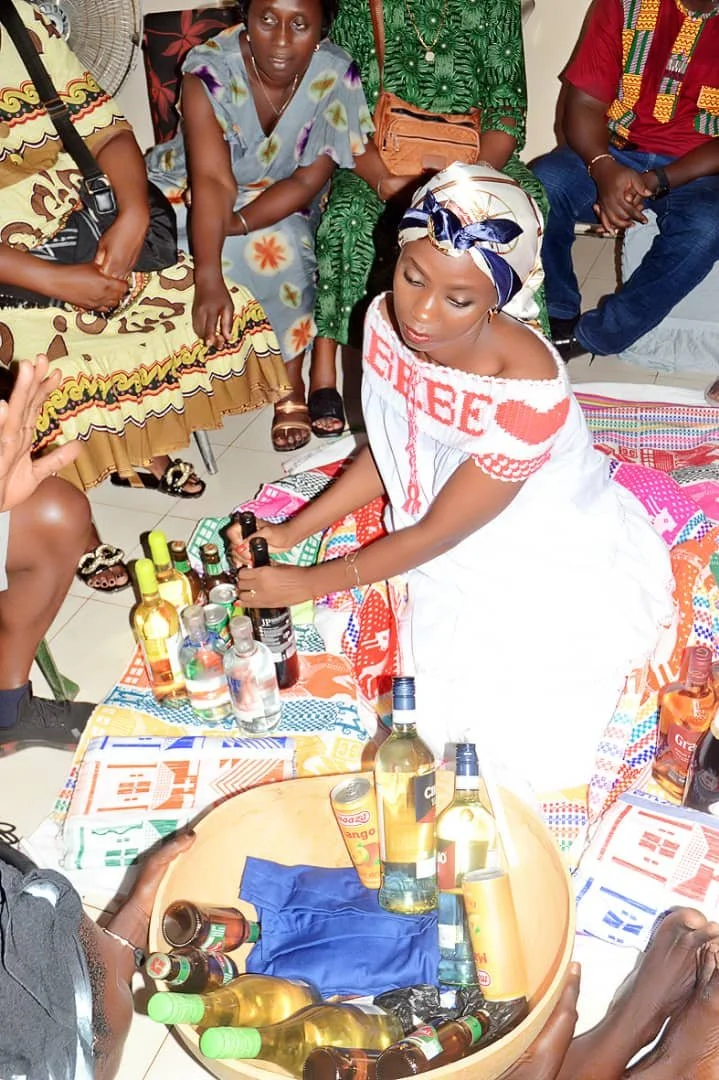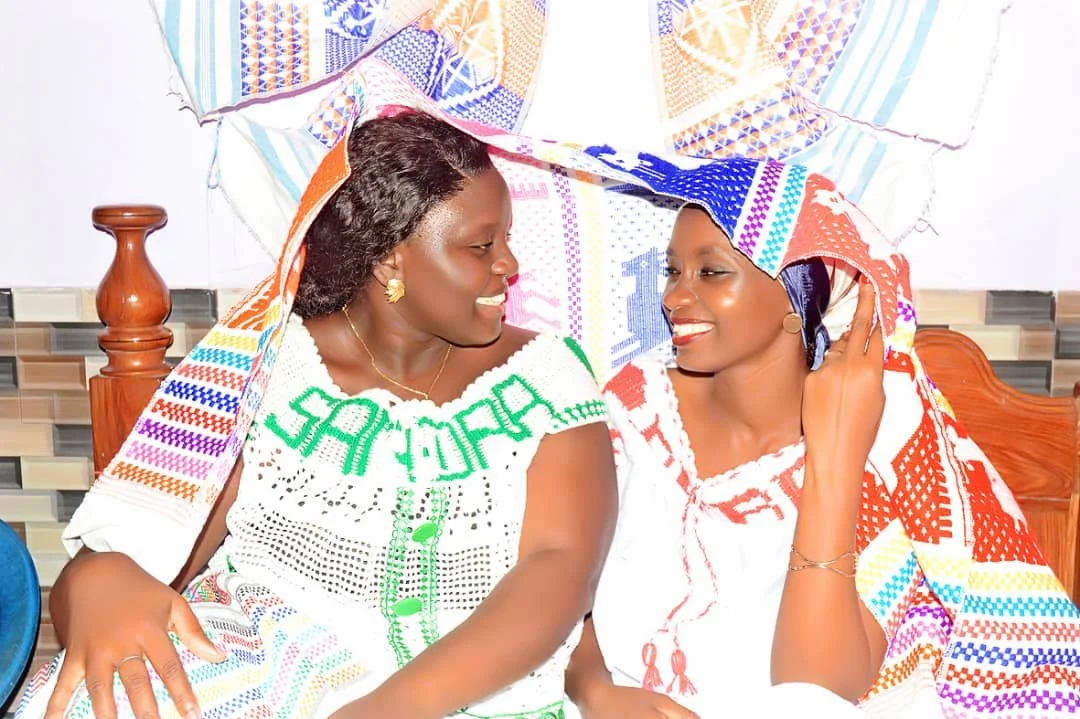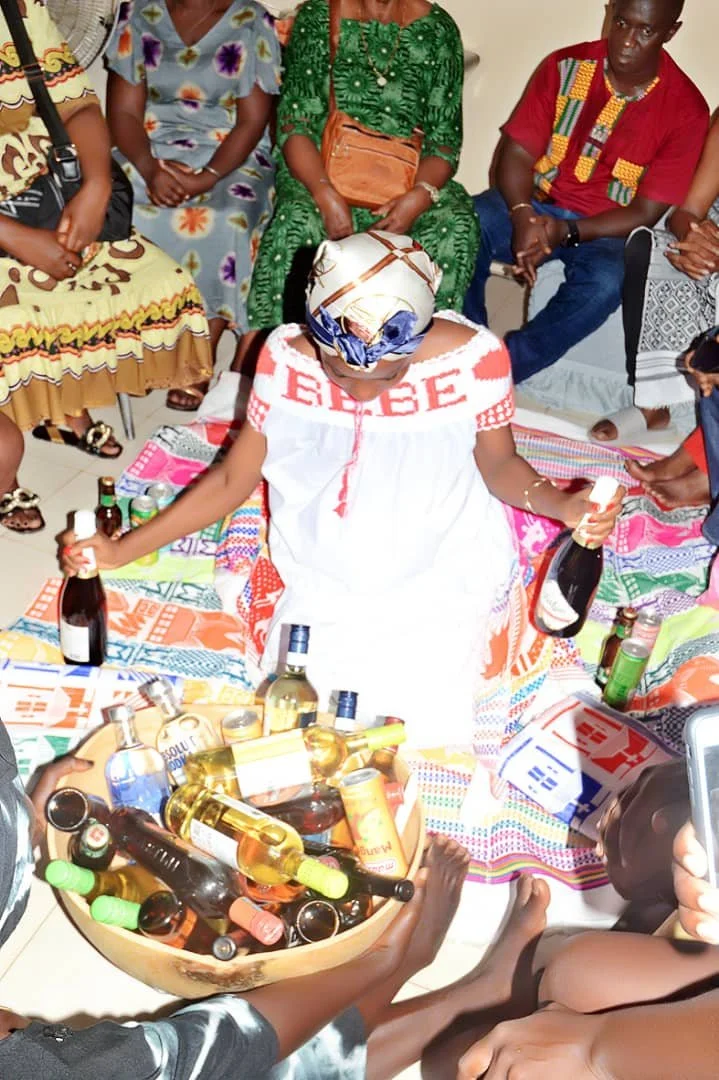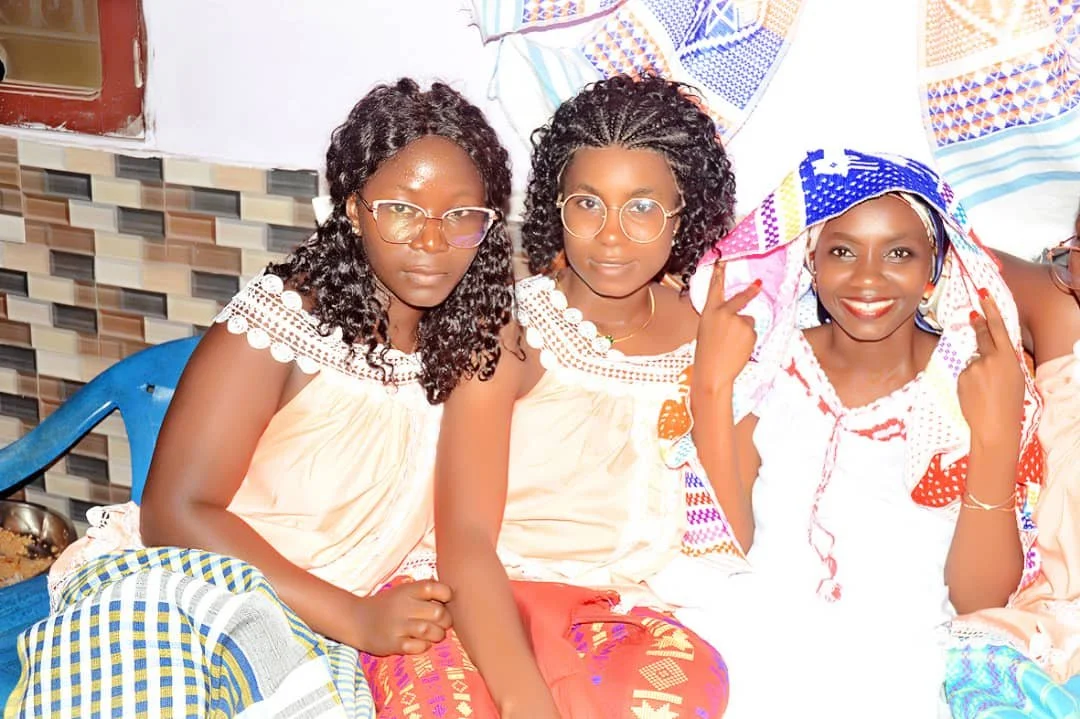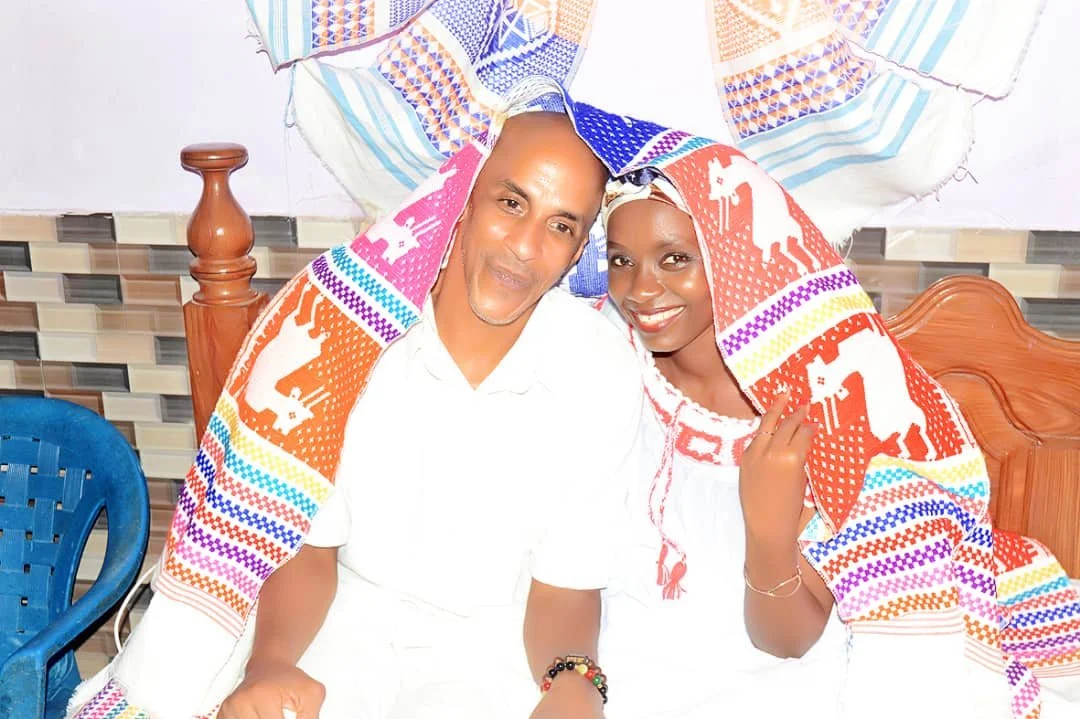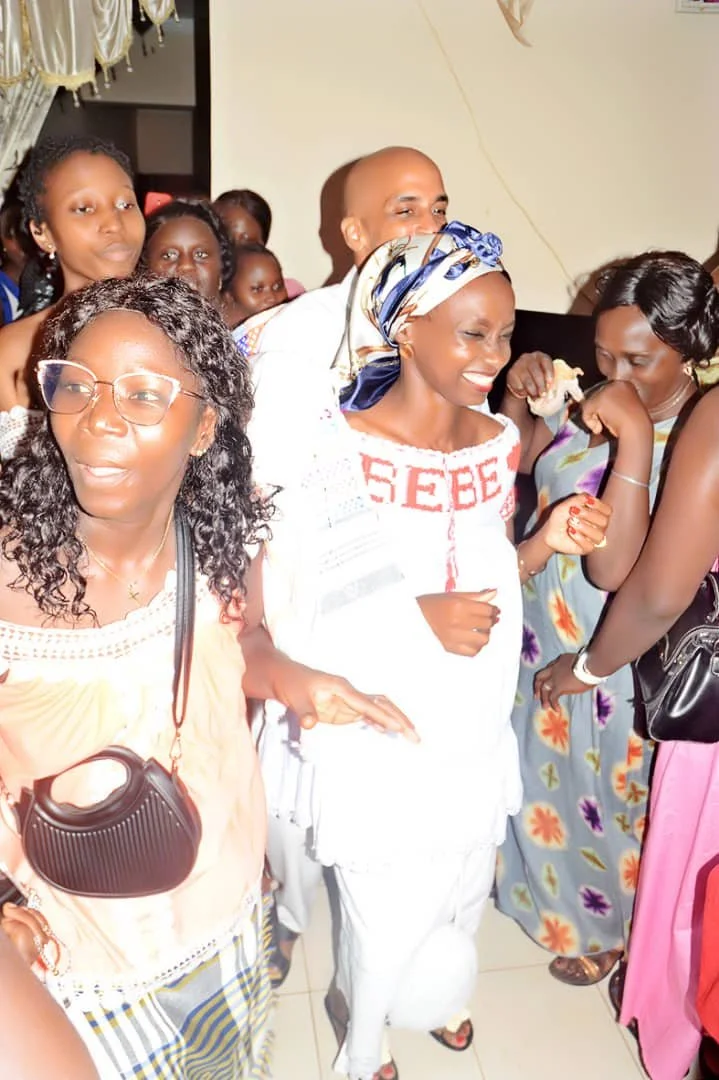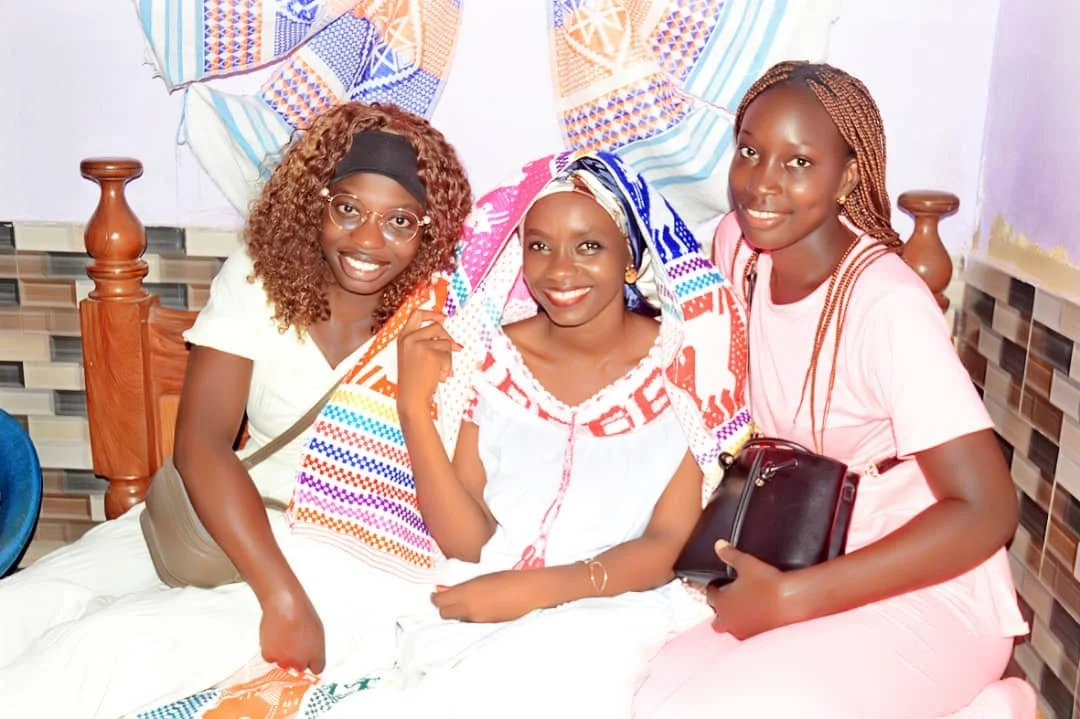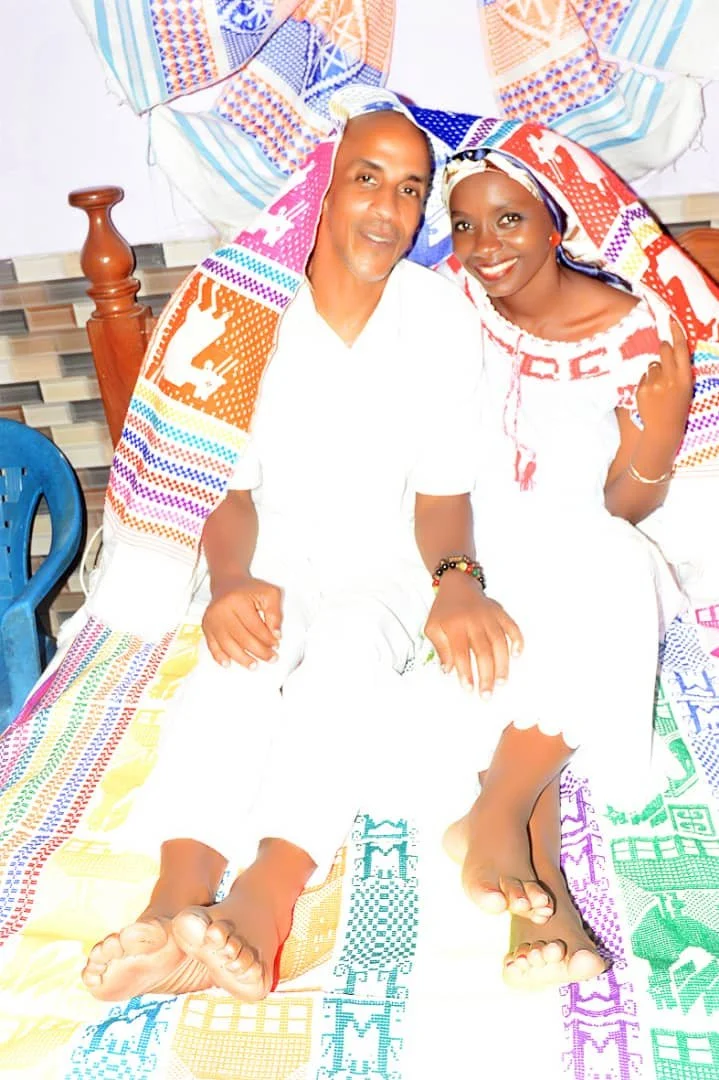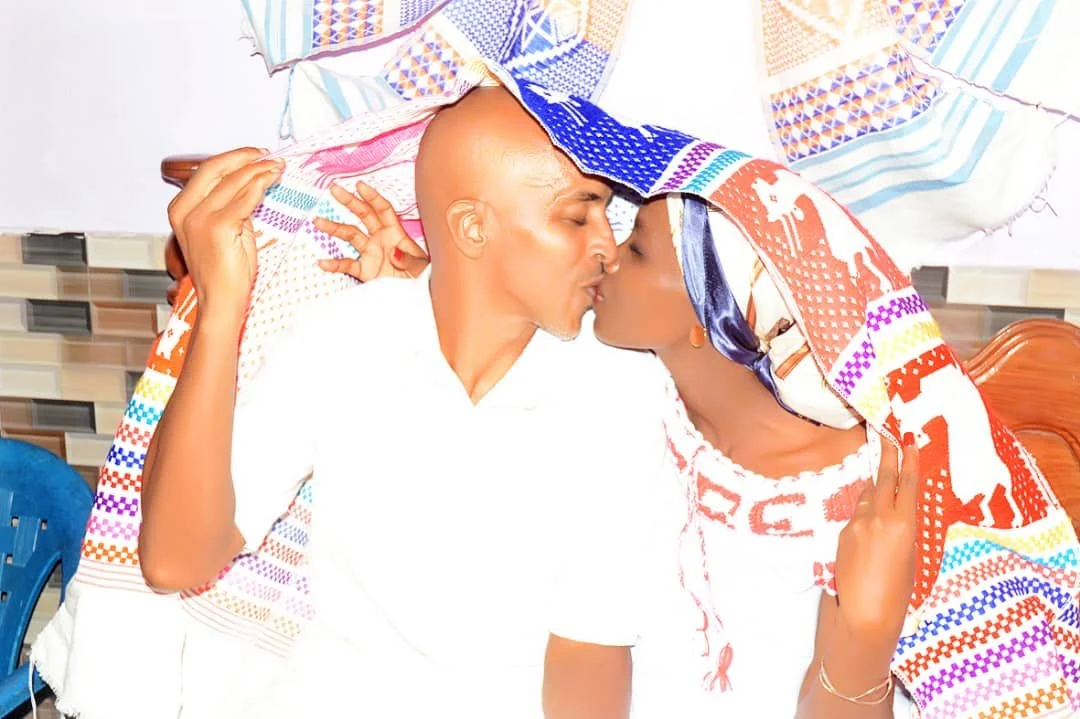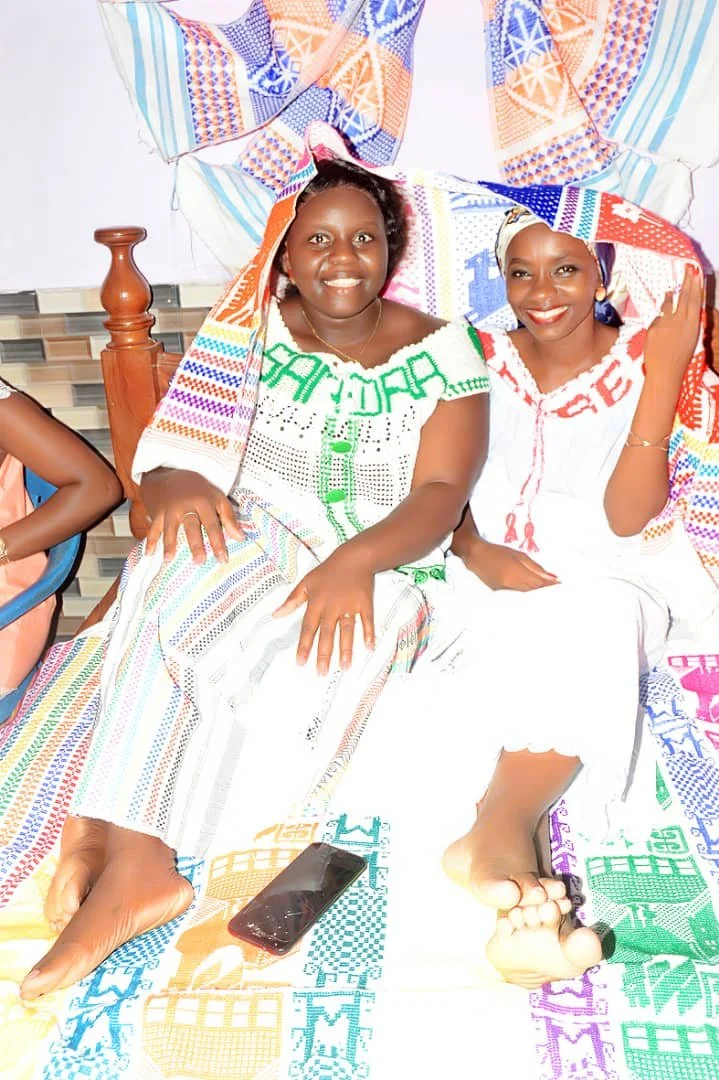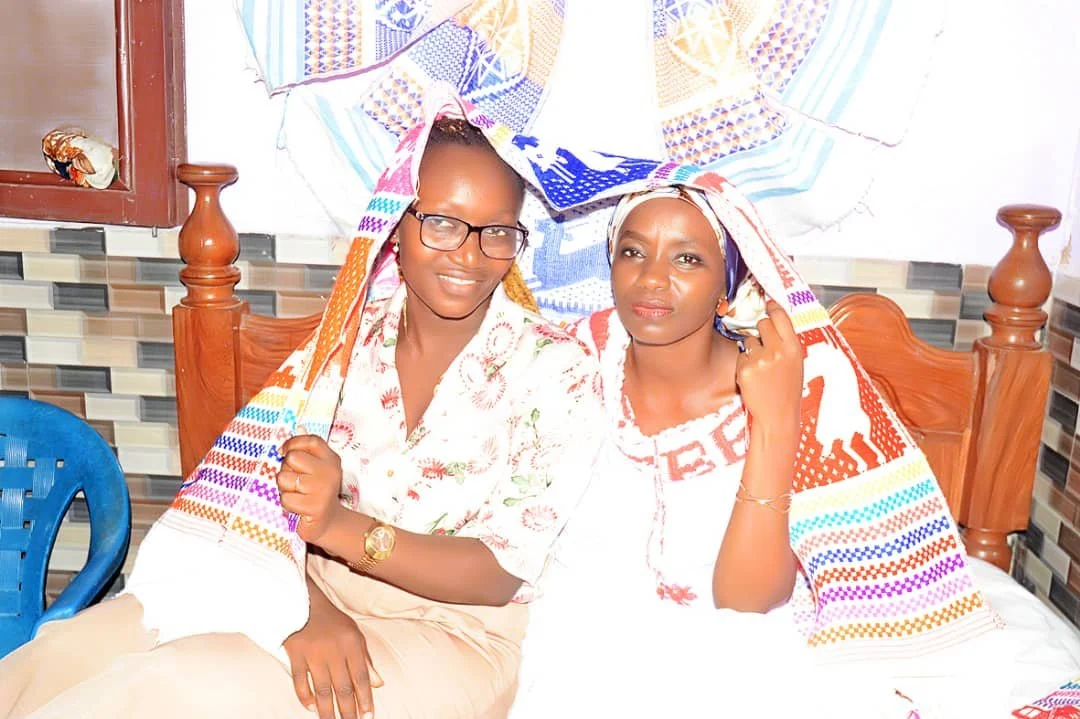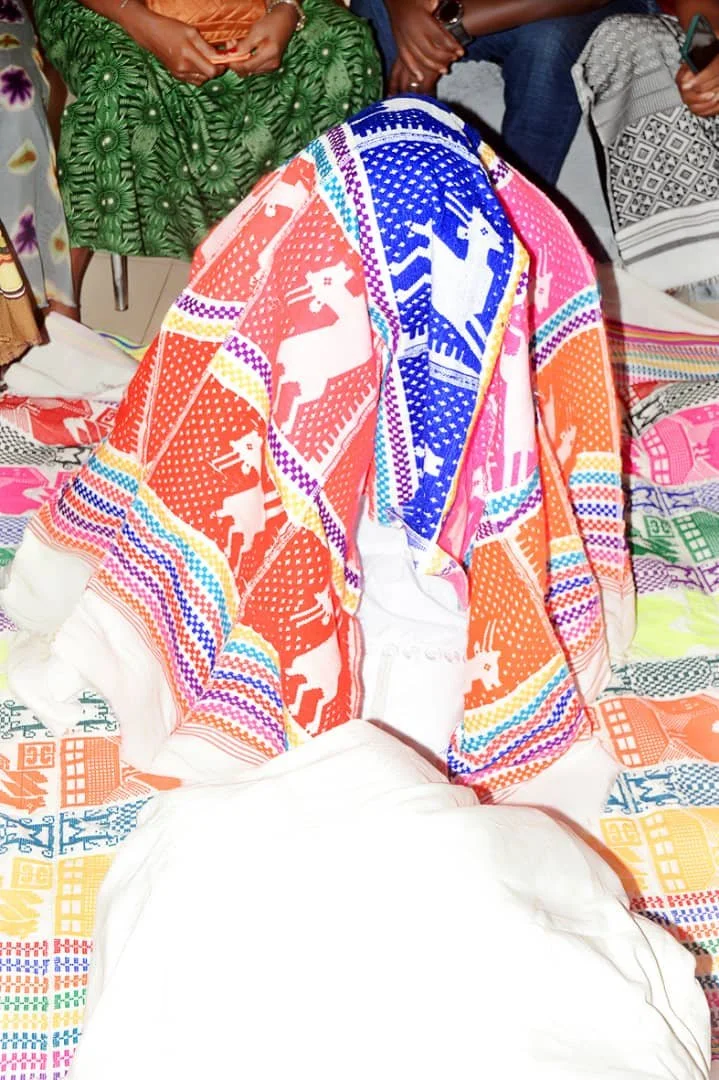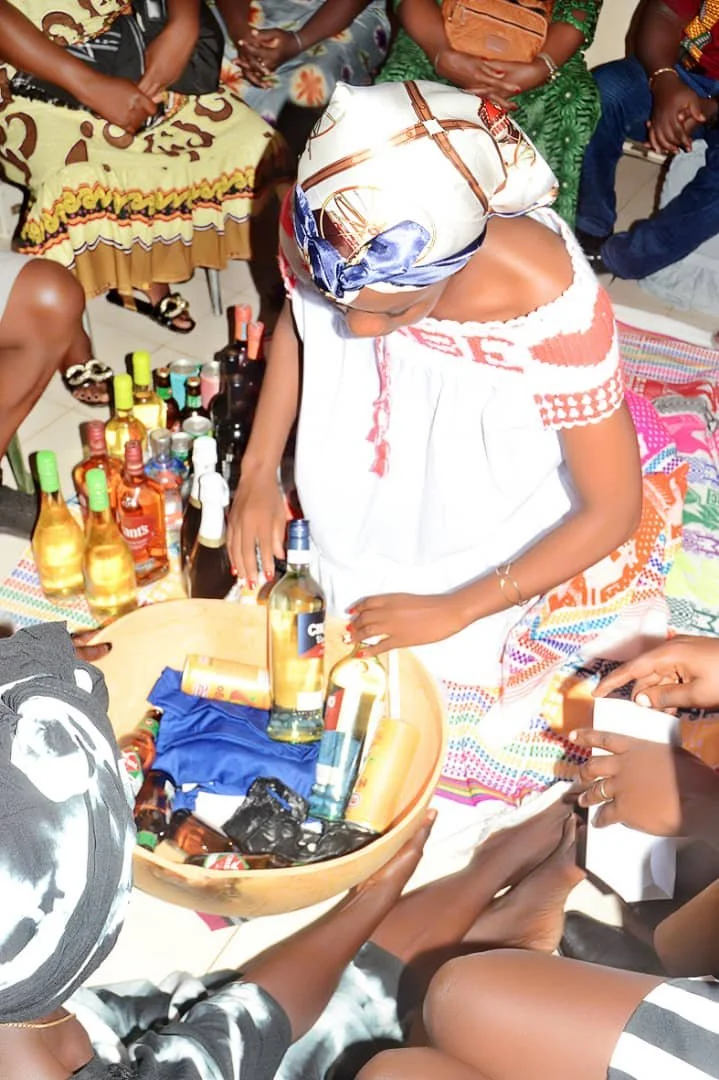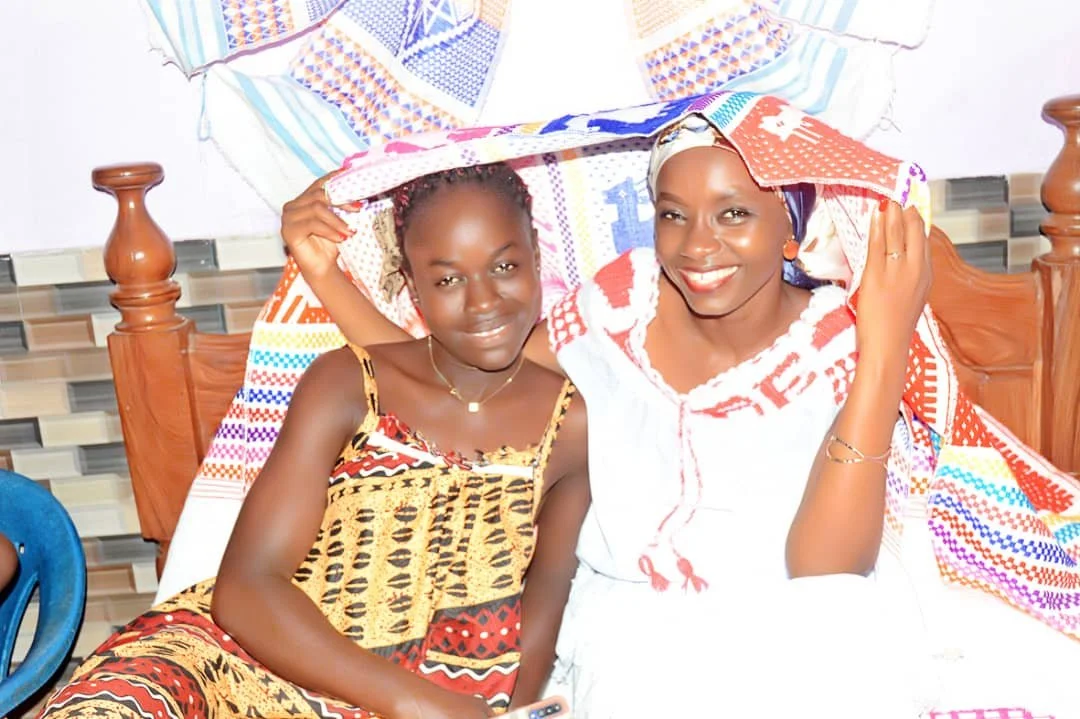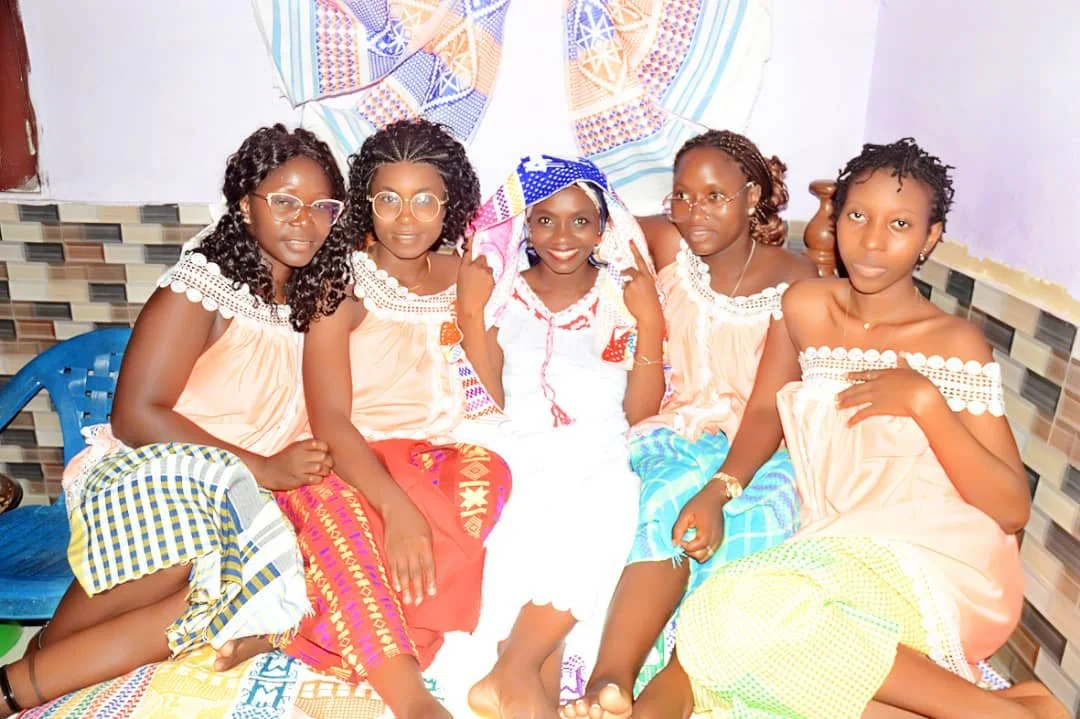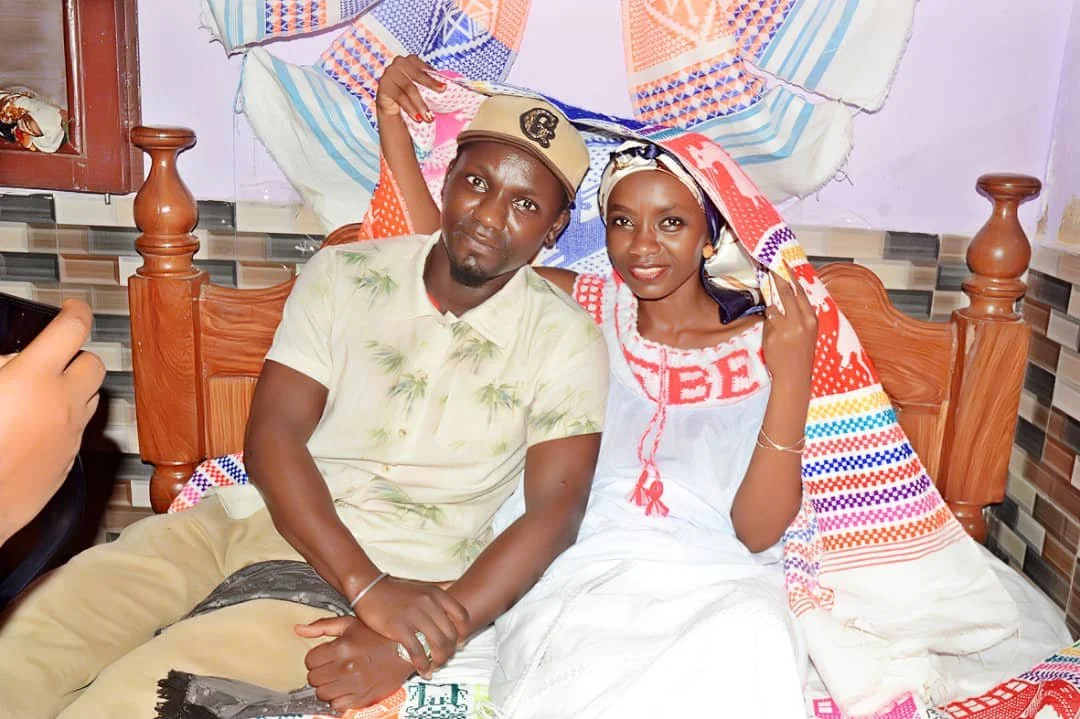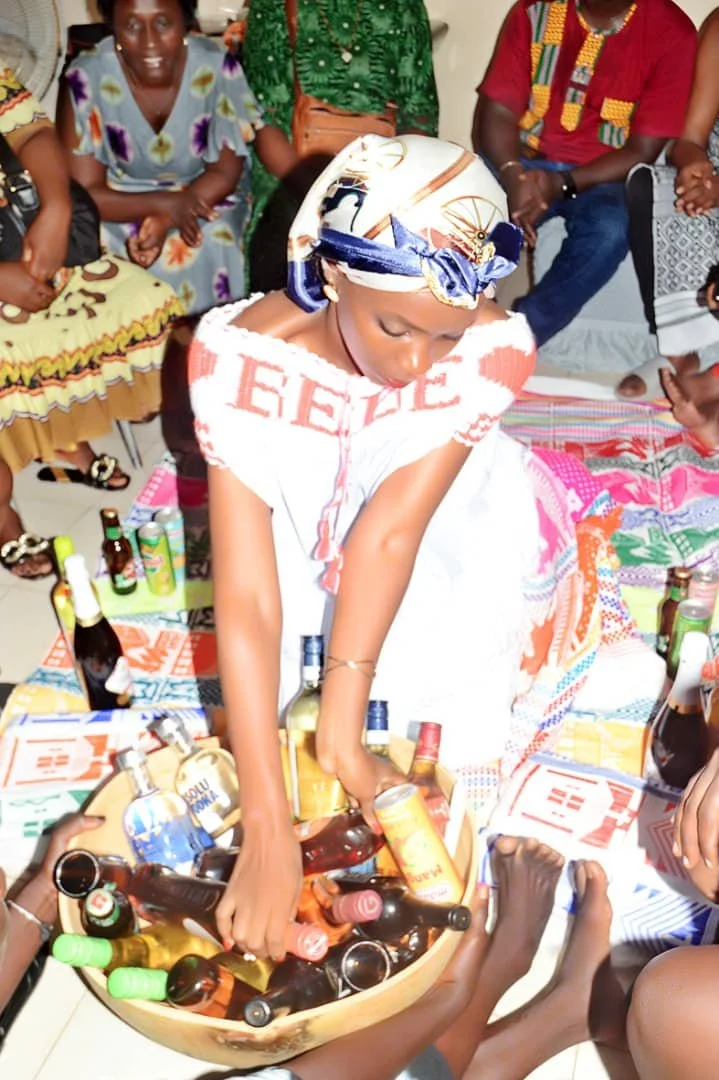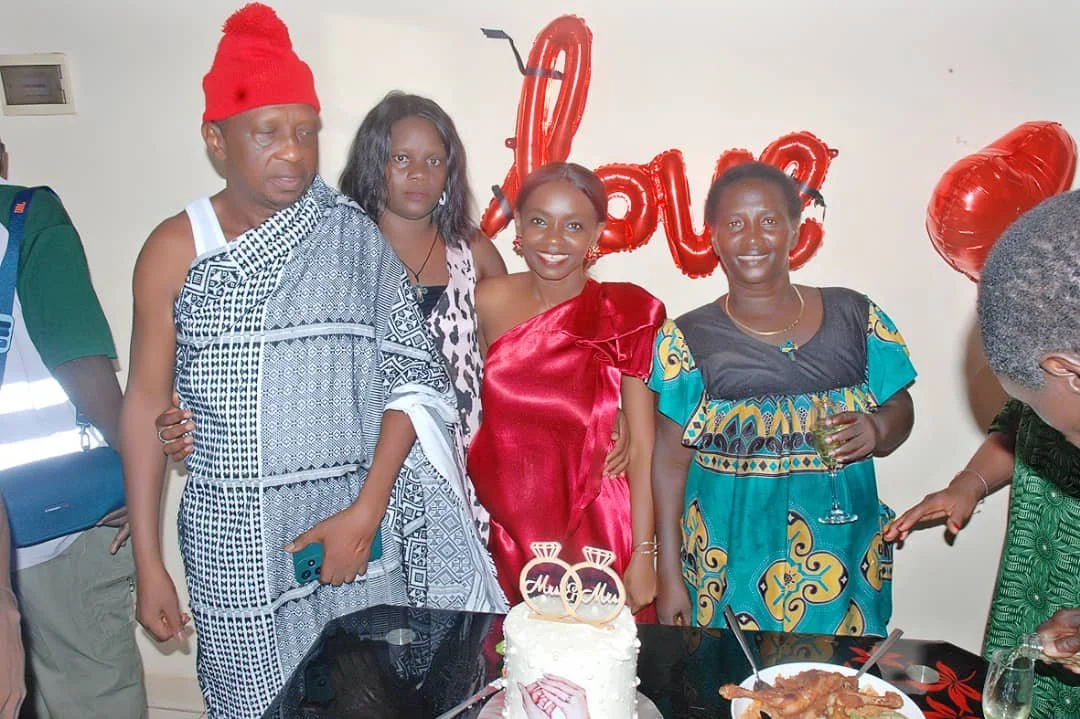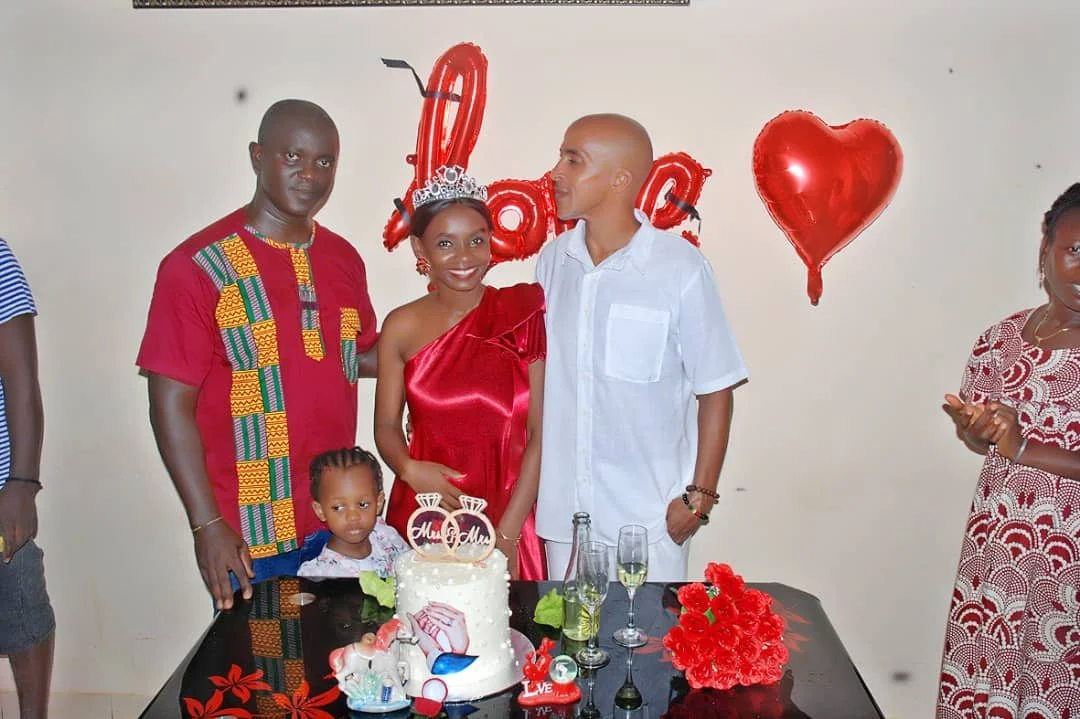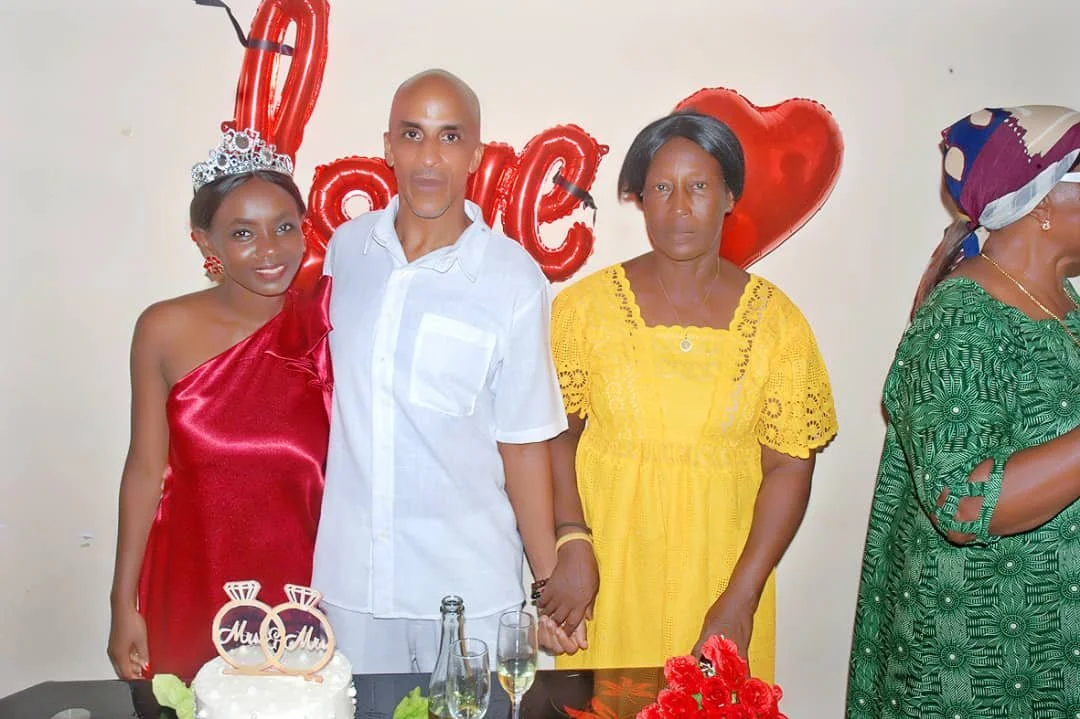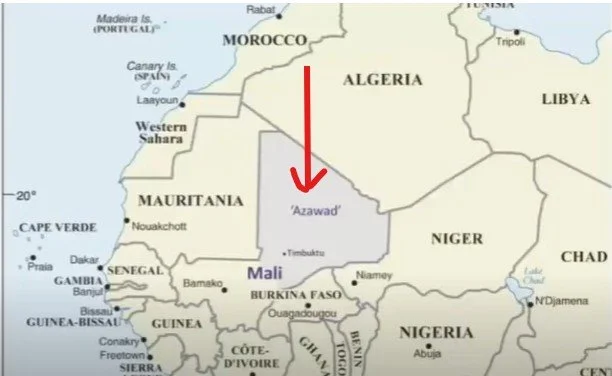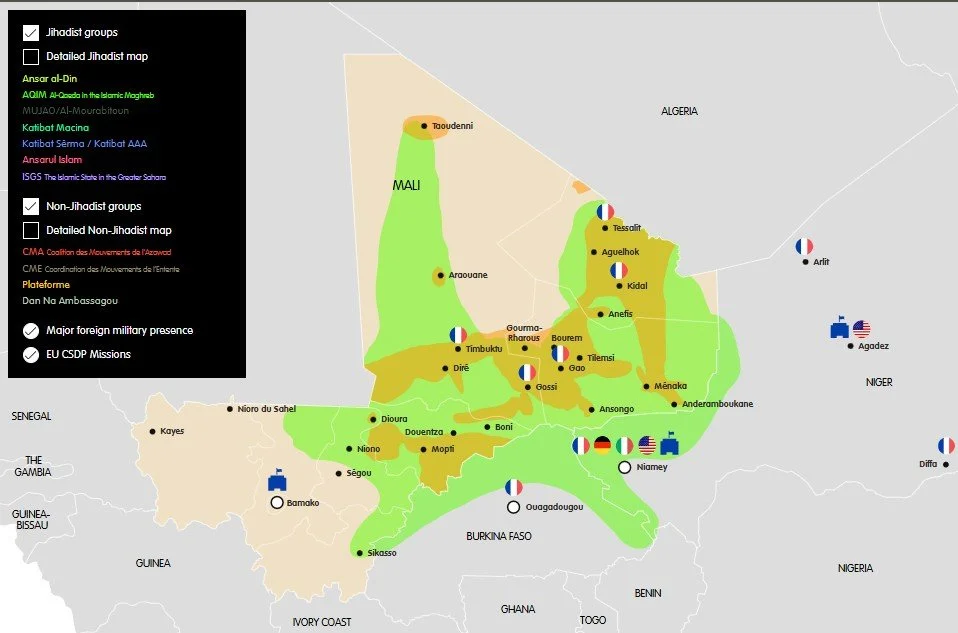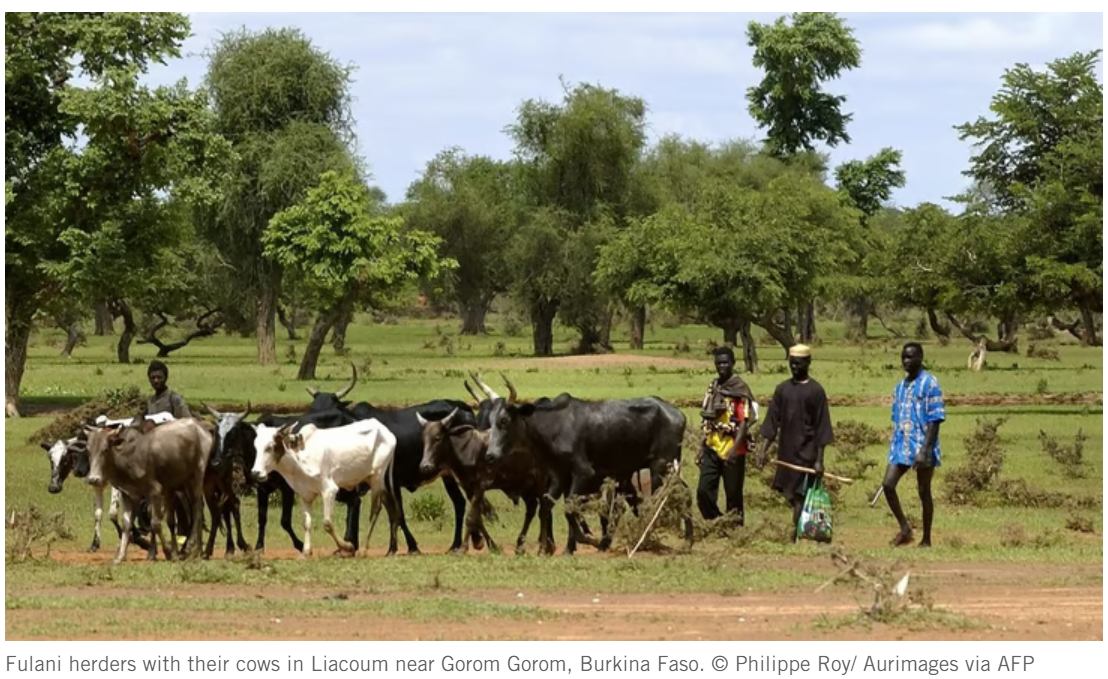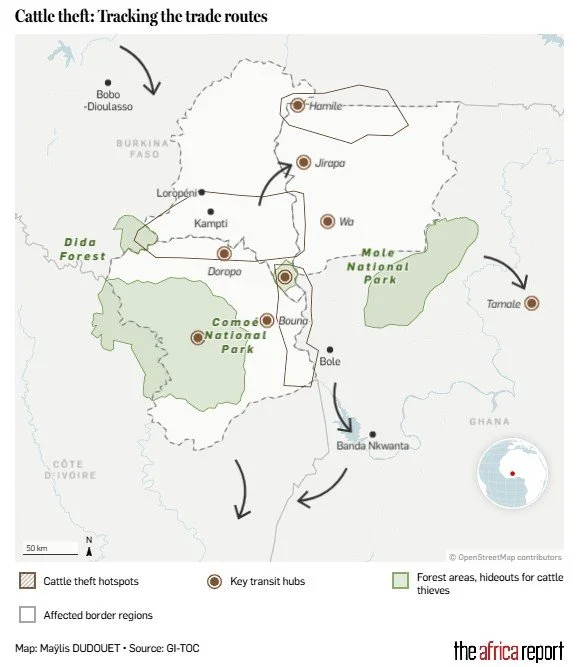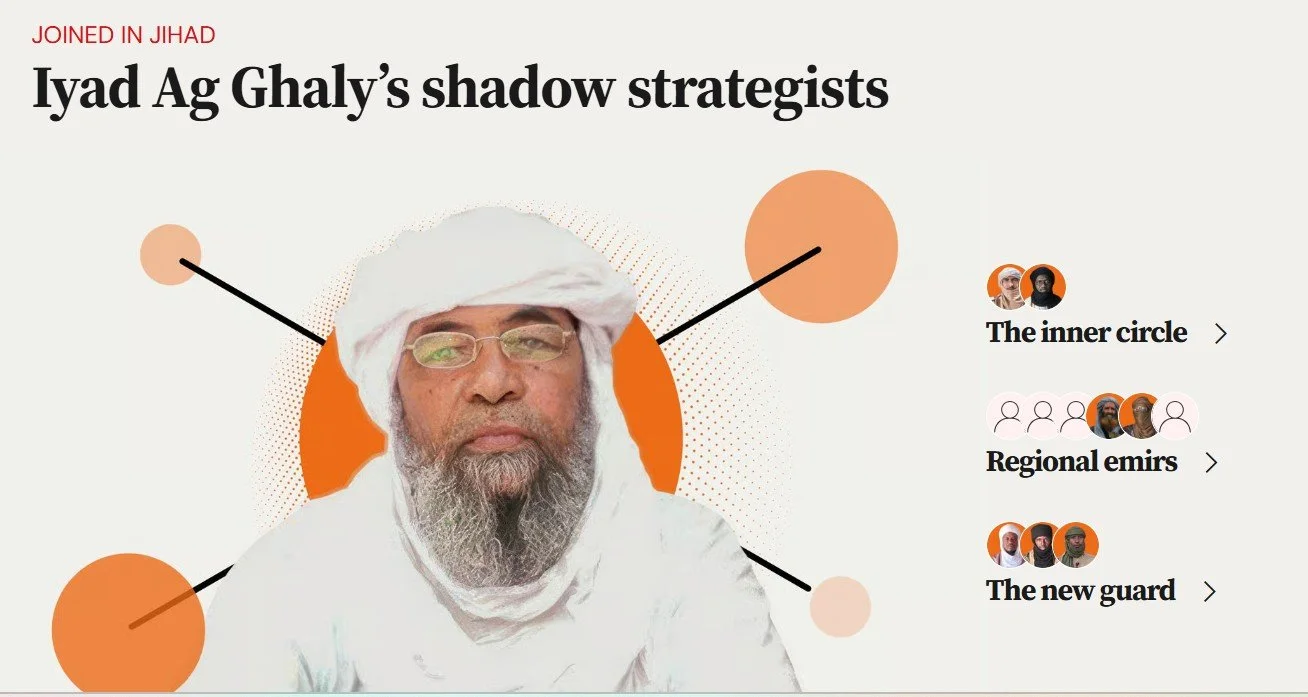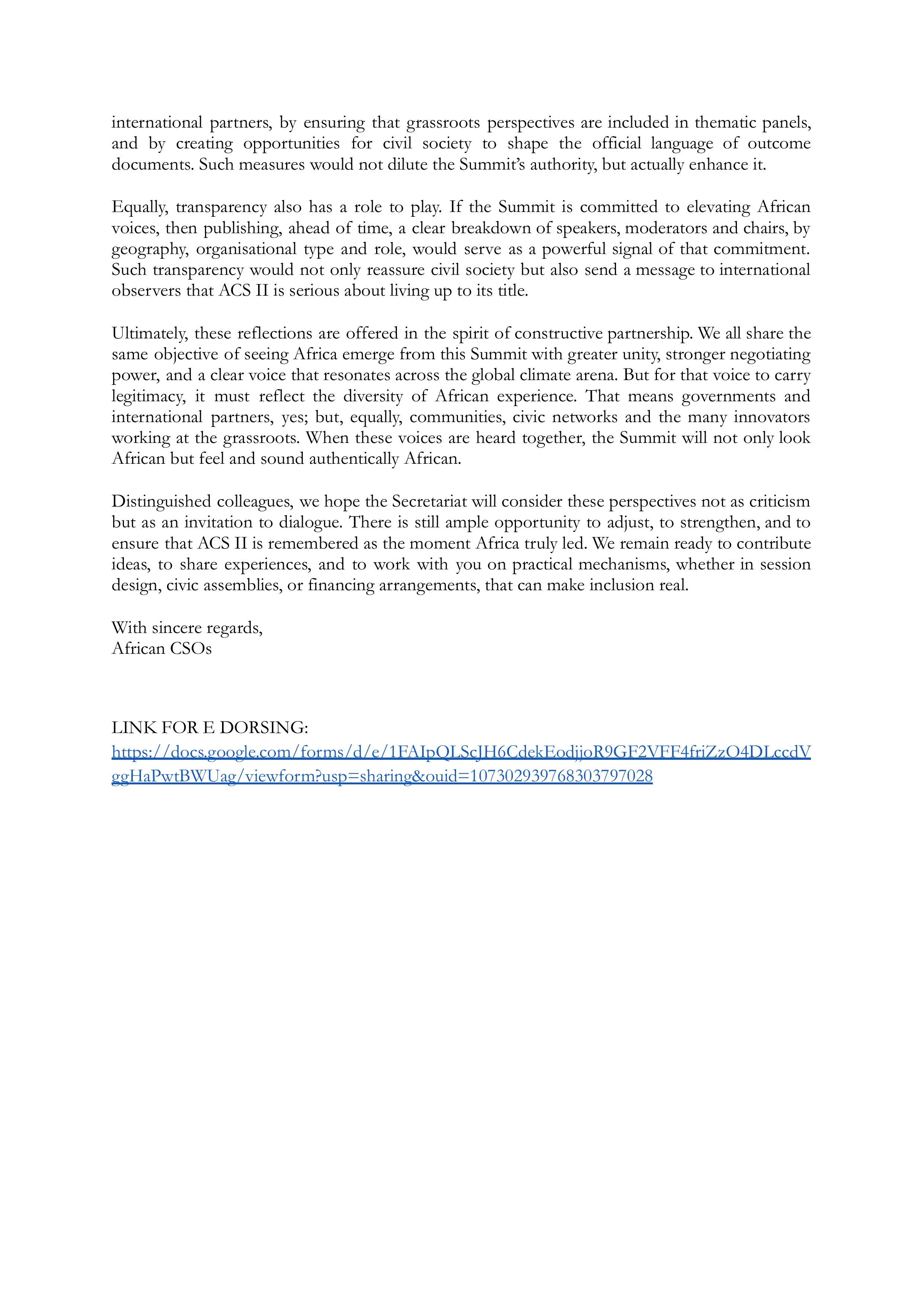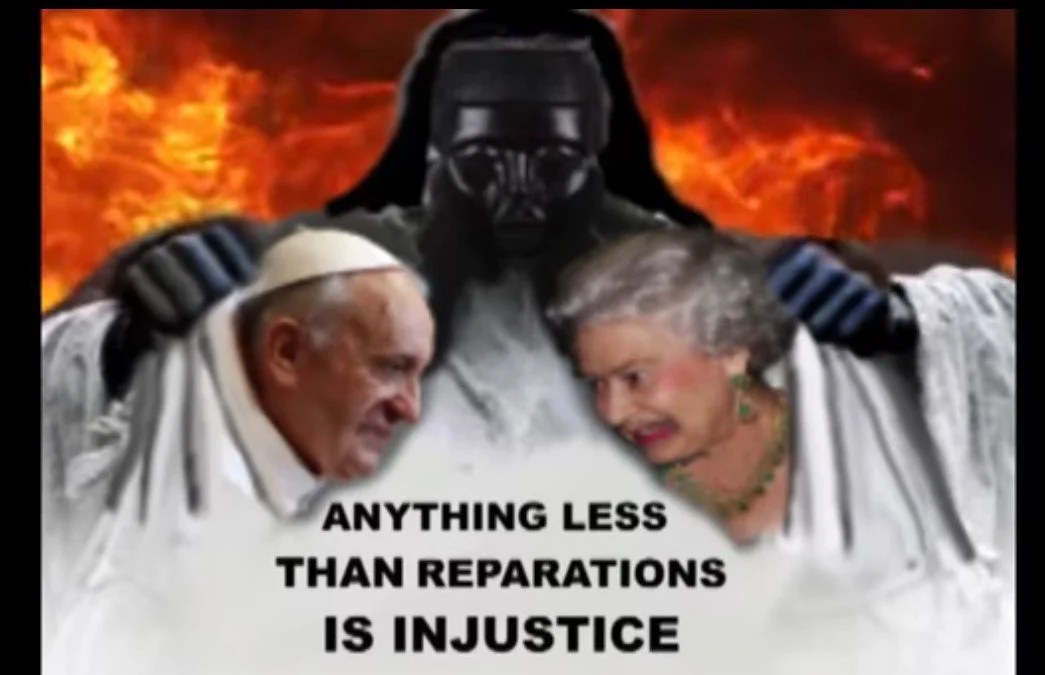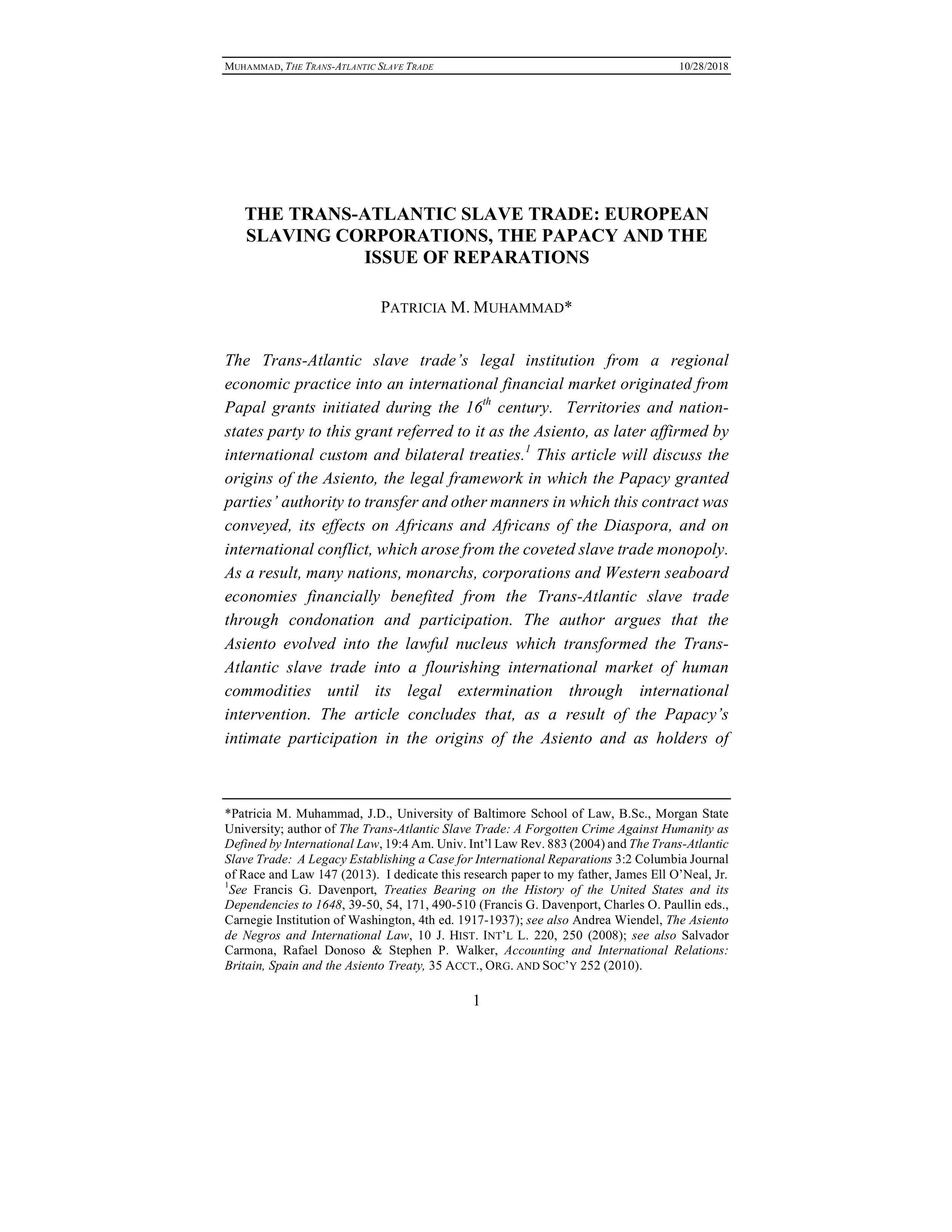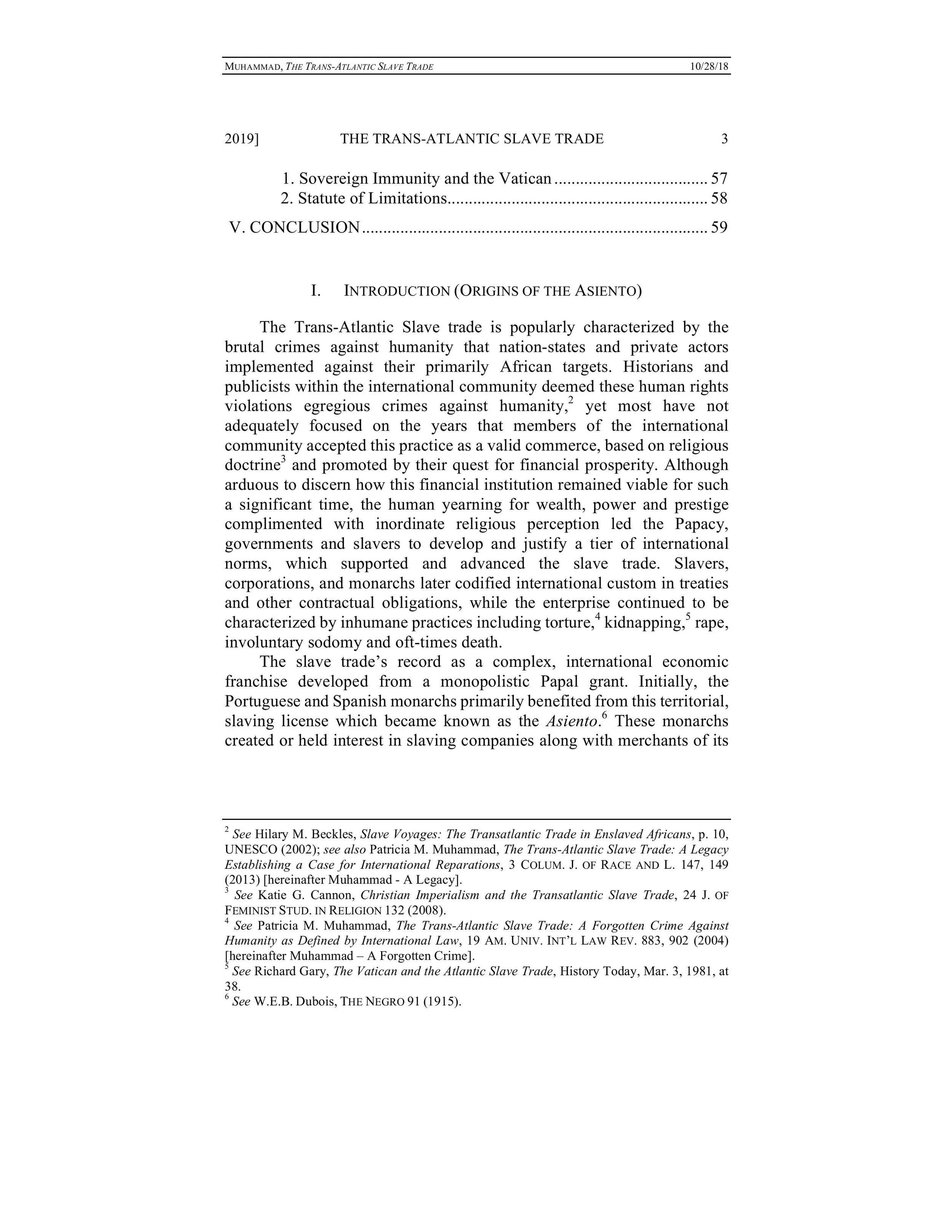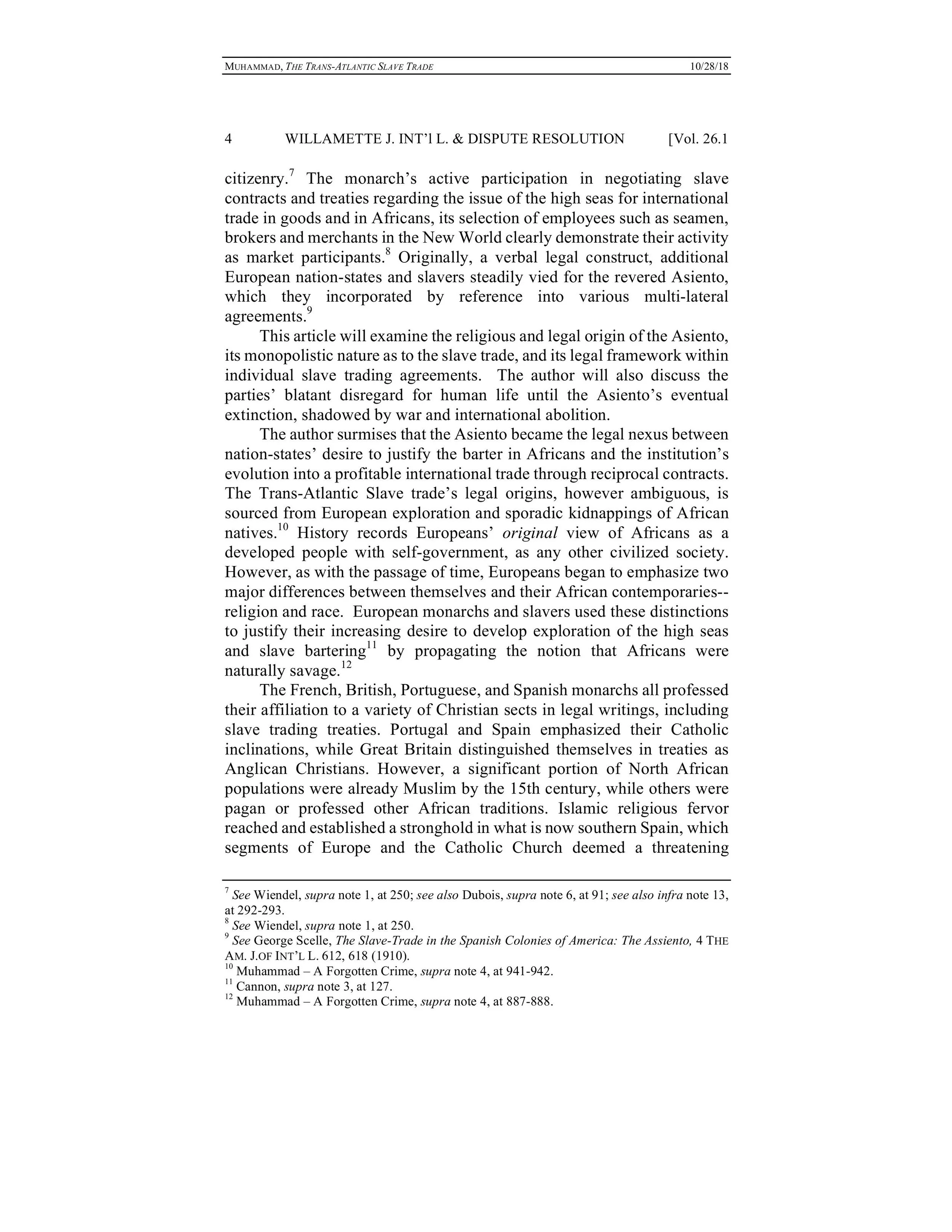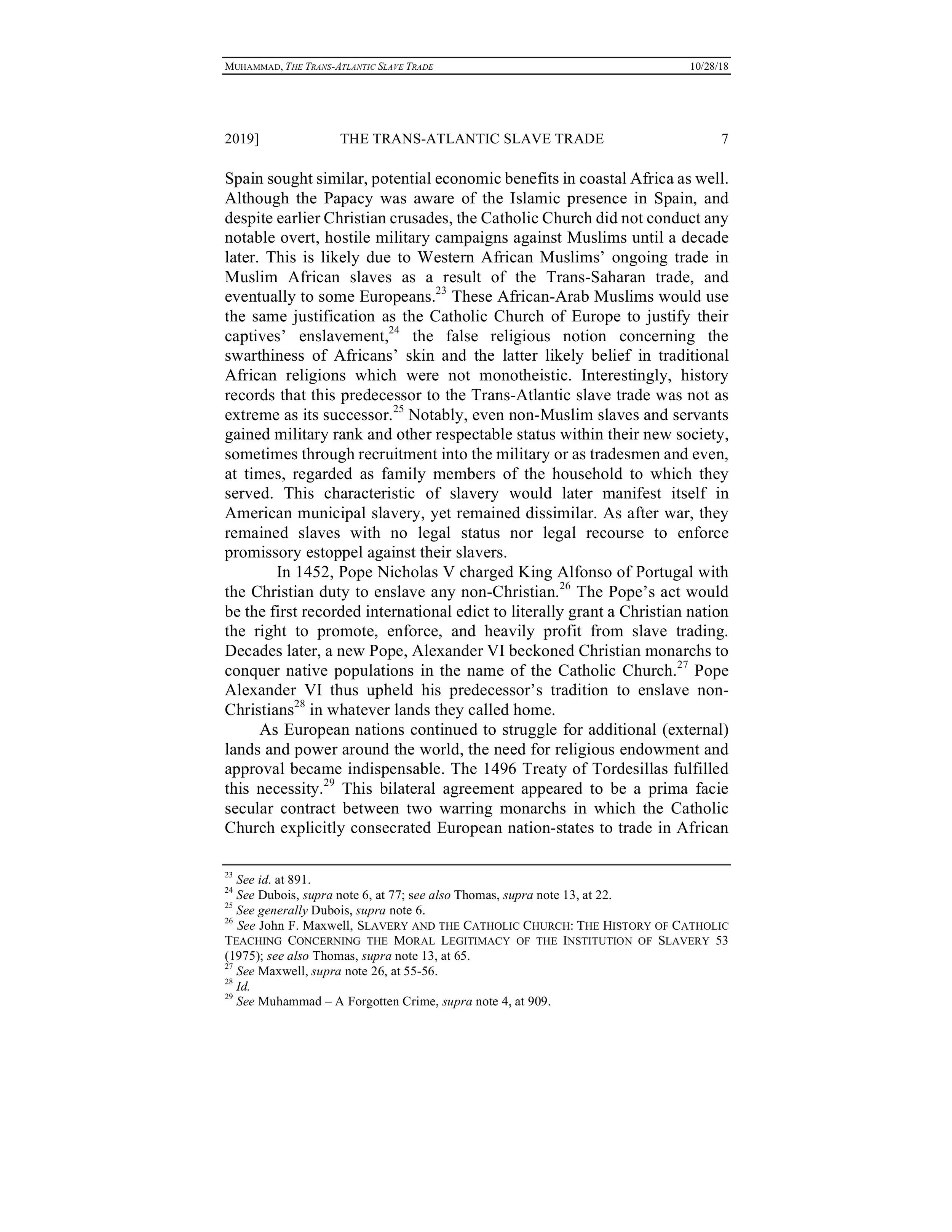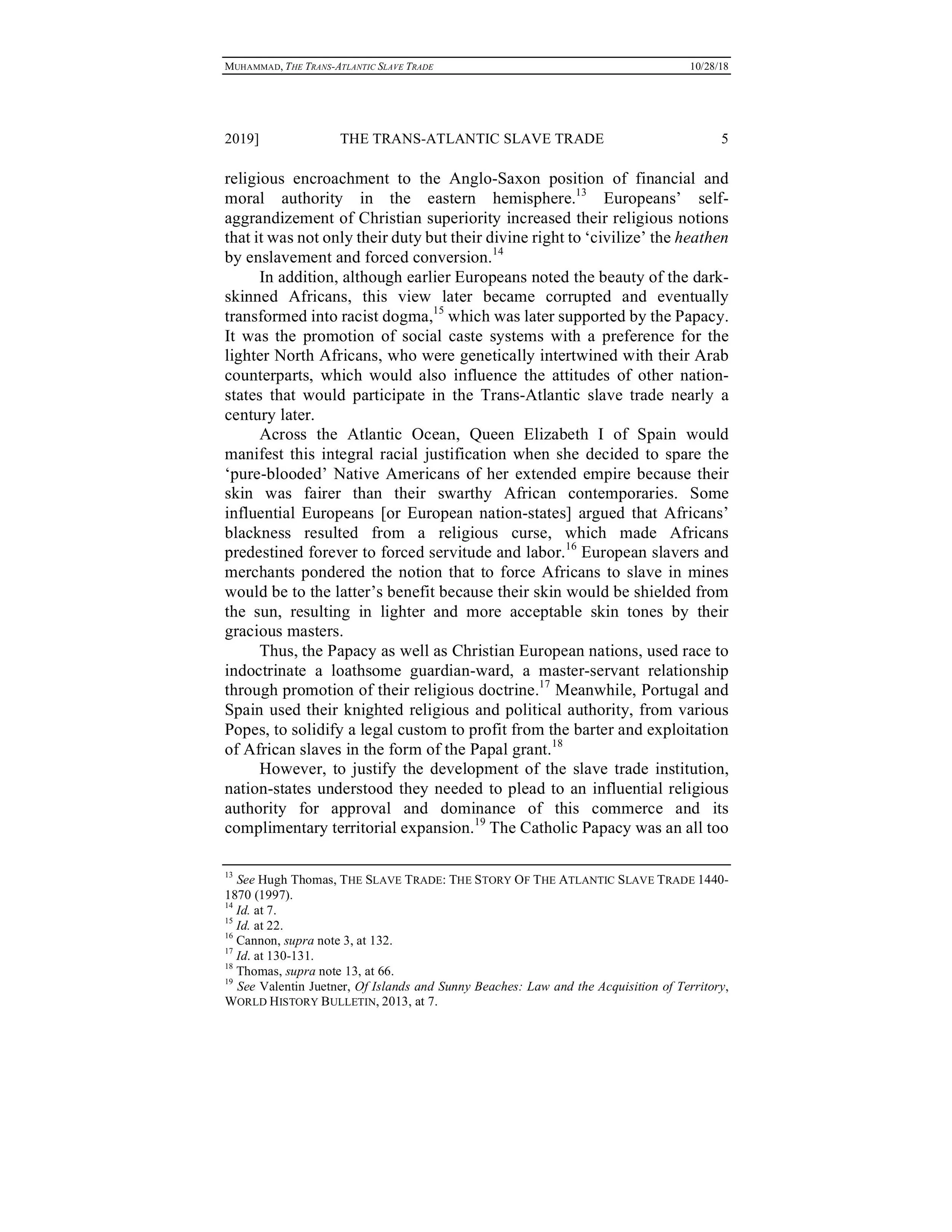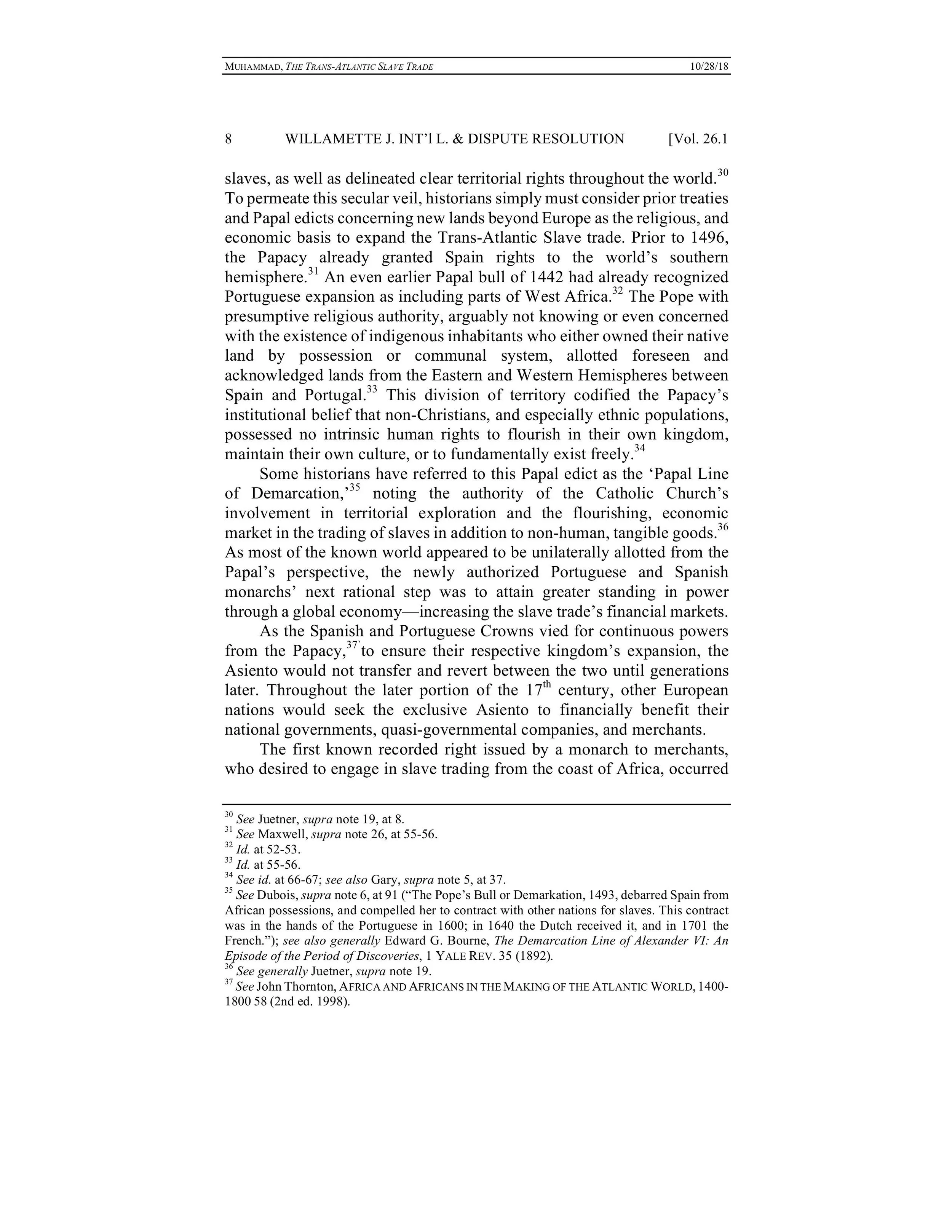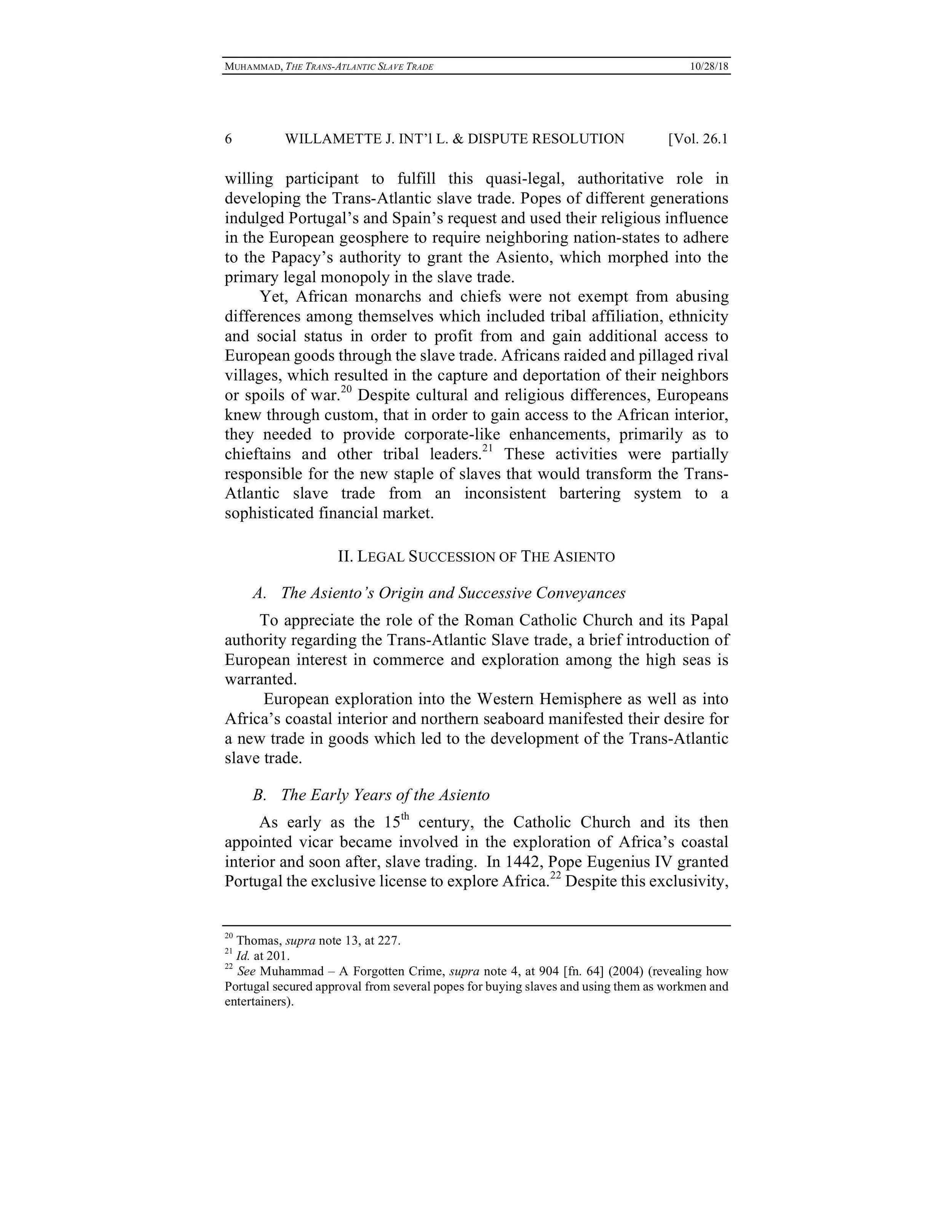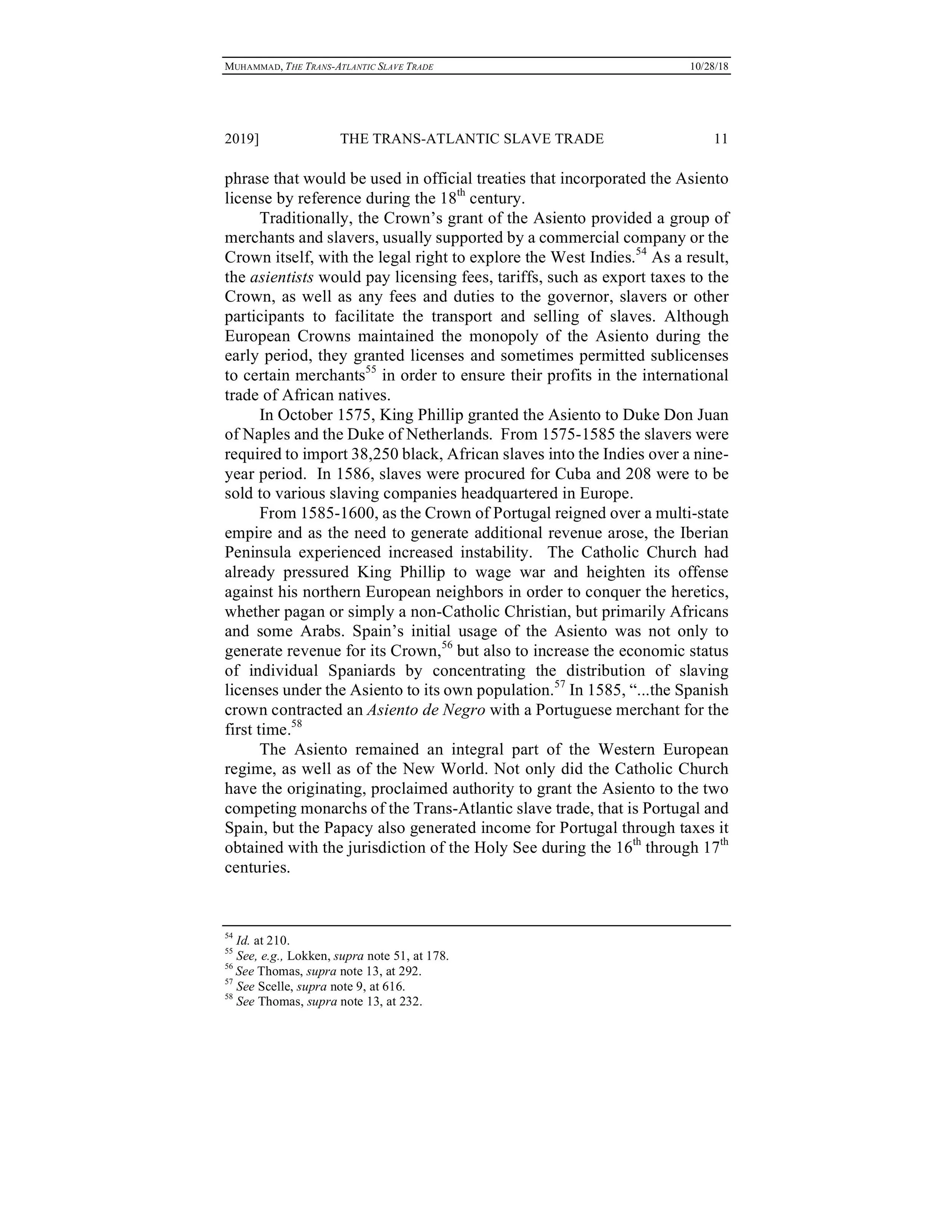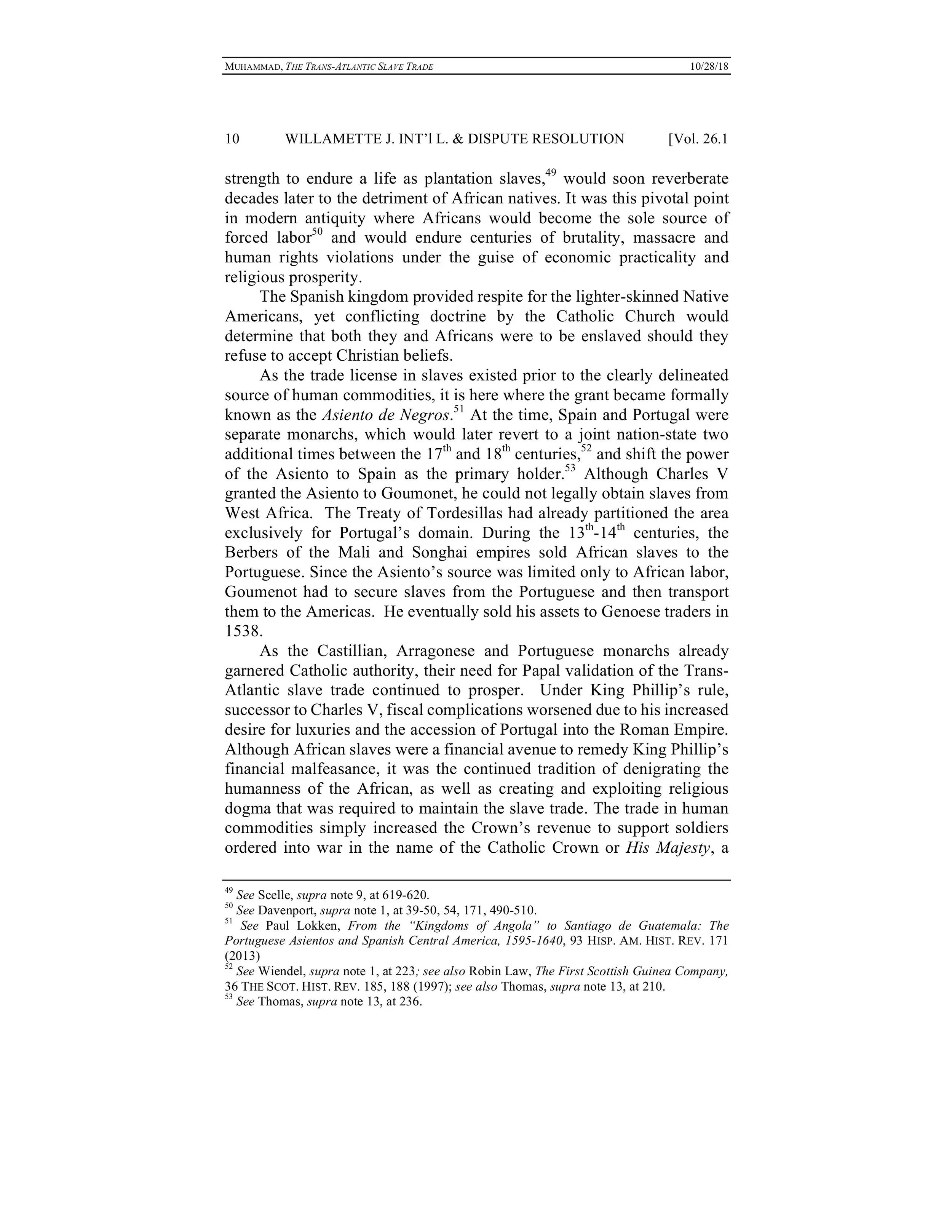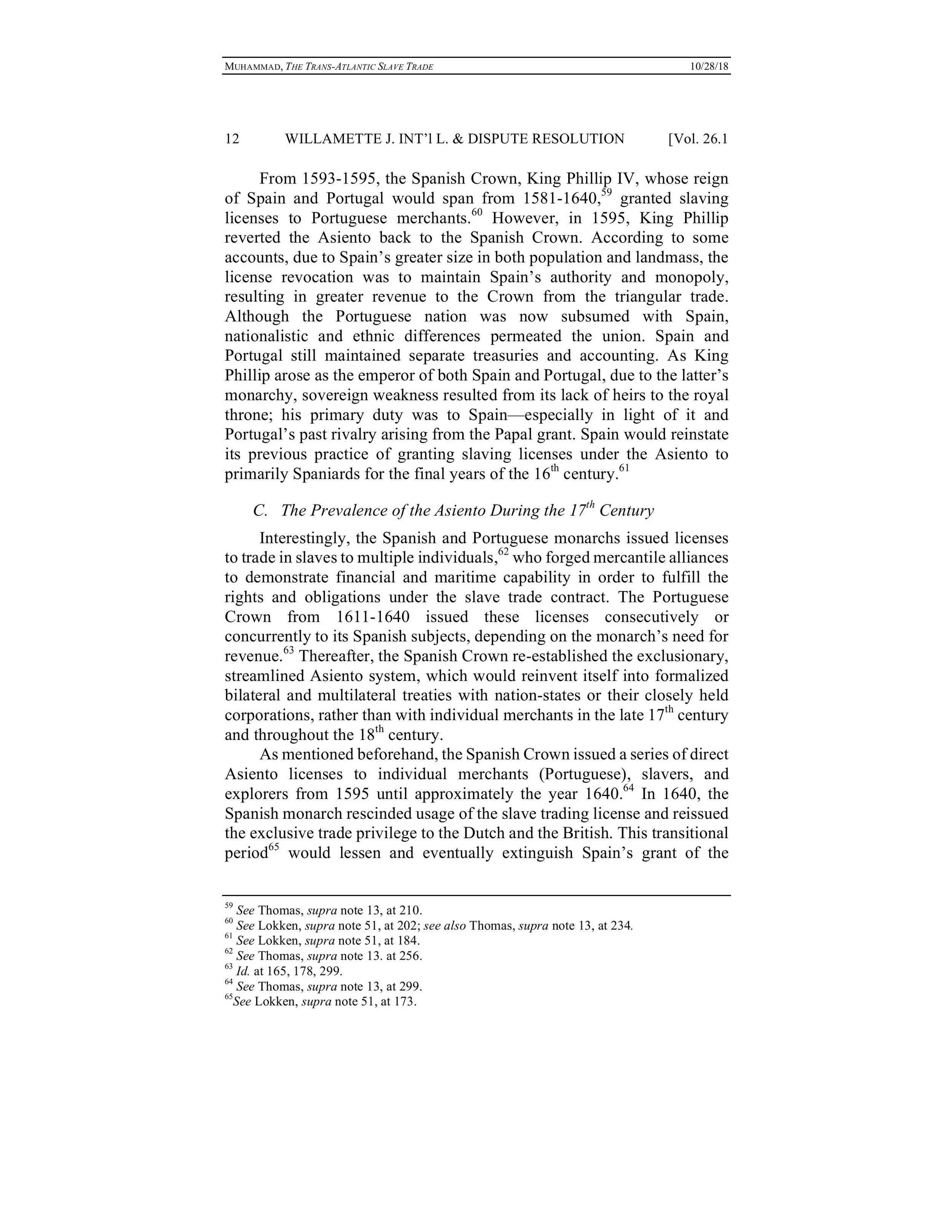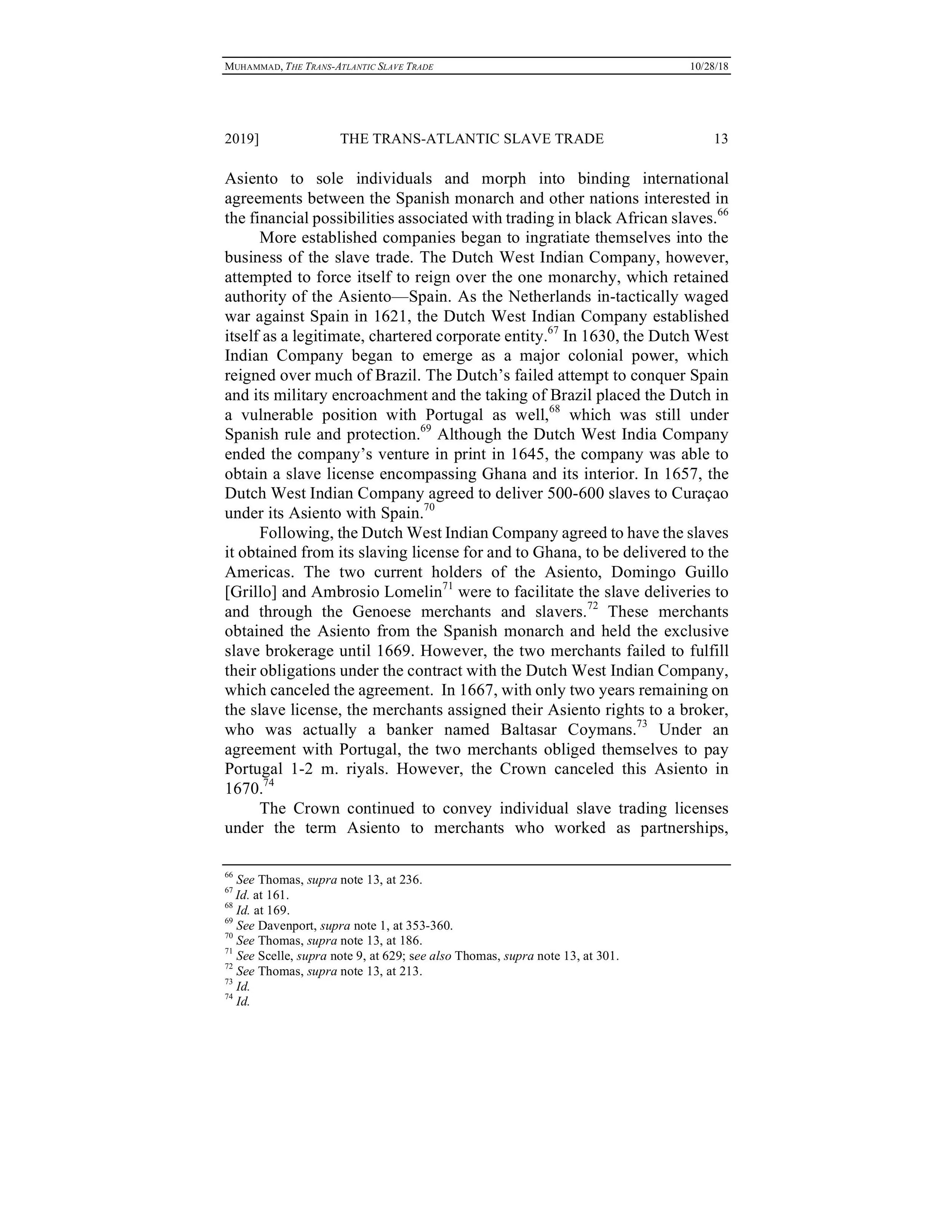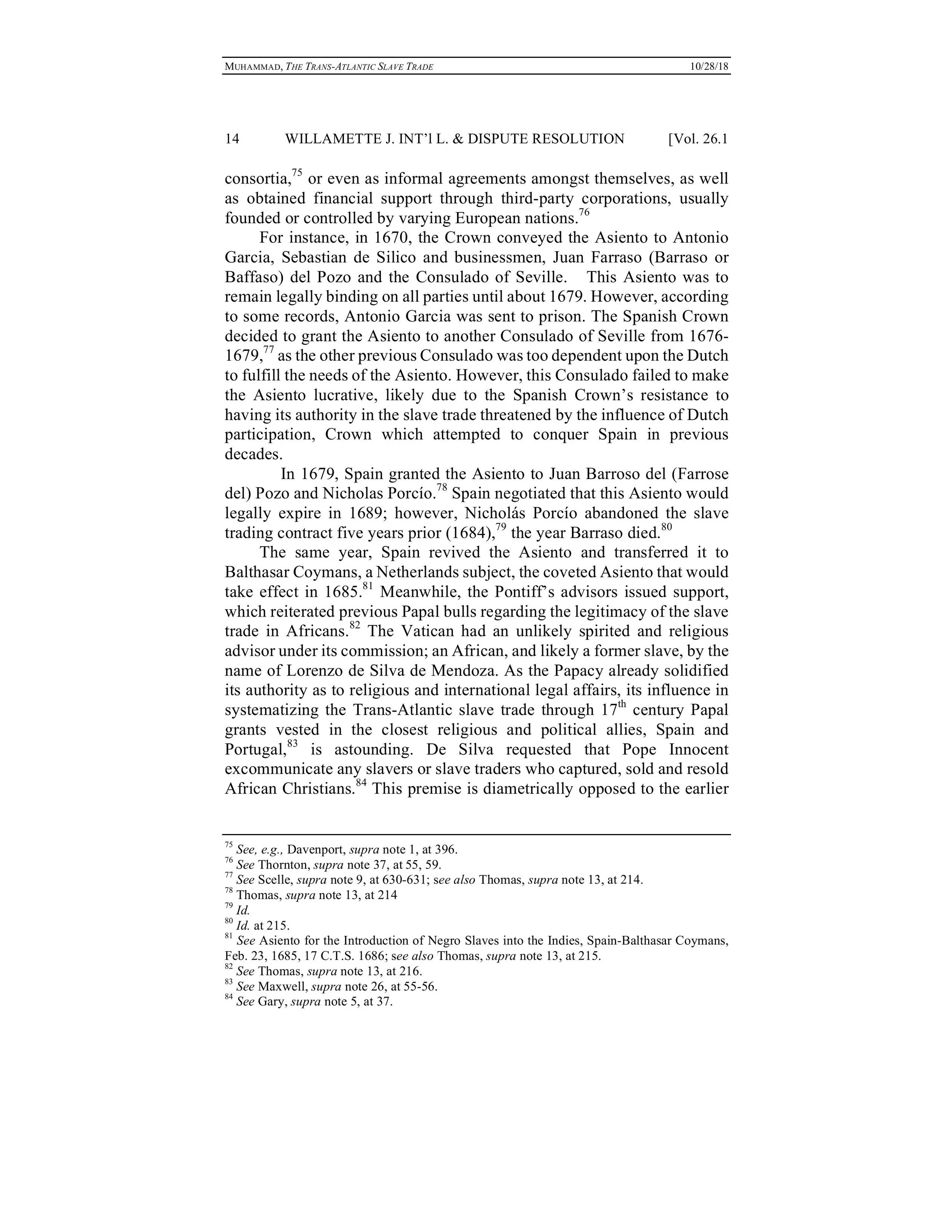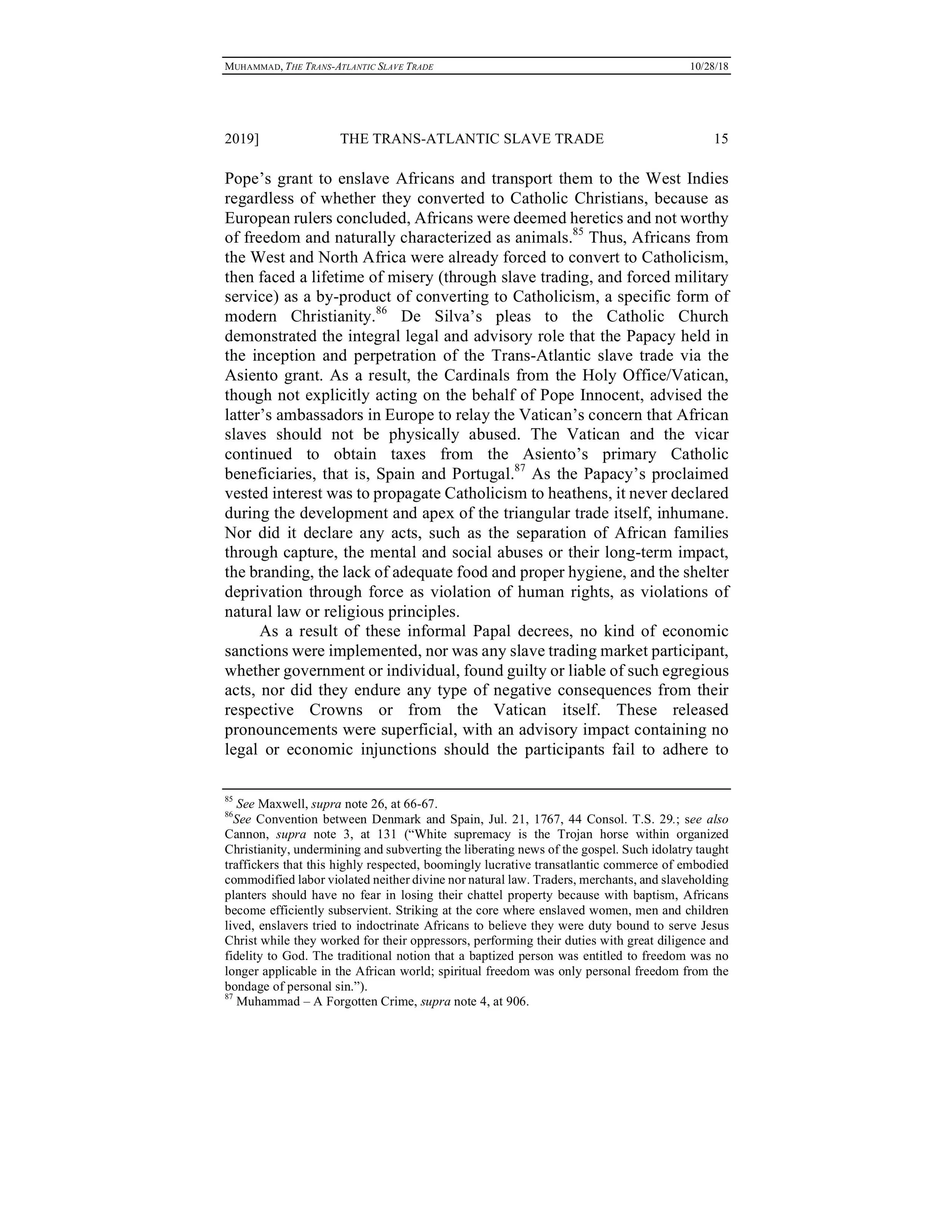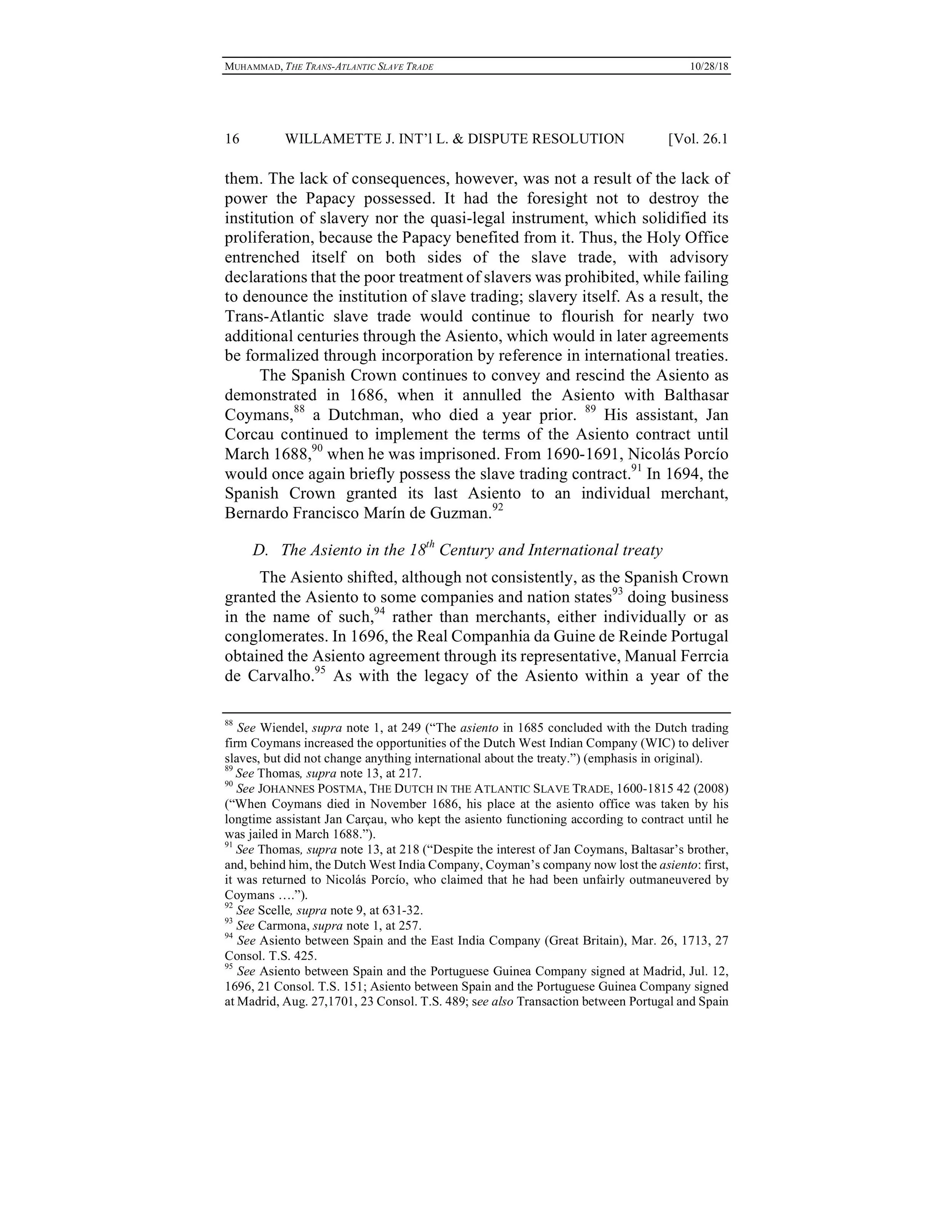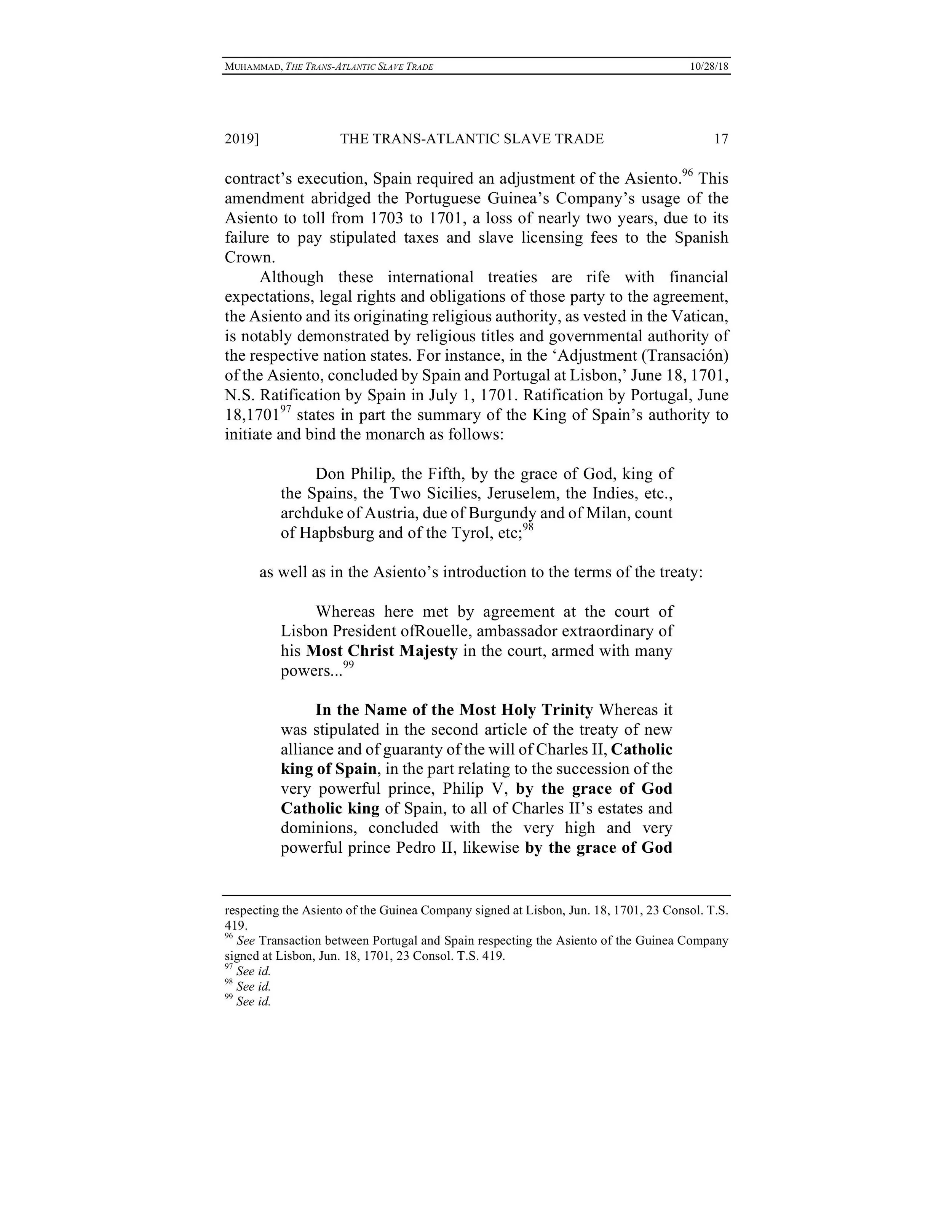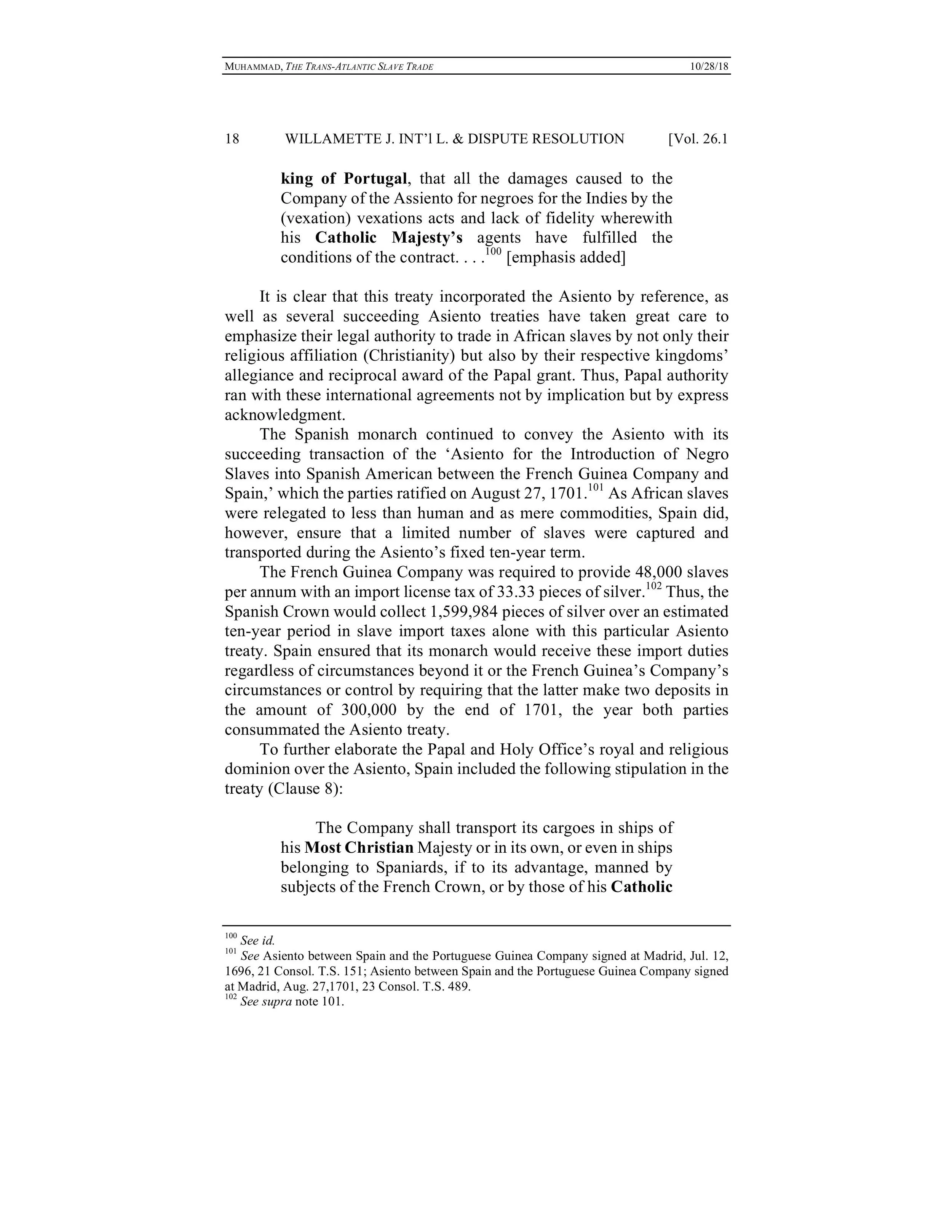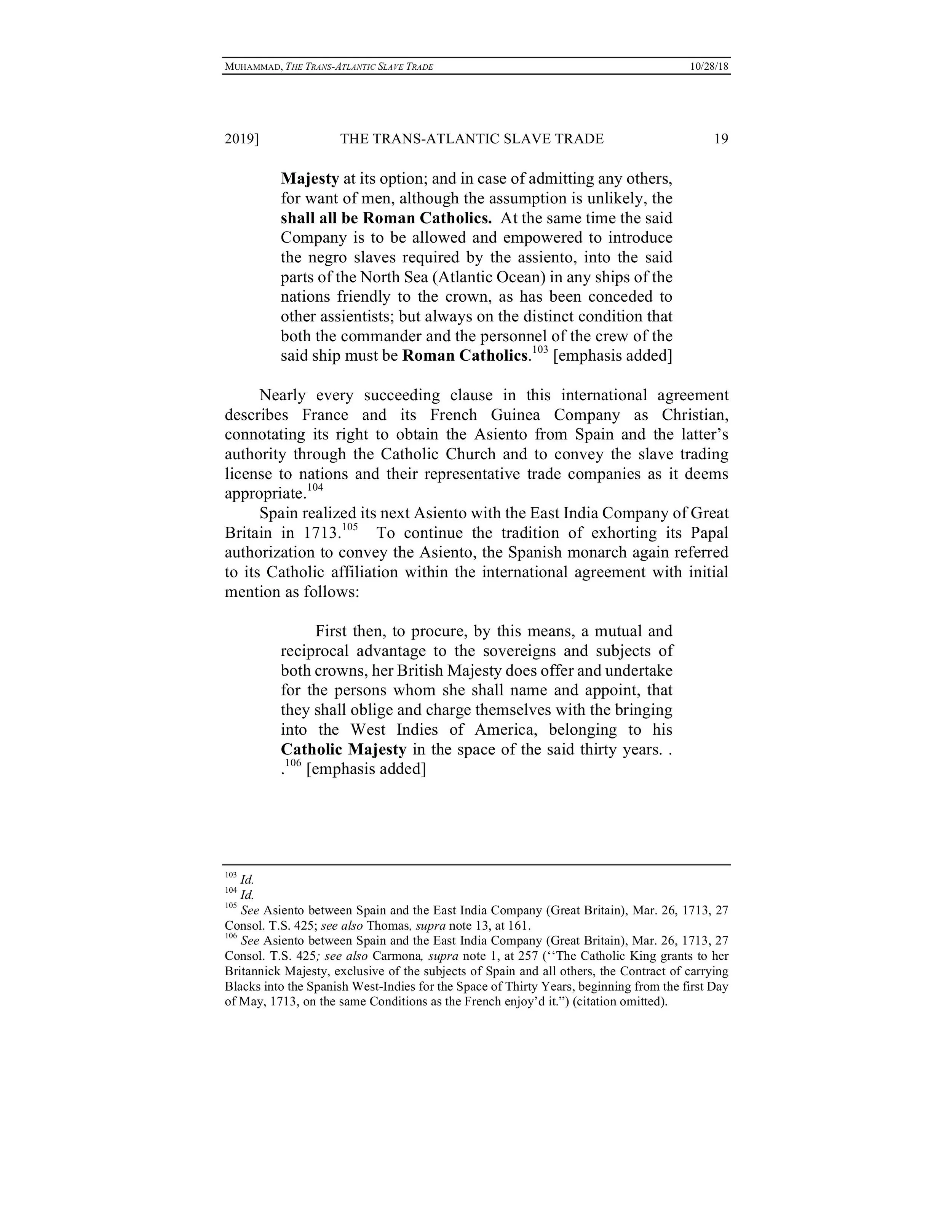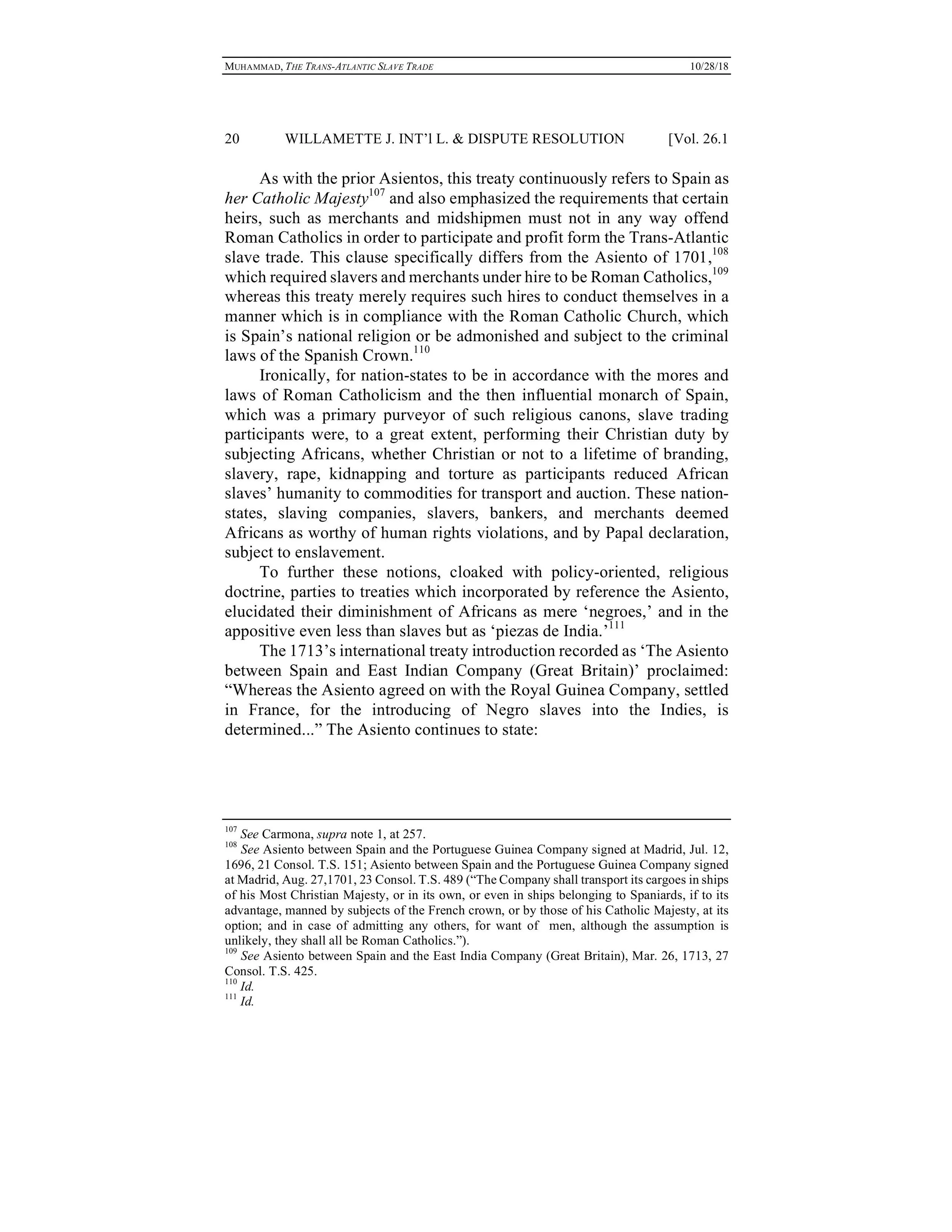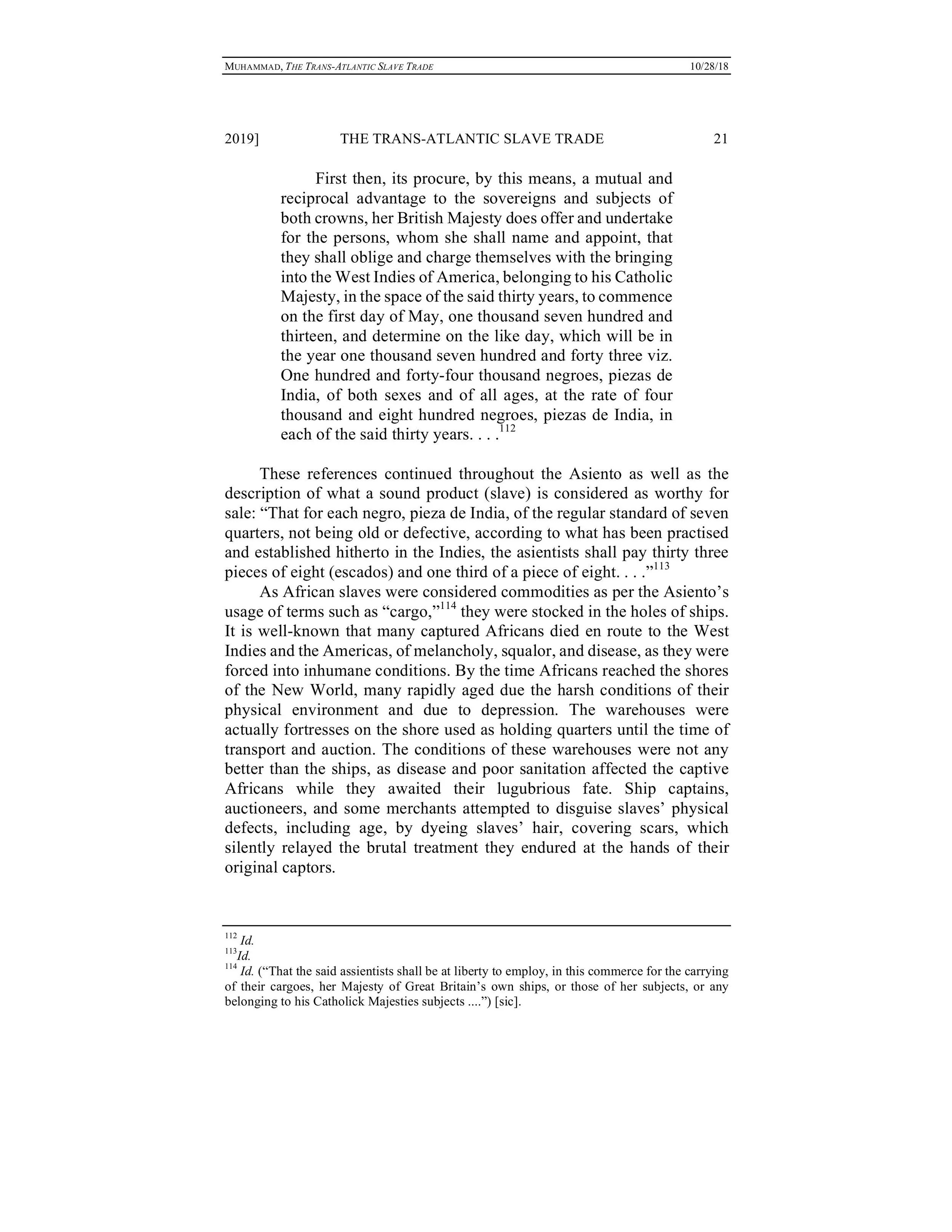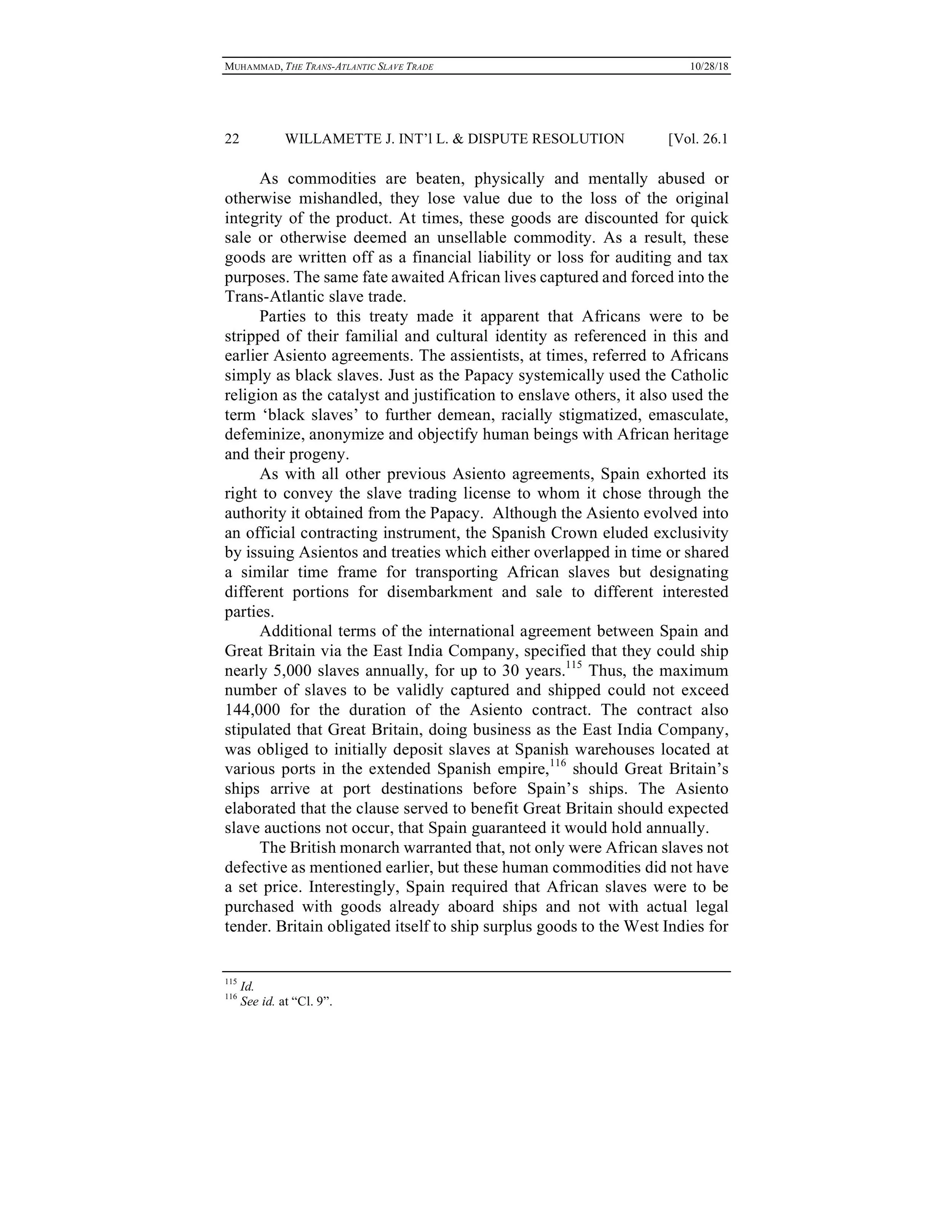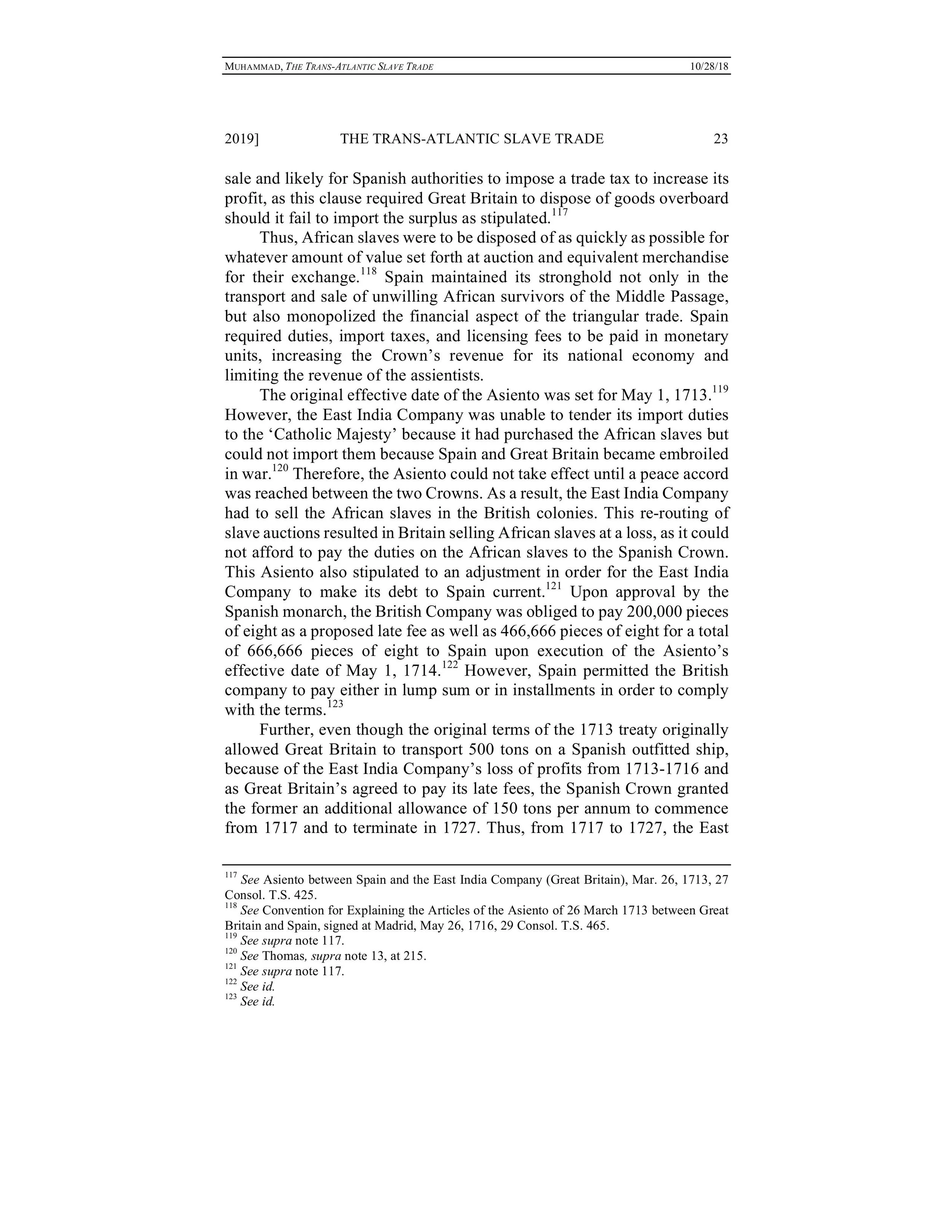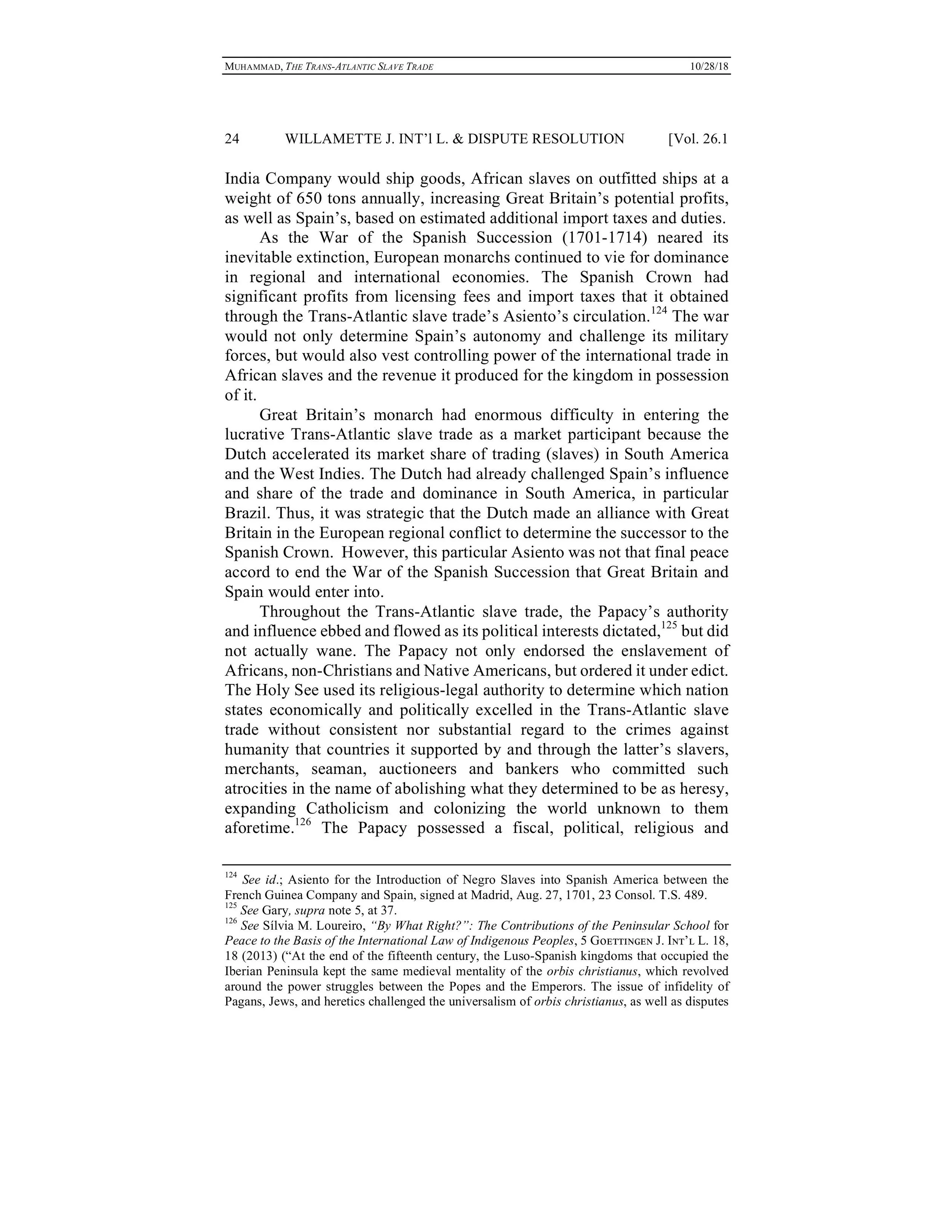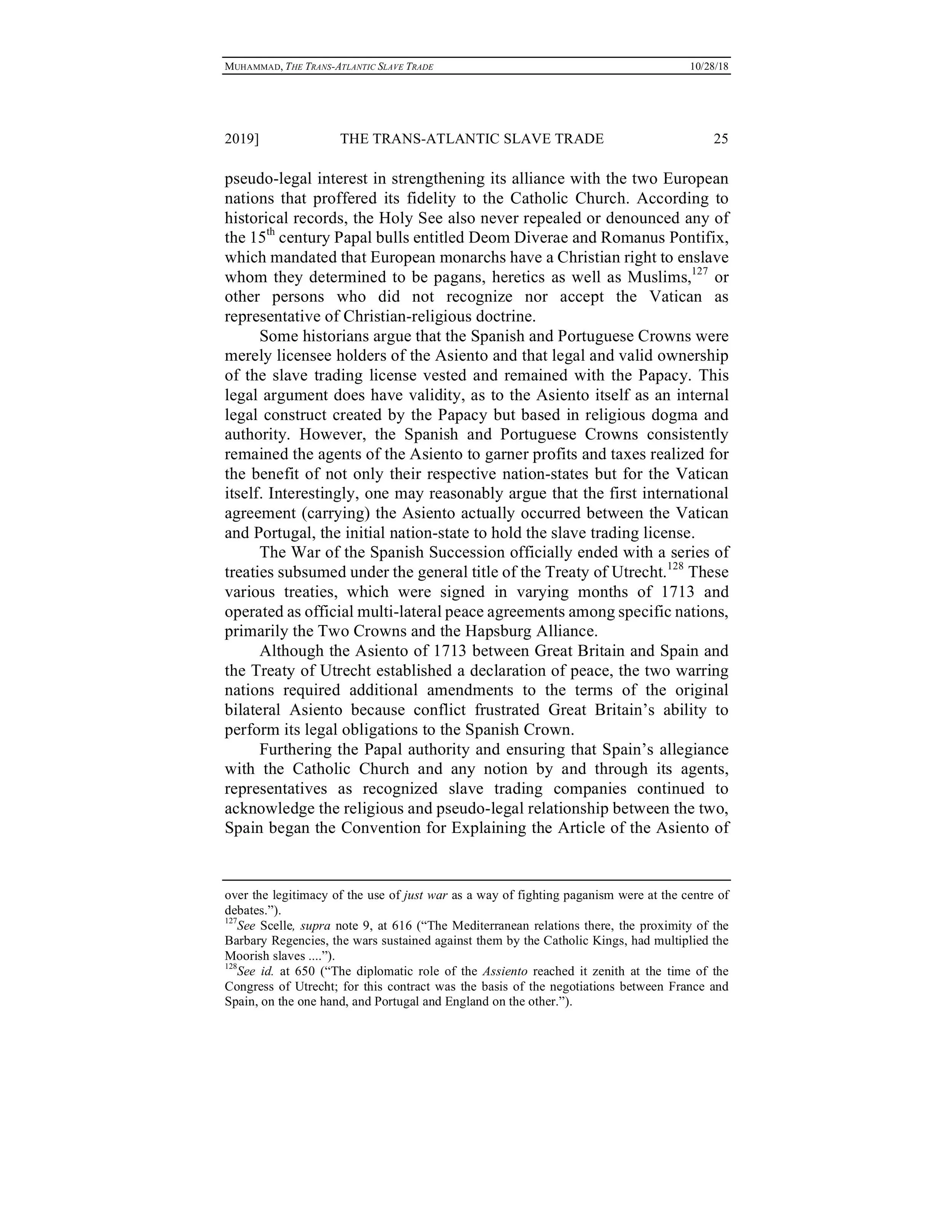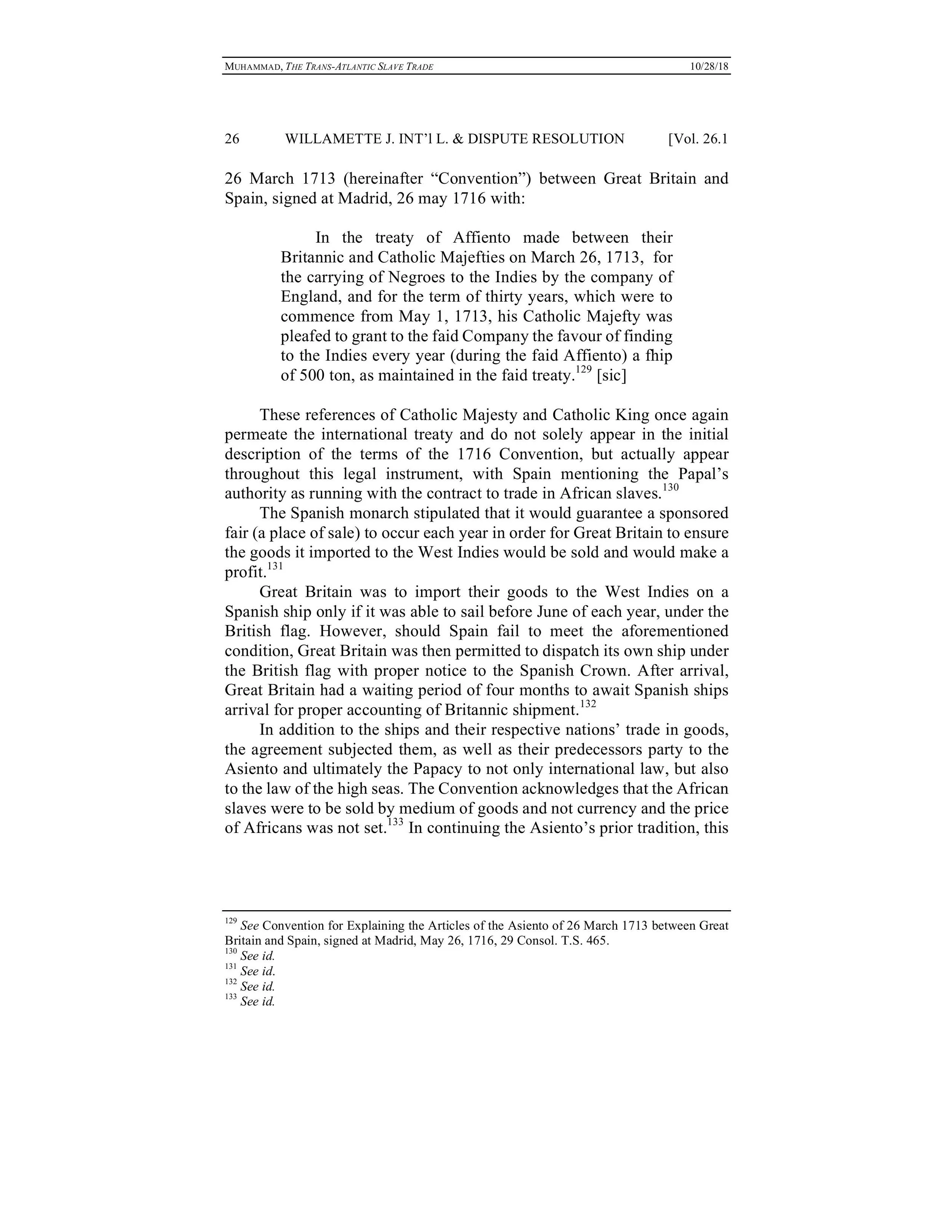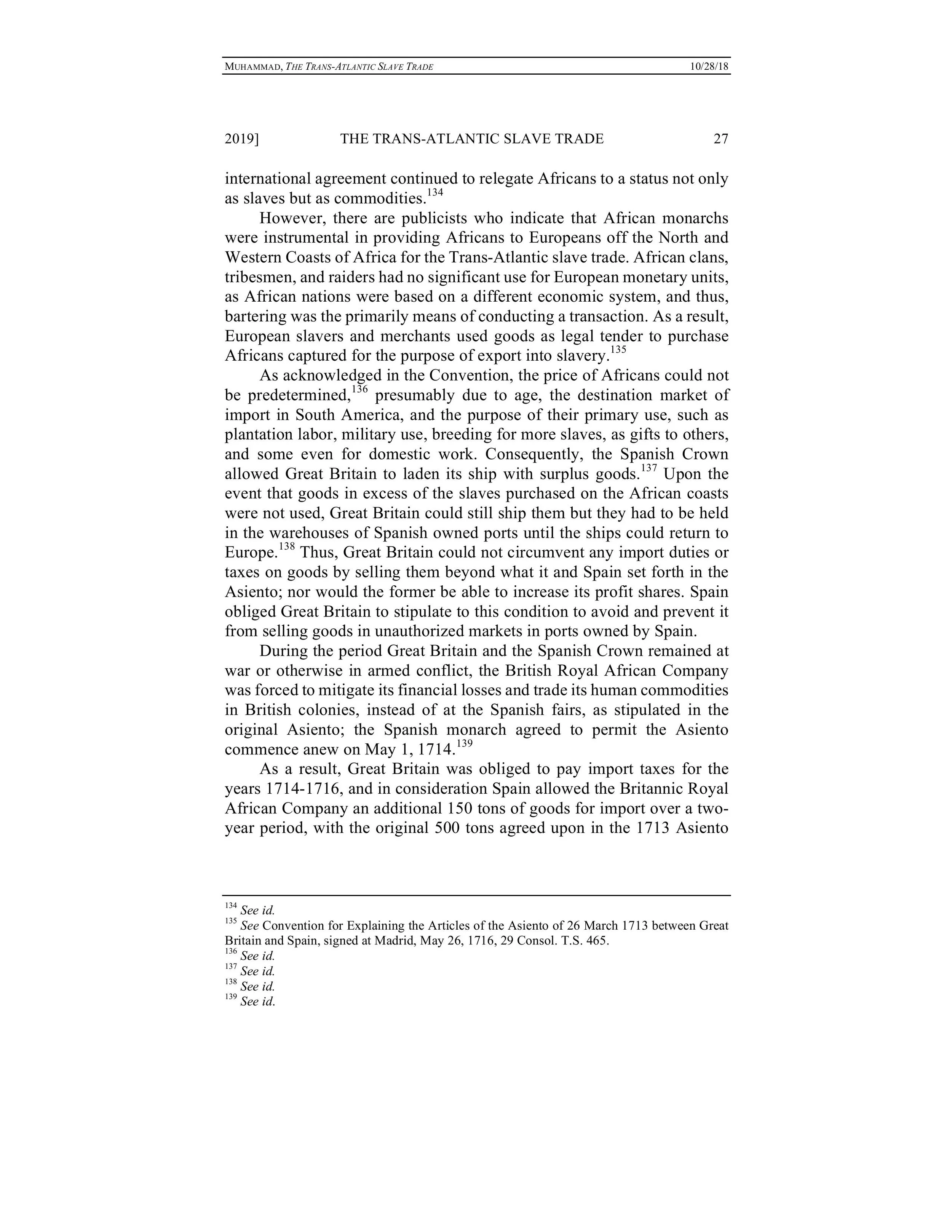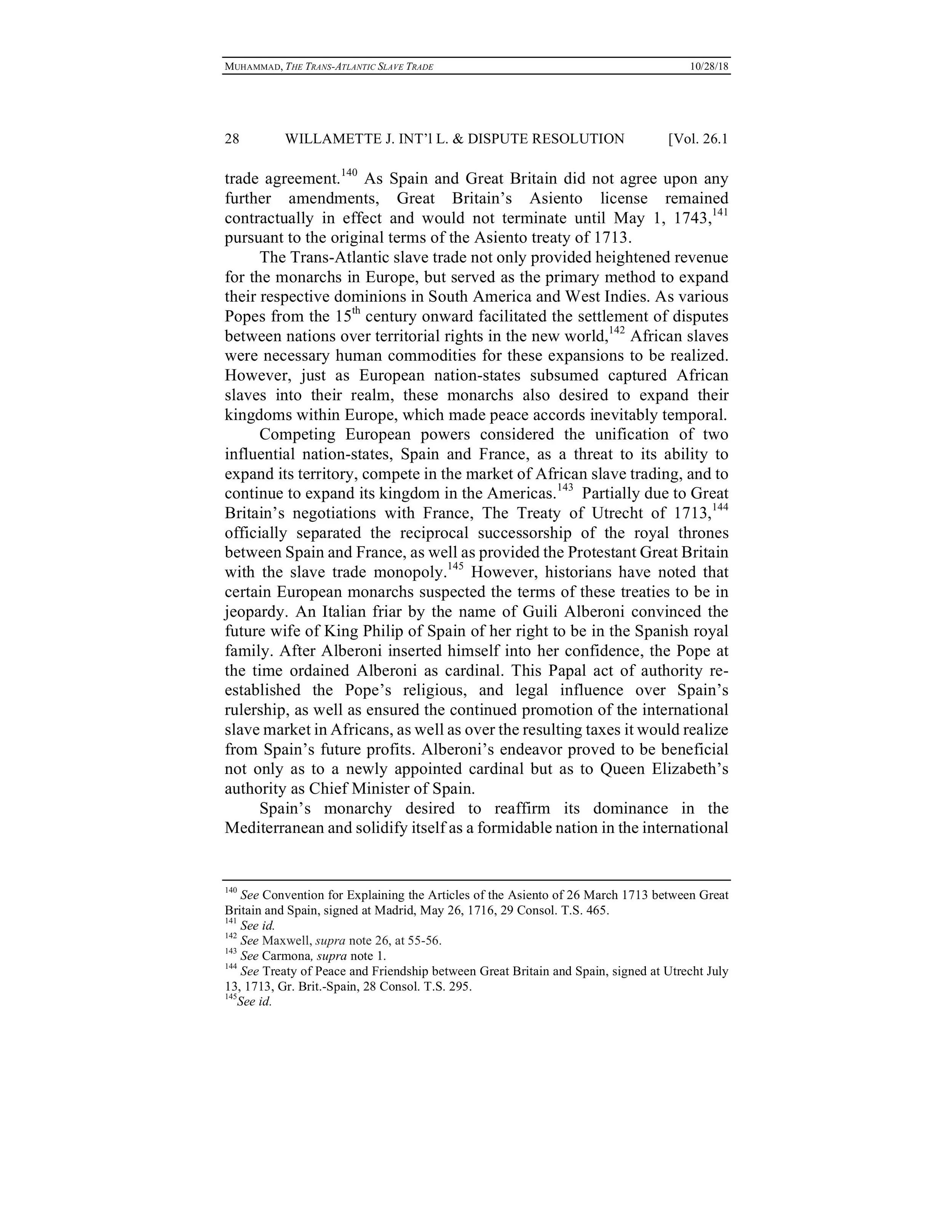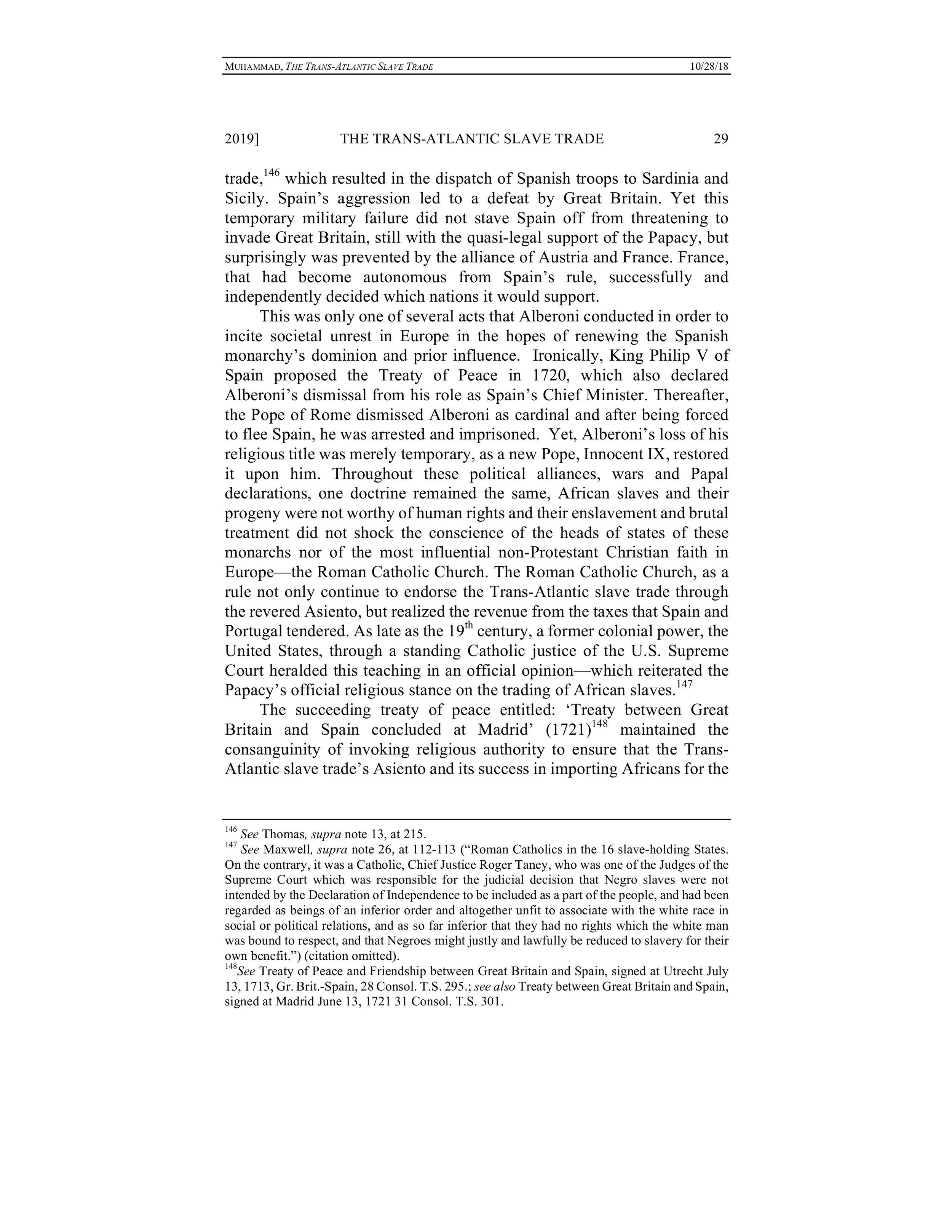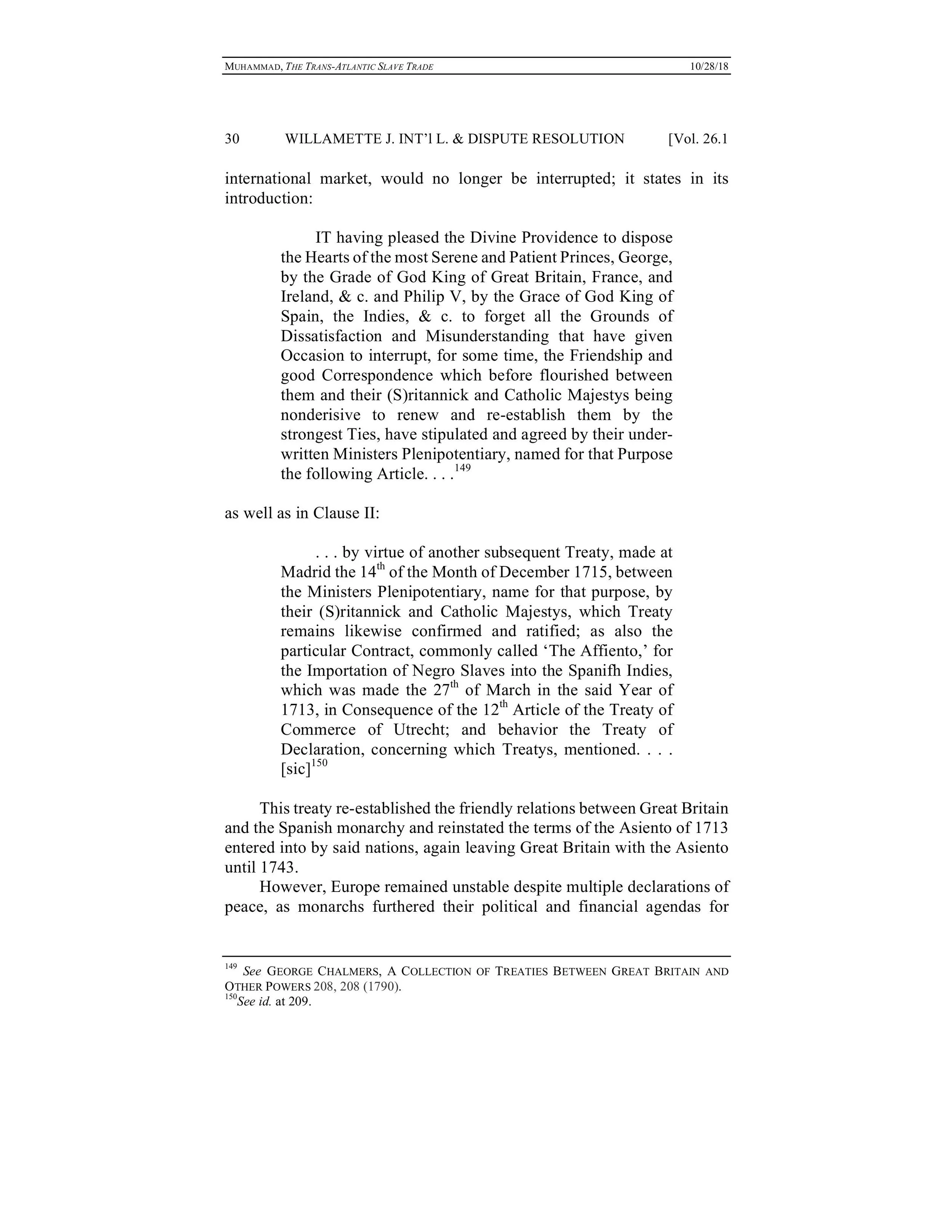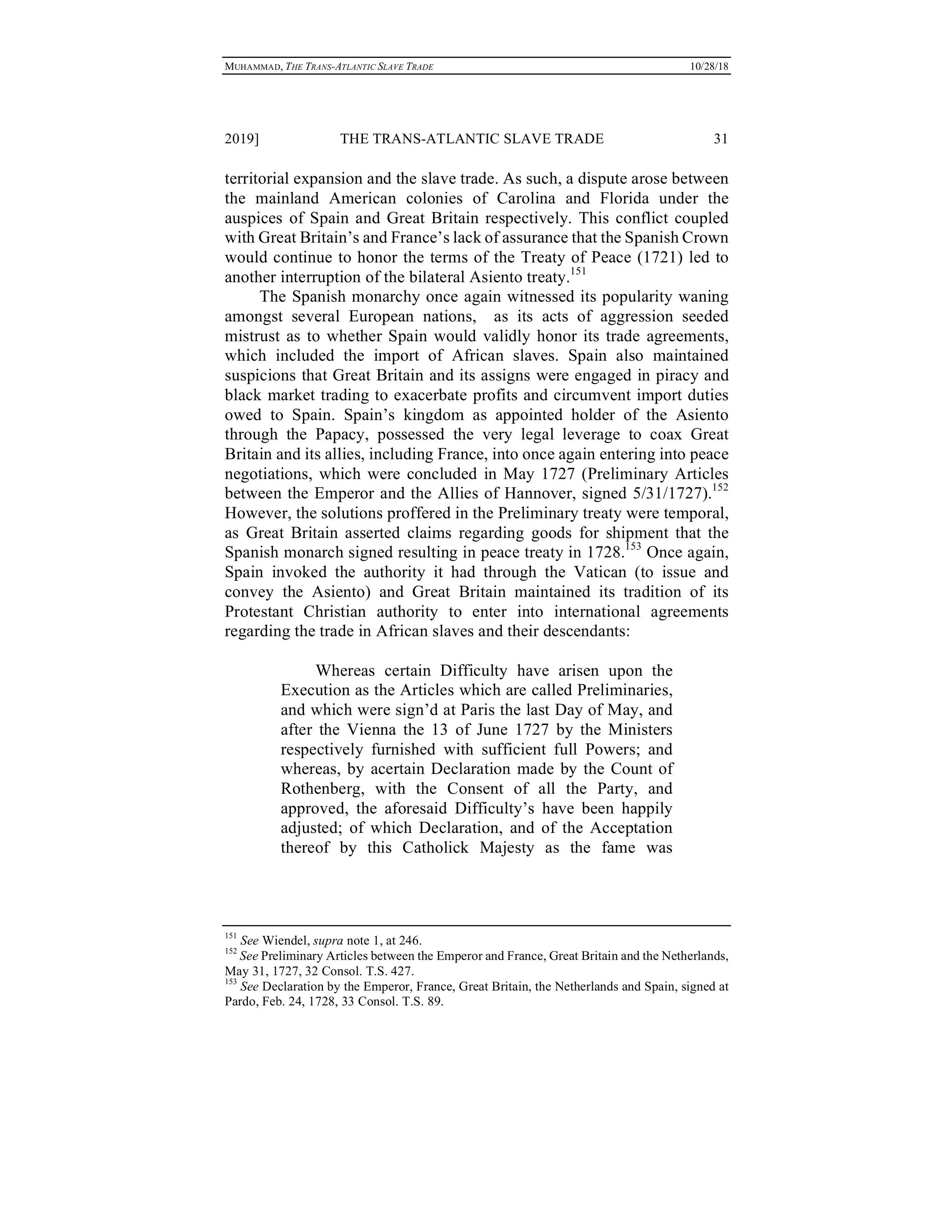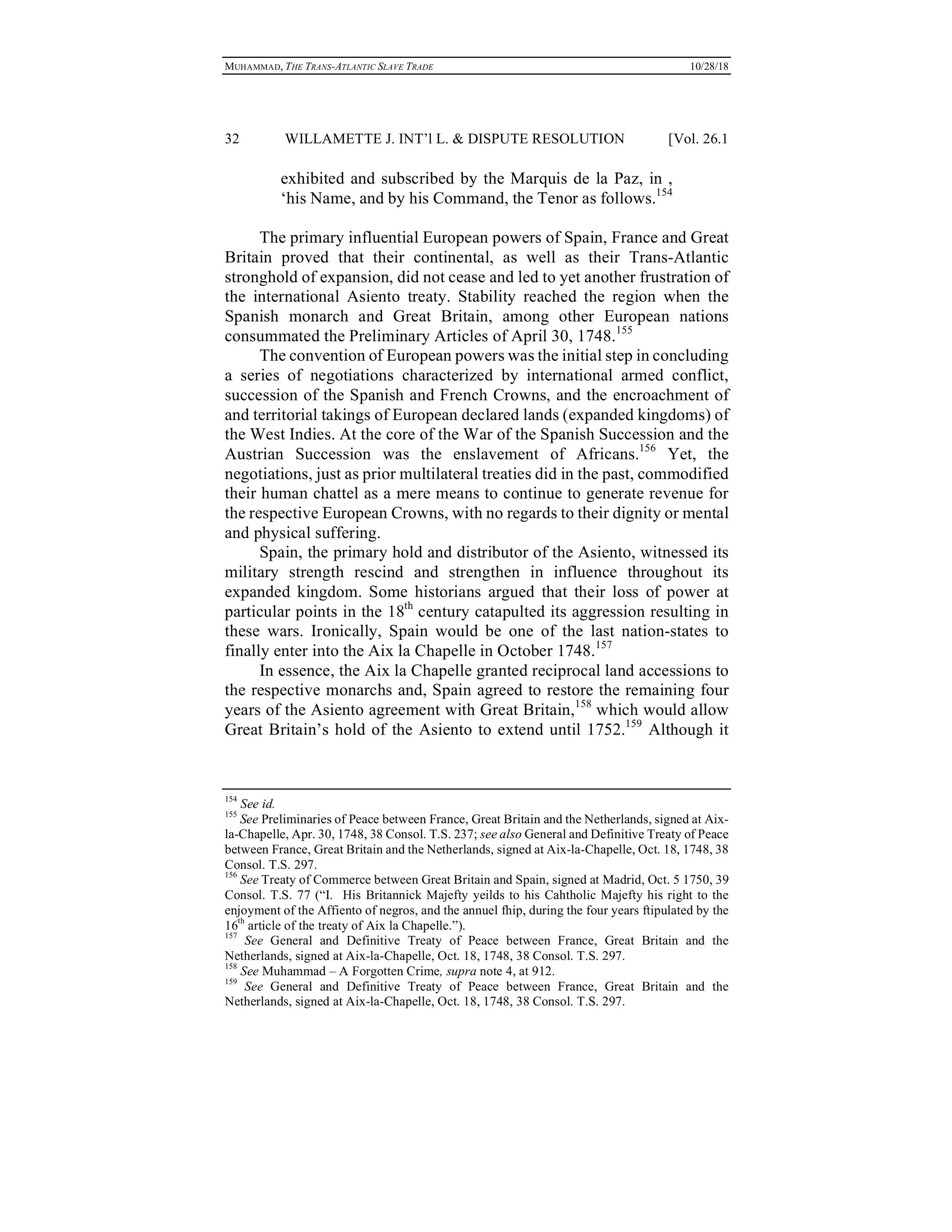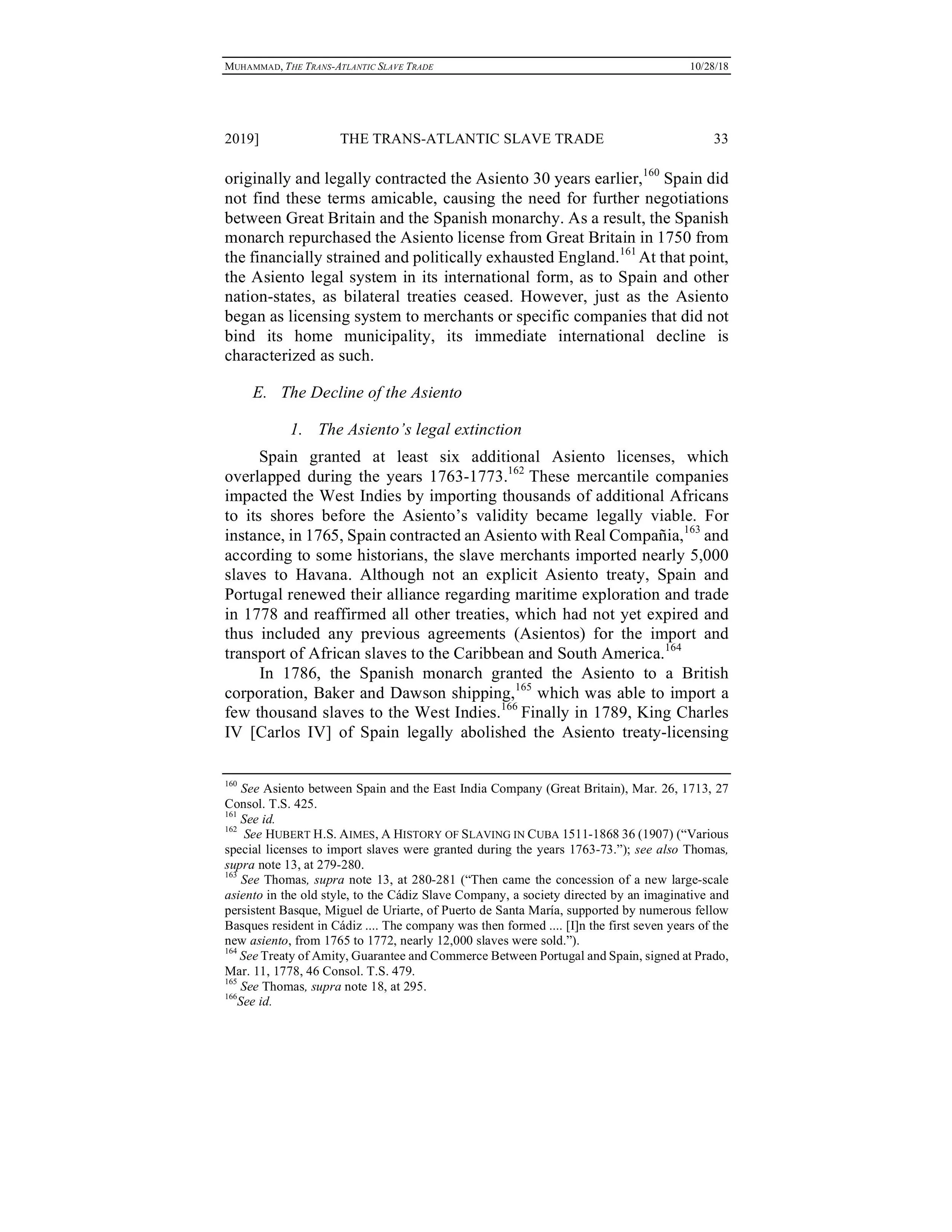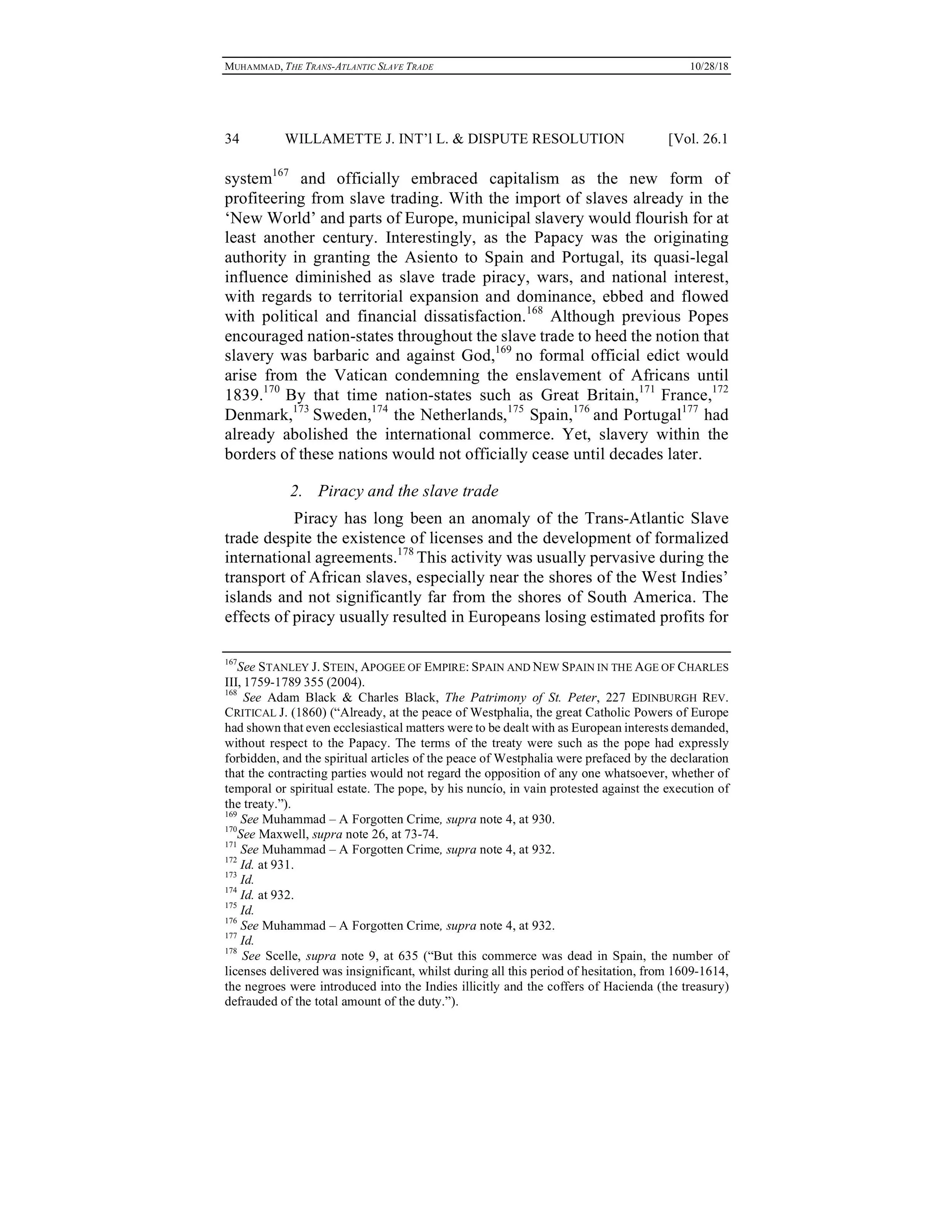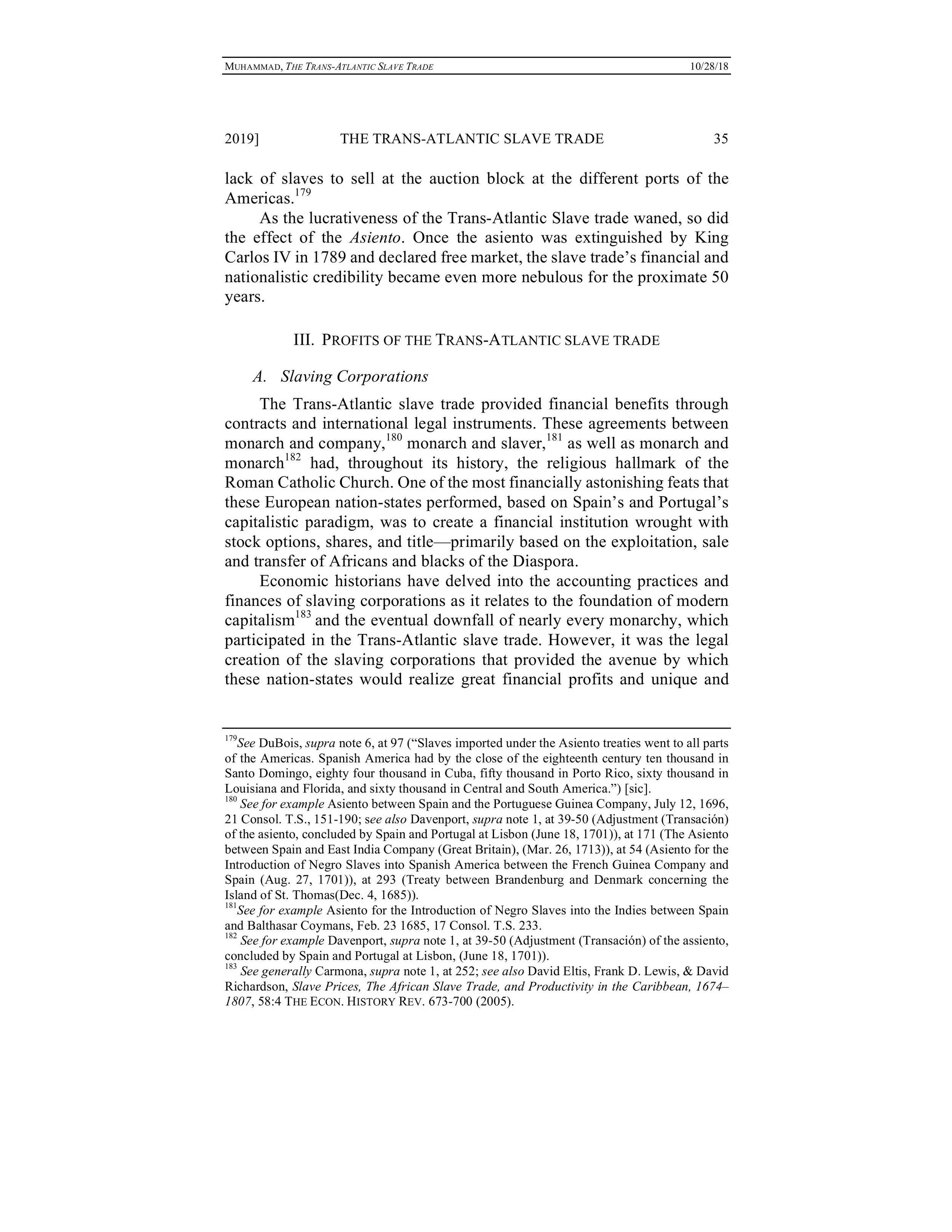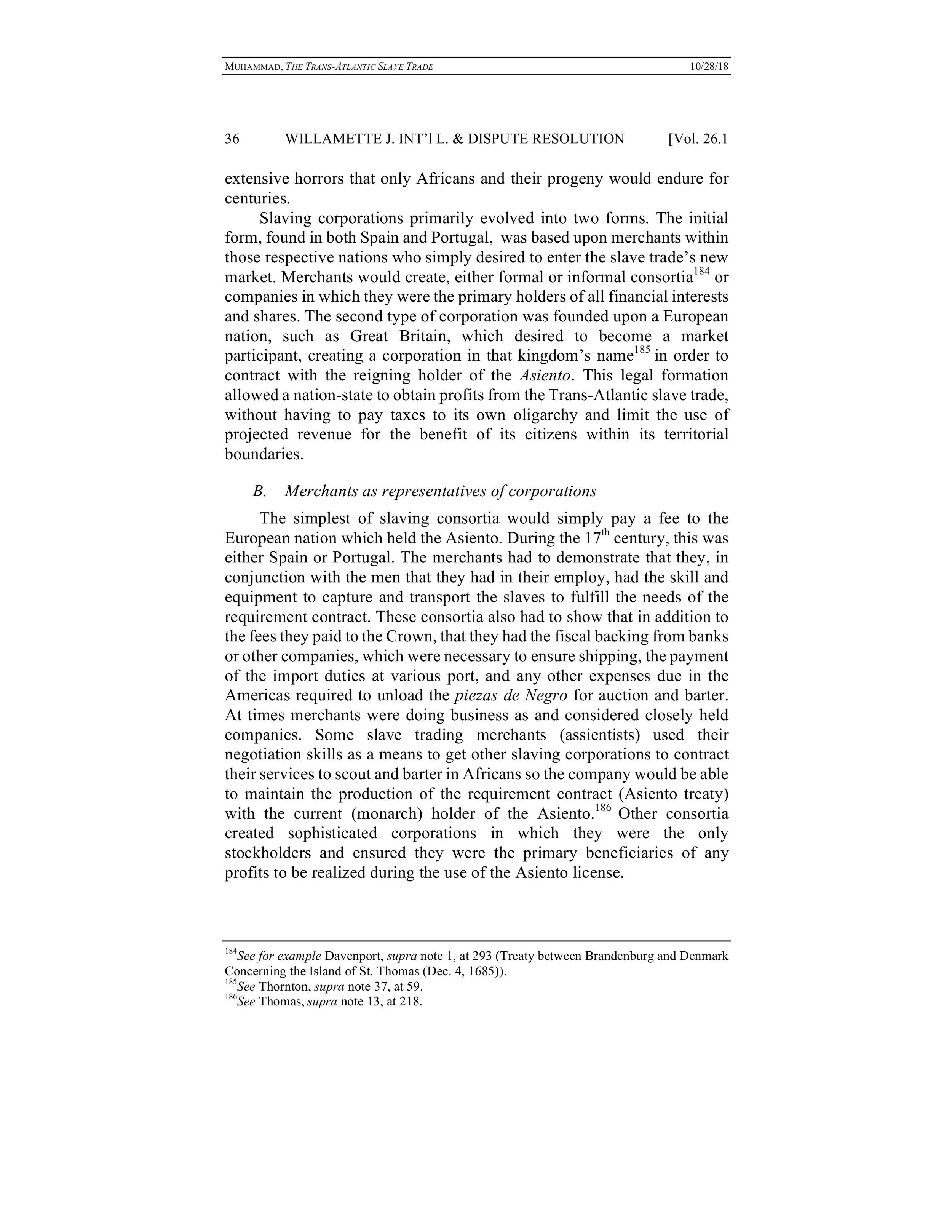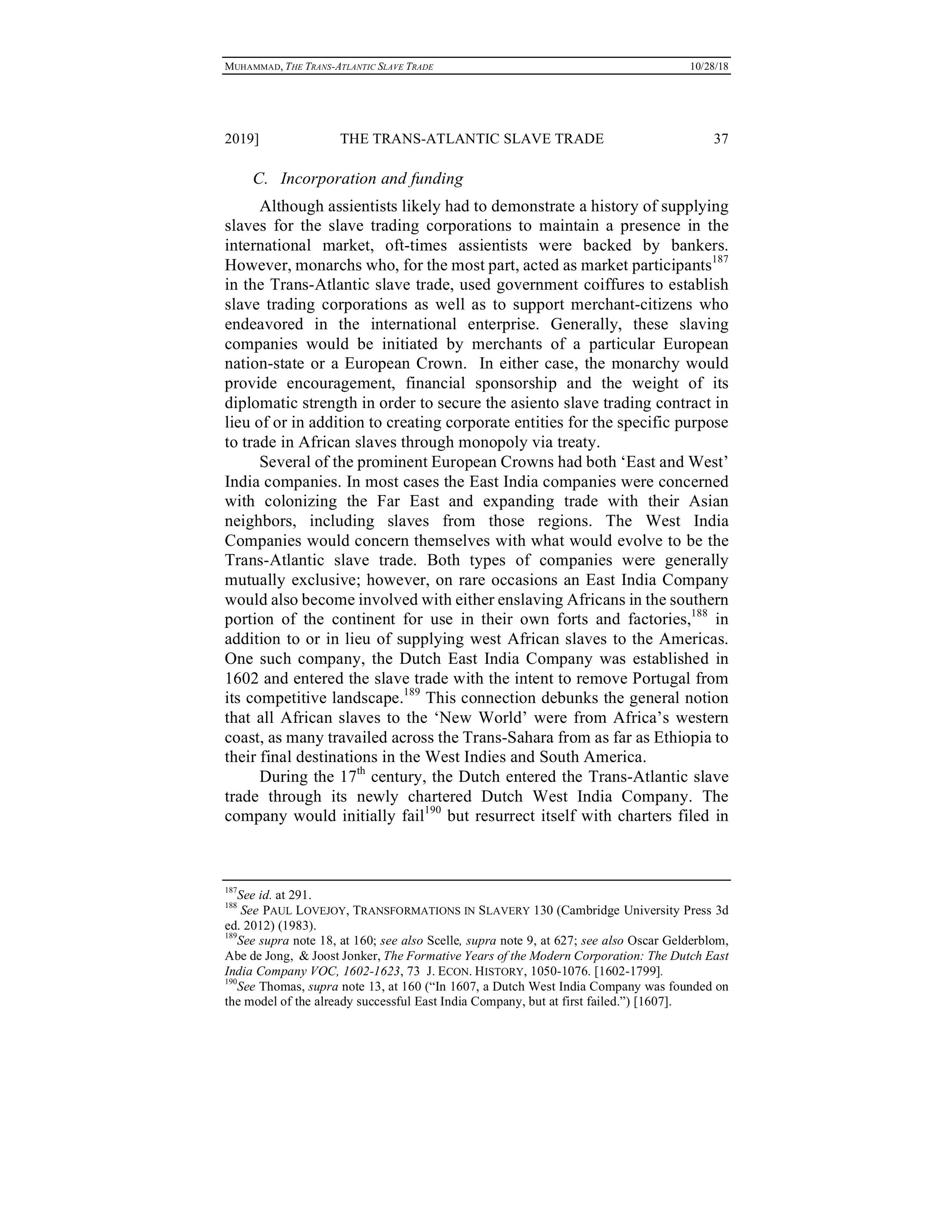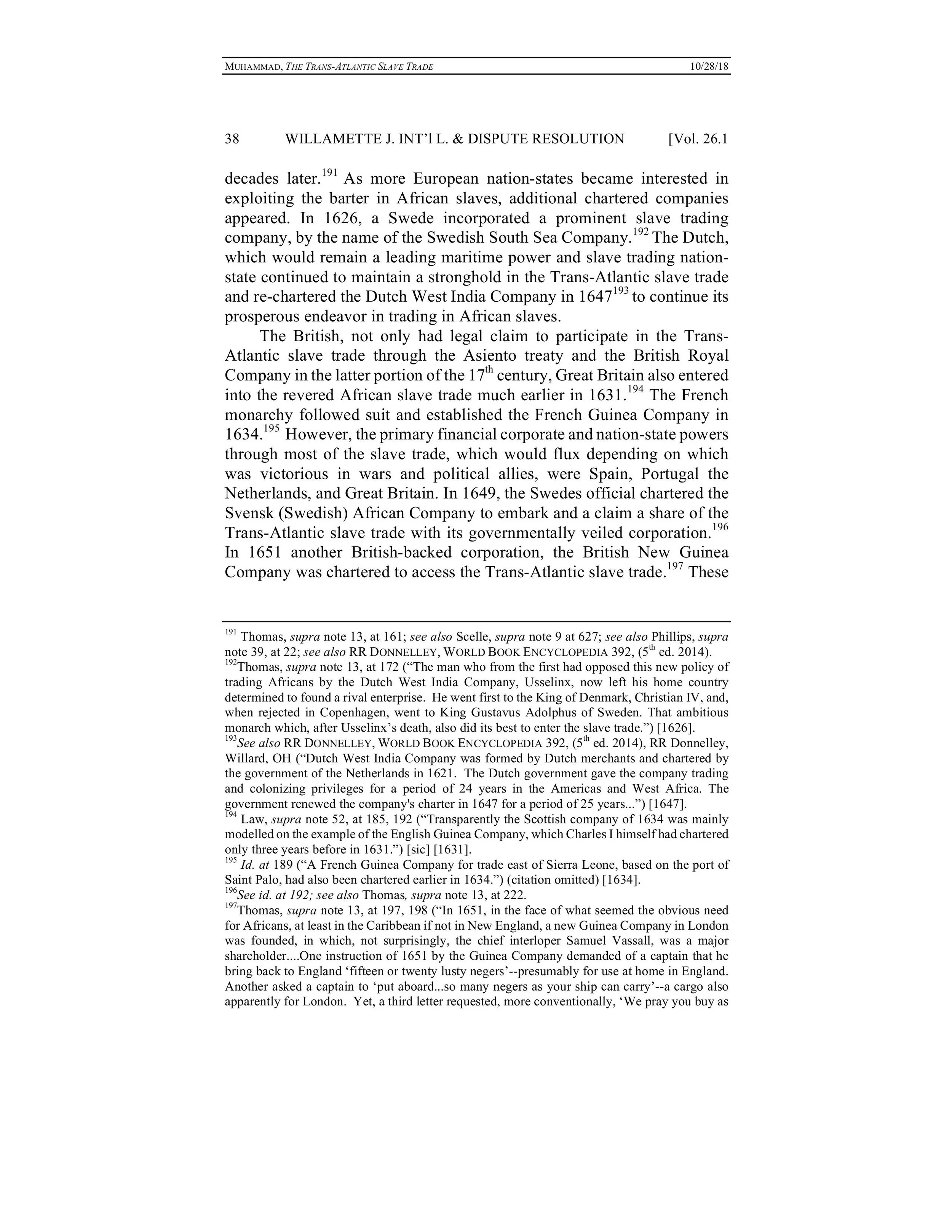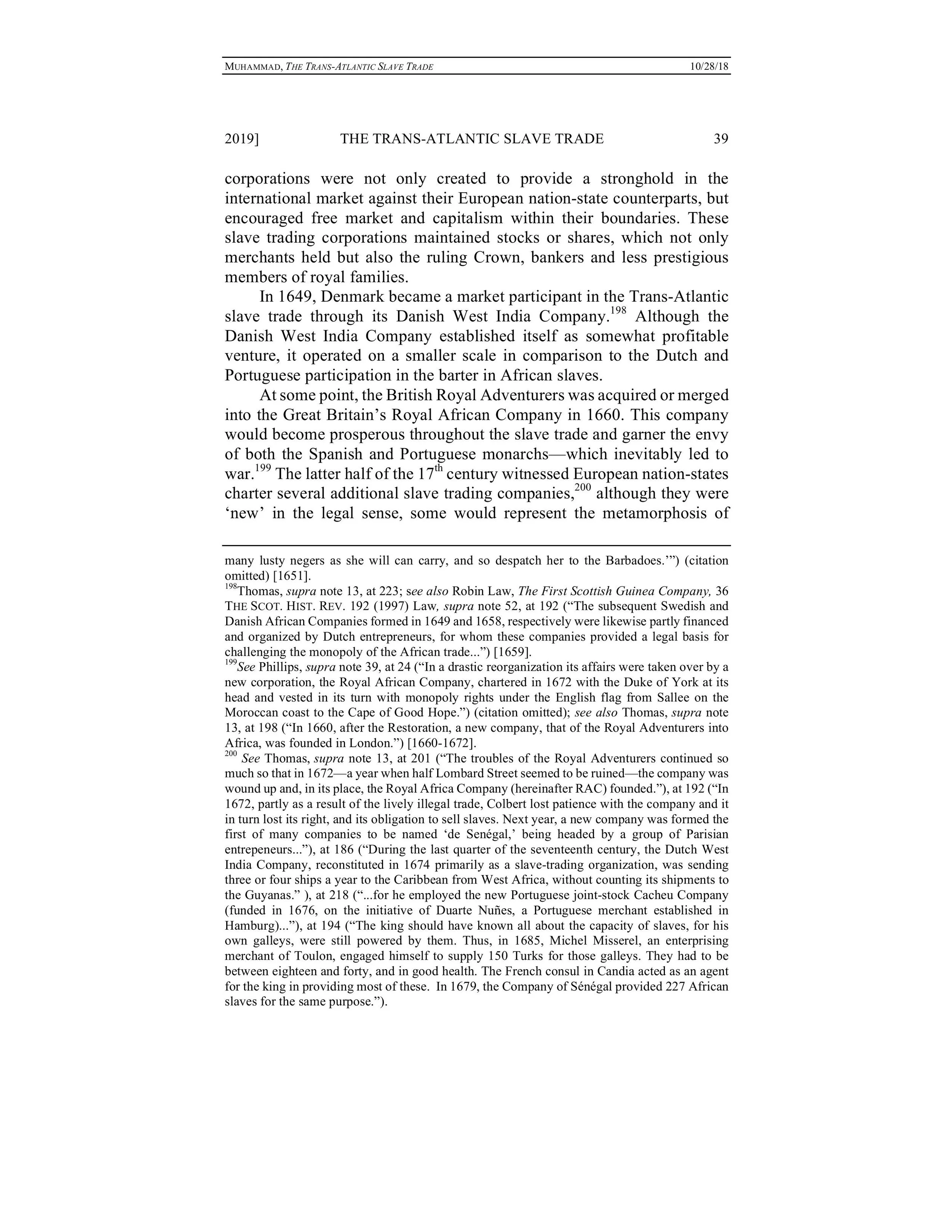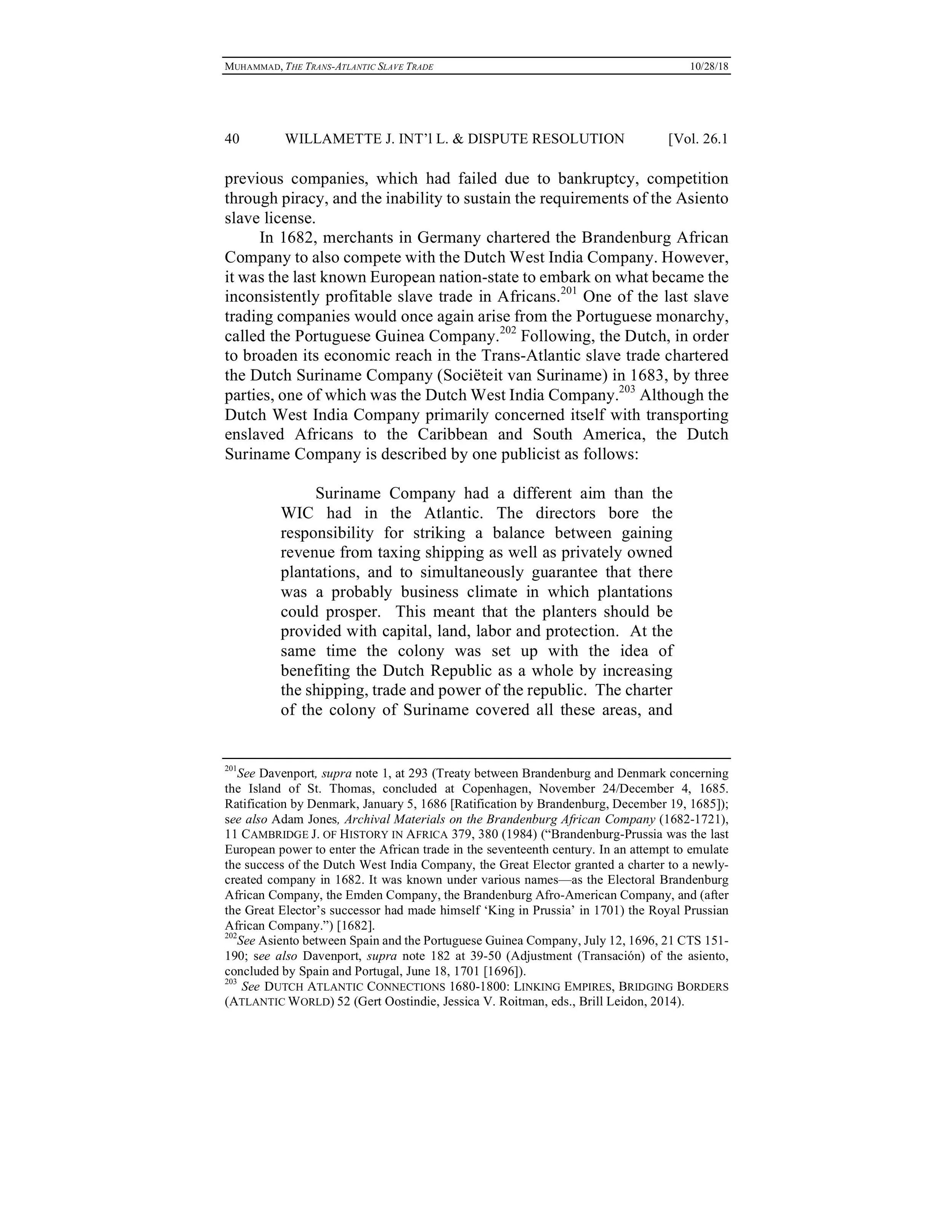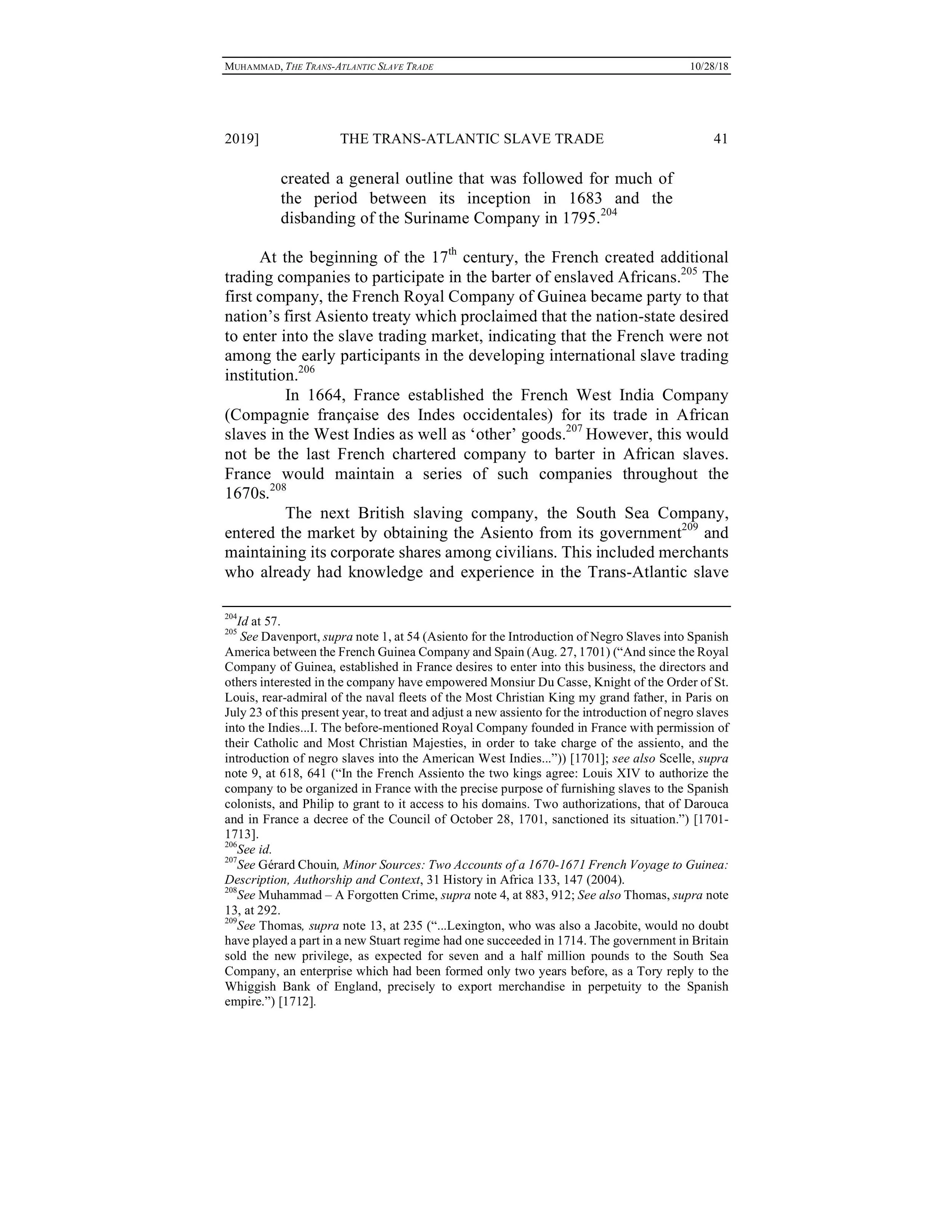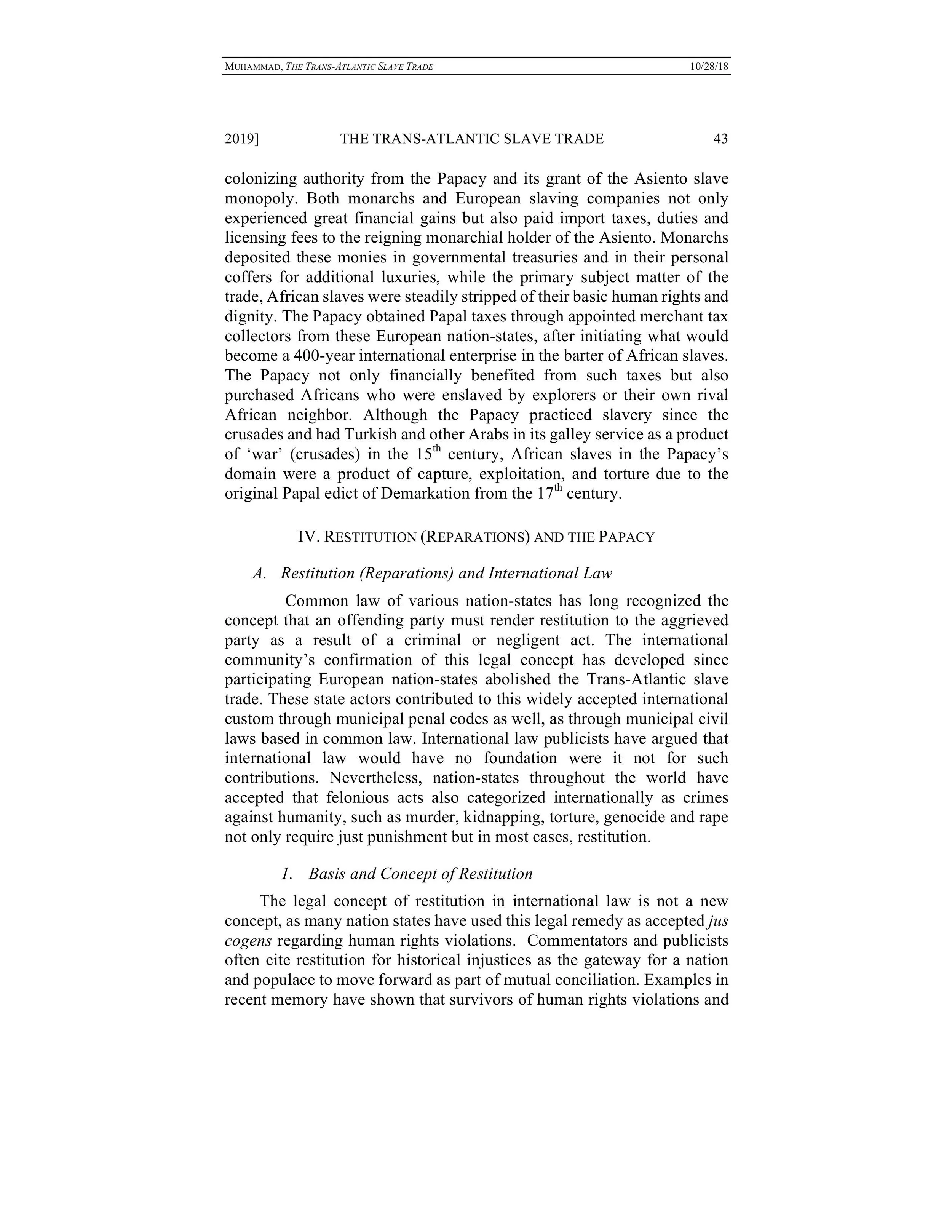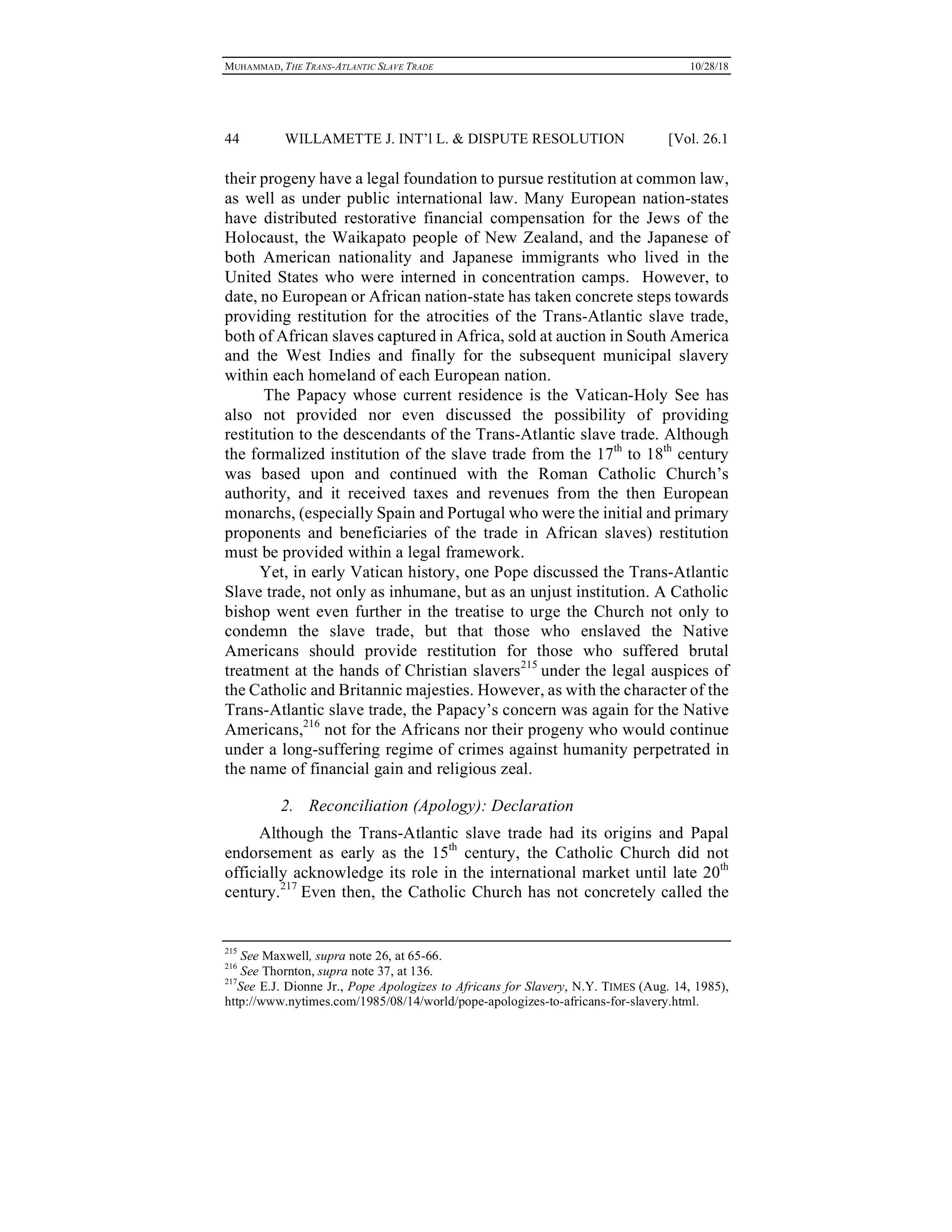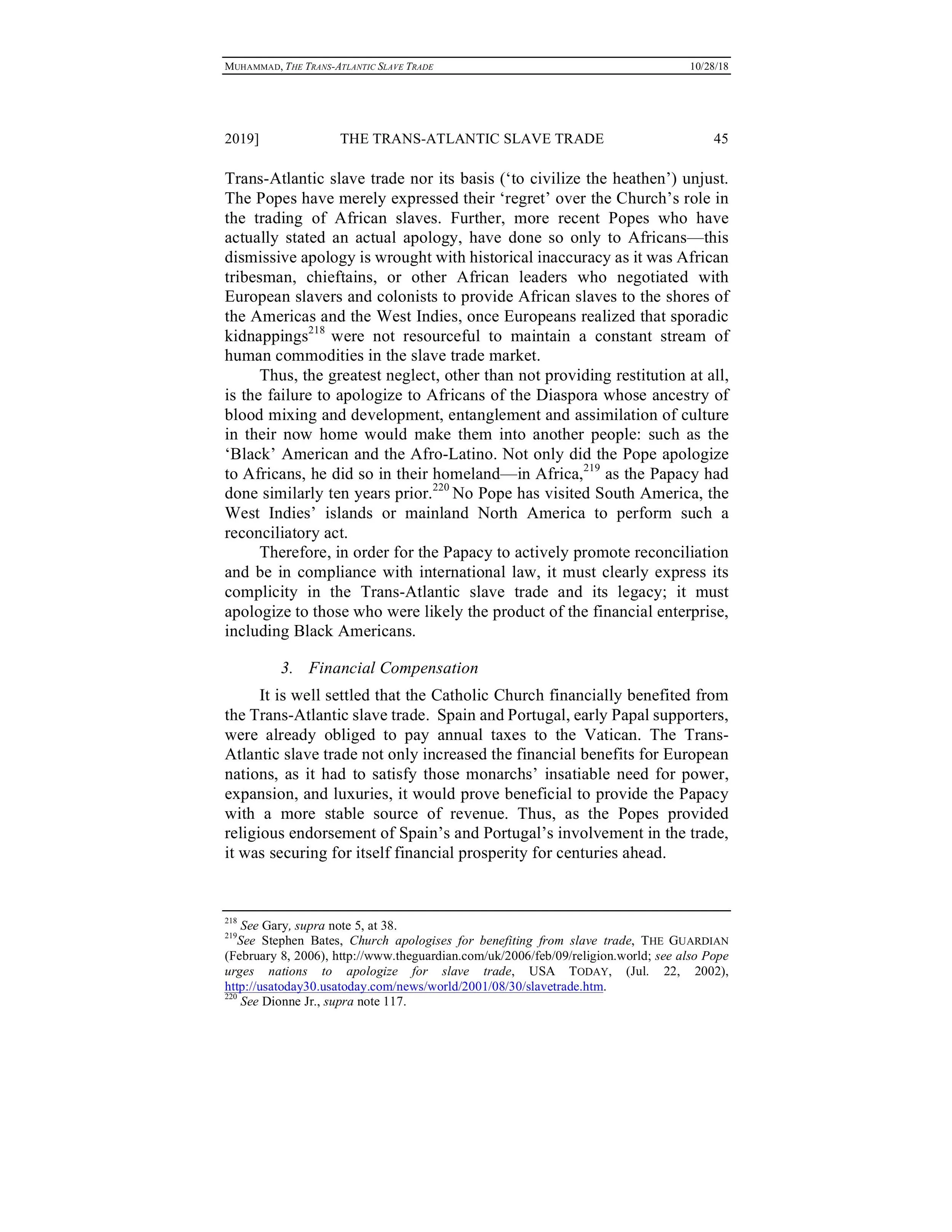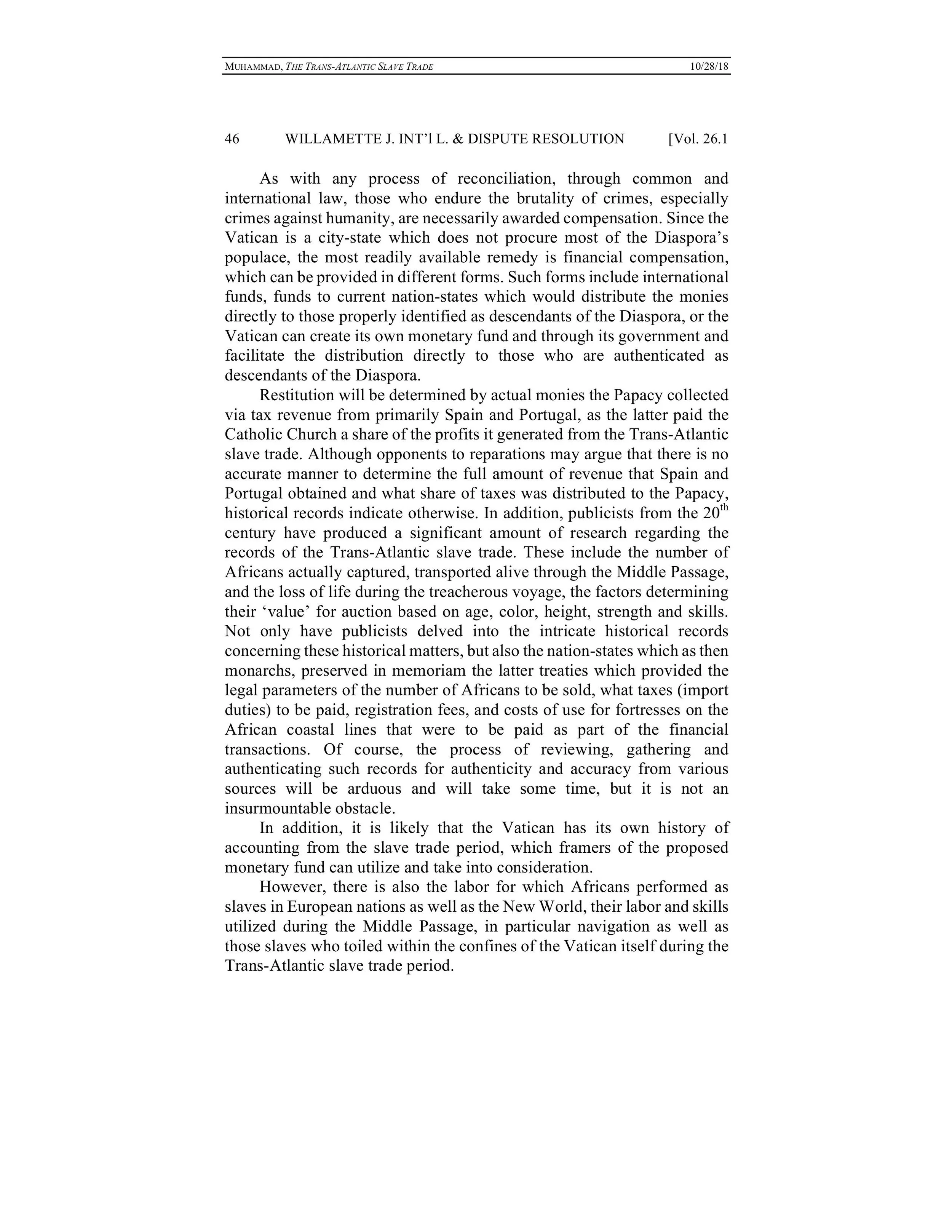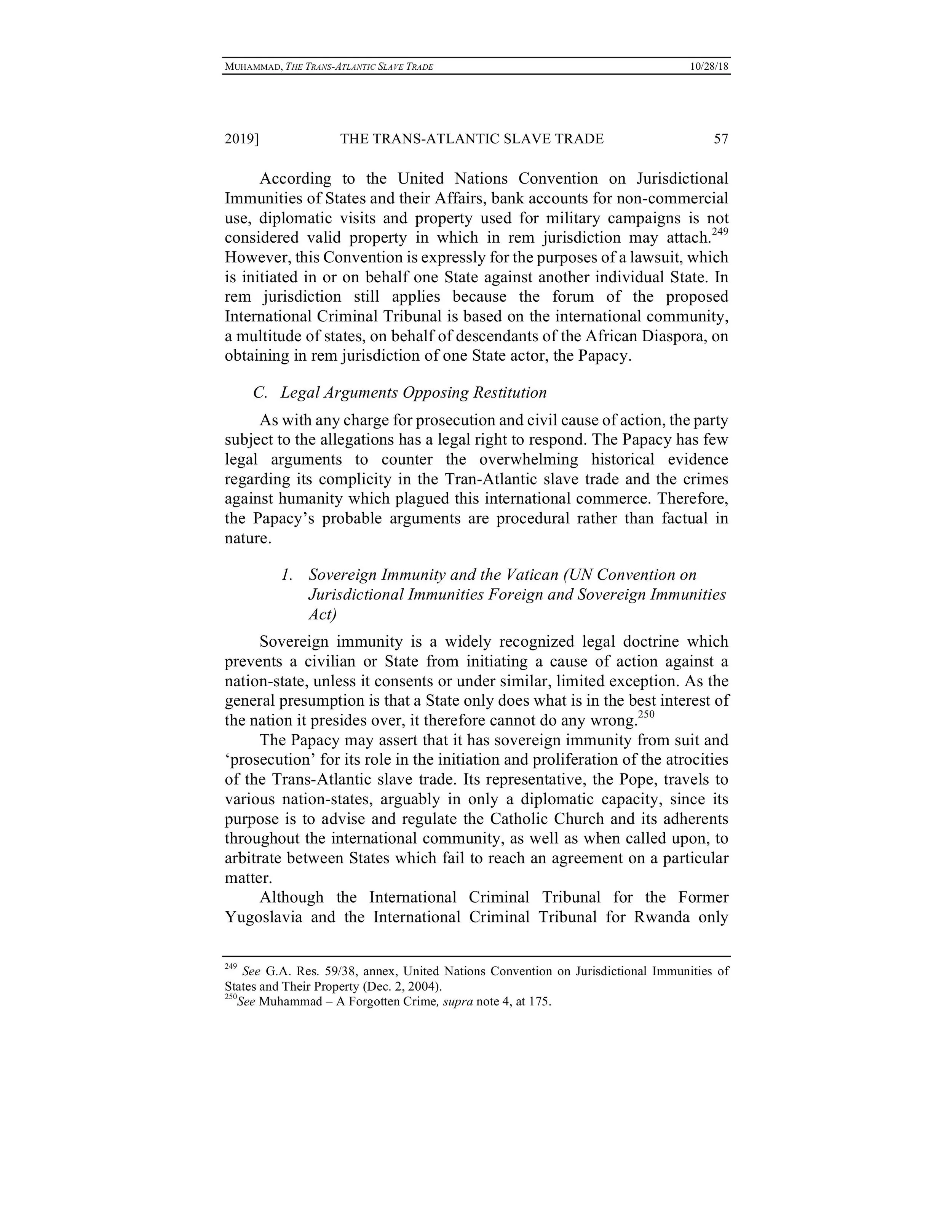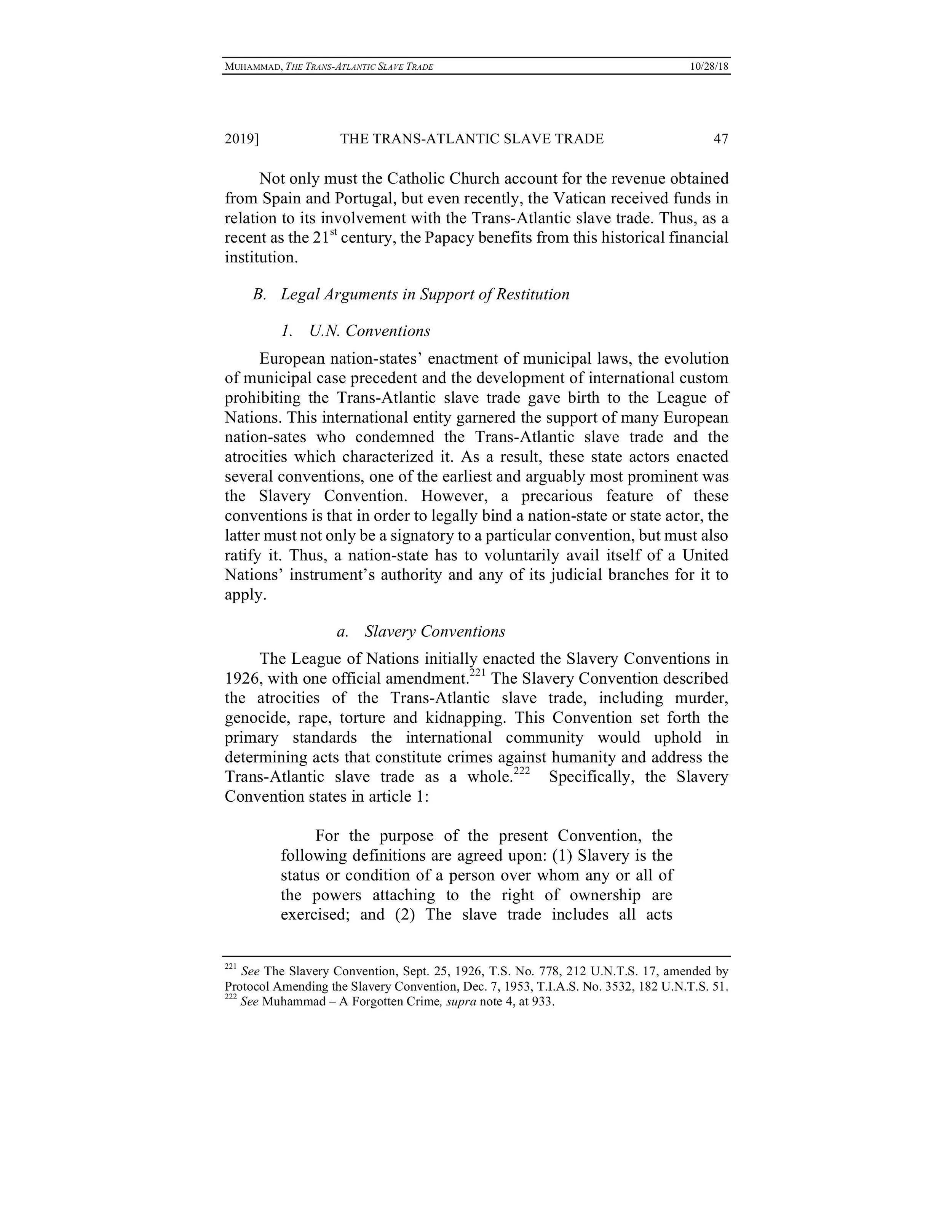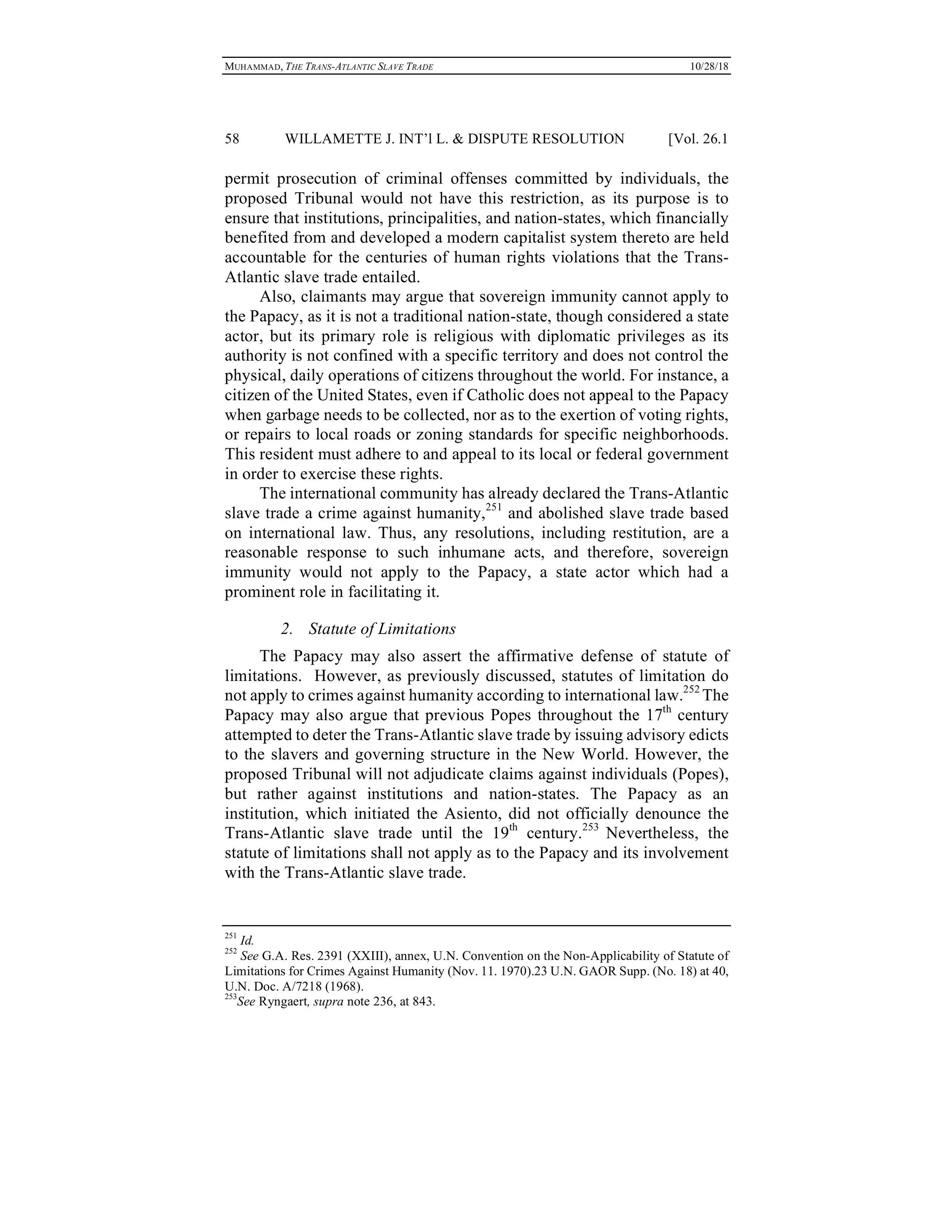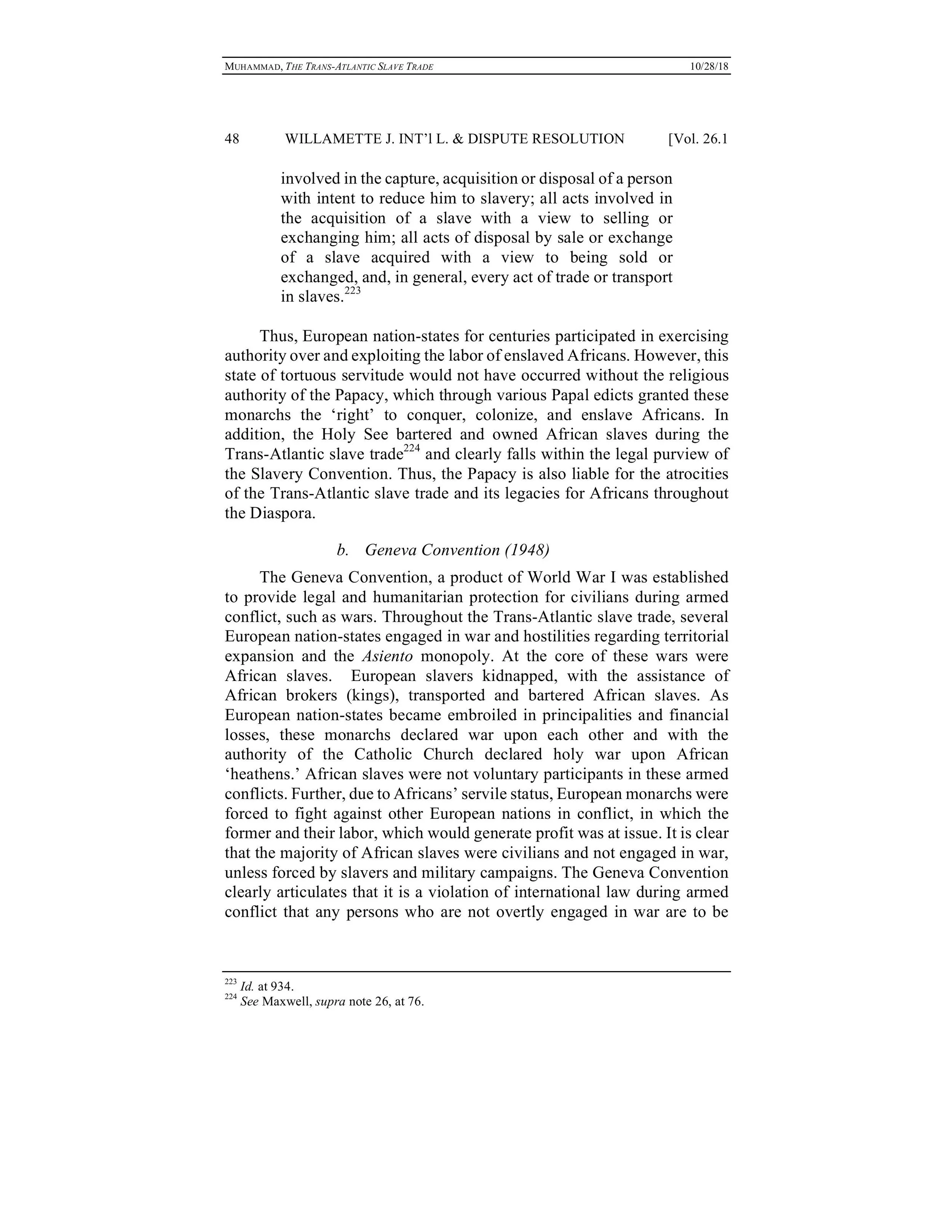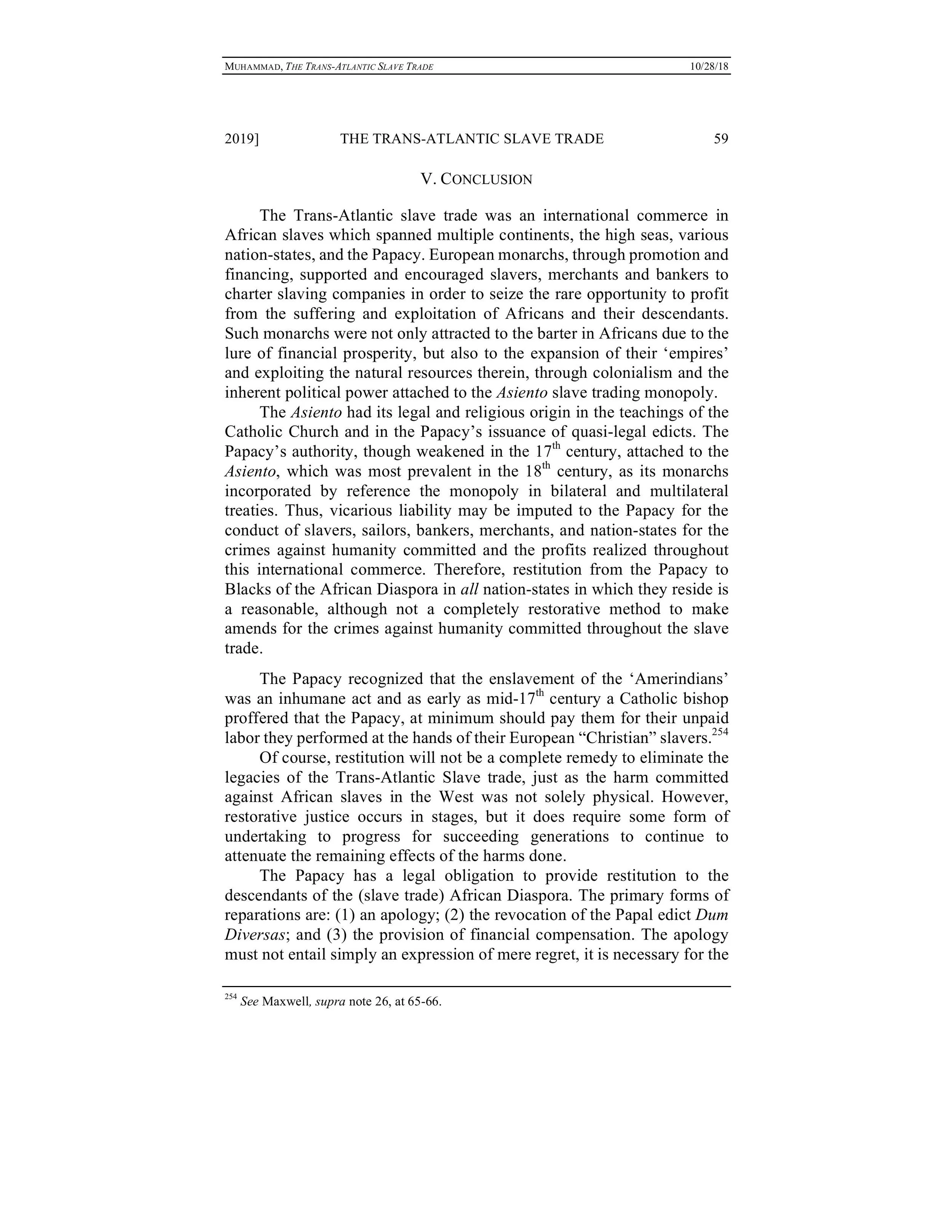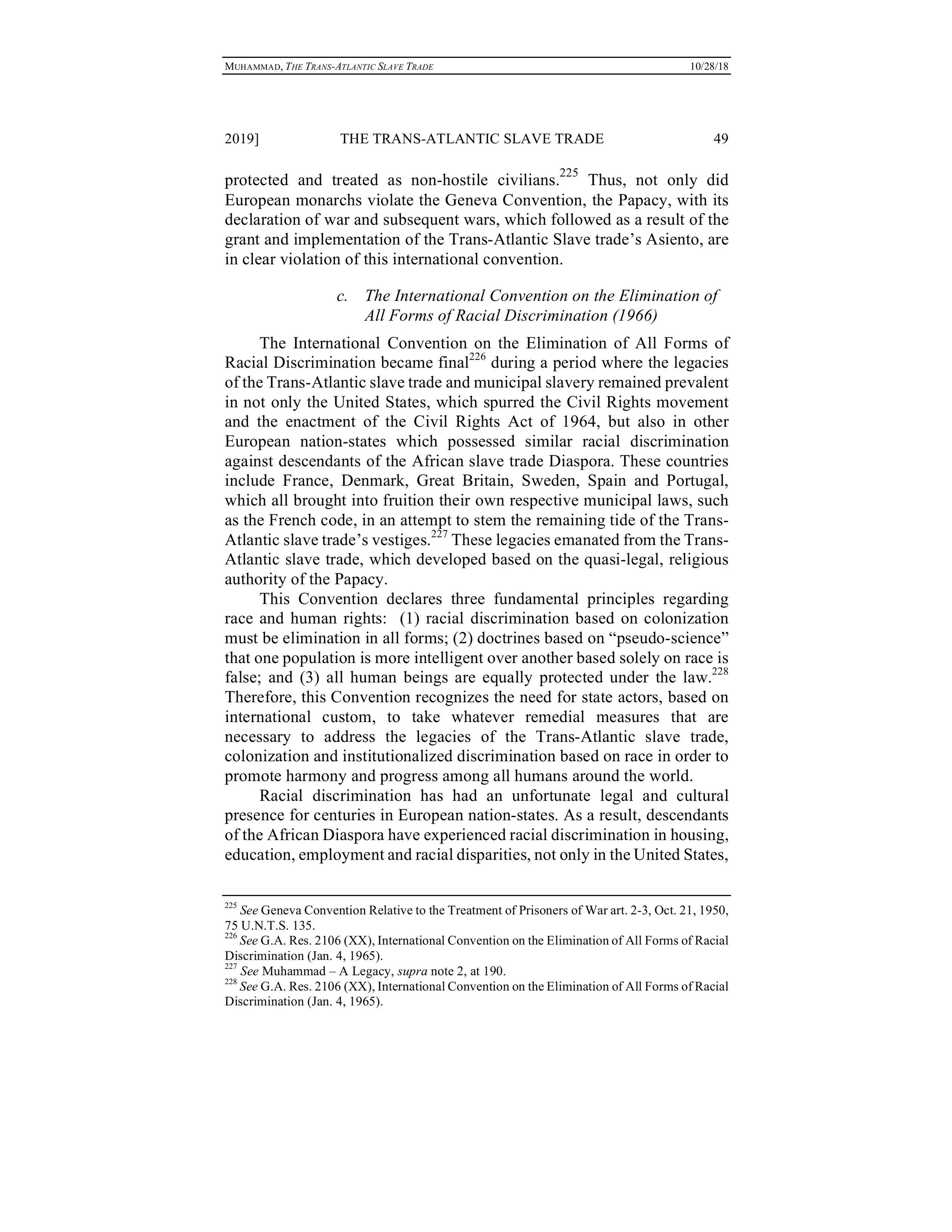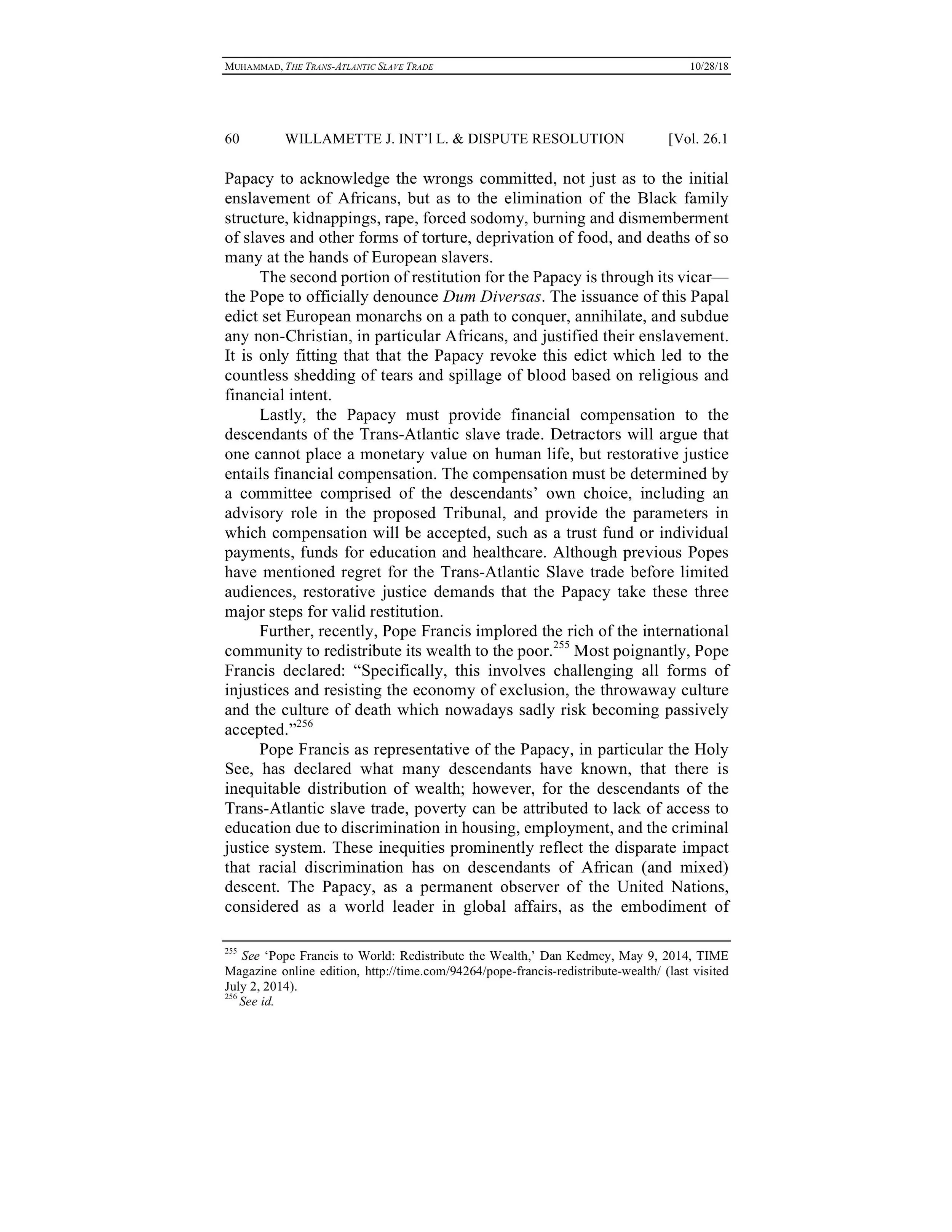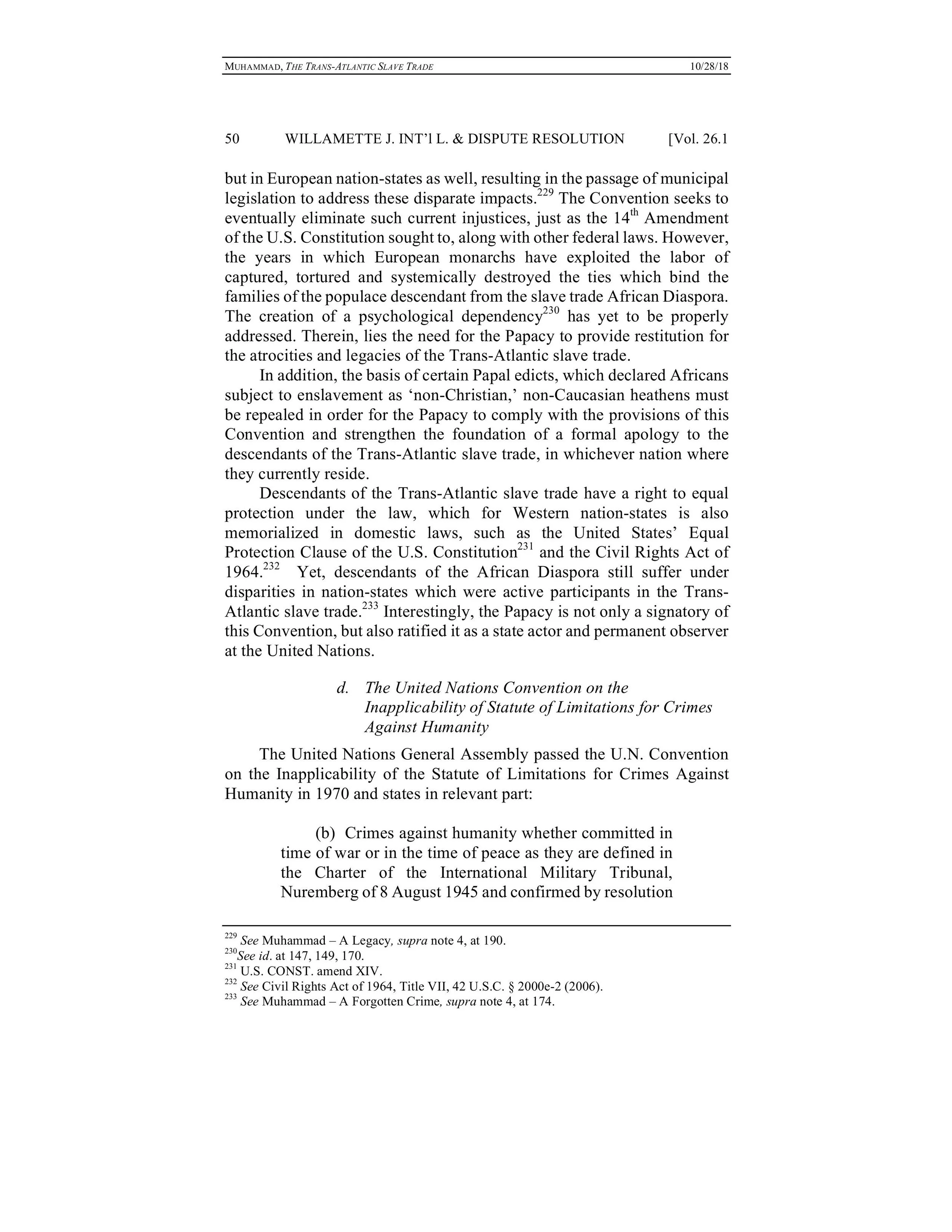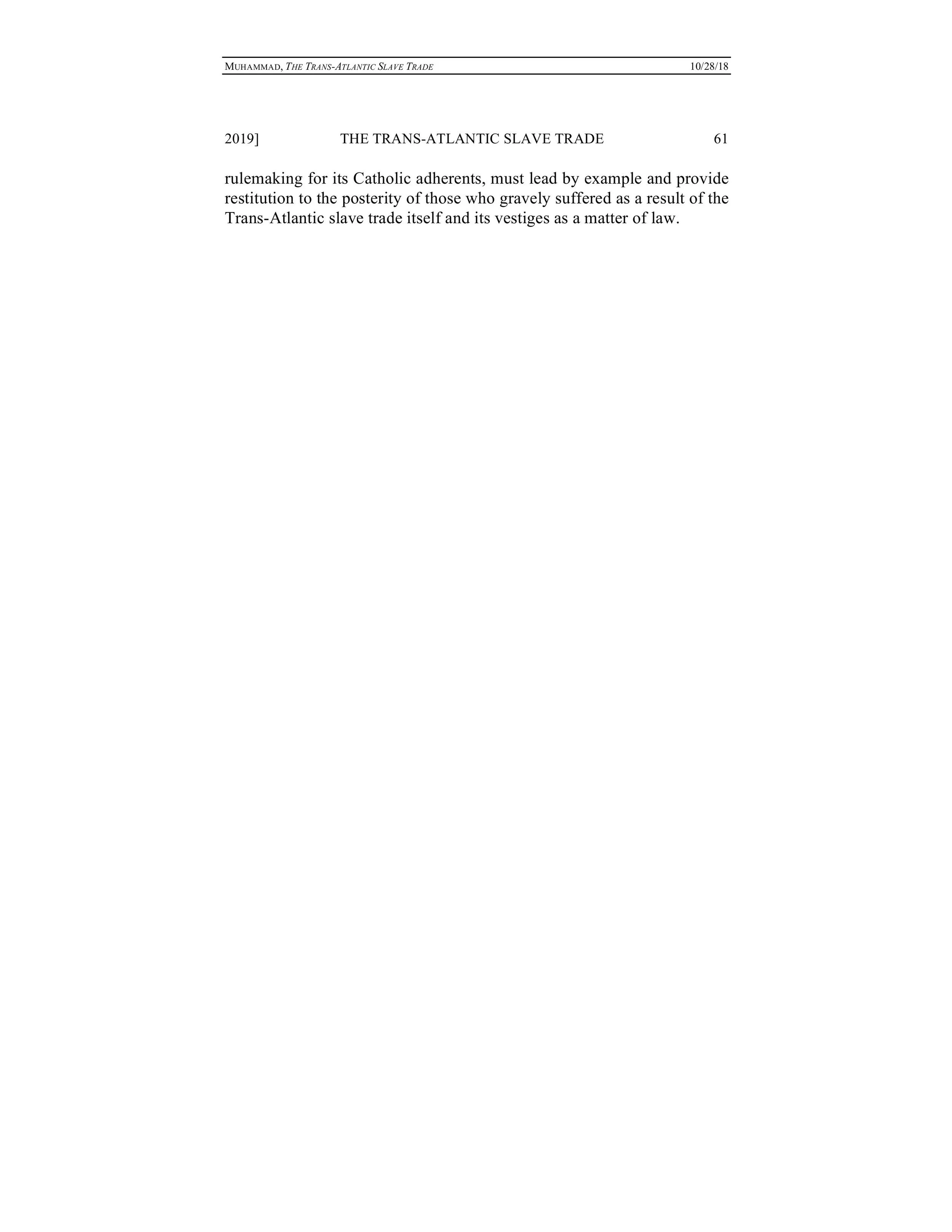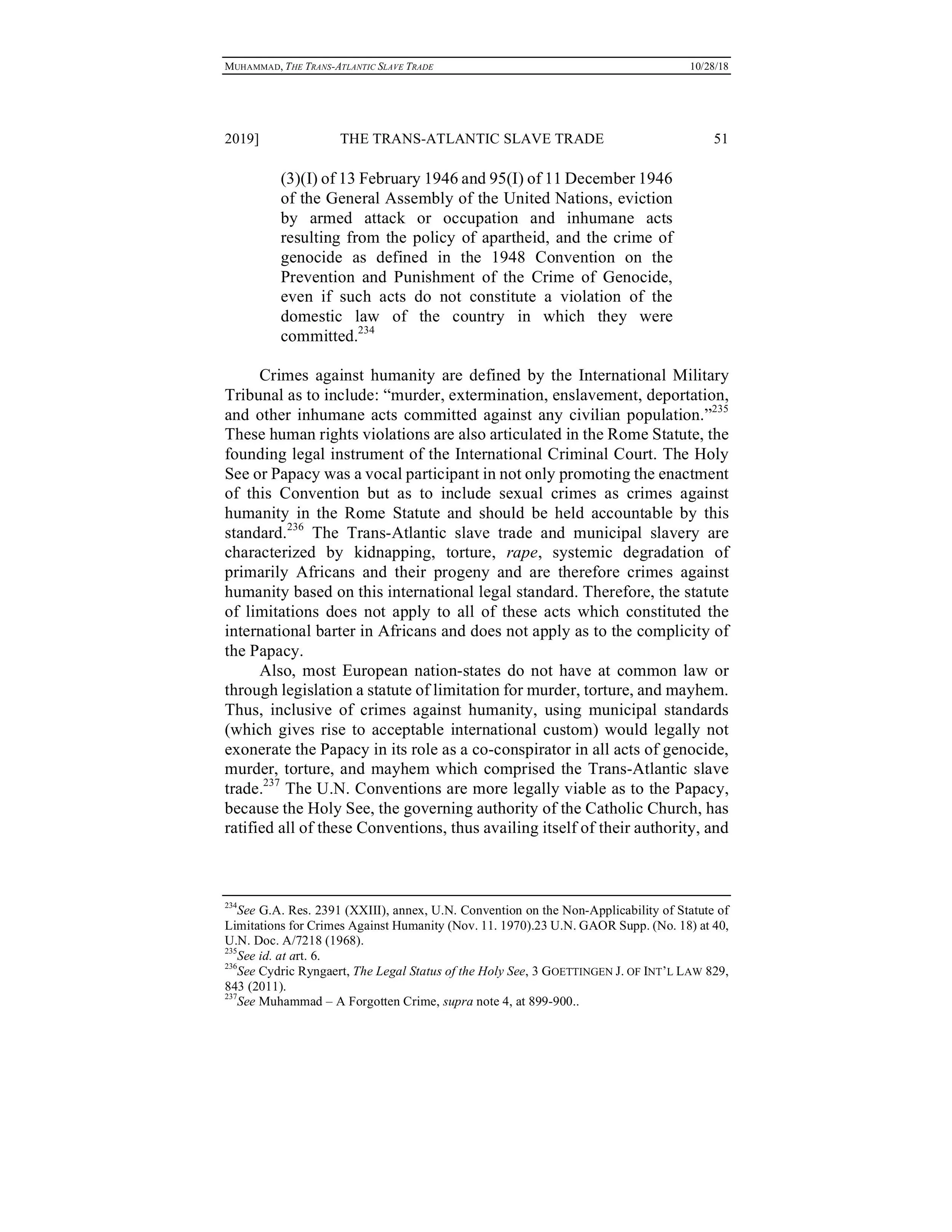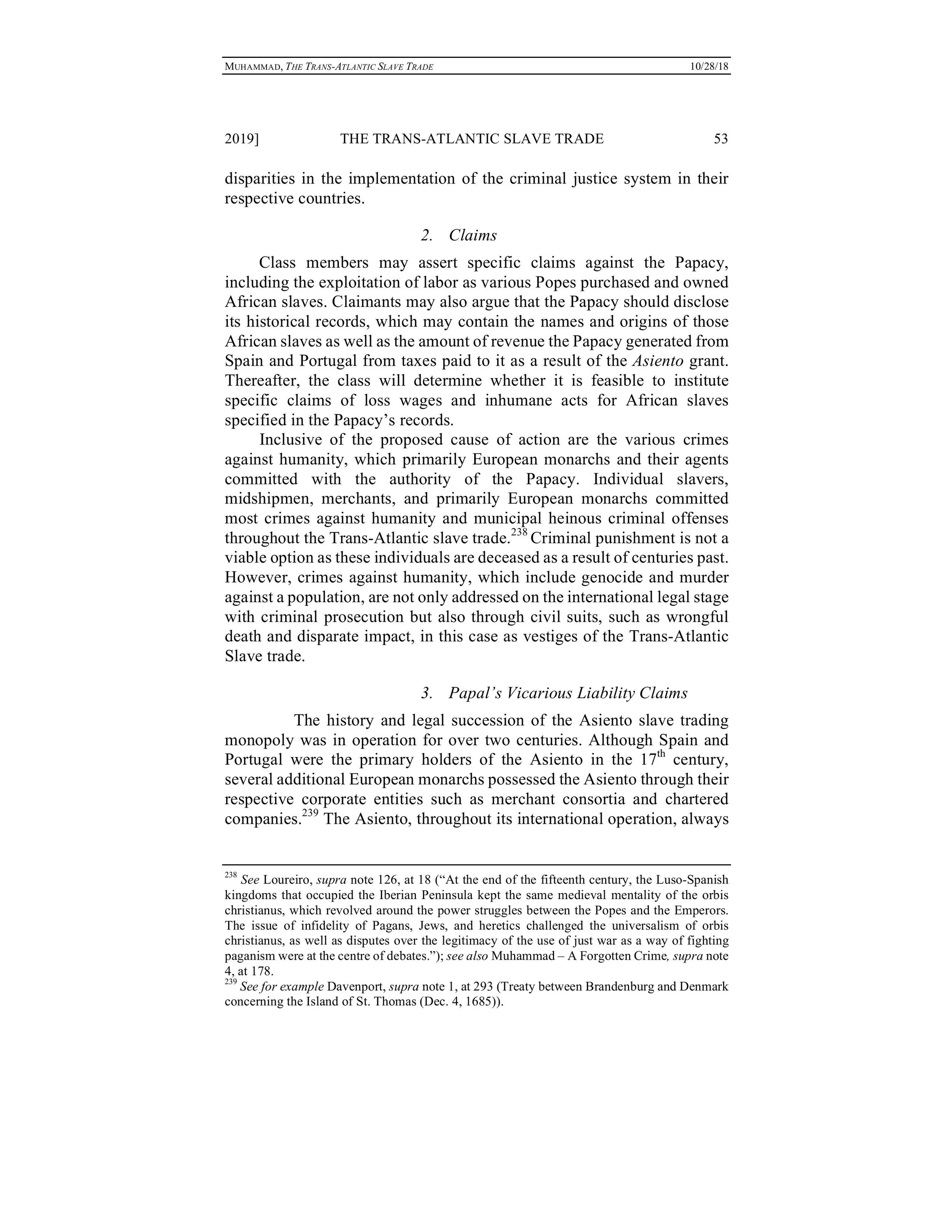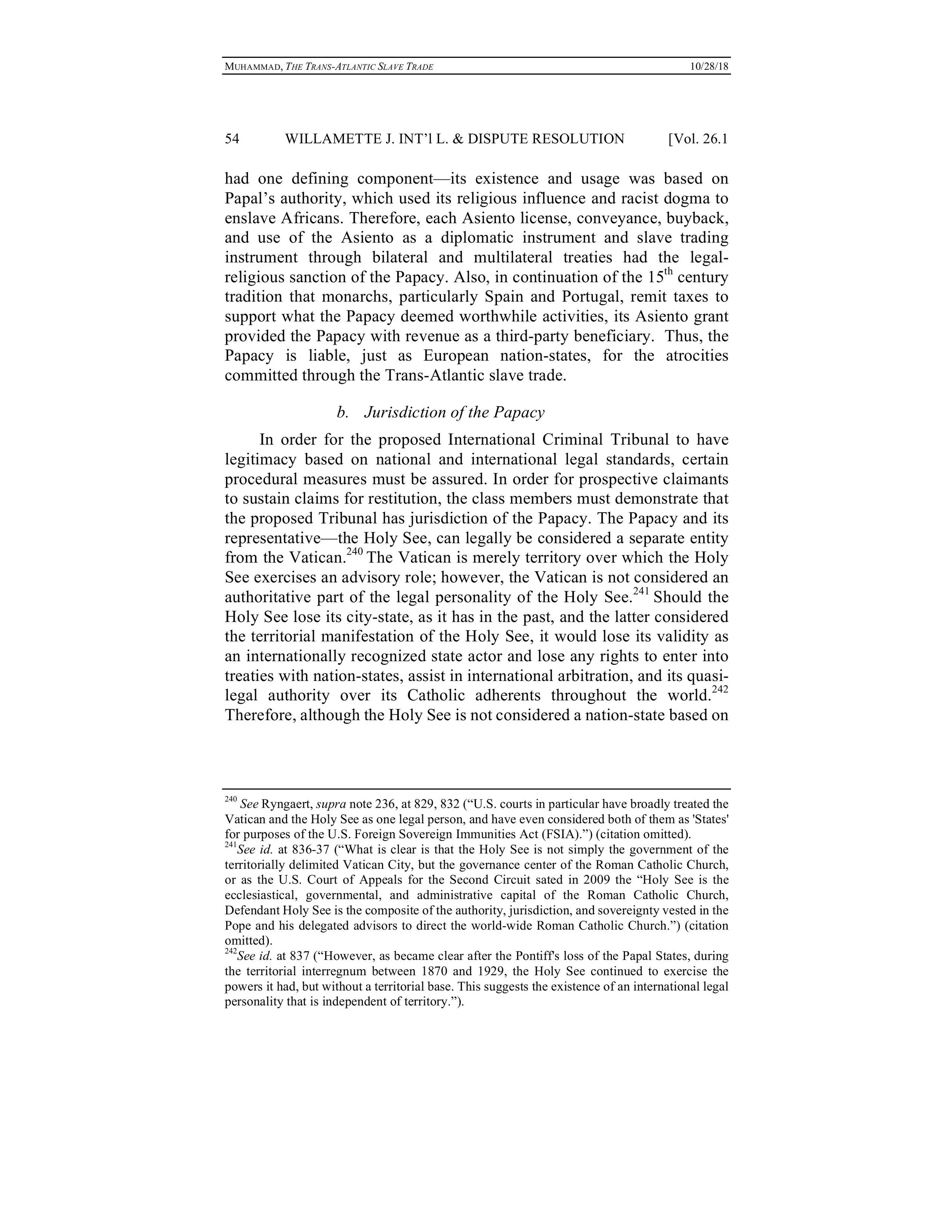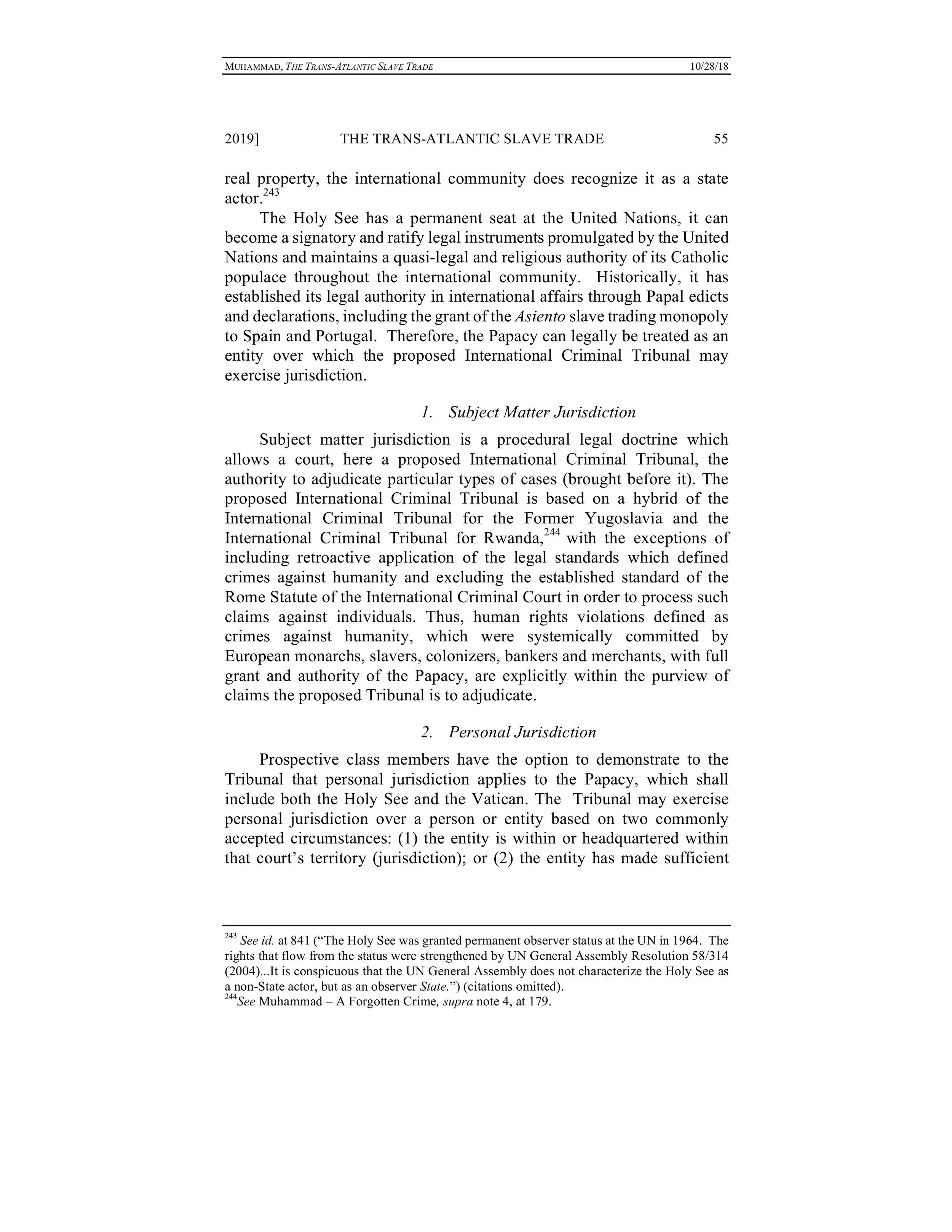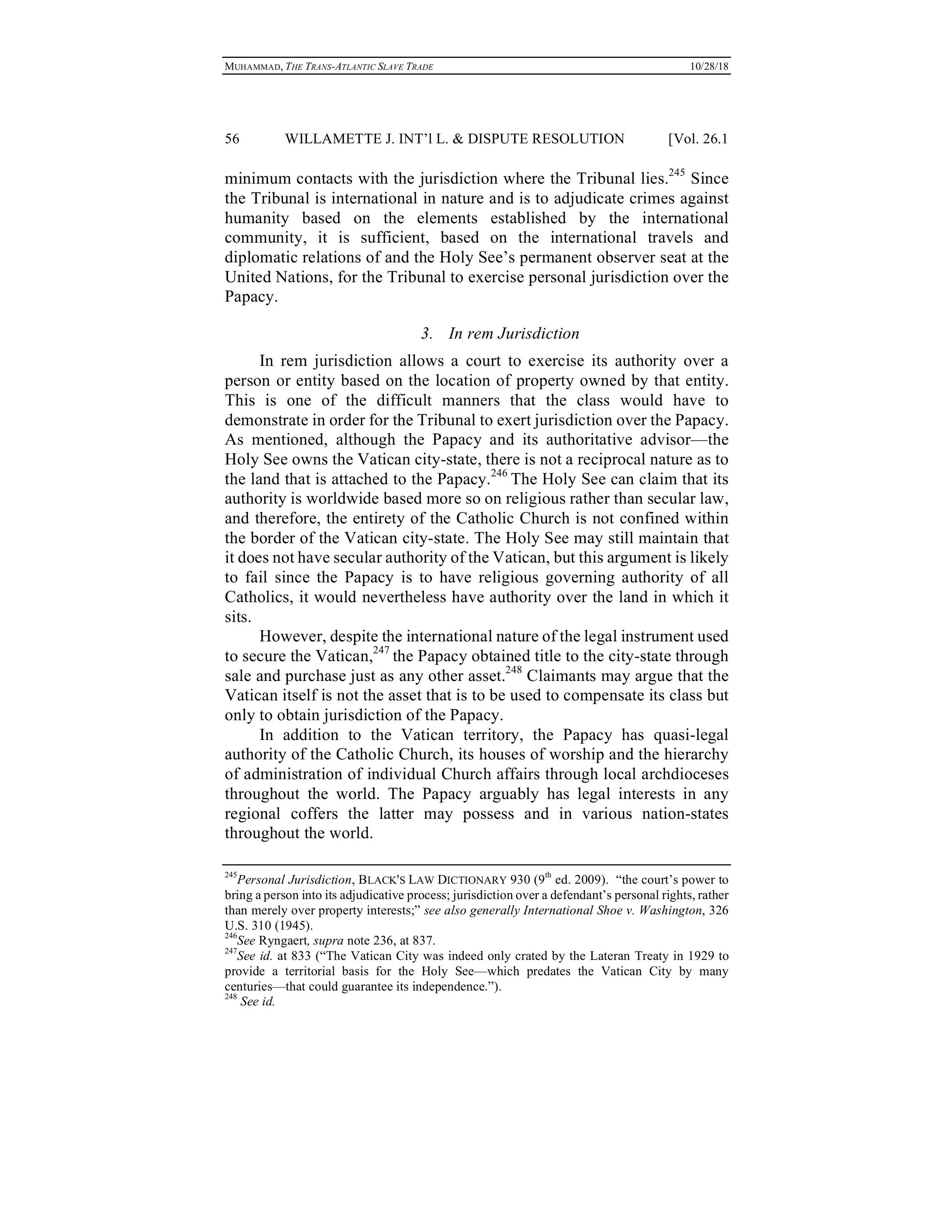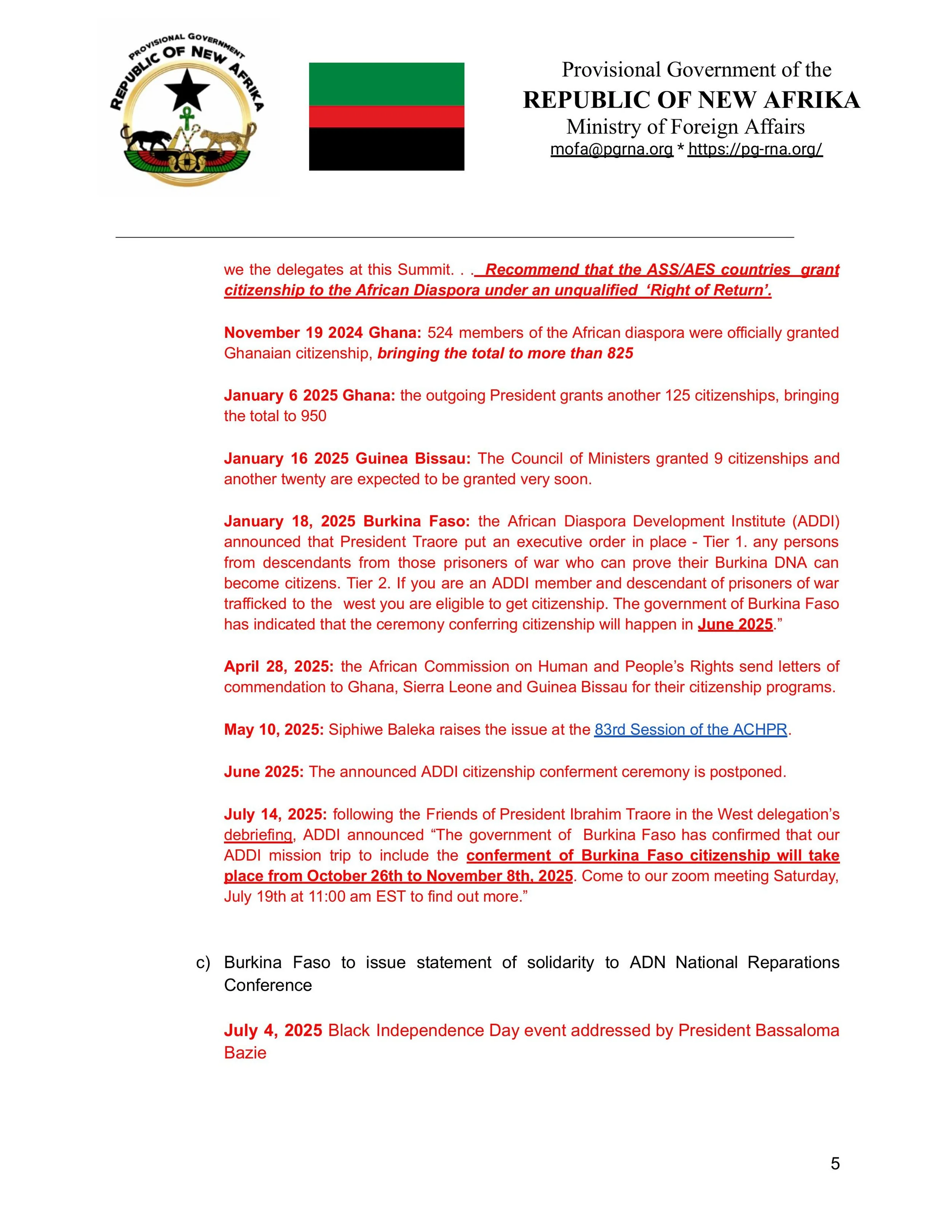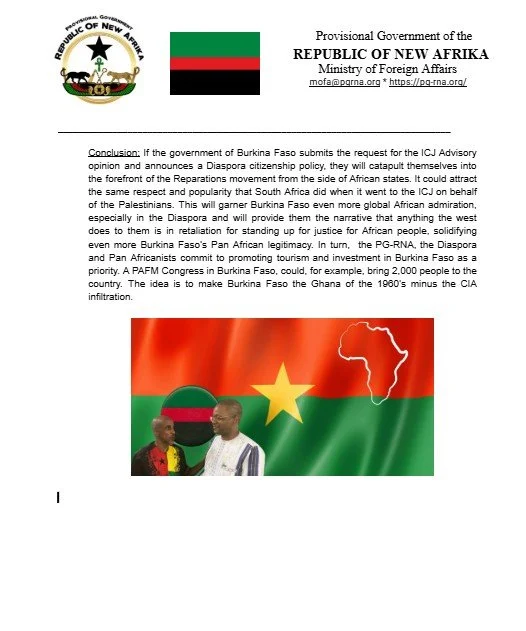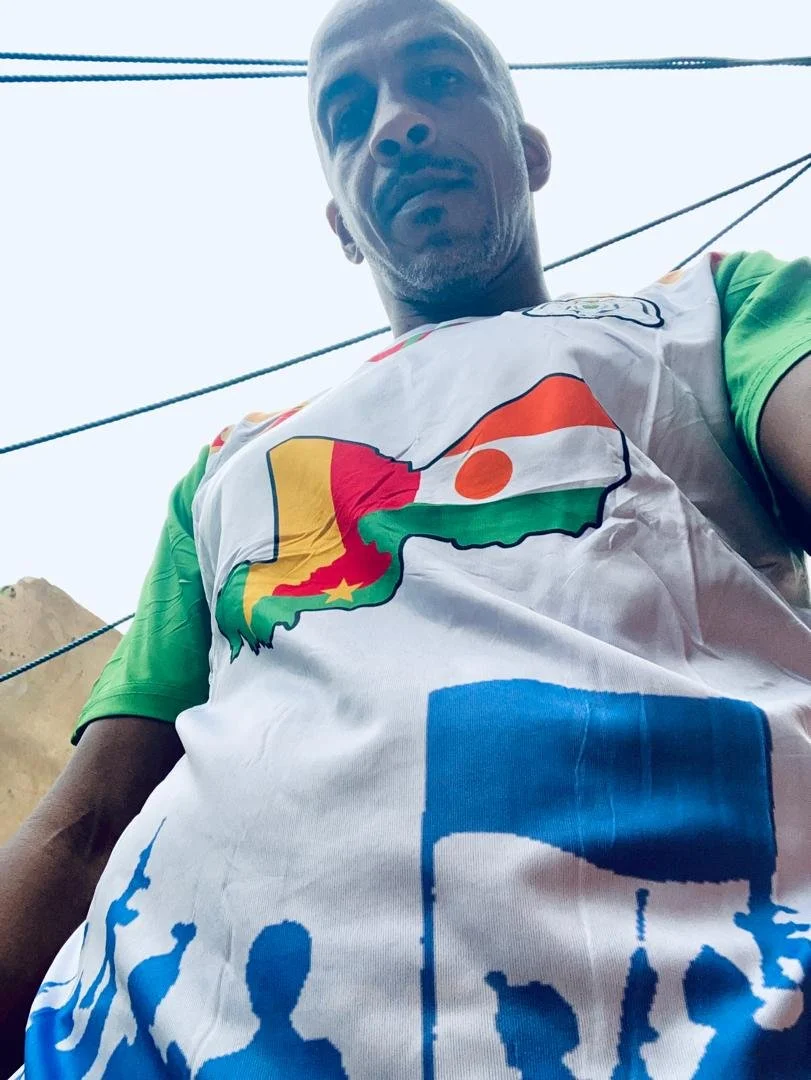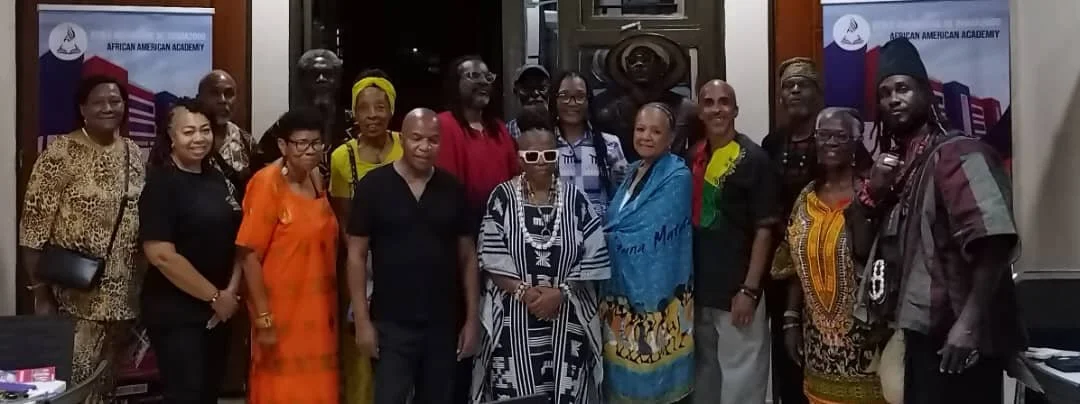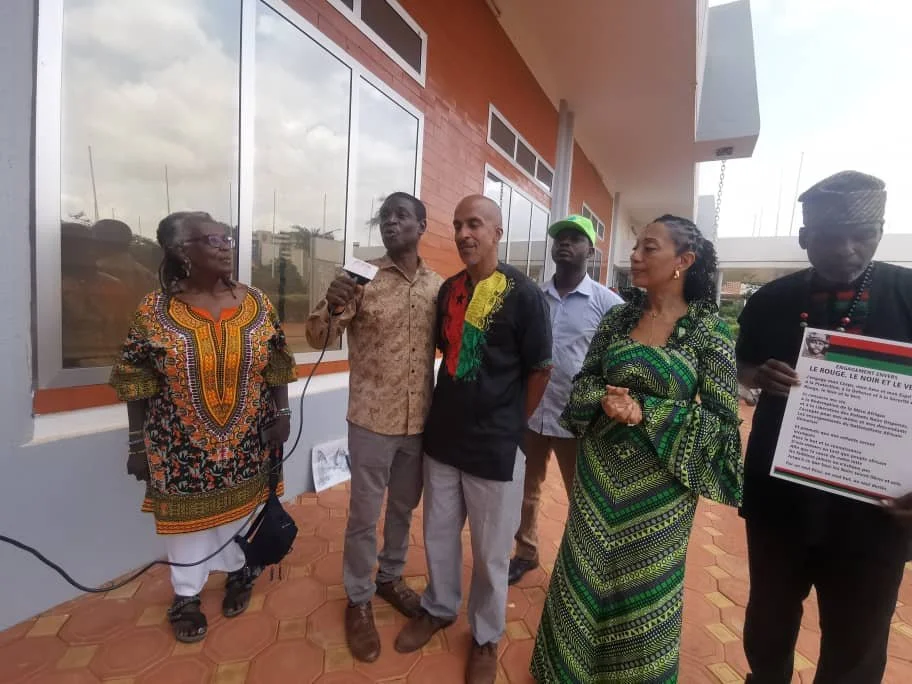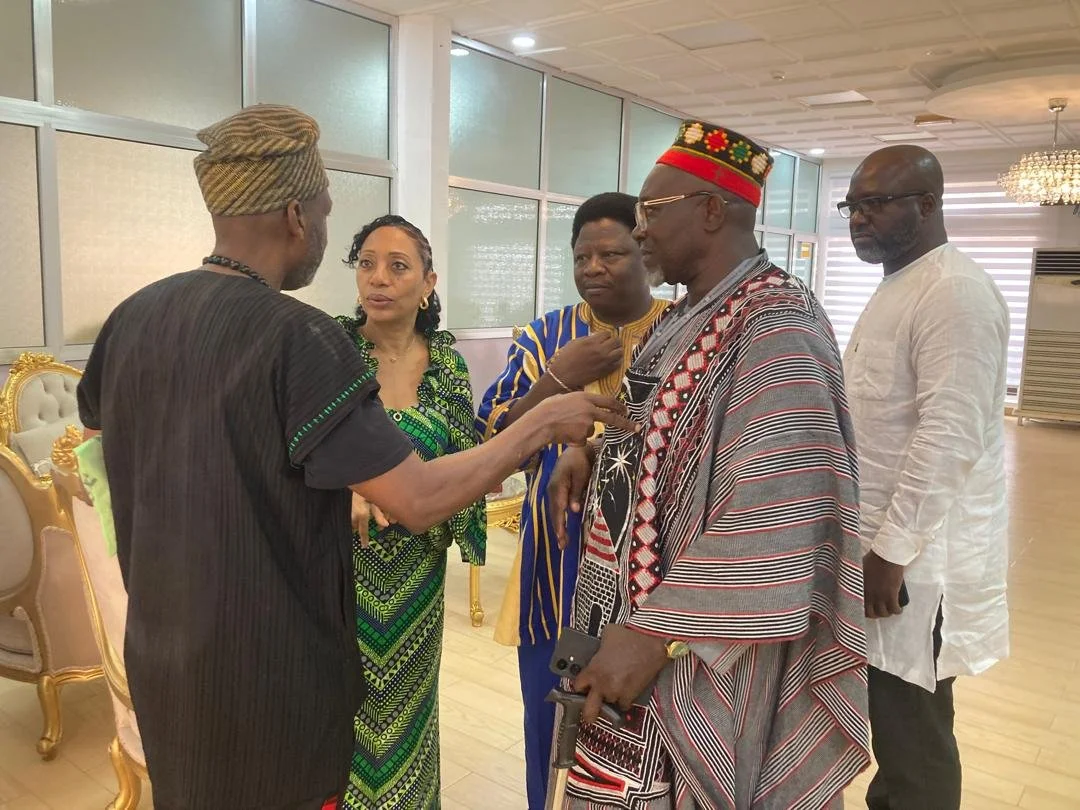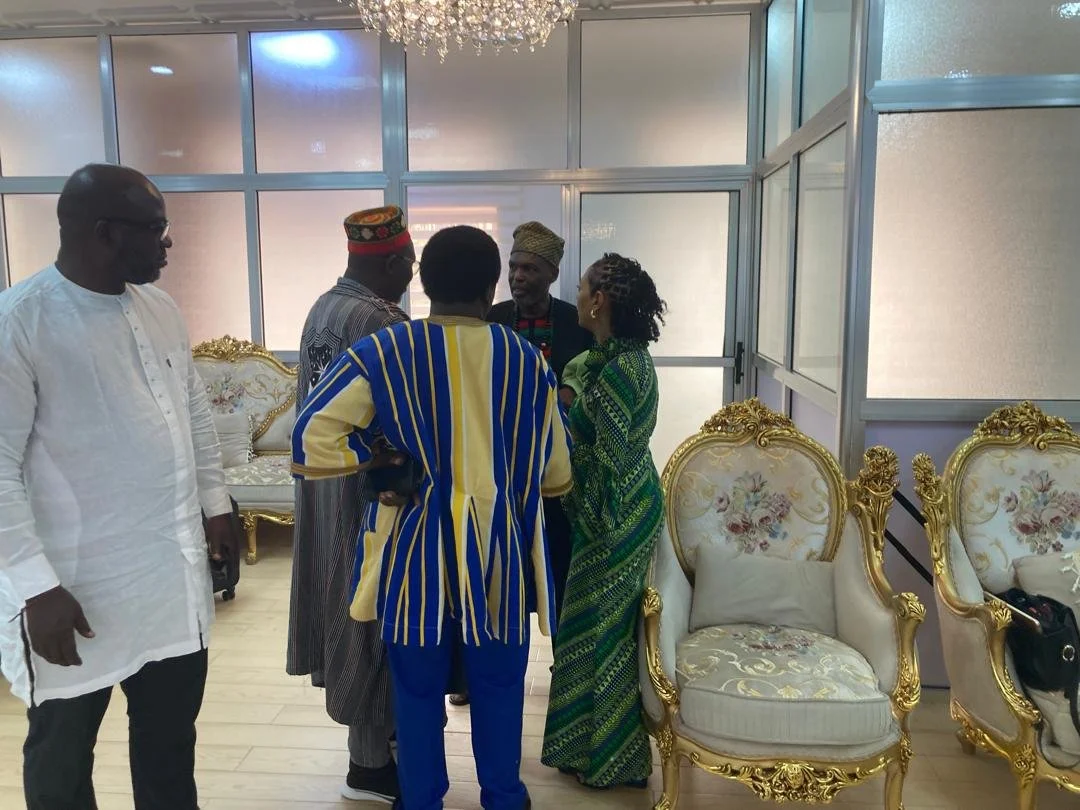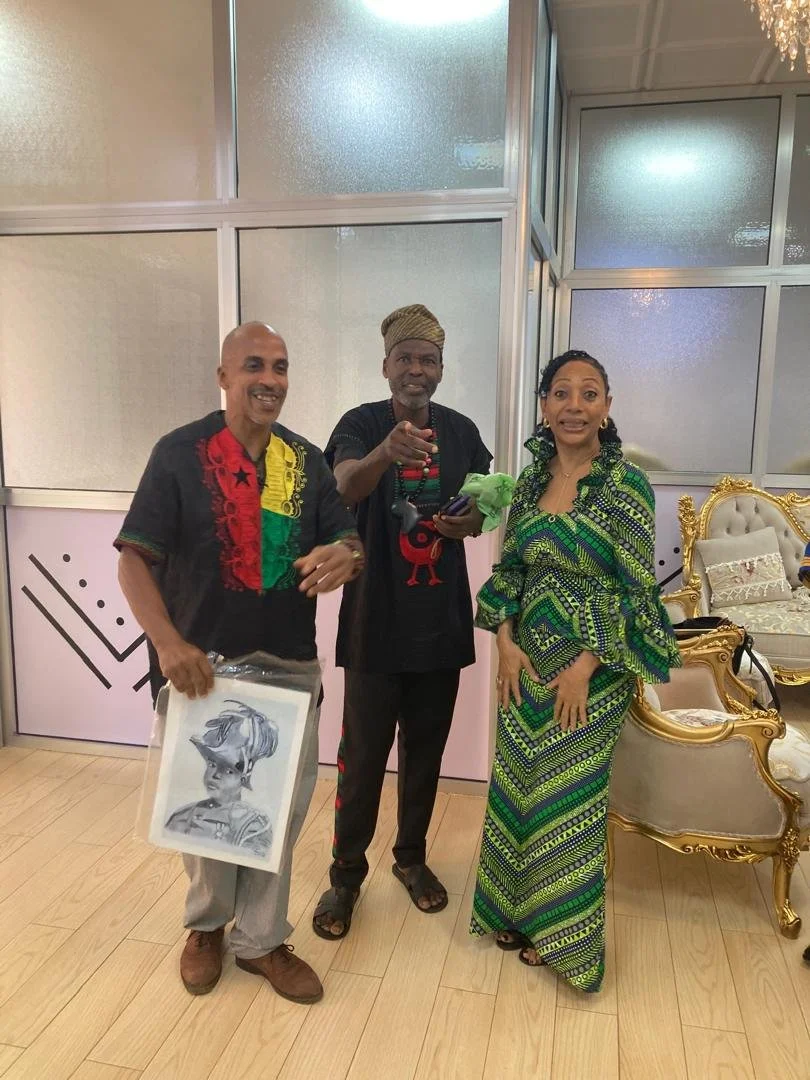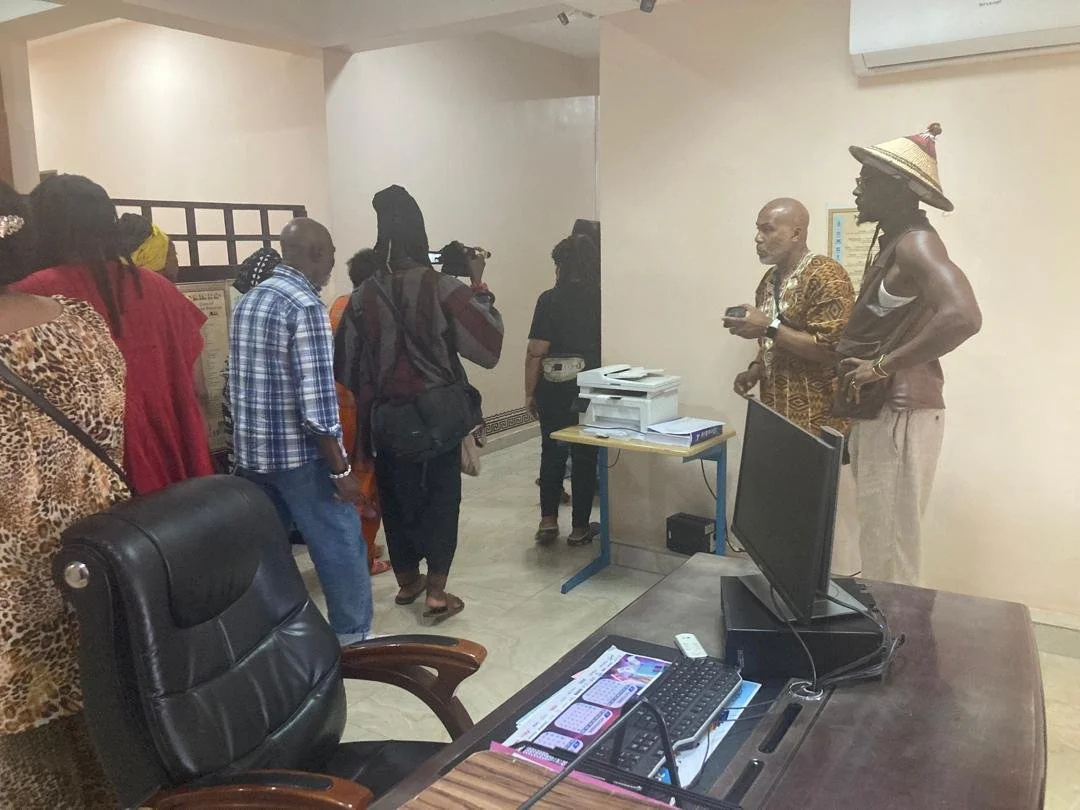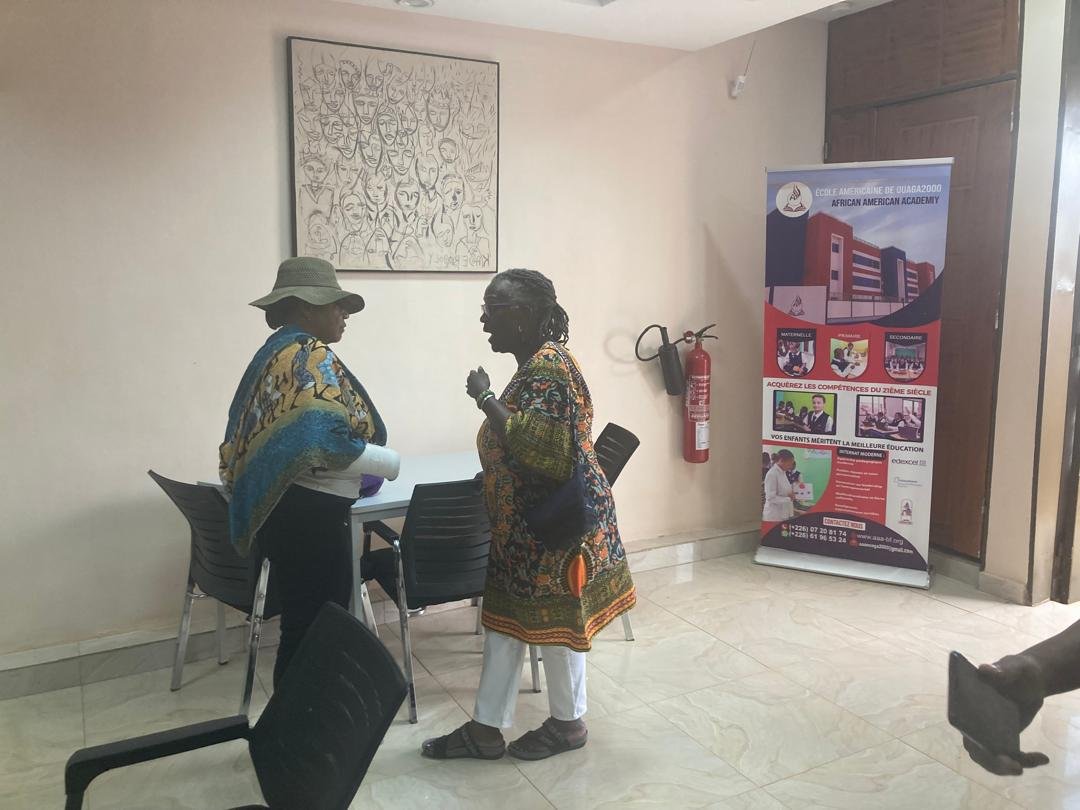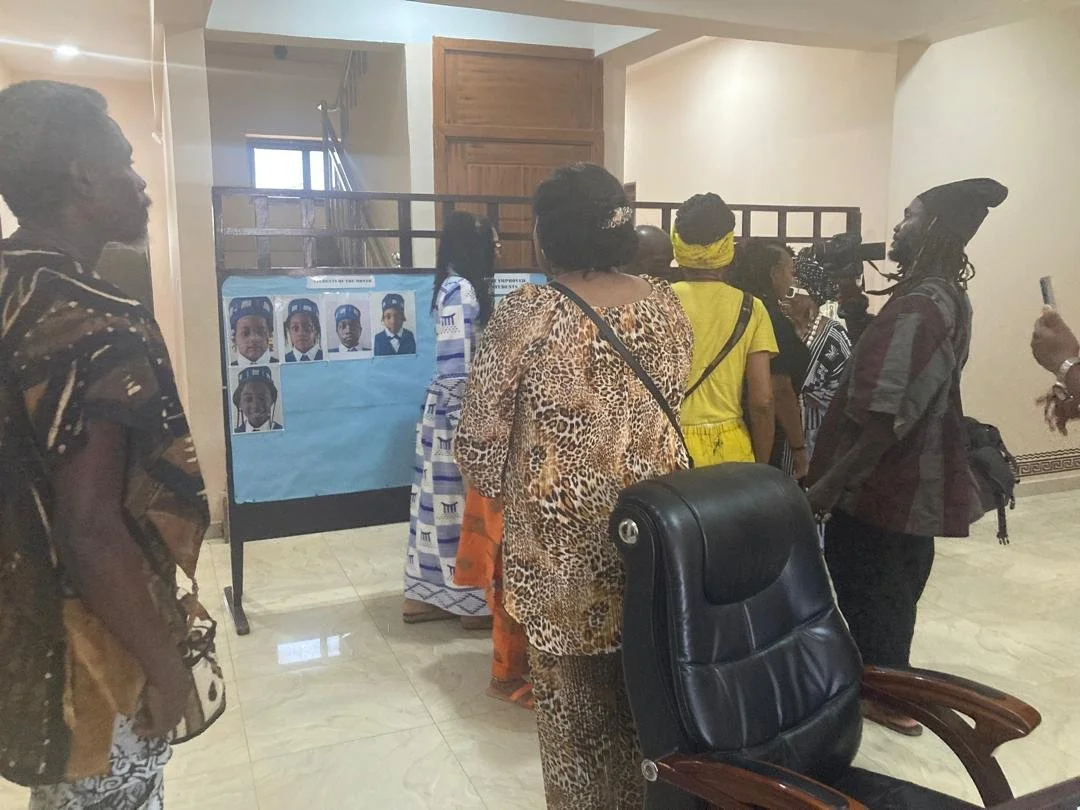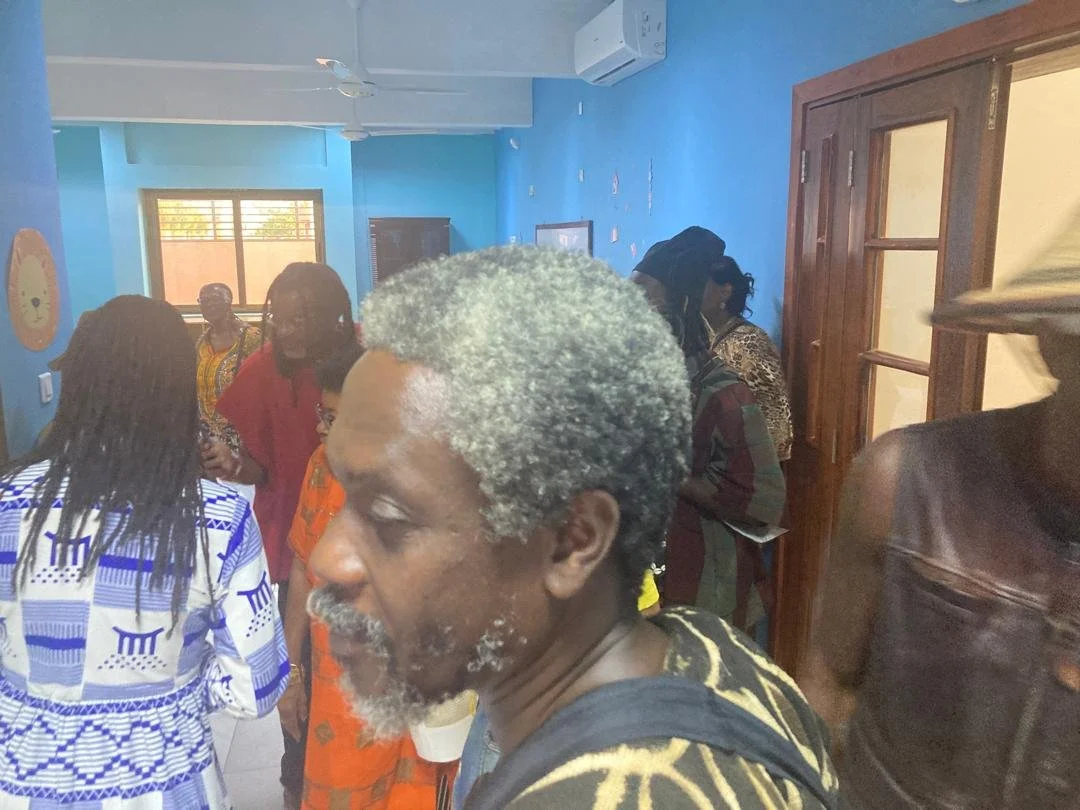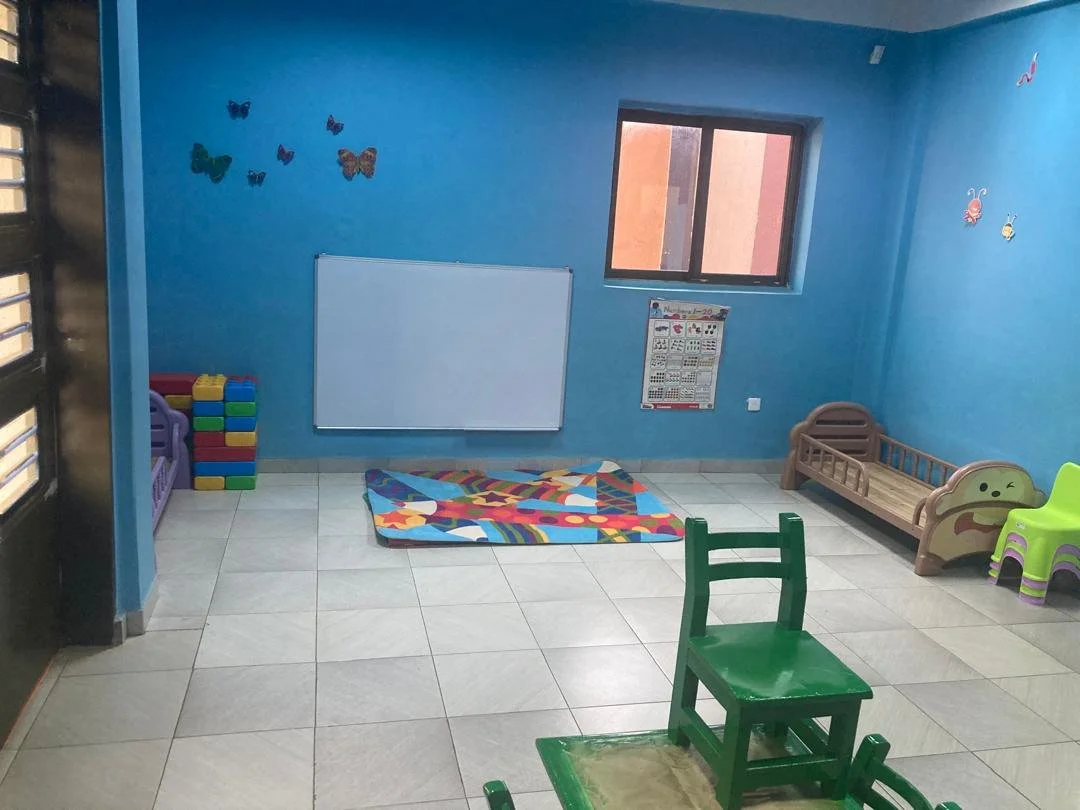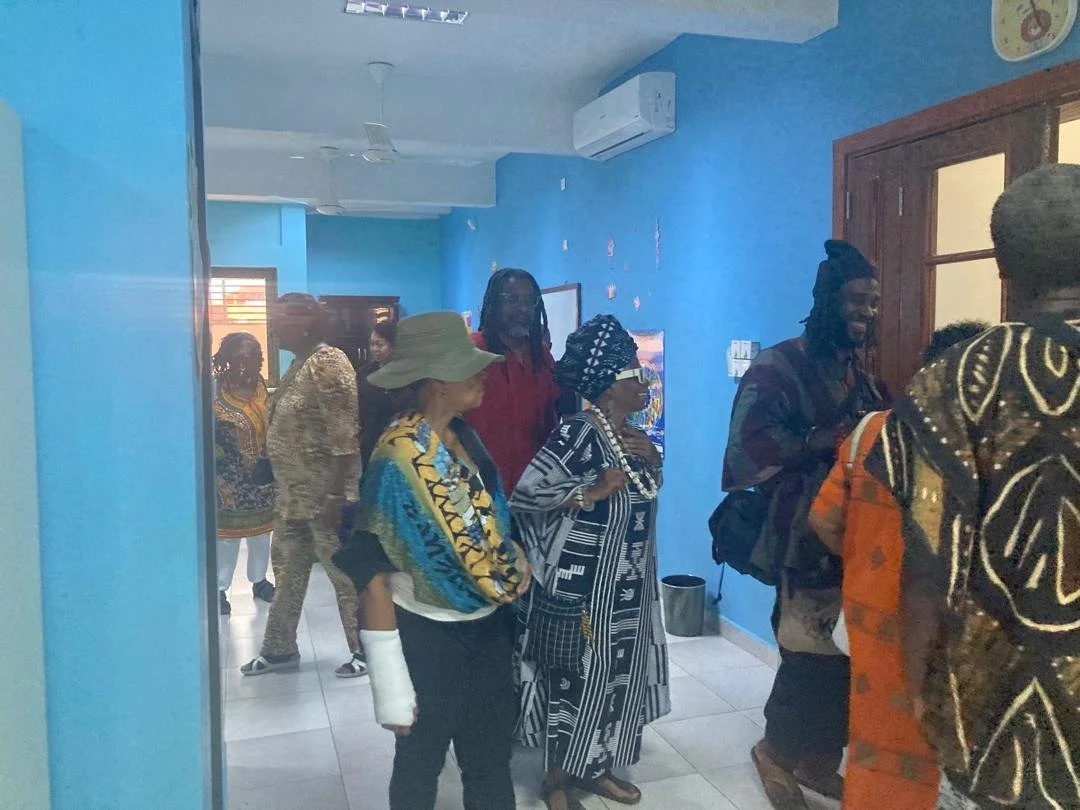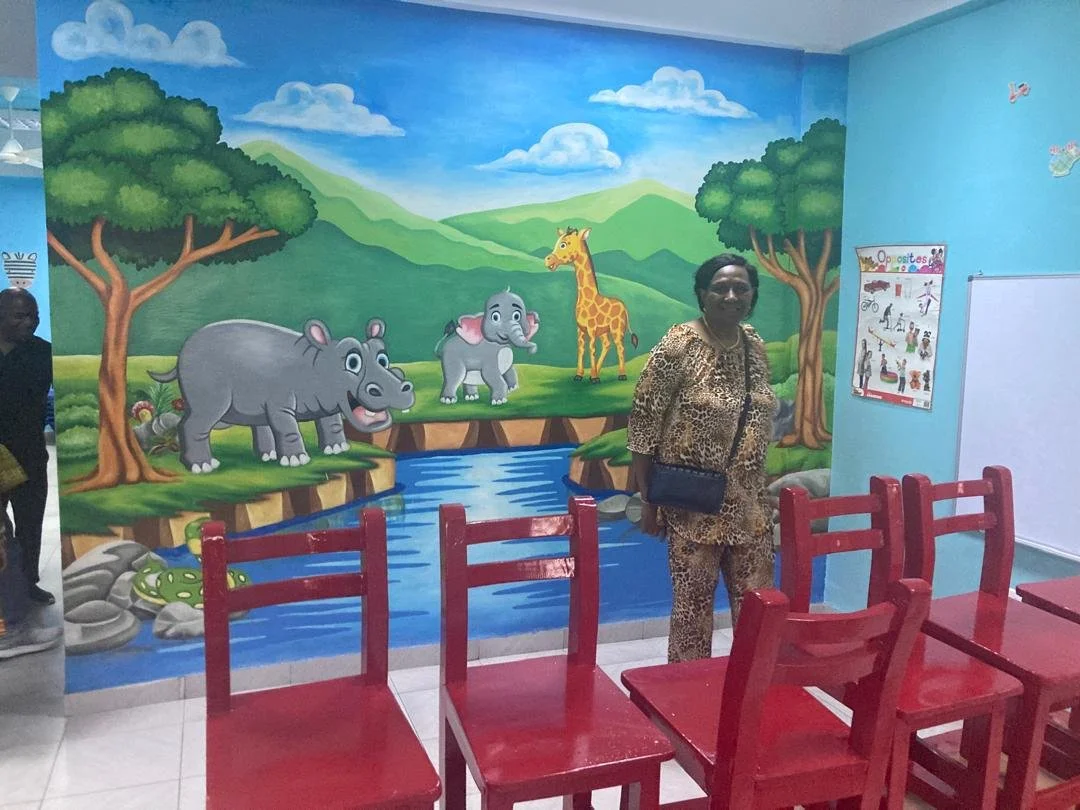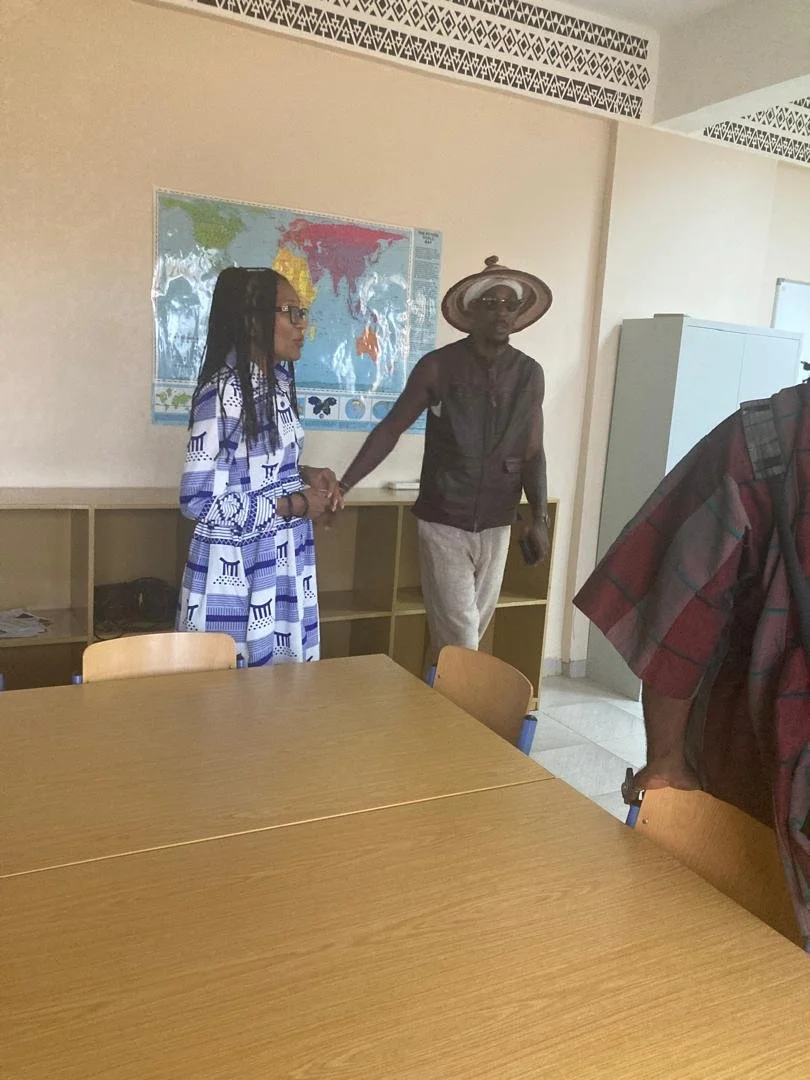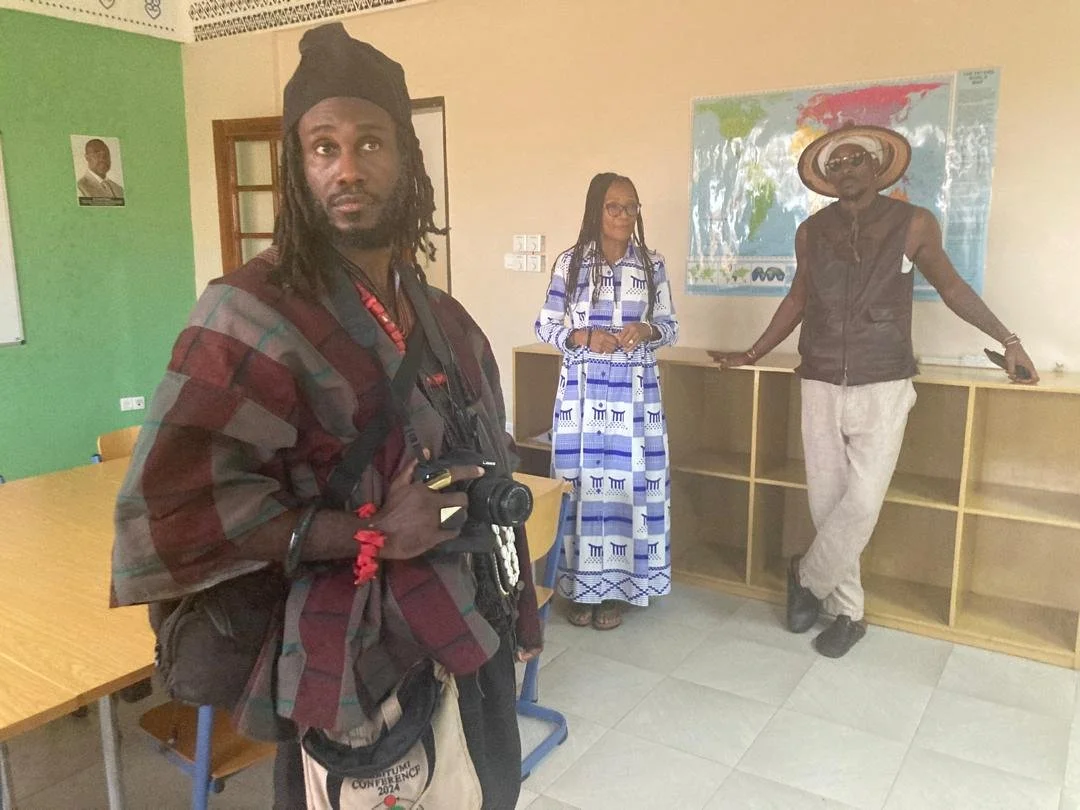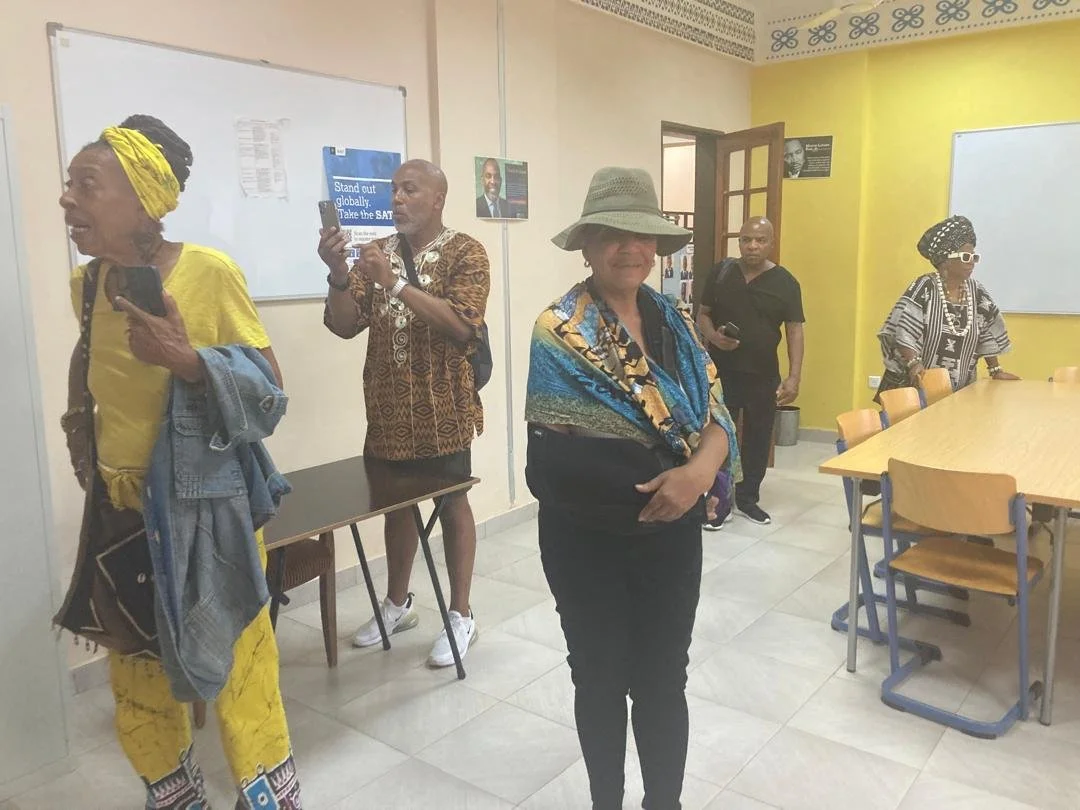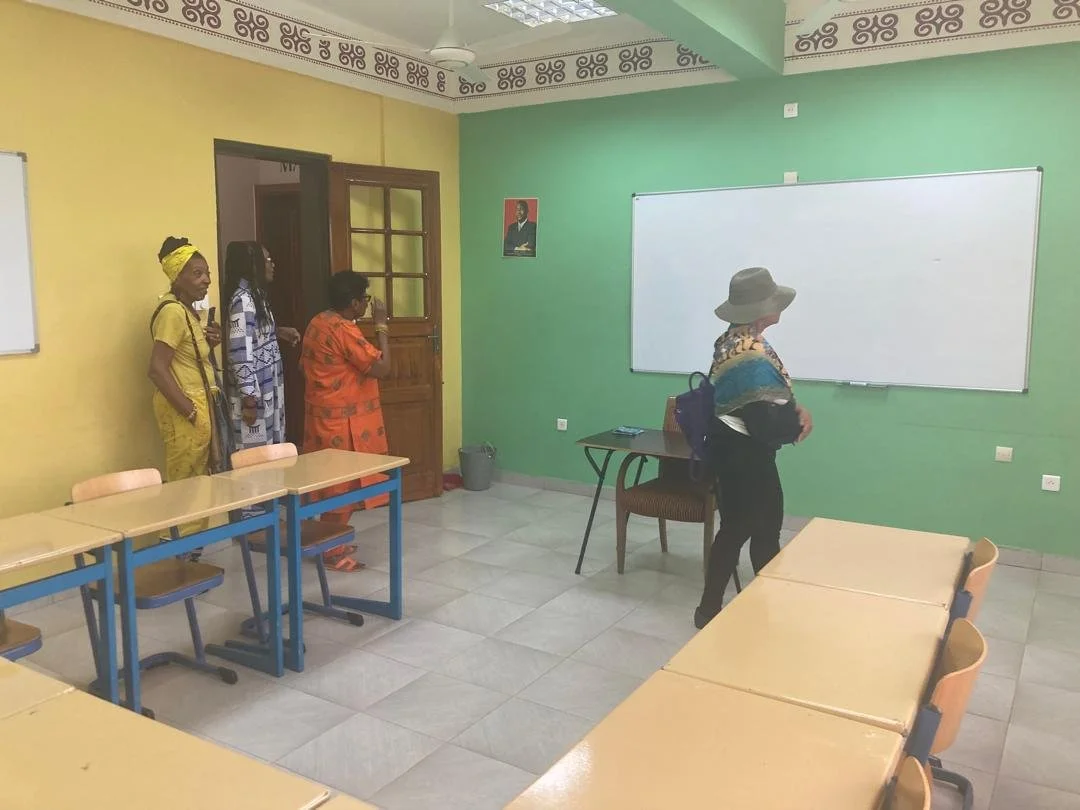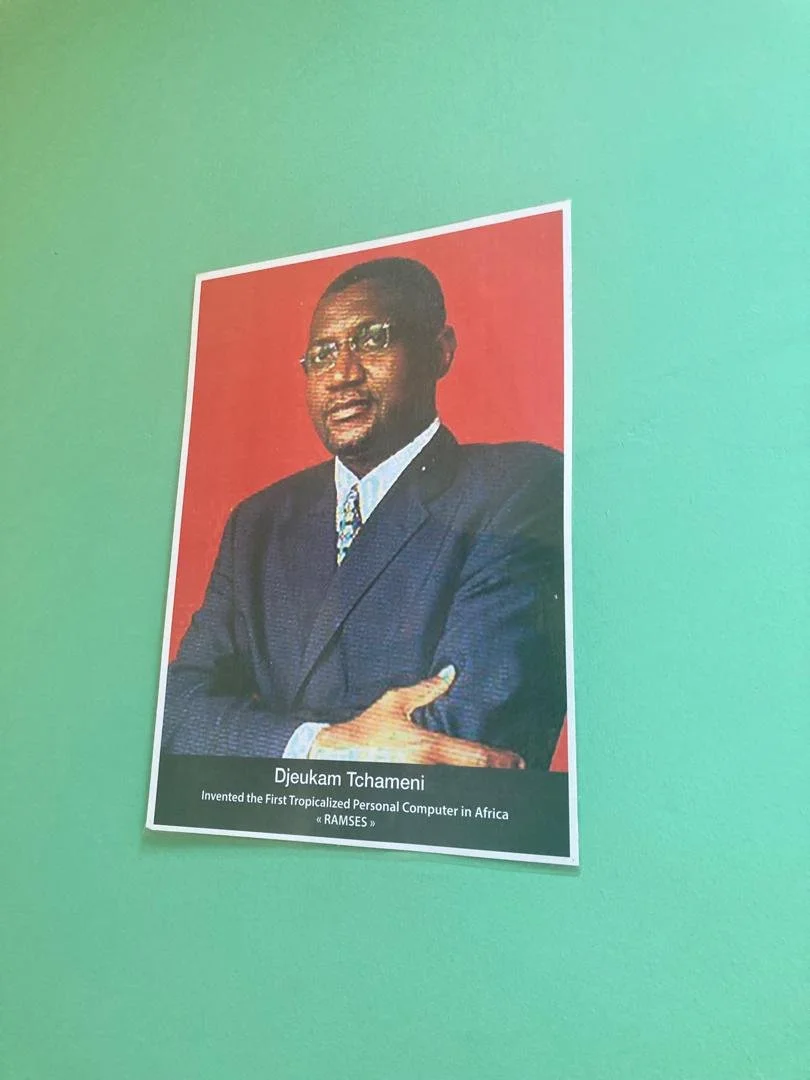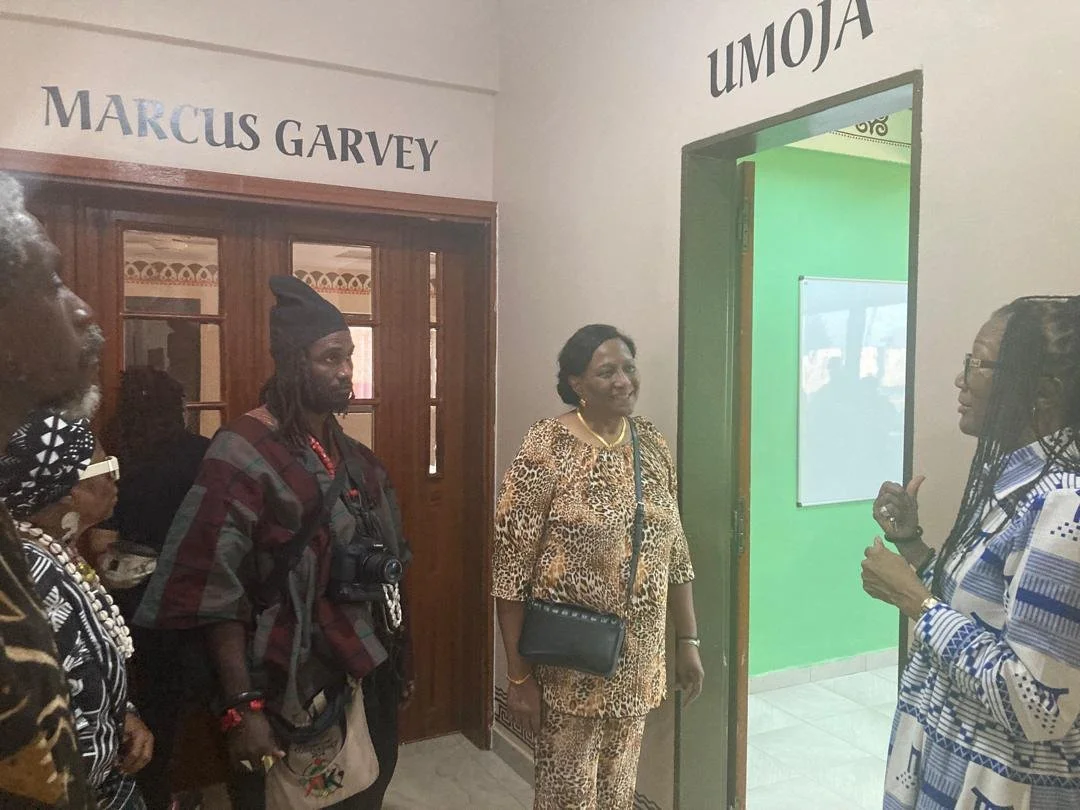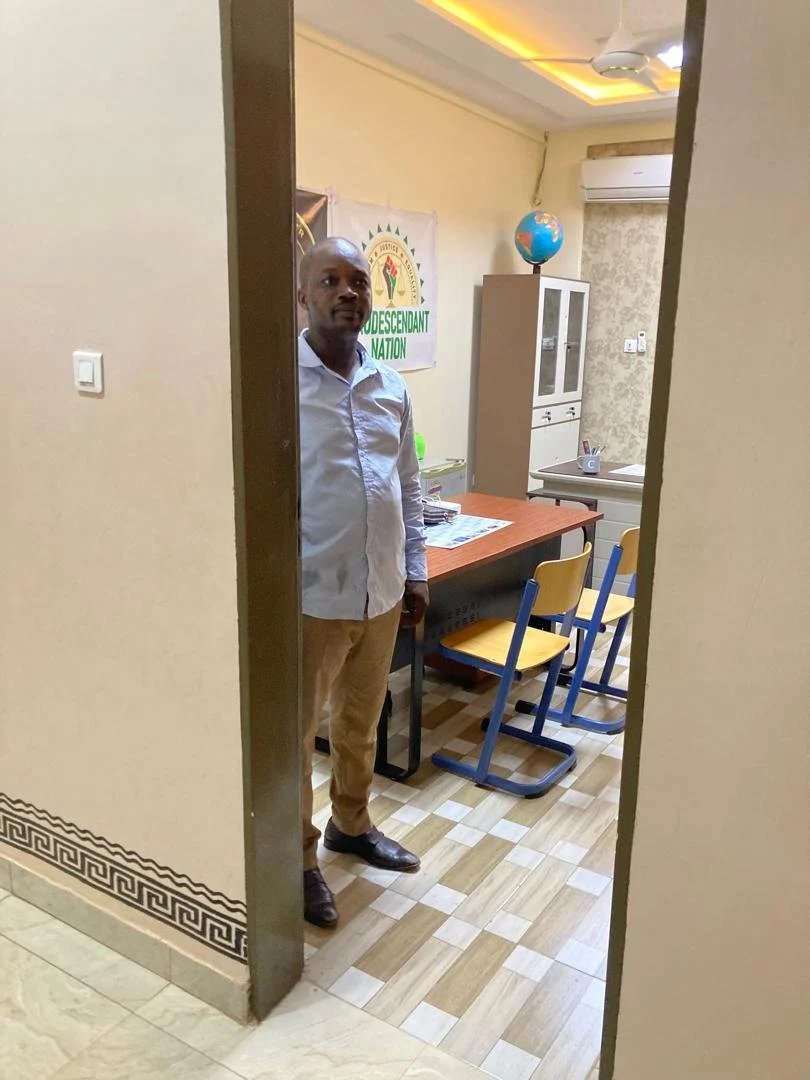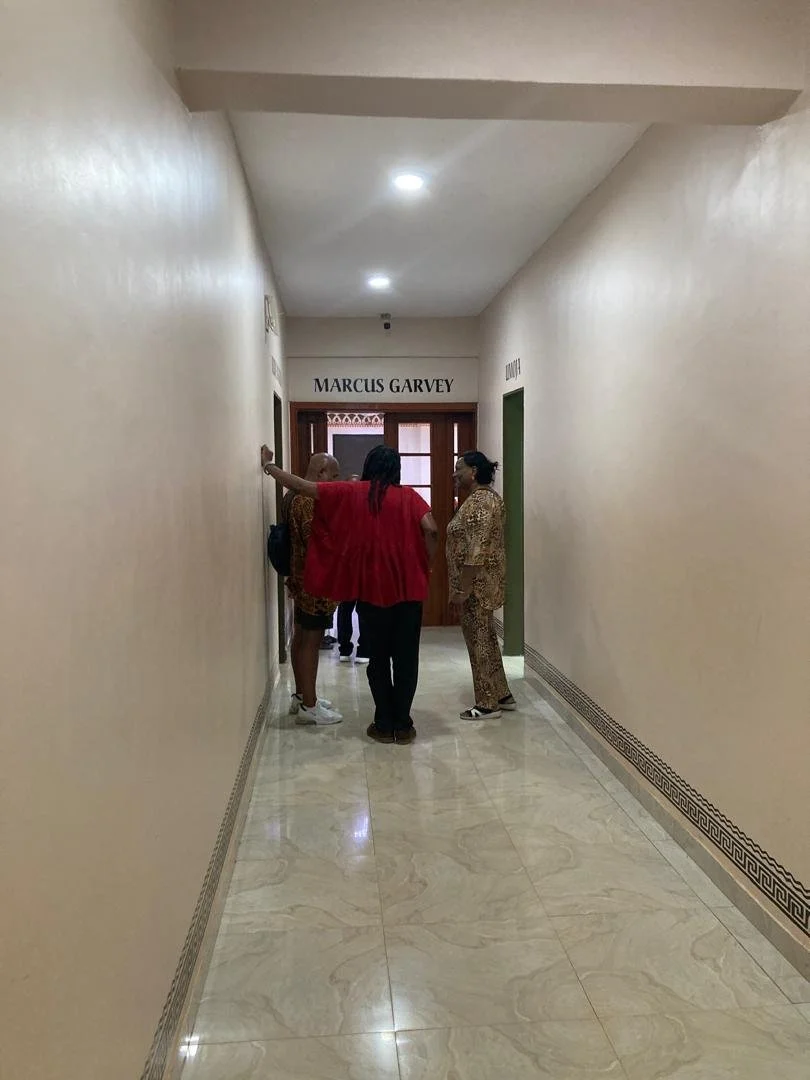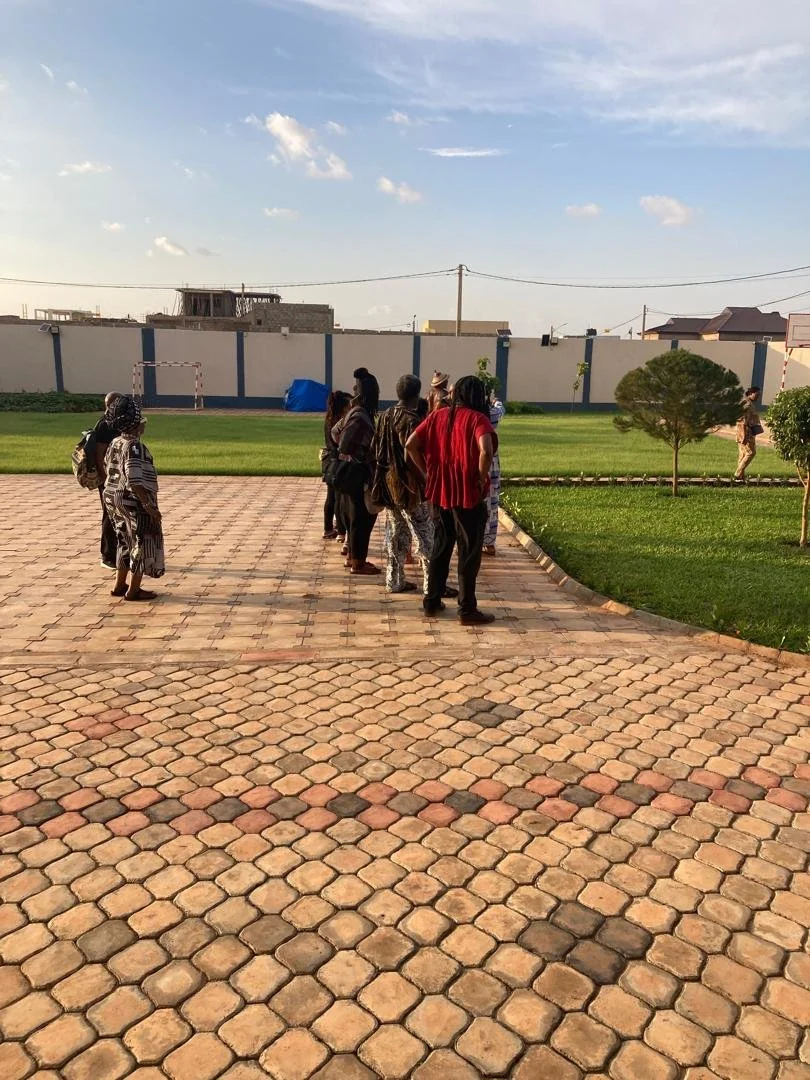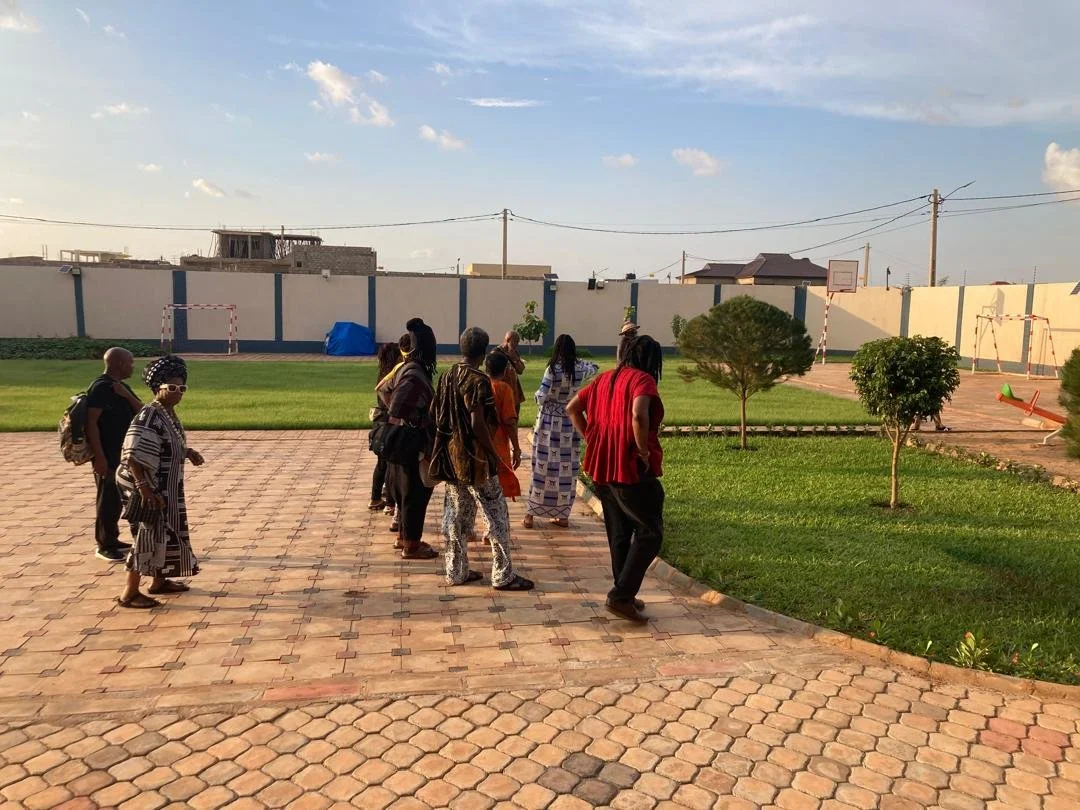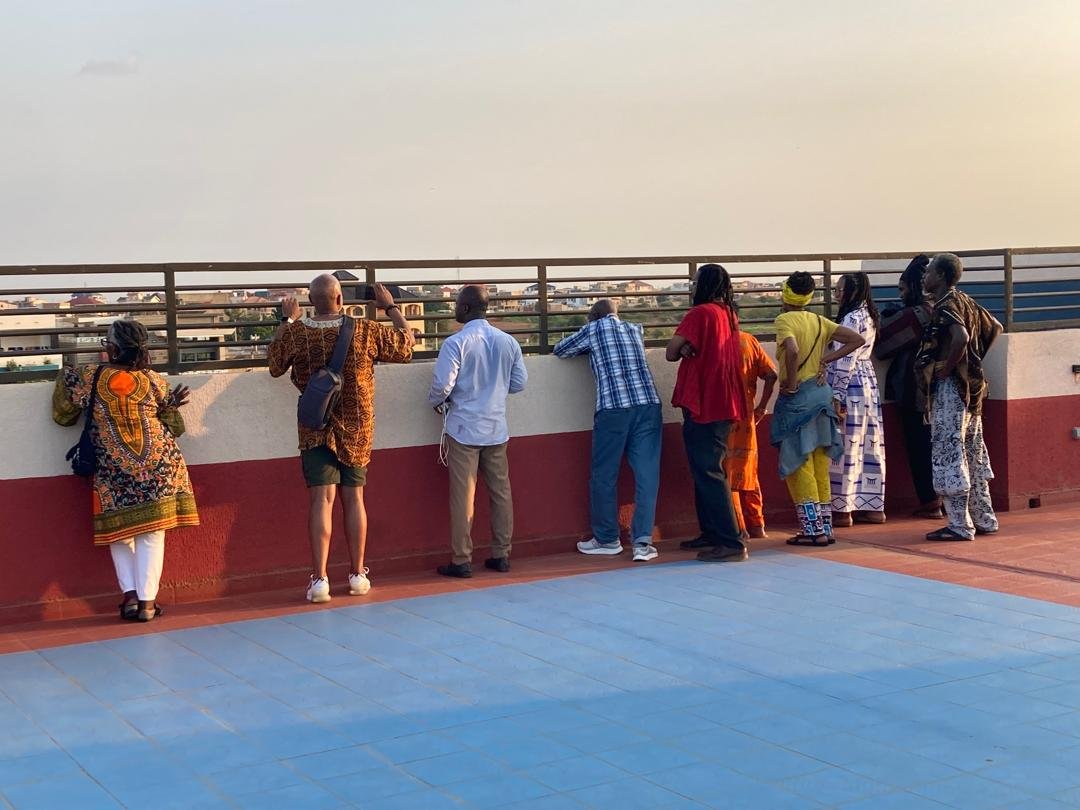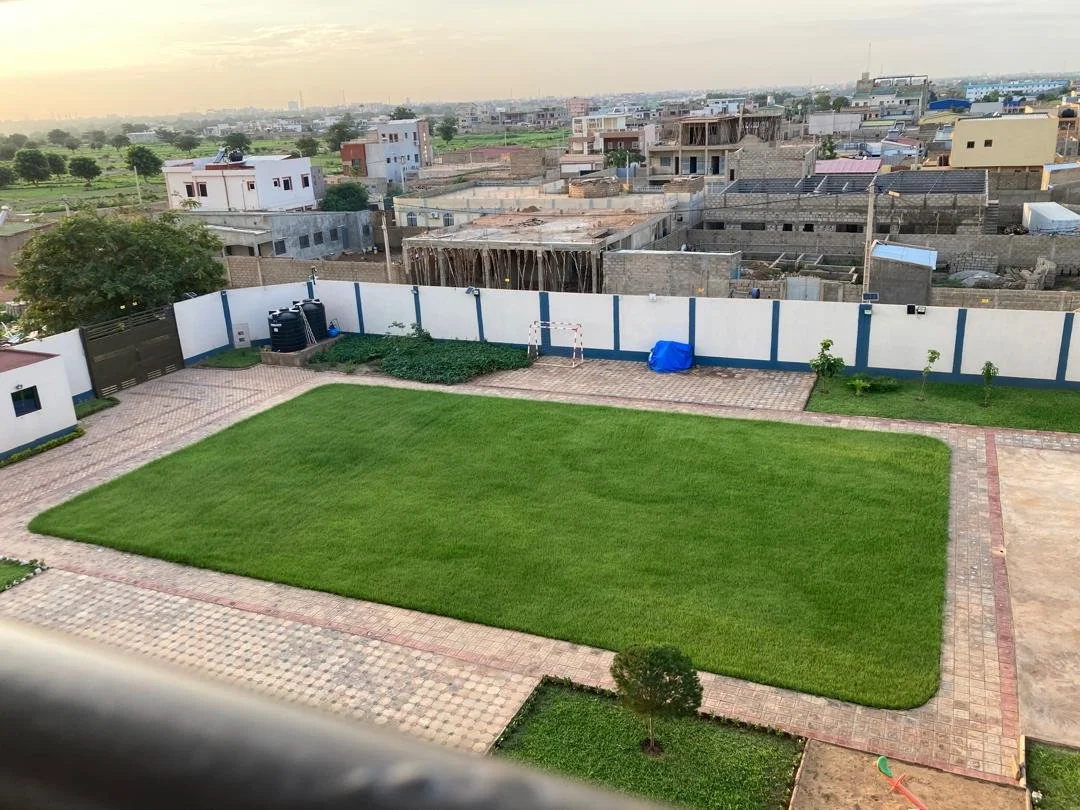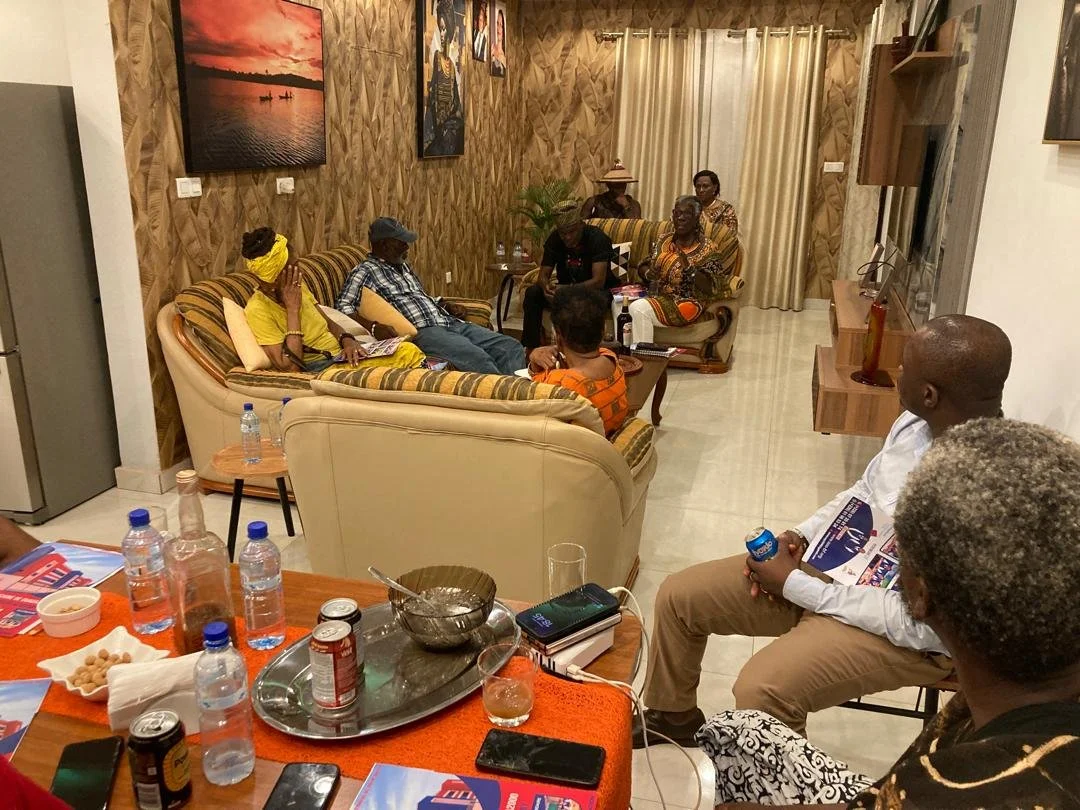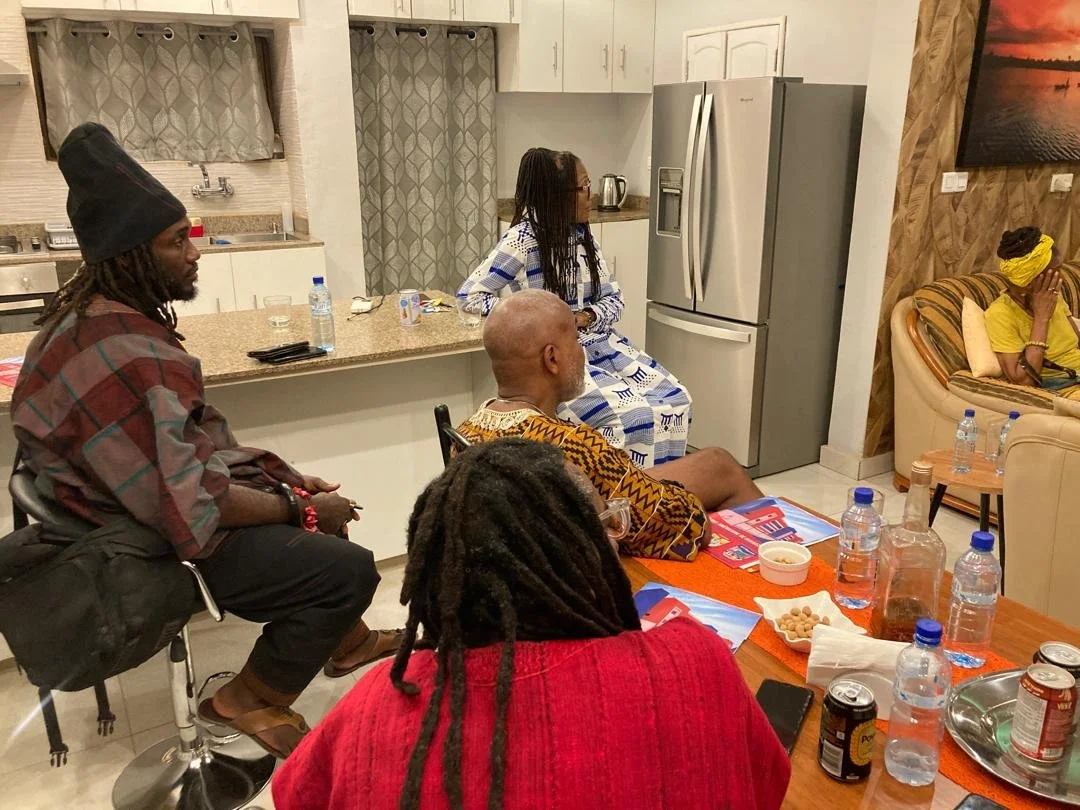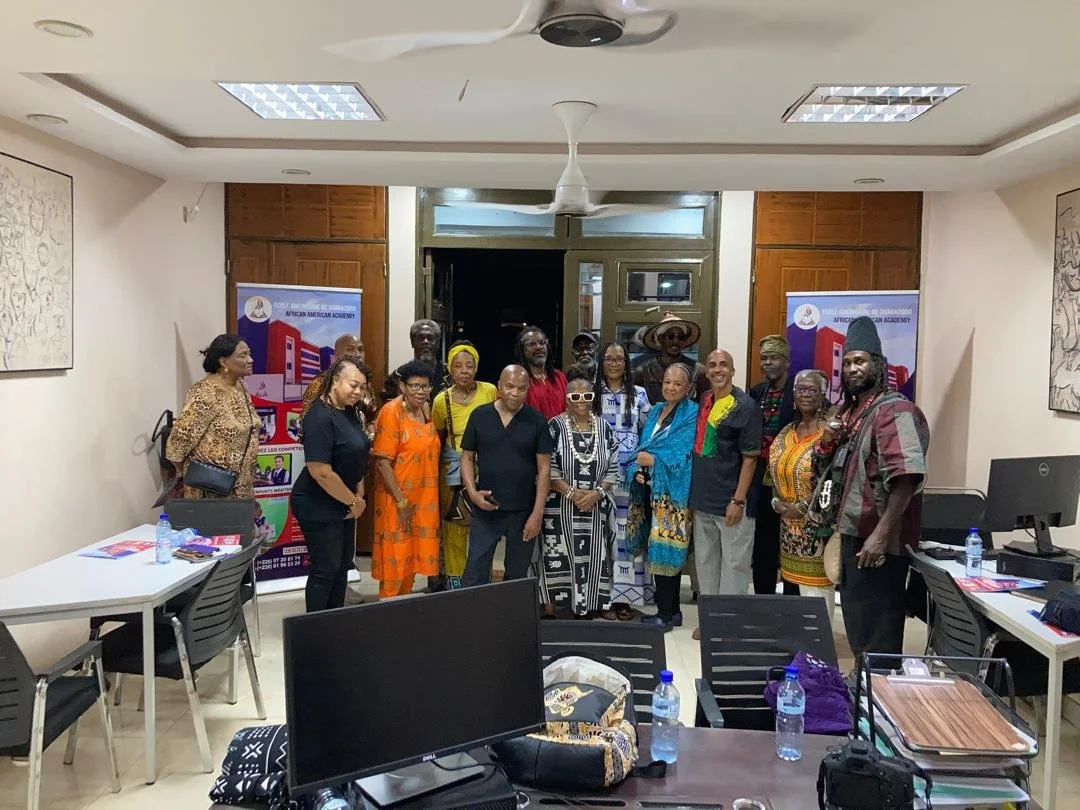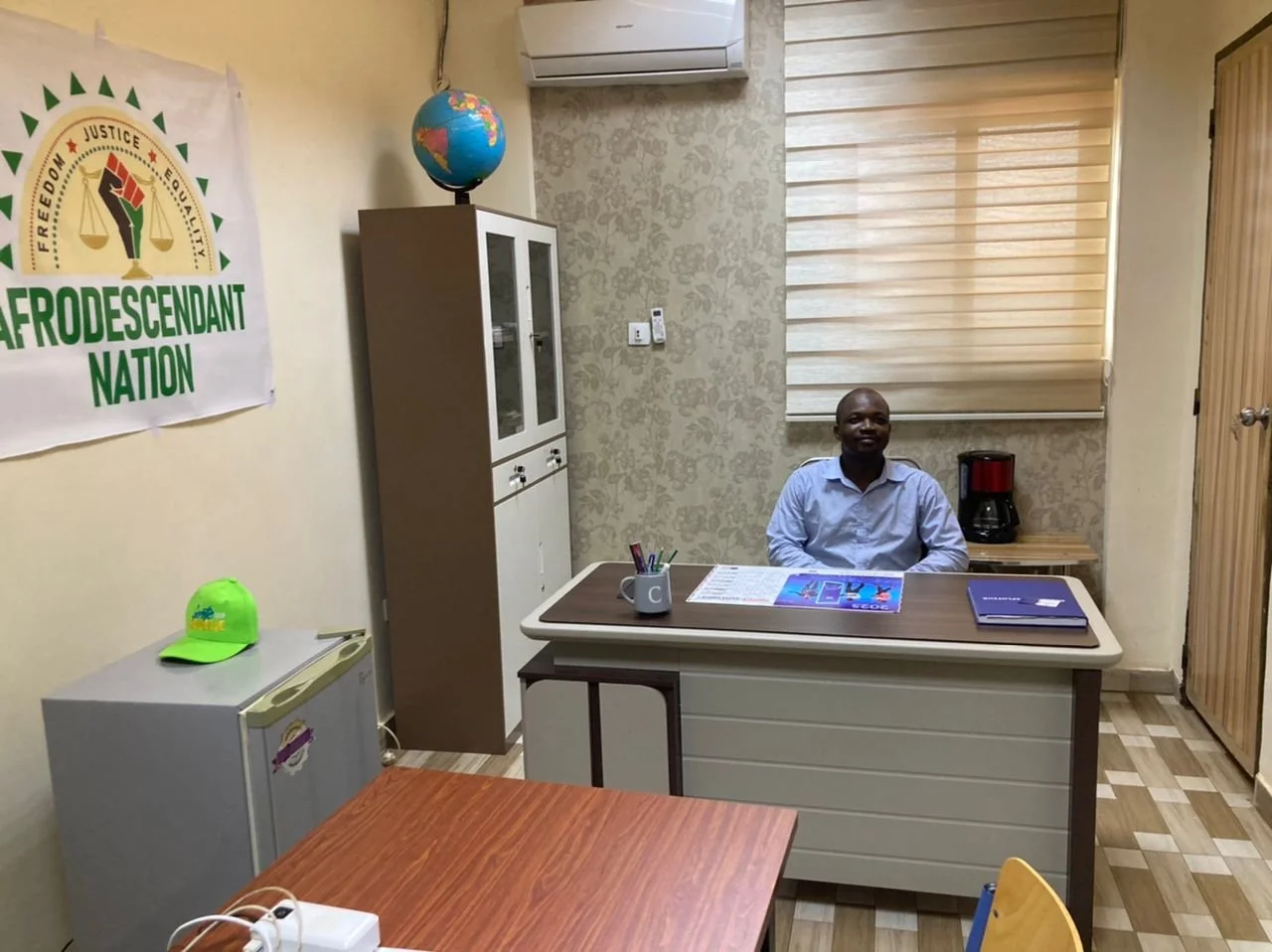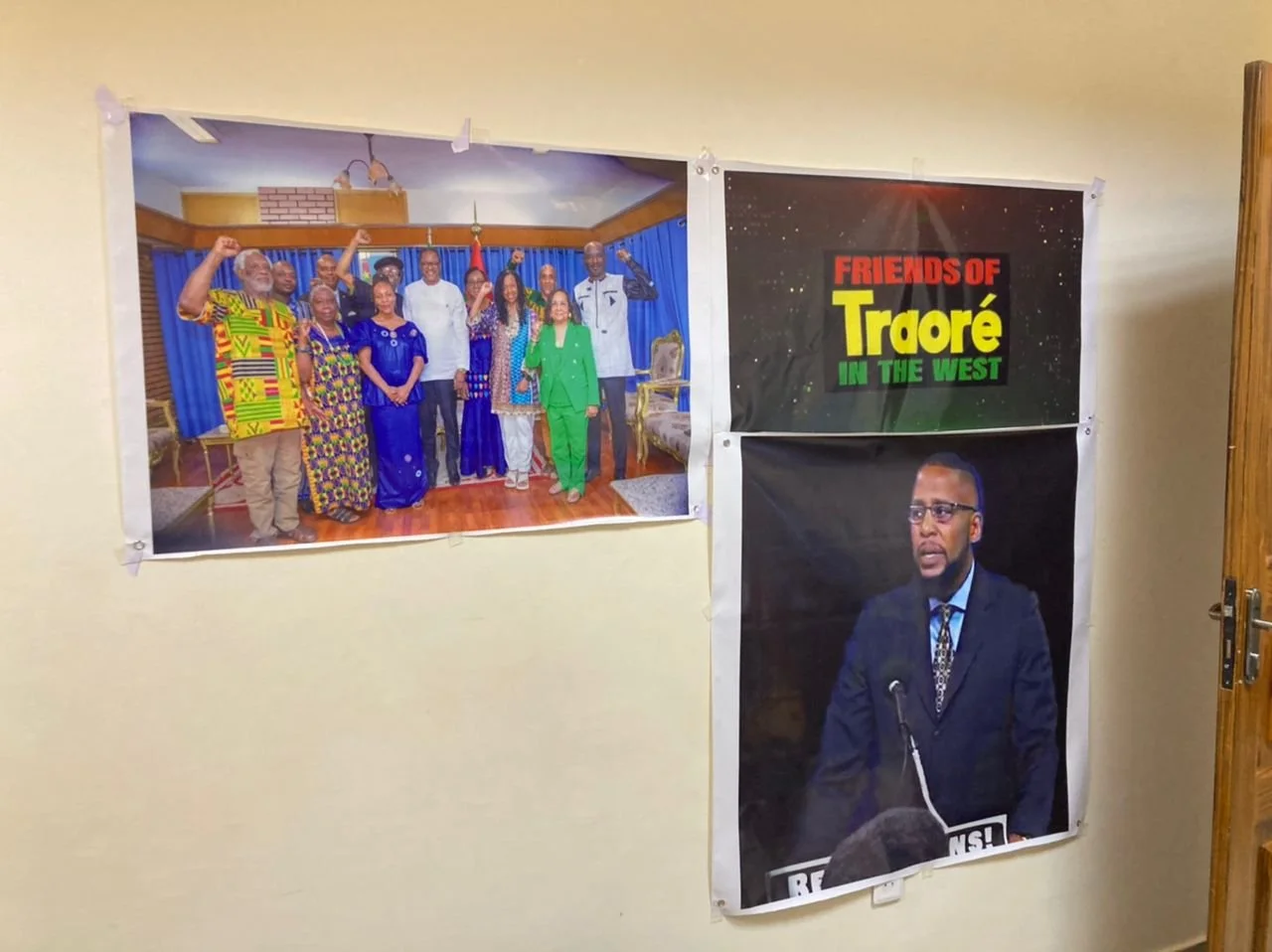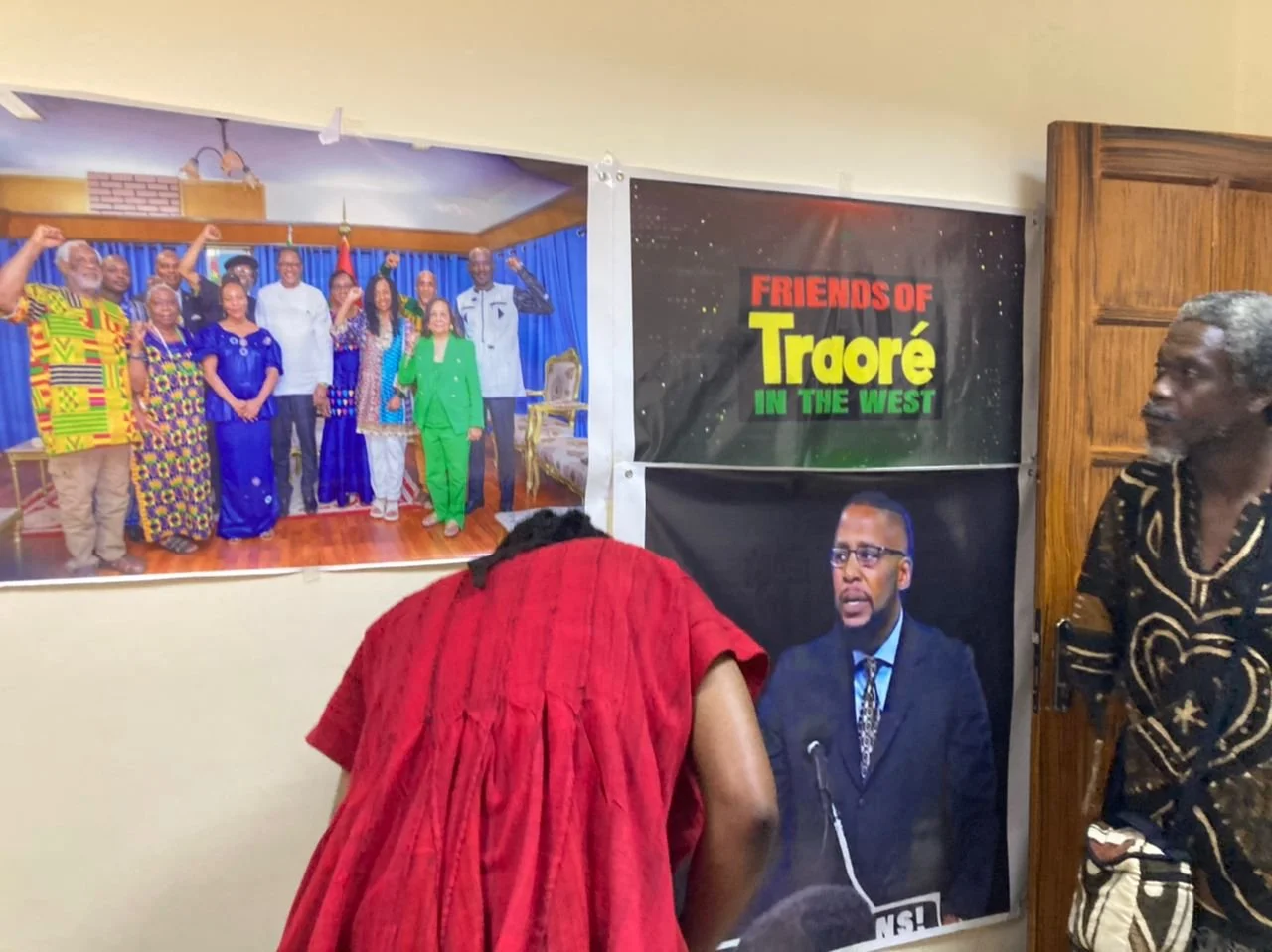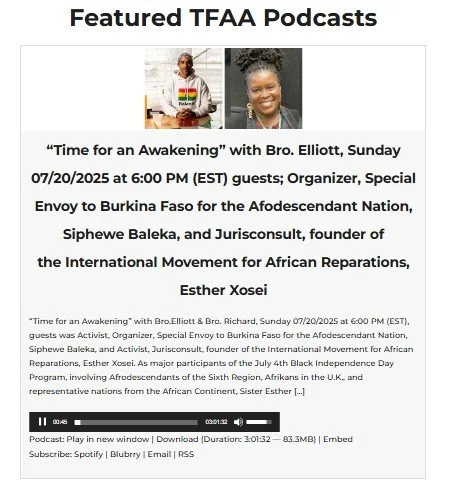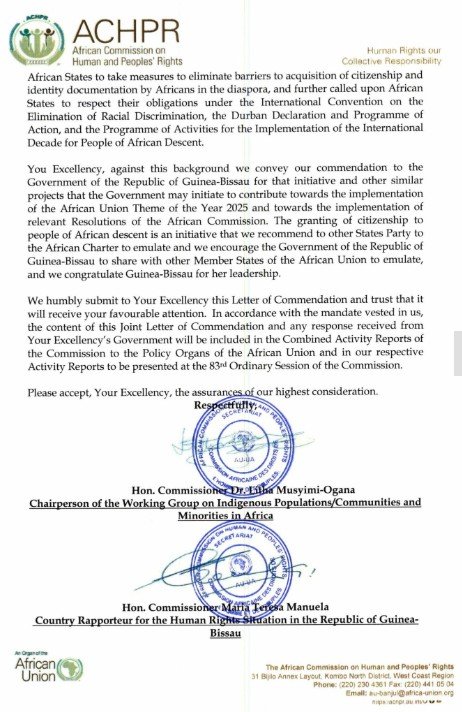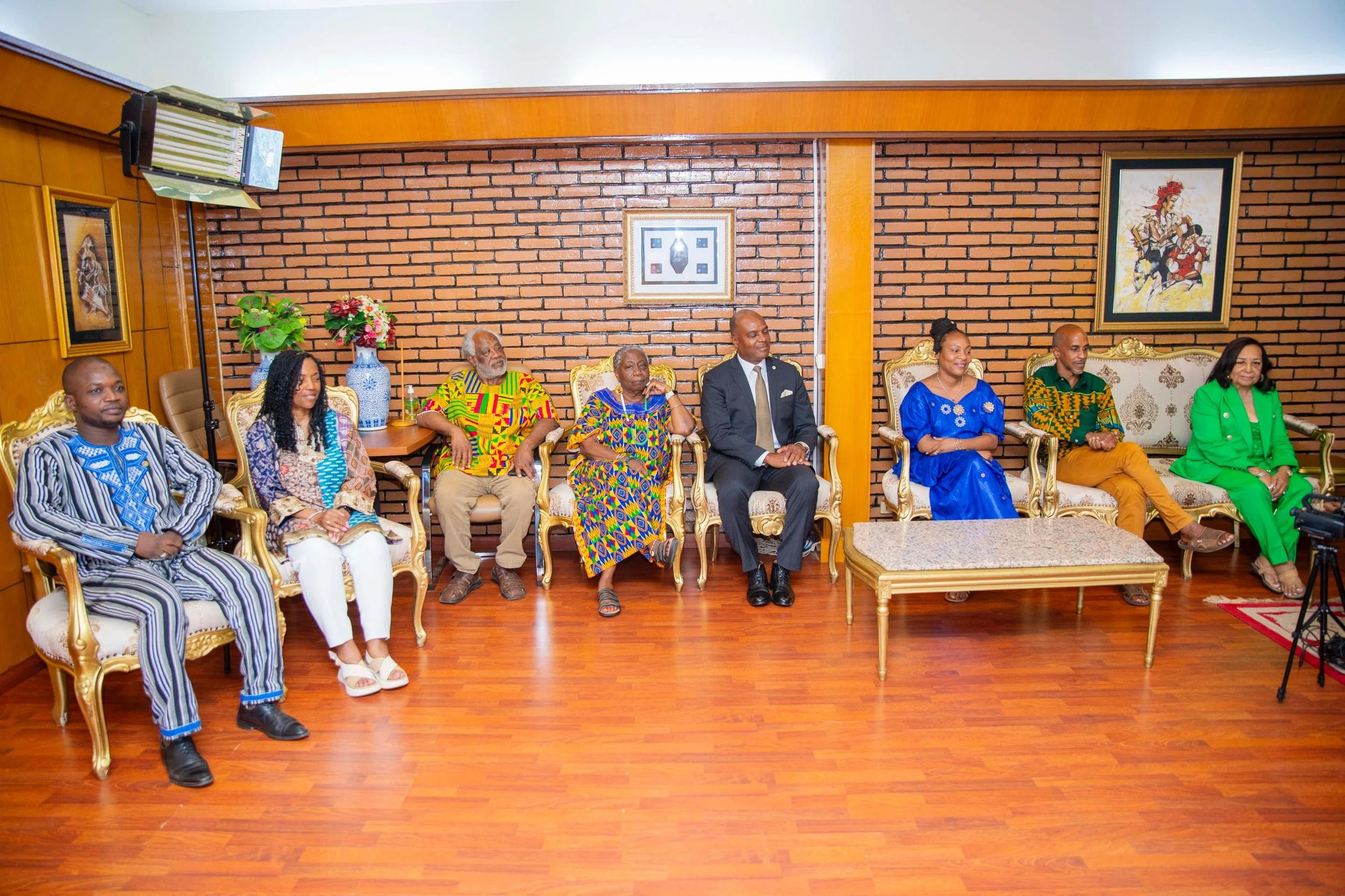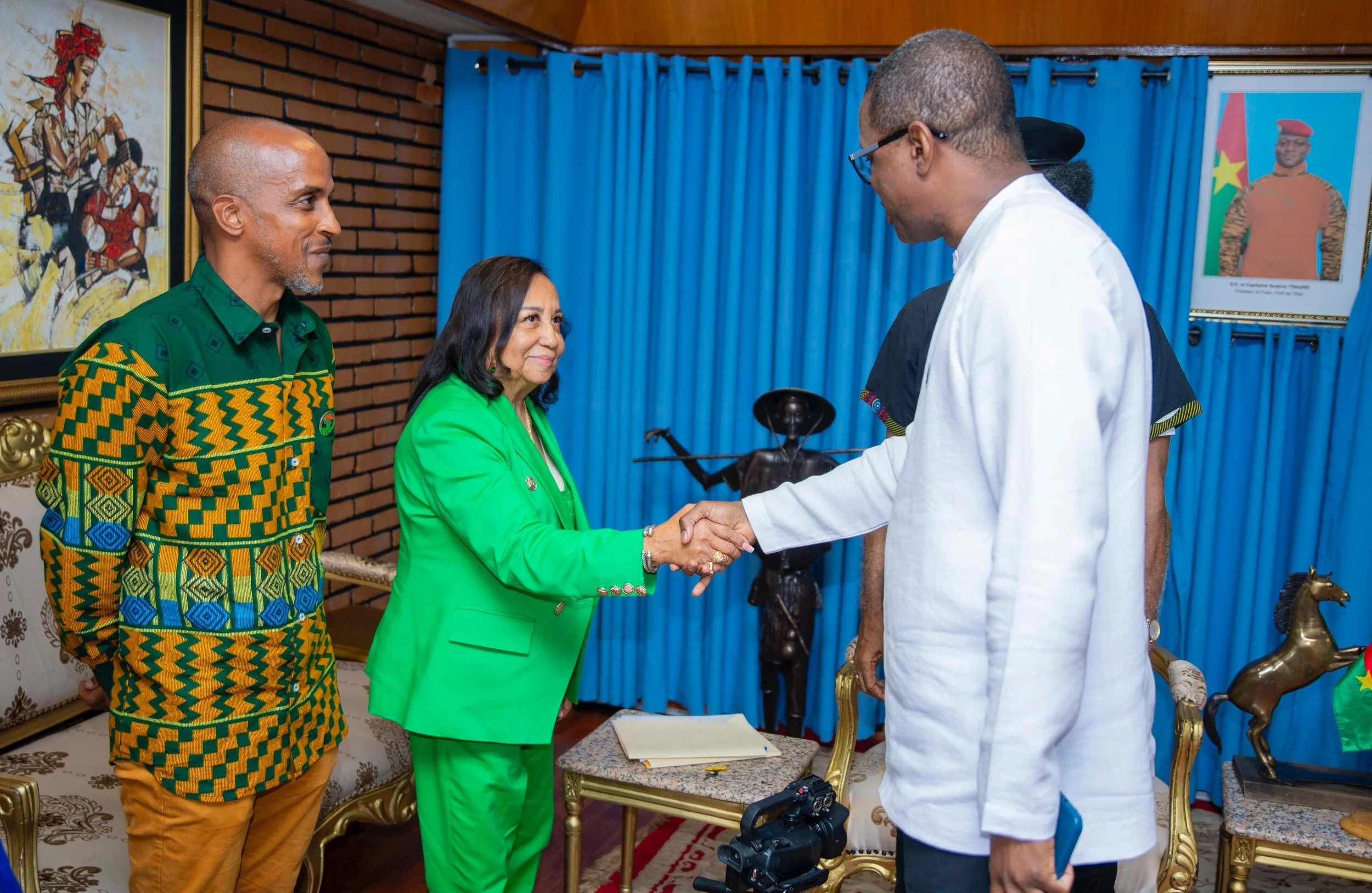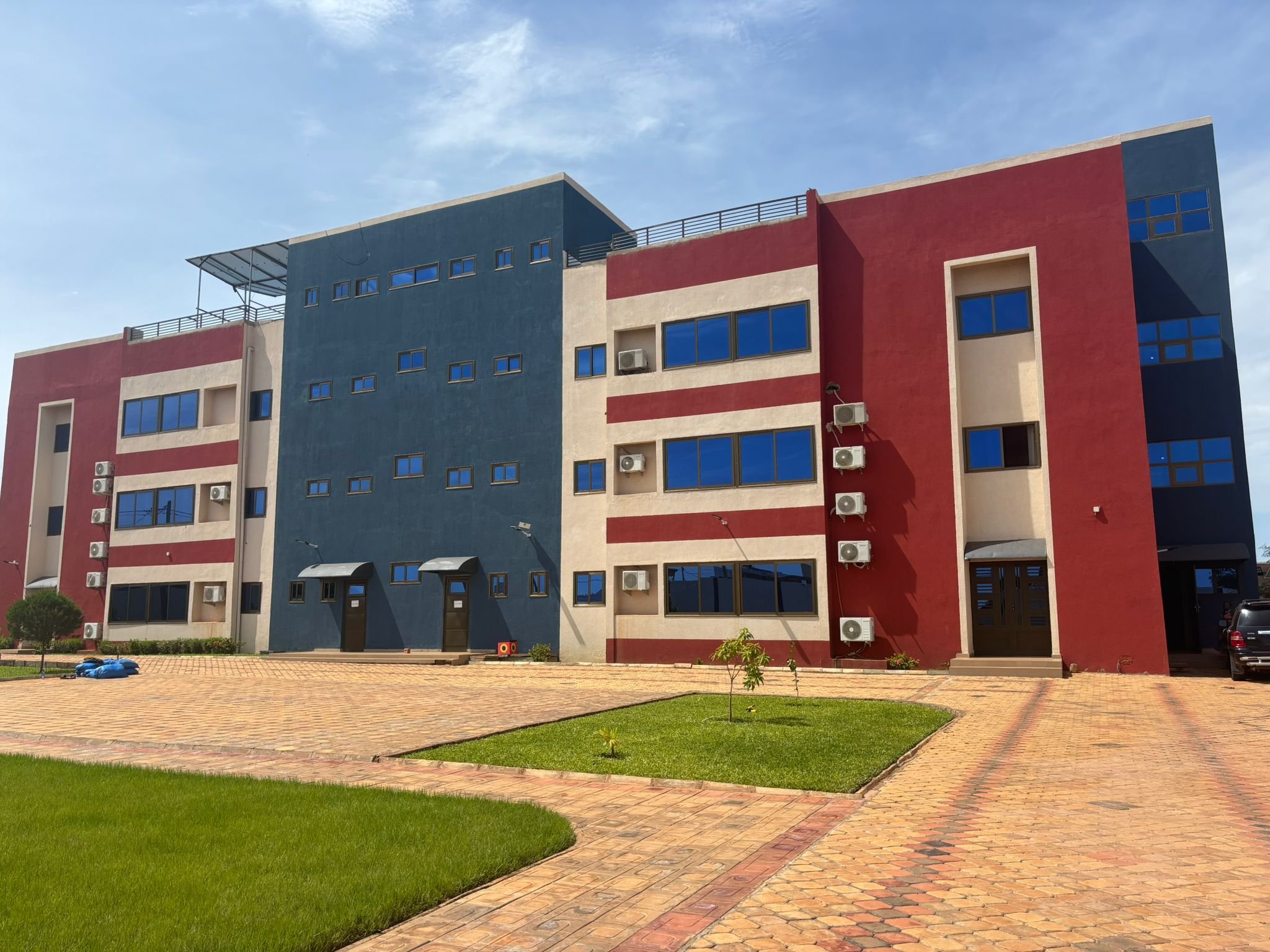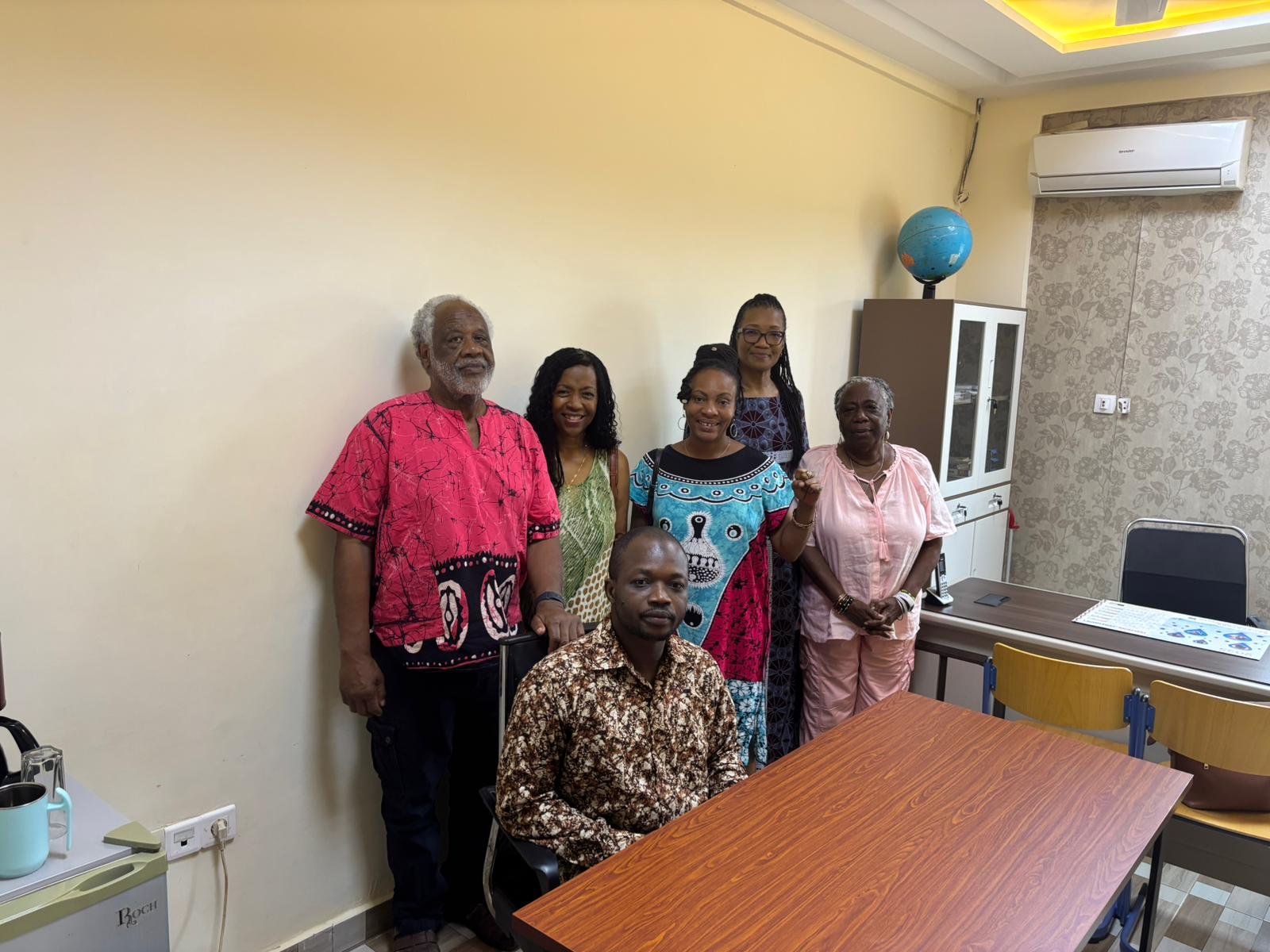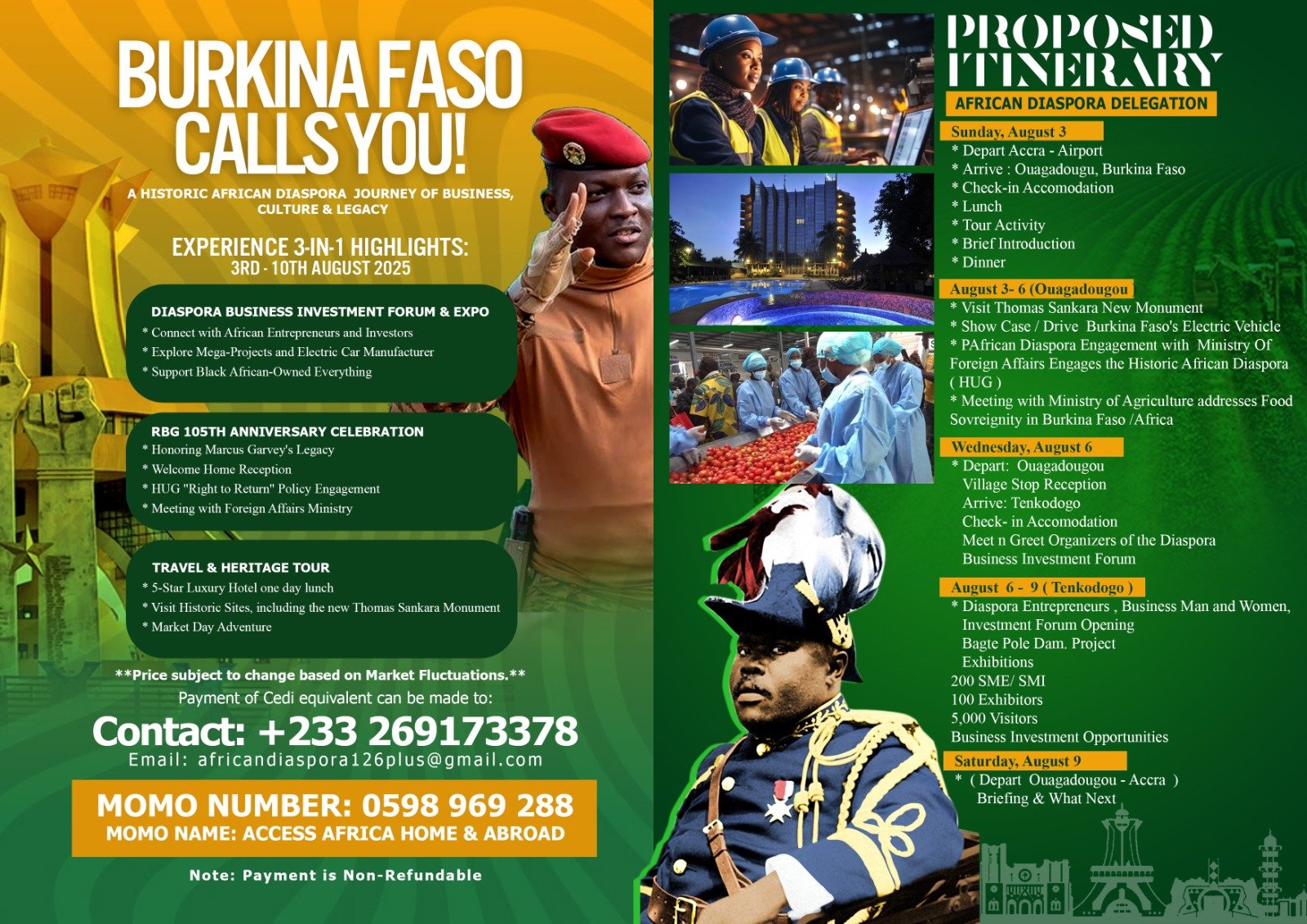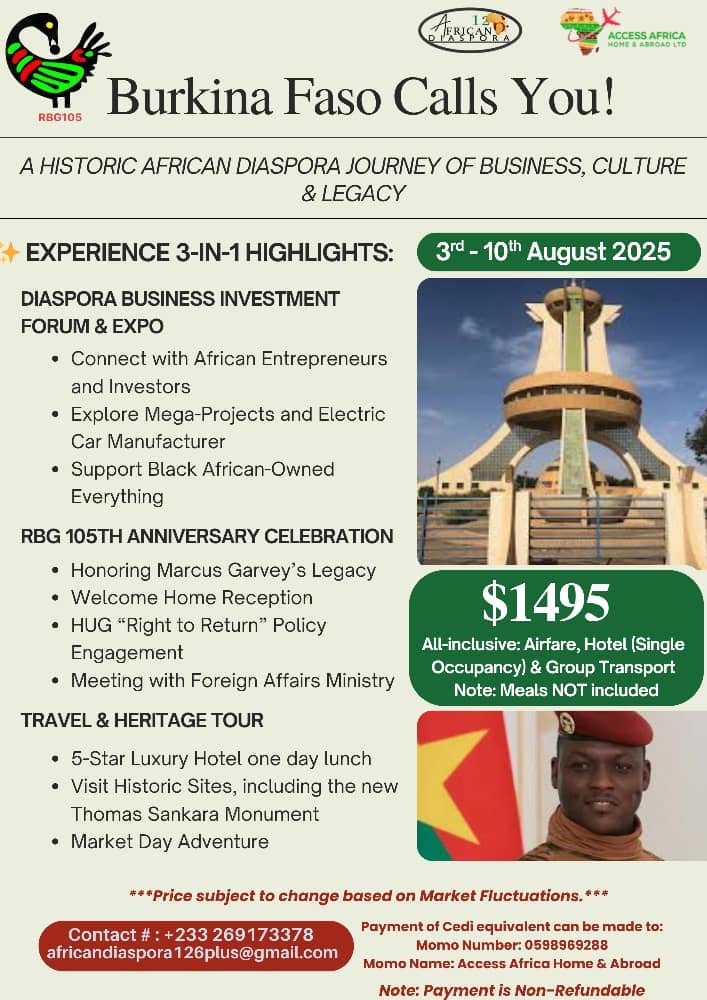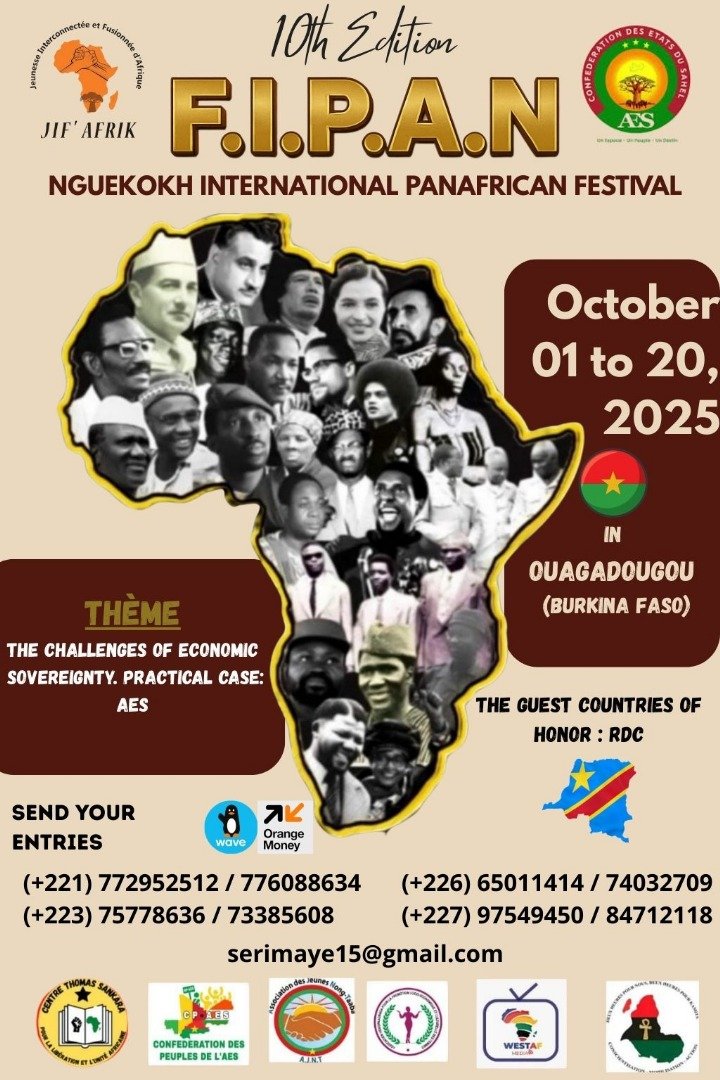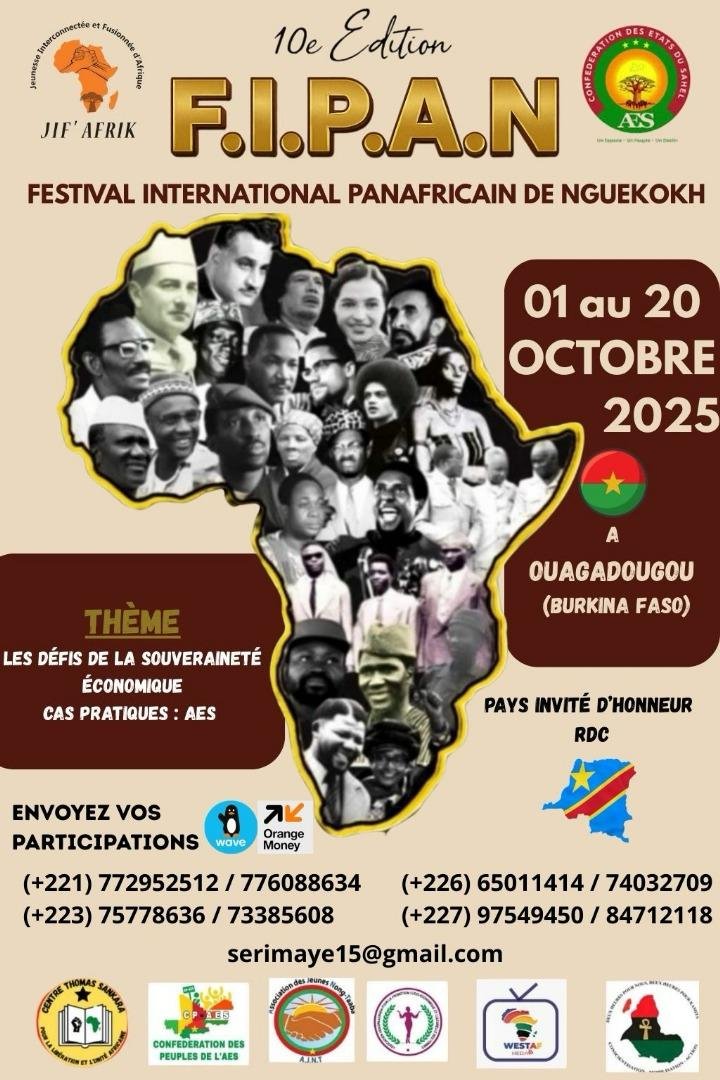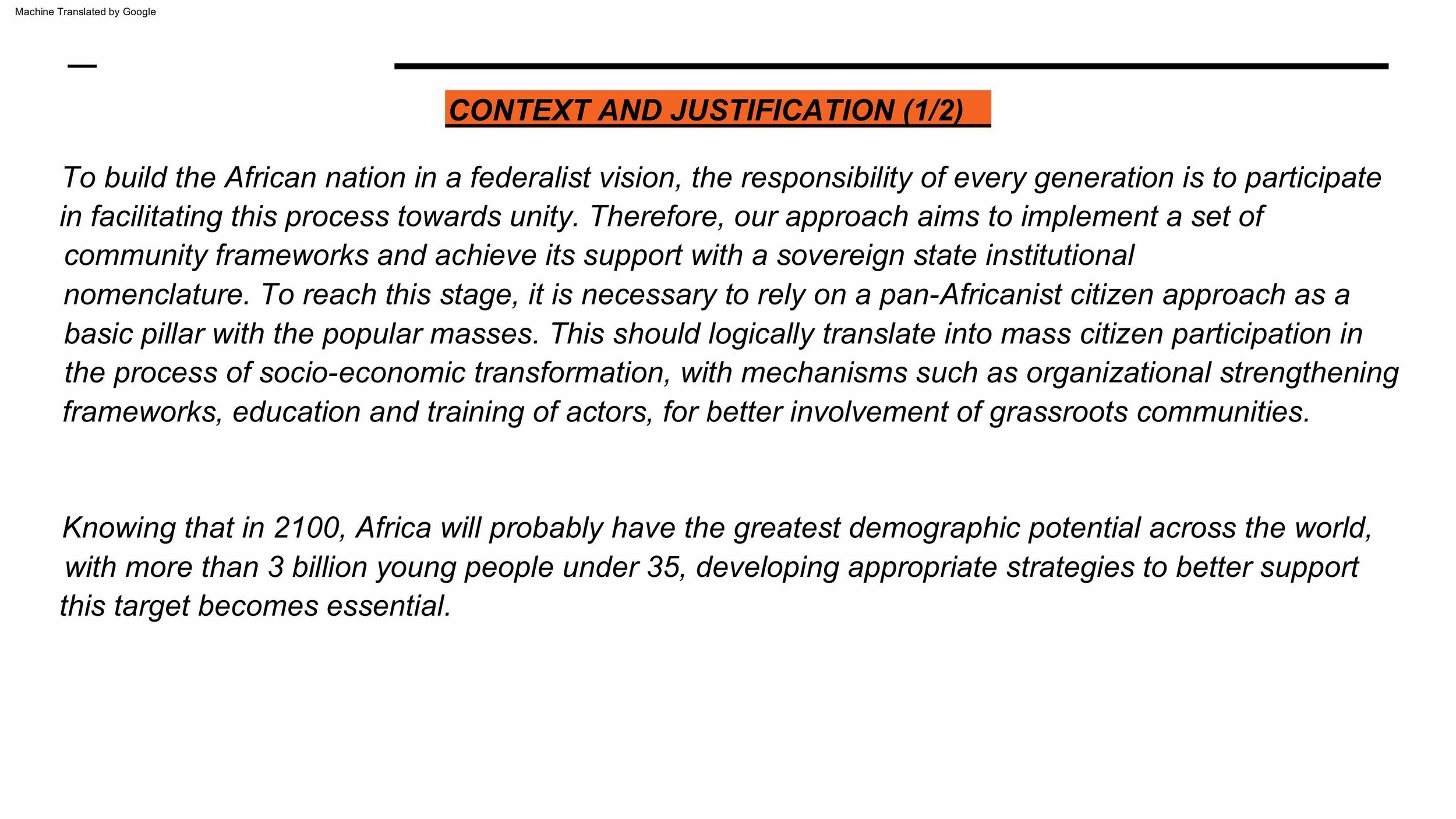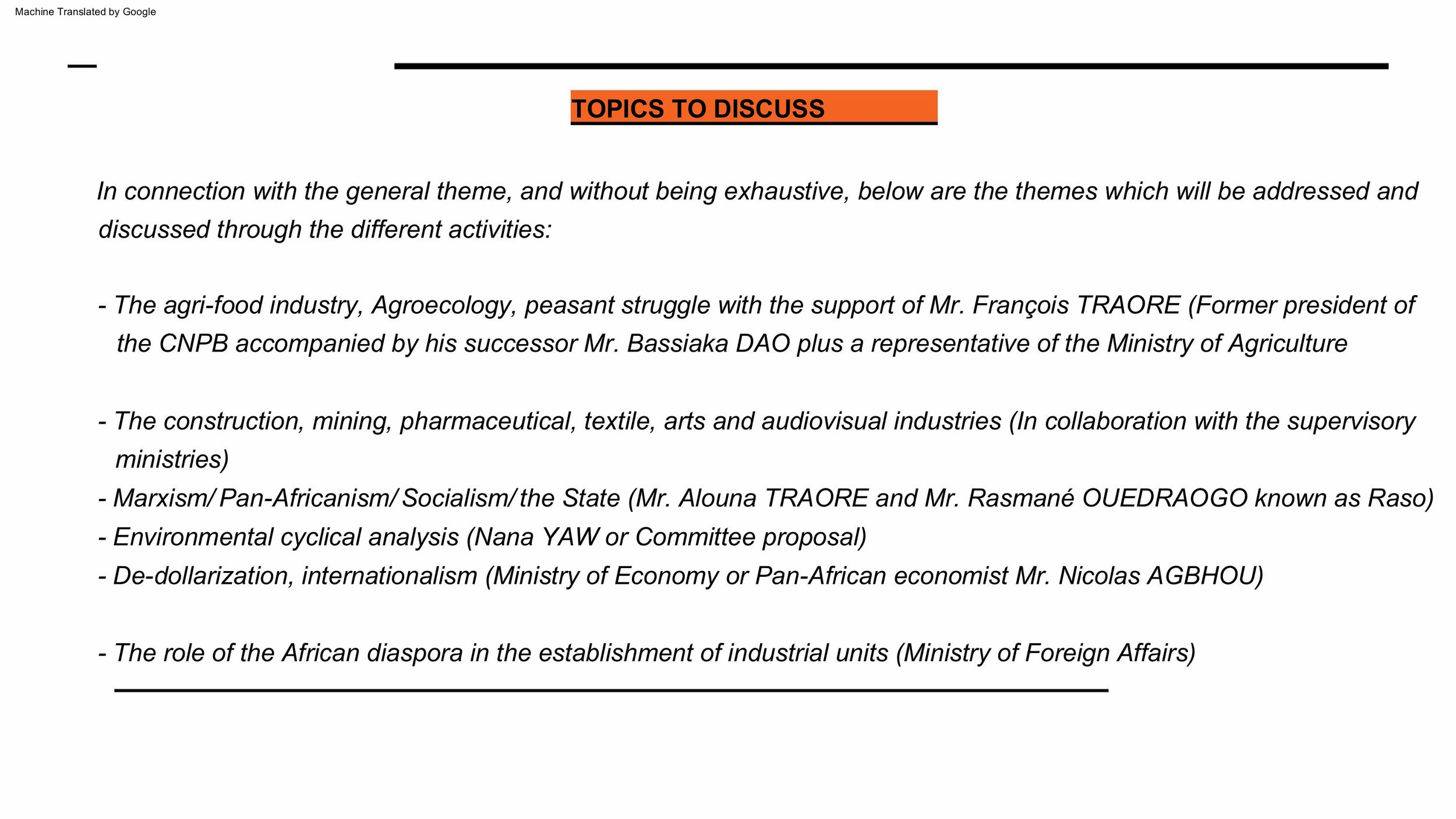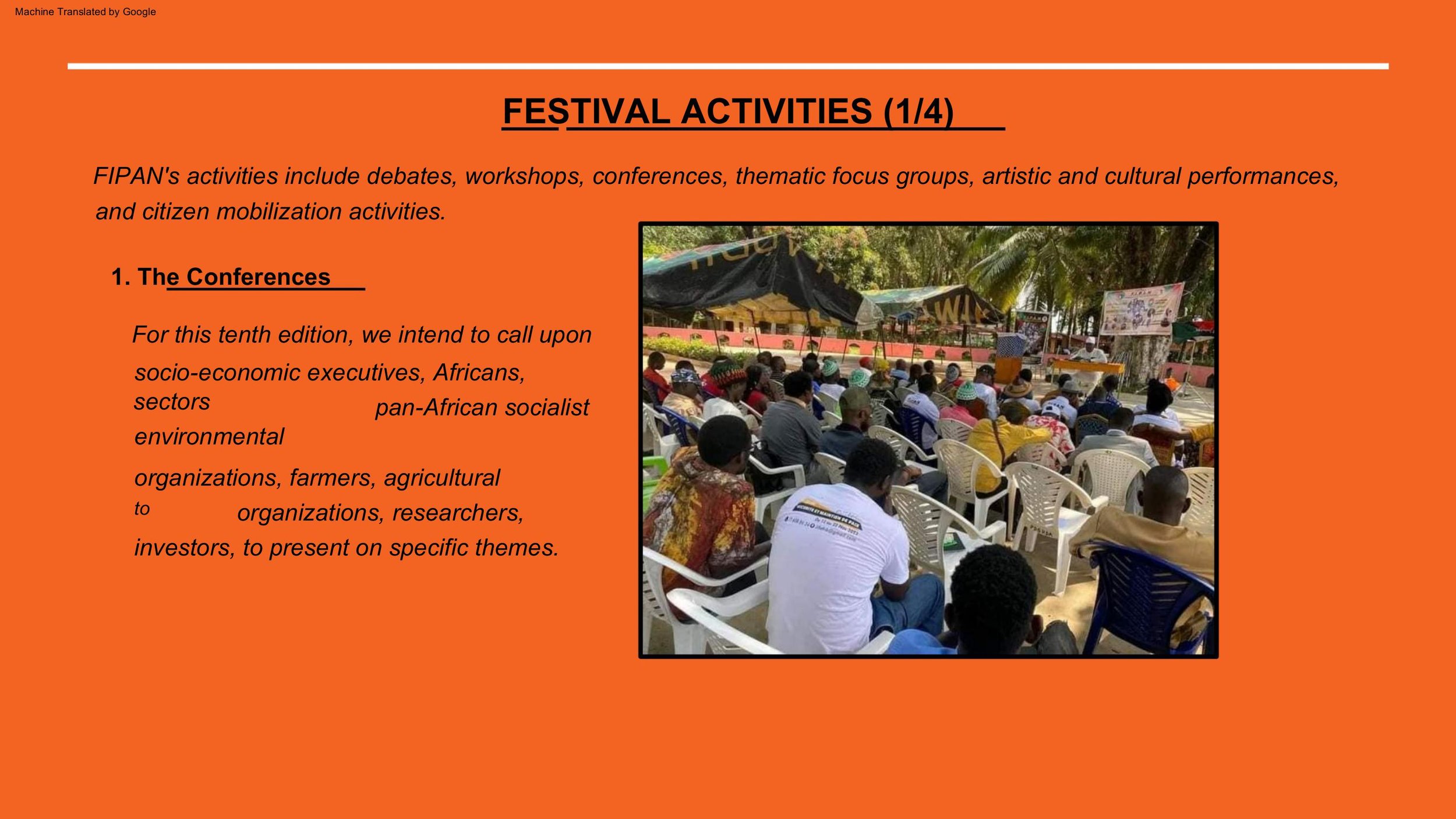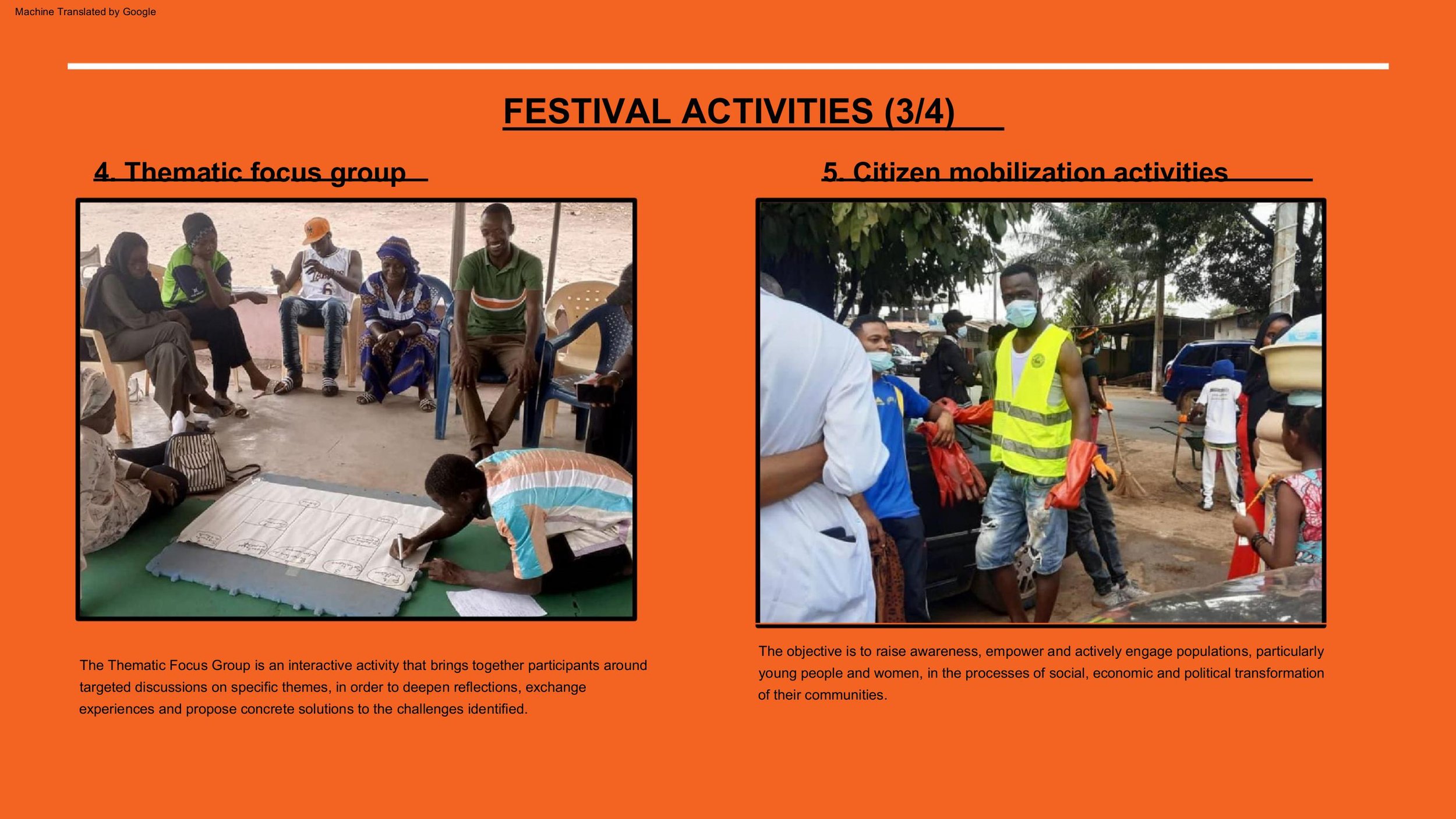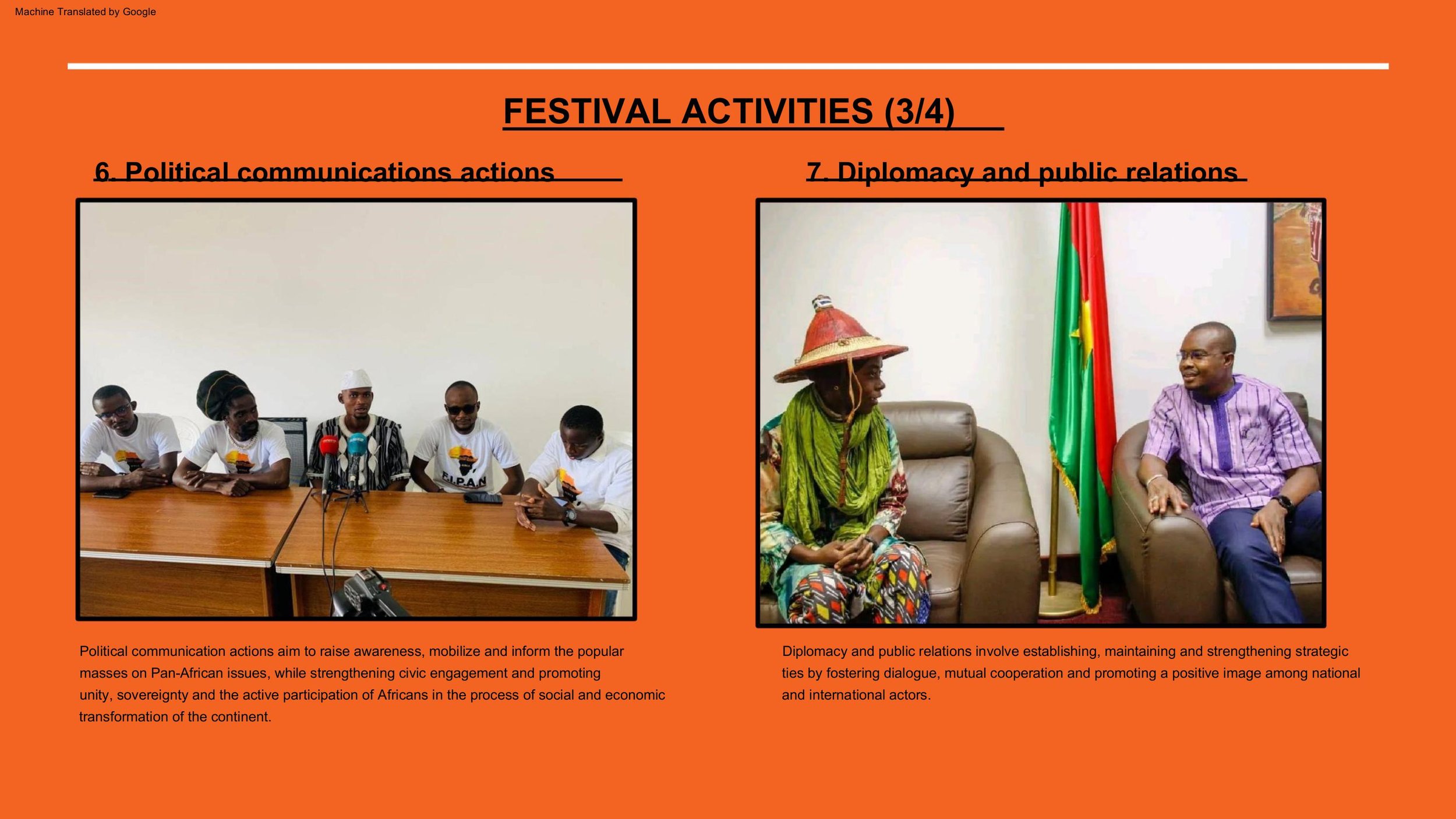RIGHT TO RETURN TO OUR ANCESTRAL HOMELANDS
ALL REPARATIONS CLAIMS on behalf of the Global Afrikan Family are and must be based on the fact that the Catholic Church unjustly authorized an evil European military invasion led by the Military Order of Jesus Christ headquartered in Portugal into the ancestral homelands of the people on the African continent. AFRICA IS THEREFORE THE LOCATION WHERE THE CRIME WAS COMMITTED AND THE DAMAGE TO AFRICAN PEOPLES WHICH IS ONGOING UNTIL REMEDIED IS THE FOCUS OF REPARATIONS. As I stated to the ACHPR,
“The Abuja Proclamation appraises “the issue of reparations in relation to the damage done to Africa and its Diaspora by enslavement, colonization, and neo-colonialism”. The AU Concept Note EX.CL/1528(XLV) states, “The Assembly further decided that the theme of the Year for 2025 will be ‘Justice for Africans and People of African Descent Through Reparations” as well as designate the reparations for transatlantic-enslavement, colonialism and apartheid. . . .” Notice the construction here: reparations for transatlantic-enslavement always precedes colonialism and neo-colonialism. Thus, the first priority of reparations is to repair the first harm done which happened when African men, women and children were invaded and attacked by the Military Order of Jesus Christ after war was declared on them by Pope Nicholas the V on June 18, 1452. Captured African prisoners of war were forcibly trafficked across the Atlantic and subjected to the dehumanization processes that resulted in ethnocide. This is the first harm of enslavement that is the first priority of Africa’s Reparations claim.”
2. In Pan-Africanism and Nationality Rights For the Diaspora: A Contemporary Perspective, in Pan-Africanism, African Nationalism: Strengthening the Unity of Africa and its Diaspora edited by B.F. Banke & K. Mchombu, A. Bernard puts it this way:
“The Pan-Africanist Law of Return: Quintessential Reparations
At a very basic level, if reparation is to repair the wrongs committed against African peoples through slavery and its apprentices, colonization and imperialism, the first wrong committed was taking millions of peoples from their homeland. Those taken from Africa lost, among other things, their citizenship and this is the first thing that needs to be given back. It is morally and philosophically the first step in the journey of a thousand miles that needs to be undertaken if Africa and African peoples are to move forward in a forceful, positive and determined manner in the 21st Century.
Concomitant with this position therefore is that the law of return can only be made possible by African governments/states, not the West. It is to be stated clearly nonetheless, that this is a right, not a concession or special privilege. Diasporan repatriates should not have to prove which part of Africa they are from. The loss of this specific identity is a part of the harm done by slavery, and cannot be used by African governments to reject Diasporans. Any African government which challenges the right to return to Africa for proof of specific identity is in breach of their own claim for compensation for slavery.”
REPARATIONS
After the first Africans were captured in the 1440s by the Military Order of Jesus Christ, as documented by Gomes Eannes de Azurara in Volume 1 and Volume 2 of the Chronicle and Discovery of the Conquest of Guinea, then came the first war deaths and casualties - African blood shed on African soil. Thus, the trafficking and enslavement came first that resulted in an estimated 12 million victims enslaved in the Americas and then came the killing of Africans, resulting in an estimated 100 million deaths on African soil. The Netherlands formally abolished slavery in its colonies on July 1, 1863 and the United States proclaimed the 13th Amendment abolishing its slave trade on December 16, 1865. Using the latter date, that’s 150,896 days or 413 years, 1 month and 29 days of enslavement and death in warfare. Reparations are PRIMARILY concerned with THIS damage.
Then followed the scramble for Africa, formalized at the Berlin Conference in 1884 to 1885 and the period of colonisation and after that, neocolonialism. Starting from the US abolition of slavery, until today, that’s 58, 315 days, or 159 years, 7 months and 29 days. Reparations are SECONDARILY concerned with THIS damage.
Reparations are in the process of being redefined to suit the purposes of the ruling classes of all nations and their governments. As an example, in 1900, Bishop Henry McNeil Turner said,
“We remained in slavery two hundred and fifty years, and have been free the best end of fifty more years. In other words we have been dominated over by the buckra, or white race, for about three hundred years. We have worked, enriched the country and helped give it a standing among the powers of the earth, and when we are denied our civil and political rights, (many) ridicule the idea of asking for a hundred million of dollars TO GO HOME, for Africa is our home and is the one place that offers us manhood and freedom, though we are the subjects of nations that have claimed a part of Africa by conquest. A hundred million dollars can be obtained if we, as a race, would ask for it. The way we figure it out, this country owes us forty billions of dollars, and we are afraid to ask for a hundred million. Congress, by its legislation, throws away over a hundred million annually.”
A further example is that in 1919 and the 1920s both Marcus Garvey and W.E.B. DuBois petitioned the League of Nations for the former German colonies to be given over for the purpose of creating a new African State and homeland controlled by African people where African people in the Diaspora could resettle. This form of reparations was denied, and instead, the “Protectorates” and “Mandates” system was implemented so that the colonial powers retained control of those territories. Finally, as another example, in the 1980s and 1990s, the focus of reparations shifted to “debt relief” for African countries. Thus, while the 1993 Abuja proclamation “Exhorts all African states to grant entrance as of right to all persons of African descent and right to obtain residence in those African states, if there is no disqualifying element on the African claiming the ‘right to return’ to his ancestral home, Africa,” it “Further urges the OAU to call for full monetary payment of repayments through capital transfer and debt cancellation. Urges those countries which were enriched by slavery and the slave trade to give total relief from Foreign Debt, and allow the debtor countries of the Diaspora to become free for self-development and from immediate and direct economic domination. ” This was a shift from the earlier focus of the right to return and redress for unpaid slave labor which still has not been granted. Debt relief, rather than monetary payments, became the focus of global campaigns, was never granted and has now taken a back seat. Today, certain interests have positioned “racial healing” and “climate justice” as the new focus of reparations as these are “acceptable” issues for the ruling elites. To be sure, consider that,
"After all this time, has the African Union made REPATRIATION and CITIZIZENSHISP the priority during its AU THEME OF THE YEAR? Have formal agreement with African States and the AU pertaining to REPATRIATION and CITIZENSHIP been concluded? Have they even been brought to the table? Are the Afro Descendants in the AU 6th Region equal partners in determining AU principles, policies, and programs? Incredibly, Kyeretwie Osei, Head of Programmes at the AU ECOSOCC Secretariat in Lusaka, Zambia gave an answer that the AU does not intend such things. Mr. Osei clearly stated that the AU is seeking “different interpretations of reparations . . . .” This can be seen, for example, in the numerous emphasis on “climate justice” with little to no mention of Repatriation and Citizenship. In fact, climate justice is fast becoming the leading talking point of the AU along with “debt relief”, and was butressed by the selection of European Climate Pact Ambassador in Belgium Ms. Fadeke Ayoola to lead off the Consultation’s presentation which focused on the current state of the Pan African financial architecture and and Lydia Chibambo who works with the Zambia Climate Change Network, to close the Consultation. Mr. Osei then made the audacious and patronizing claim that the “reparations process is AU led . . . designed and created by the AU. . . .” SEE: AU ECOSOCC DIASPORA CONSULTATIONS CONTINUE TO DISAPPOINT AFRODESCENDANTS IN THE AU 6TH REGION
Consider further the 27 February 2025 article by Tadesse Simie Metekia, Senior Researcher, Rule of Law, Institute for Security Studies (ISS) in Addis Ababa entitled: AU ‘Year of Reparations’ should look to the future and the past in which he says,
“Others contend that development aid, debt relief and foreign investment function as reparations, negating the need for further redress. . . . One way to address these challenges is by expanding the AU theme’s focus, which currently emphasises justice and healing for Africans and Afro-descendants. During implementation, the AU could approach reparations as a forward-looking global agenda aimed at repairing both victims and perpetrators. . . . Former colonial powers that profited from Africa’s suffering carry unresolved moral wounds. Societies built on slavery and colonial exploitation continue to grapple with racism, economic inequality and historical amnesia. Reparative justice offers these nations an opportunity to heal, confront their pasts, and rebuild relationships with African and Afro-descendants.”
Many within the Reparations Movement have justified this shift by saying that reparations is not just about the past, it is about the Africa we want now and in the future, while others don’t even consider Africa at all and simply want a more comfortable life in the land of their ancestors' captivity. Under this reasoning, many are no longer framing reparations as the just compensation for enslavement but rather through the lens of “developmentalism” - a framework that is in “alignment” with governments’ objectives - Barbados is a good example - and is more palatable to European consciousness. This represents a crafty capture of the reparations narrative and objective. Why does the objective and narrative keep shifting without any reparations being received? Why move on to something else when the first claims have not yet been remedied? The ruling elites use philanthropy to produce controlled opposition, making calculated decisions and sacrifices pawns in order to save the king and queen. . . . .
My respnse to those within the movement who are attempting to redefine reparations is to make the counterpoint that when Africa’s Reparation claim is properly framed as War Reparations, or compensation payments made after a war by one side to the other that are intended to cover damage or injury inflicted during a war, then we need not subject ourselves to manipulation by the successor regimes of the enslaving nations who wish to capture the reparations movement, redefine it in the form as debt restructuring, development aid and climate justice which suits their interests. Such a capitulation would shift the burden of paying for those damages to the victims of the Dum Diversas War. Our reparations are not to be used to cover other problems that the international community is responsible for. We do not need to acquiesce to such a misstatement of reparations. If reparations is intended as compensation after the war with an aim to repair the dignity of the victims, then reframing reparations in a way that considers, even elevates, the interests and sensitivities of the enslavers continues the very indignity of the victims! The Ashkenazic victims of genocide were not forced to reframe their reparations in order to heal the Nazi perpetrators. Neither were the Japanese victims of America required to take into consideration the development plans and other responsibilities of the United States government. It is an offense to suggest, once again, that the burden of healing others falls on African people at the expense of their own direct interests.
THE UNITED NATIONS
The United Nations is pursuing the strategy of "scientific colonialism” that it inherited from the League of Nations. As I clearly emphasized in my article, IS THE UN PERMANENT FORUM ON PEOPLE OF AFRICAN DESCENT THE LATEST REFINEMENT OF SCIENTIFIC COLONIALISM?
“The intellectual roots of the [League of Nations and United Nations policy towards colonial territories] can be traced back to the late nineteenth century and the rise of ‘developmentalism’ as a core tenet of liberal imperial planning in Britain. Colonial states were beginning to deploy new ways of intervening in the everyday lives of their colonial populations at this moment.
With the rise of social science research and the production of statistical analysis, states were much more capable of monitoring their domestic and colonial populations on a large number of metrics. As Timothy Mitchell has observed, ‘as Britain and other colonial powers faced a harder task in justifying the continuation of colonial occupation, new statistical work could clarify the purpose and authority of imperial government.’ Academics like Alfred Zimmern and colonial diplomats like Lord Milner theorized the British Empire as a family of states and state-like entities, some more mature than others, some possessing more international legal autonomy than others. Zimmern, one of the drafters of the League of Nations Covenant, described the British Commonwealth as a ‘procession’: ‘It consist[ed] of a large variety of communities at a number of different stages in their advance towards complete self government.’ Scientific colonialism supplied a logic of development, suggesting the possibility that territories could move from one category to another. The challenge as these thinkers saw it, particularly in Africa, was to promote a form of colonial rule that would both uplift the natives and provide for international free trade. British colonies and protectorates in India and Africa were taken as models, and Milner’s disciples had already suggested that such governance systems be exported to other colonial areas. . . .”
In short, colonialism has always been a process of moving from the exterior to the interior. At this point, scientific colonialism seeks access to our inner-most thoughts and consciousness. What better way than to create a forum and solicit the ideas and aspirations of the best thinkers and activists of African descent? The Permanent Forum on People of African Descent (PFAD) is the latest development of this strategy.
2. Few people know the origin of PFPAD and the bait and switch that took place. In his 1503 Petition for Reparations for African Americans that was delivered to the UN in 1994, the Honorable Silas Muhammad stated,
“Now African-Americans want their human rights, demands for equal status, self determination, and compensation for past and on-going gross violations to be heard and redressed, and are requesting U.N. assistance. This can be accomplished by observers being sent to the U.S., by an investigative committee, by a special rapporteur’s investigation, by the opening of a forum at the U.N. wherein any and all sectors of the African-American community and the U.S. government will be able, without fear of retaliation, to express their grievances on the issues of self-determination and reparation for past and on-going gross violations of their human rights, and seek U. N. assistance in defining and resolving the crisis in this relation which has proved so destructive, not just to African-Americans, but to America as a whole. In this endeavor, the U.N. can expect the full cooperation and assistance of the Nation of Islam, and the vast majority of other African-American groups and individuals.”
3. This was followed by no less than 52 written and oral statements made to the UN Commission on Human Rights, the UN Sub-Commission on the Promotion and Protection of Human Rights, the Working Group on Minorities and the various World Conferences Against Racism during the period from 1997 to 2014. Mr. Muhammad’s stated in his Oral Statement to the Sub-Commission on Prevention of Discrimination and the Protection of Minorities, August, 1999 Provisional Agenda Item 8: Prevention of discrimination against and the protection of minorities:
“We charge civil death. The U.S., with knowledge that it has denied us our identity for the past 400 years, is in violation of both the aforementioned Covenant and Declaration. In articles 2 and 4, the Declaration stipulates that minorities have the right to protect their culture and identity. . . . Owing to plantation slavery, intercultural education is an impossibility for us. By forcibly depriving us of our "mother tongue," the Government of the U.S. deracinated our collective identity, making our condition irreversible. We need specific U.N. assistance. Absent knowledge of our mother tongue, how could and can we speak it with other members of our community, and preserve our individual identity? The annihilation of our "mother tongue" is the extermination of our identity. Absent our identity, we do not have our own culture. Absent culture, we are in a state of civil death. To destroy a people and their shared life is a crime. The U.N. can provide a remedy by establishing a forum for so-called African-Americans at the U.N. in New York. We want a forum for the purpose of restoring our human rights -- which only we can reclaim or choose. Within a forum, we will 1) rebuild a kind of council or governing body amongst ourselves; 2) openly discuss the devolution, in pertinent parts, of the Constitution of the U.S., which defines us as three-fifth of a human being; 3) make choices on the "mother tongue" or tongues we wish to speak; 4) discuss and conclude on the issues of reclamation, restoration, reparations and migration of some of us to a friendly nation; 5) then present this package to the U.N. in order that the U.N. can facilitate dialogue between us and the U.S. Government. The forum will provide a peaceful and protected environment for the resurrection of our legal, political being and status as a people.”
4. In August 2005, Mr. Muhammad made an Oral Statement to the 57th Sub-Commission on the Promotion and Protection of Human Rights, Agenda Item 5C: Prevention of discrimination and protection of minorities, in which he informed that “The Working Group of Minorities, inquiring into their area of expertise, found there was not a place established within the UN that Afrodescendants could fit, because Afrodescendants are coming back to life absent their mother tongue, original culture and religion. The Working Group on Minorities began seeking to find a way for us.”
5. On 2 August 2021, the General Assembly adopted its resolution 75/314, in which it formally operationalized the Permanent Forum on People of African Descent (PFPAD) as "a consultative mechanism for people of African descent and other relevant stakeholders as a platform for improving the safety and quality of life and livelihoods of people of African descent. . . .” On April 19, 2024, in alignment with Mr. Muhammad’s original vision for a forum to “provide a peaceful and protected environment for the resurrection of our legal, political being and status as a people” I invoked Resolution 75/314 that emphasizes that PFPAD can “request the preparation and dissemination of information by the United Nations system on issues relating to people of African descent . . .” and submitted a request for an advisory opinion from the International Court of Justice (ICJ) - an organ of the United Nations system - on “The status of Afro Descendant People as prisoners of war under the Geneva Convention and their right to conduct plebiscites for self-determination.” After mounting an international campaign pressuring PFPAD Presidents Epsy Campbell Bar and June Soomer to sign and submit the request to the ICJ, still it has not been done. Only lip service has been paid to it.
6. Additionally, PFPAD Secretary Niraj Dawadi, immediately following the 3rd closing session in Geneva, felt it necessary to approach me to tell me that the Forum believes requesting an advisory opinion from the ICJ is very important but that due to shortage of resources and time, the members have not had proper opportunity to discuss it yet have concluded that because of its importance, the Request must have broad support. Mr. Dawadi did not detail what was meant by broad support, or why a petition signed by 300 delegates which received a standing ovation from the floor, was not broad enough. More interesting, however, was the admission that the Forum is concerned that if they exercise their mandate as I have suggested, and the Forum goes directly to the ICJ, that it will, according to Mr. Dawadi, “open the flood gates to petitions.” The concern is that this would set a precedent and every group will then expect the forum to act on their petition. It should be noted this was the very issue that both the League of Nations and the United Nations faced at their establishment - the question of receiving petitions from non-state actors.
7. I have therefore concluded that the United Nations and PFPAD is merely an institution for scientific colonialism and will not bring the Request for an advisory opinion on the five questions that will set the foundation for our legal claim for Dum Diversas war damages and “the resurrection of our legal, political being and status as a people.”
8. Indeed, the case of the Israeli Genocide against the Palestinians in Gaza is the definitive proof that no justice can be expected from the UN system, as the ICJ ruled in favor of reparations to the Palestinians yet until now Israel has defied the ruling and continued its genocide and the UN has proven impotent to enforce its authority. As the Honorable Silas Muhammad asked the Sub-Commission on the Promotion and Protection of Human Rights 56th Session 26 July to 13 August, 2004: “The UN is the greatest law-giver in civilized society. If we cannot call upon the UN, made up of civilized men and women, to grant us protected collective human rights, then who else can we call upon?”
9. Therefore, African people themselves must accept the fact that they must build sufficient compelling force and the ability to coerce the European nations to pay reparations. This can only be done by establishing a United African States with positive sovereignty that can withhold the essential earth minerals and raw materials which the Western world depends on to sustain its system of dominance until reparations and satisfaction is obtained.
THE AFRICAN UNION
Both Omowale Malcolm X (1964) and Queen Mother Audley Moore (1975) brought the issue of Afrodescendant reparations to the Organization of African Unity (OAU). In 1996 the Economic and Social Council of the United Nations granted consultative status to the Rastafari Movement who were represented by Ras Bongo Spear and Ras Boanerges. In 1998, at the United Nations in Geneva, Switzerland, Ras Bongo Spear and Ras Boanerges asked: “What is the responsibility of the nations to Africans in the diaspora with respect to the age-old quest for Repatriation?” Said the Rasses, “Our advice from that committee and from the UN Office of Human Rights . . .. was simple:
“The United Nations as an organization of states cannot at this time in any serious way entertain the issue of repatriation without the consent of the African states and the African Governments to which we want to go in Africa. So we were directed to seek the support of African governments with respect to the acquisition of land. And after that, the matter can be brought up again to the United Nations and the issue of [settlement] can take place.”
When the OAU transformed into the AU and “invite[d] and encourage[d] the African Diaspora to full participation”, a moment for which I was physically present in the AU building on February 3-4, 2003, efforts then focused from the UN to the AU with great expectations bolstered by the Durban Declaration and Programme of Action.
2. As stated in my introduction above, twenty-four years later I represented both Afrodescendants and the larger African Diaspora (the 6th Region of the AU) at the 38th Session of the Assembly of Heads of State of the African Union in Addis Ababa in February 2025 and the 83rd Session of the African Commission on Human and Peoples’ Rights (ACHPR) held in Banjul in May 2025. I have consistently raised the issue of the Afrodescendants Right of Return at the African Union and tracking its development since the 7th Pan African Congress in Kampala, Uganda in 1974.
2. I, along with many others, have attempted to work through the AU”s Economic, Social and Cultural Council (ECOSOCC) to develop a comprehensive AU Citizenship Policy. These efforts have consistently been sabotaged, and I detailed this both in 2019 and 2025. Moreover, in 2023, the African Union completed its takeover of the Reparations movement at its Accra Reparations Conference which I also attended. Since then, I have asked the question, What Role for the Afro Descendants in the African Union's Commission for International Law (AUCIL) and the Proposed Legal Reference Group? The Case of the Republic of New Afrika? Based on my experience with the African Union, the failure of its members, after 64 years, to recognize Afrodescendants as a unique class of immigrants, provide for their unqualified citizenship, and the fact that 70% of the AU’s budget comes from non-Africans, I have concluded that the African Union is an instrument of neocolonial control and impotent in its ability to solve Africa’s problems, including the citizenship issue of the Afrodescendants in its 6th Region.
3. Therefore, Afrodescendants themselves must accept the fact that they must build sufficient compelling force to convince African nations individually to fulfill their reparations obligations to the living descendants of people taken as prisoners of war from territories that are now under their national jurisdiction as signatories to the Geneva Convention. This can be achieved through building an Afrodescendant United Front that initiates negotiations with each AU member state and withholds support in the form of remittances, tourism, investment and skills transfer until satisfactory citizenship policies are legislated.
THE ALLIANCE OF SAHEL STATES (AES)
Recently, the world witnessed the 2021 Malian revolution led by Assimi Goïta and the National Committee for the Salvation of the People which seized power in Mali after overthrowing the elected president, Ibrahim Boubacar Keïta.
A faction of Burkina Faso's military overthrew their existing military government in the September 2022 revolution, installing Ibrahim Traoré over Paul-Henri Sandaogo Damiba, who had come to power in the January 2022 coup d'état which toppled the democratic government of president Roch Marc Christian Kaboré.
In July 2023, the National Council for the Safeguard of the Homeland removed the elected government of Niger's Mohamed Bazoum, installing Abdourahamane Tchiani and a new junta in the 2023 revolution.
All three of the alliance's member states were suspended by the Economic Community of West African States (ECOWAS) shortly after the ouster of their elected governments. Those three nations then formed the Alliance of Sahel States (AES) in September 2023, with the signing of the Charter of Liptako-Gourma, following a meeting of the heads of state in Bamako, Mali. The AES aims to strengthen regional cooperation, particularly in defense and security, and to promote the sovereignty and development of the member states and has expressed intentions to move towards a confederation, indicating a desire for closer integration and cooperation beyond the initial defense pact. On 28 January 2024, the three countries announced via a joint statement that they were withdrawing from ECOWAS. In May 2024 at a meeting in Niamey, representatives of Burkina Faso, Mali and Niger finalized a draft text creating the AES. The confederation was established on 6 July 2024 in Niamey. On 29 January 2025, Burkina Faso, Mali, and Niger formally withdrew from ECOWAS after providing the required 1-year notice. The withdrawal has resulted in ECOWAS losing 76 million of its 446 million people and a significant portion of its total geographical land area. The AES is now geographically larger than ECOWAS, covering 2,781,392 km2 compared to ECOWAS's adjusted 2,087,596 km2. To consolidate their exit from ECOWAS and strengthen their alliance, the three countries began circulating new AES passports, and announced that a new unified 5,000-strong military unit will soon join the fight against jihadists and terrorists on AES territory.
The confederation's stated goal is to pool resources to build energy and communications infrastructure, establish a common market, implement a monetary union under proposed currency, allow free movement of persons, enable industrialization, and invest in agriculture, mines and the energy sector, with the end goal of federalizing into a single sovereign state. A project to set up passport and identity card travel documents between the three member countries of the AES is part of a more advanced integration between the member states before approval of the project by the three heads of state of the member countries. A joint biometric passport for AES citizens was recently introduced, but is already facing obstacles, with Senegal currently refusing to recognize the passport, putting in question the viability of the scheme. The confederation is against neo-colonialism and has demonstrated this with acts such as downgrading the status of the French language. renaming of colonial street names, and many other such initiatives. On 5 February 2025, the Member States of the Confederation of Sahel States signed a historic convention, establishing a common cultural policy. On 22 February 2025, the ministers of the Confederation of Sahel States officially launched the flag of the AES. At the end of March 2025, the three members of the confederation will introduce a common customs duty of 0.5% on imports from countries that are not members of the confederation of the alliance of Sahel states. Energy regulators from Burkina Faso, Mali, and Niger met in Bamako in May 2025 to harmonise their policies on energy security and promote renewable energy. The AES announced the creation of the Confederal Bank for Investment and Development (CBID) in May 2025. The bank is designed to provide autonomous financing for critical infrastructure and development projects across the Sahel and to reduce dependence on external institutions. The creation of the bank is a step toward financial sovereignty. The ministers of the Sahel Alliance states met in May 2025 to establish judicial cooperation within the AES. The meeting, chaired by Malian Prime Minister General Abdoulaye Maiga, focused on creating a common legal framework to address transnational challenges, including insecurity, arms proliferation, and money laundering. The goal is to enhance judicial convergence without unifying laws and to make systems interoperable while improving governance, legal protections, and institutional stability. The meeting resulted in the establishment of a regional criminal court aimed at addressing terrorism, violent extremism, and human rights violations within the Sahel region. Experts from the road authorities of Mali, Burkina Faso and Niger met in May 2025, to define a common approach to road safety. The AES has created the Alliance of Agricultural Seed Producers of the Sahel (APSA-Sahel) to strengthen regional food sovereignty and promote seed systems locally adapted to the Sahel’s climate. The initiative is designed to reduce dependence on foreign seed imports, promote indigenous seed varieties, and increase seed research, production, and distribution in the sahel. From 21 to 28 June 2025, Mali hosted the first annual Alliance of Sahel States Games. More than 500 professional athletes from AES states competed in soccer, traditional wrestling, archery, and other events. Roaming charges for telephone communications between the three countries have been abolished. From August 11 to 15, 2025, parliamentarians and experts from Mali, Niger and Burkina Faso met in Ouagadougou to make the draft Confederate Parliament of the Alliance of Sahel States (AES) a reality.
The AES has demonstrated the fortitude required to break from neocolonialism and stands in stark contrast to the AU and ECOWAS. For this reason, all available Afrodescedant resources should be spared in its support and protection in hopes that the AES proves itself to be the embryo of a revolutionary United African States invested with positive sovereignty of the people. Currently, the AES is the Pan Africanists’ best hope for complete African Liberation.
BURKINA FASO AND PRESIDENT IBRAHIM TRAORE
The Republic of Burkina Faso, and especially its President Ibrahim Traoré, is the “face” of the AES. Global “Hands off President Traoré” demonstrations by the Afrikan Family on April 30 and May 25, 2025 have revealed a Pan African phenomenon with a potential for African Unity and African Liberation not seen since Kwame Nkrumah.
I have attended three important Afrodescendant delegations to Burkina Faso: May 2024 with H.E. Ambassador Arikana Chihombori Quao; July 2025 with the Friends of President Ibrahim Traoré, and August 2025 with the RBG +126 Delegation led by Yaw Akyeaw. As part of these delegations, I have met with Karamoko Jean Marie Traore, Minister of Foreign Affairs, Regional Cooperation and Burkina Faso Citizens Abroad; his Chief of Staff, Mr. Hermann Yirigouin Toe, Minister Plenipotentiary Ambassador and Secretary General; Samuel Kalkoumdo, Special Adviser on Social Cohesion and National Reconciliation to President Ibrahim Traoré; Gaētan Alexis Windpanga Ouedraogo, Special Advisor To President Traore in Charge of Diaspora Issues; Anûuyirtole Roland SOMDA, Minister Of Sports, Youths And Employment; his Chief of Staff, Tegviel Evariste Metuole Dabire; as well as the Mr Bassaloma Bazie,President of the Commission of the Alliance of Sahel States; and Mr. Ouattara Hayouba, President of the Patriotic Movement Fas First of Burkina Faso (M.P.F.A.) and Secretary General of the Director of the Confederation of Peoples of the Alliance of Sahel States and others. This has given me the opportunity to discuss many issues and learn many perspectives from Burkinabe people, Pan Africanists, Afrodescendants, government officials, business people, and a wide range of skilled people interested in contributing to the development and protection of Burkina Faso. Below are what I consider to be the most important lessons learned. You can read all of the updates since the May 2024 delegations in my brief that was submitted to the Ministry of Foreign Affairs and the Special Adviser to the President in Charge of Diaspora Issues.
The support that the Global Afrikan Family is giving to President Ibrahim Traoré and the Burkinabe people is proving to be an effective “shield” against Western assination attempts against President Traoré. This was specifically stated by President Bazie during our July meeting.
Contact with Burkina Faso Embassies in Washington DC and Accra, Ghana did not ensure proper arrangements and smooth runnings when the delegations arrived in Ouagadougou. Unfulfilled promised or expected itineraries, meetings and assistance plagued both the July and August delegations and everything had to be arranged in a haphazard fashion following no established protocol. Mr. Toe informed us during the August meeting that uncoordinated activity is overwhelming the various ministries. For example, everyone wants to meet with President Ibrahim Traoré. Mr. Toe emphasized that Burkina Faso still has a colonial system of administration and unfortunately, that is resulting in bureaucratic delays which the government realizes is frustrating our mutual collaboration.
During the July meeting with the FPITW delegation, Minister of Foreign Affairs Mr. Traore stated that the next step was developing a “broad framework” for Afrodescendant engagement, which we are eagerly awaiting. Following the FPITW delegation’s debriefing, on July 14 the African Diaspora Development Institute (ADDI) announced “The government of Burkina Faso has confirmed that the ADDI mission trip to include the conferment of Burkina Faso citizenship will take place from October 26th to November 8th, 2025.” In the August RBG 126+ meeting, Mr. Toe suggested that in the short term, all of us work to make the event in October a success. Towards that end, I submitted to the Minister of Sports a proposal for a one-day Pan African Sports Summit aimed at attracting college and professional athletes from the African Diaspora which was well received. However, in February of 2025, ADDI Founder H.E. Dr. Arikana Chihombori Quao said this:
“The people must come forward. People must come and say, ‘I can do this’ and then do it and continue to do it. So I am opening the door, and those who want to participate, you can organize yourself. . . . But in terms of saying, ‘what is the Ambassador going to do’ what ended up in most of the cases is that everybody comes back and says, ‘Ambassador tell us what to do, Ambassador what should I do . . .’ I CANT DO THAT ANYMORE. I’ve done it for four years. So either you guys come together, organize yourself, I will open the doors, there are people on the ground who can support you. . . . I will open the doors and do everything that needs to be done for you to do your thing, but you have to walk the walk.”






